
Home » Wanderlust » 30+ ESSENTIAL Travel Safety Tips in 2024 (+ Beyond!)

30+ ESSENTIAL Travel Safety Tips in 2024 (+ Beyond!)
Headed off on an adventure? Our top travel safety tips will help you protect yourself (and your things), avoid common scams, stay safe, and more(!) as you travel the world.
With things finally getting back to normal after over 2.5 years of a global catastrophe, everyone is excited to pack their bags and hit the road. Admit it; you’d be lying if you said you didn’t miss traveling and exploring the globe over the past few years.
Now that we can travel again, it’s important to do so safely. With that in mind, we put together the ultimate guide on how to stay safe while traveling abroad (especially if you plan to travel solo). And now more than ever, there’s more to safety than just physically taking care of yourself and so have also included a couple of essential tips on how to stay safe from a digital perspective too. Let’s dive in!
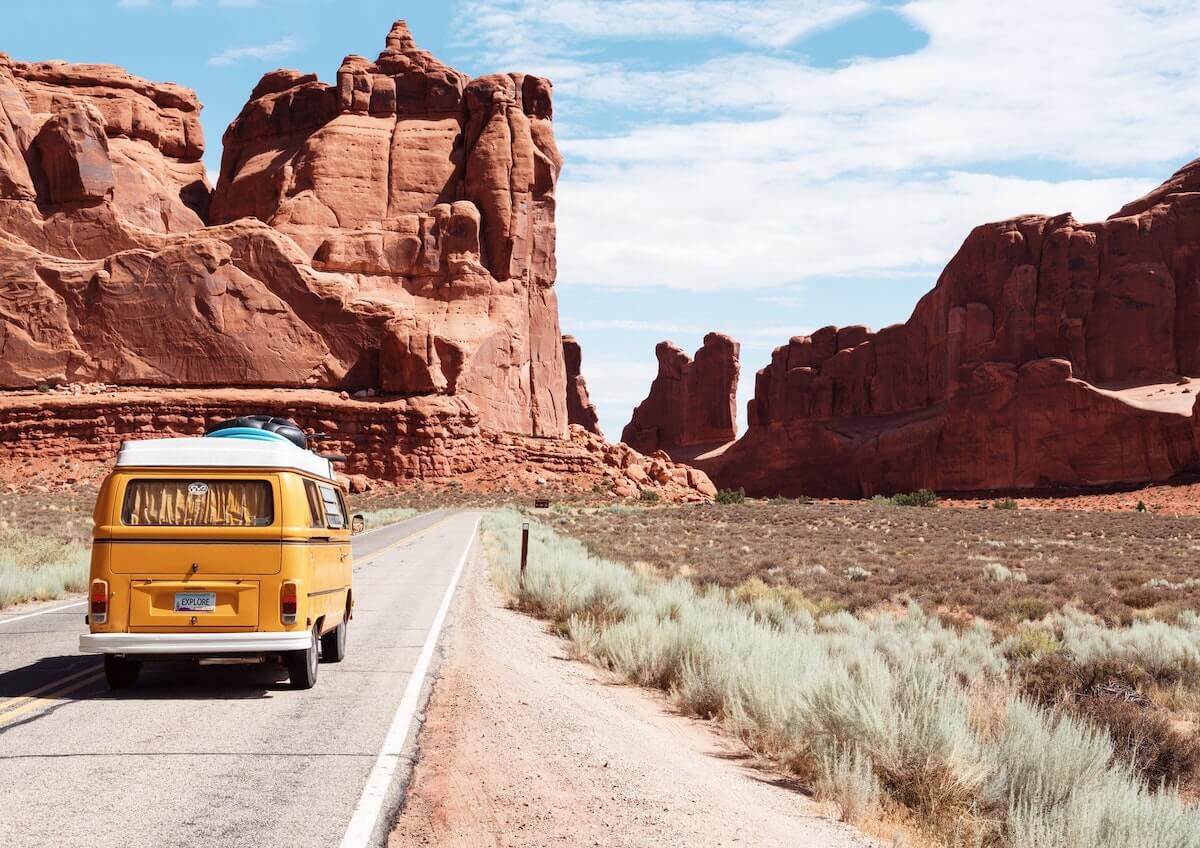
In This Post
- 1.1 Plan Ahead And Share That Plan with a Friend/Family Member
- 1.2 Download (+ learn how to use) A VPN
- 1.3 Make Copies of Your Important Documents
- 1.4 Research Accommodation Beforehand
- 1.5 Have A Valid Travel Insurance Policy
- 1.6 Tell Your Bank Where You Are Going
- 1.7 Read Up About Your Destination Before You Go
- 1.8 Be Aware of Common Travel Scams
- 1.9 Check Your Governments Travel Advisories Before You Go
- 1.10 Get any Necessary Travel Vaccinations for the Destination(s) you’ll be Visiting
- 1.11 Invest in Travel Locks for Your Bags
- 2.1 Have Emergency Details Written Down
- 2.2 Pack a First Aid Kit
- 2.3 Don’t Dress Too Touristy
- 2.4 But DO Dress Appropriately
- 2.5 Leave the Flashy Jewellery at Home
- 2.6 Safeguard Your Hotel Room
- 2.7 Be Aware of Your Belongings and Surroundings
- 2.8 Keep in Touch with Friends and Family but…
- 2.9 …Be Careful When You Post Online
- 2.10 AND Stay Away from Public WiFi
- 2.11 Carry Multiple Credit Cards
- 2.12 Limit the Amount of Cash You Carry
- 2.13 Use GPS When Getting Around (Walking, Rideshare etc)
- 2.14 If Hiring a Car, check the vehicle for damage before you set off
- 2.15 Know Where to Save and Where to Splurge
- 2.16 Register, Visit or Get in Contact With Your Country’s Embassy or Consulate
- 2.17 Don’t Share Too Much With Strangers
- 2.18 Food and Water Safety
- 2.19 Drink (Alcohol) Responsibly + Keep an eye on your Drinks.
- 2.20 Don’t Do Stupid Things for Photos
- 2.21 If Riding a Bike or Scooter – Wear a Helmet
- 3 Safety Tips for Solo Female Travelers
Top Travel Safety Tips: Before You Go
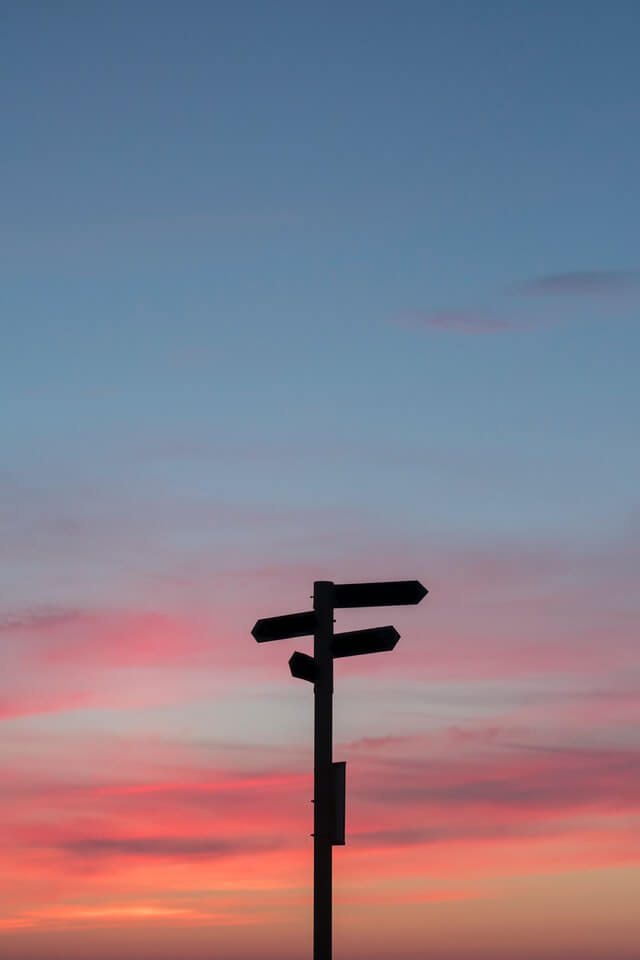
Plan Ahead And Share That Plan with a Friend/Family Member
An important step toward ensuring safety during travels is planning ahead. Sure, spontaneous adventures may sound more fun, but they’re also more dangerous. If you want to put safety first (as you should), plan your trip ahead and map out where you want to be and when.
Having an outline of your next steps and travel plans makes traveling more accessible and safer, which in many cases is more enjoyable than having to deal with the pressure of not knowing what could happen next. Even if you’re the kind of person who prefers spontaneity, plan your trips to stay safe and healthy.
We also recommend giving a copy of your itinerary (and travel insurance cover) to a trusted friend or family member who isn’t traveling with you. This way if anything untoward should happen, it will be easy to narrow down where you were supposed to be at any particular time.
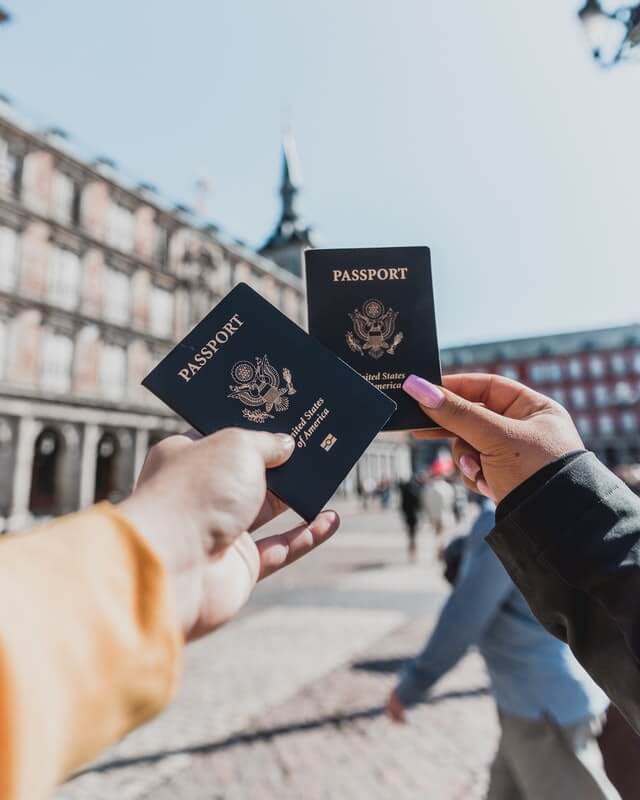
Download (+ learn how to use) A VPN
OK, so ‘learn how to use’ a VPN might be a bit of a stretch – for most you literally just toggle them on and off. But protecting your data and online accounts while you are away is paramount – especially if you need to access them on the move and plan on using public WiFi (more on that below).
Free WiFi comes in handy when traveling to new places and exploring new streets you’ve never seen. To take advantage of the available public internet, download a VPN or virtual private network. A VPN meaning is quite easy to understand – a virtual private network completely hides your activities online and makes you private on the network. That way, your data, and devices will remain safe even if you connect to an unprotected, open WiFi network.
Besides, there are more benefits to using a VPN than just internet security and preventing identity theft. Thanks to dynamic pricing, you can use it to access blocked content in different regions of the world or get better travel and accommodation deals, and watch your favorite streaming services such as Netflix, AmazonPrime and Disney+.
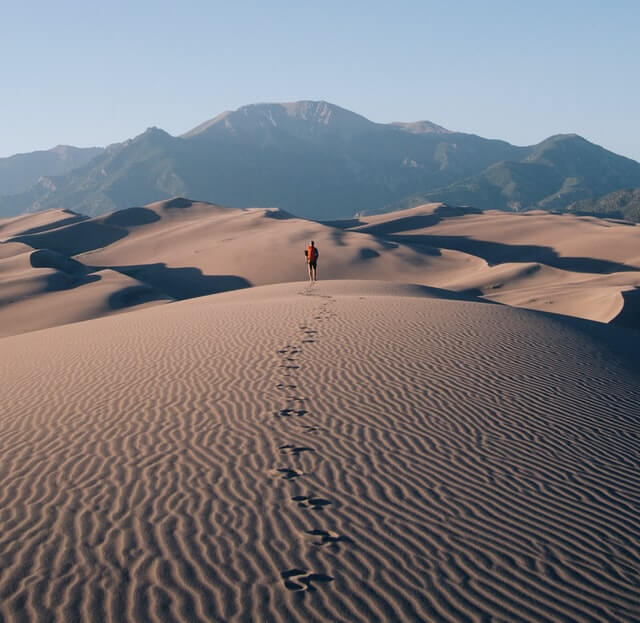
Make Copies of Your Important Documents
Have multiple copies of your passport and driver’s license – a hard copy to carry with you, and scanned, digital copies in a password-protected account online. This way, should the worst happen with your actual passport (lost, stolen, destroyed etc), the copies can help identify you, and help get replacement passports quicker.
(You could also have digital copies of any living will, or power of attorney you may already have in the online folder, just in case you need them. None of us go on vacation thinking the worst is going to happen, but being prepared for any eventuality can actually make dealing with the practicalities of the worst happening, a lot easier.)
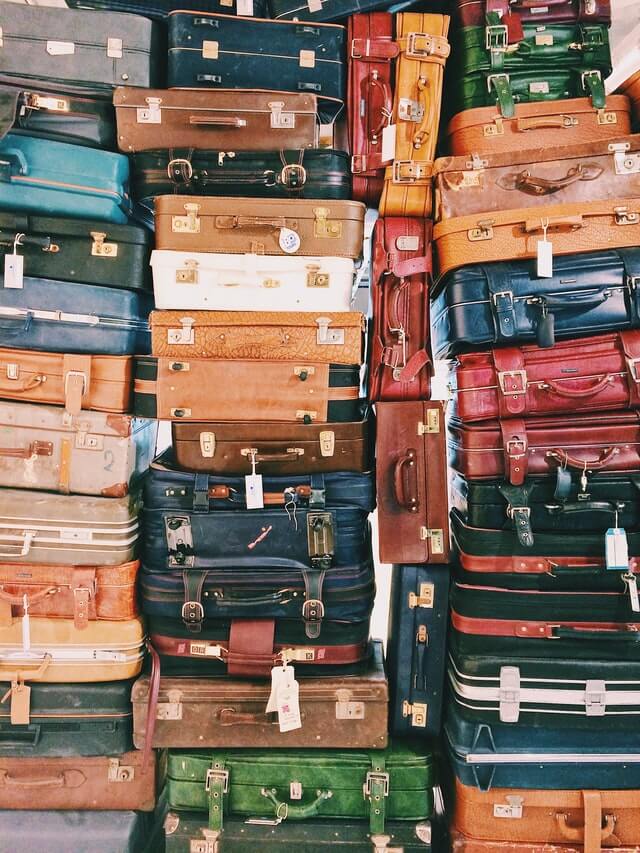
Research Accommodation Beforehand
It is best to look for places to stay before you embark on your next adventure. Again, spontaneity may seem more fun but trust us, you want to have accommodation figured out before reaching the destination. Why? There are a couple of reasons depending on how you want to look at this.
Finding accommodation before taking the trip will allow you to get a better deal. The earlier you book a place, the lower the price will be. More importantly, this is the safer thing to do since it gives you time to research the background of the Airbnb, hotel, or neighborhood you’re planning to stay at. Reading other travelers’ reviews and seeing their photos can also be hugely helpful when selecting your accommodation.
Putting the research in will help you determine how safe you are at a certain location, so we highly recommend taking the time to at least Google the place.
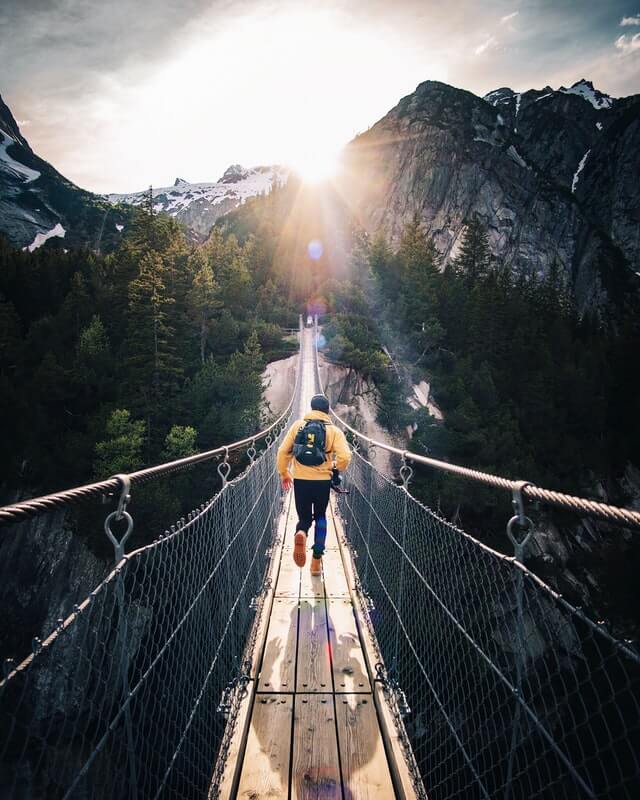
Have A Valid Travel Insurance Policy
Now this may be a contentious issue for some, but I am a firm believer in if you can afford to travel you can afford insurance. This isn’t so much of travel tip, but something I consider a requirement.
Travel insurance can help you out in a number of big – and small – ways. From compensation for delayed flights or lost luggage, to covering doctor or hospital expenses if you get injured, and cover the cost of flights home in the event of an emergency.
There are lots of different policies available, from the basic 1-2 week general cover, or annual policies for frequent international travelers whose trips are typically 1-3 weeks. Then there’s backpacker cover for specific destinations (ie. South Africa or South America) or extreme sports cover, and even travel insurance policies (such as Safety Wing) that specialize in providing cover for long term travelers or digital nomads.
Tell Your Bank Where You Are Going
There is nothing worse than your card being declined while you are on the road – especially when it is because your bank has seen you are in a different country and put a block on it.
Avoid the hassle by letting your bank know which country you are going to, and then when you pay with your card abroad, it won’t be flagged by the bank as a suspicious transaction.
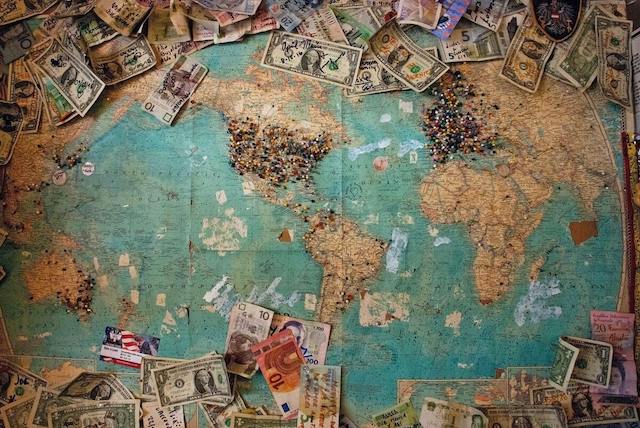
Read Up About Your Destination Before You Go
Safe and responsible travel starts as soon as you start planning to travel. Research your destination, its customs, opening hours for popular attractions, cultural norms, dress codes, general costs, common scams and up-to-date foreign affairs etc. The more information you have, the better you can plan and the more you will be aware of your surroundings when you are there.
Travel bloggers are usually a great way to get on-the-ground information from travelers who have been there and done that – both from their social media and their travel blog articles themselves. Work out who’s travel style you like and who you identify with, and read their posts. (And we’ll be honest – we hope that MakeTimeToSeeTheWorld is – or soon will be after reading this guide – one of your favorite travel resources, and we’ve been to over 60 destinations so we should have something to help you out, no matter where you are headed on your next trip.)
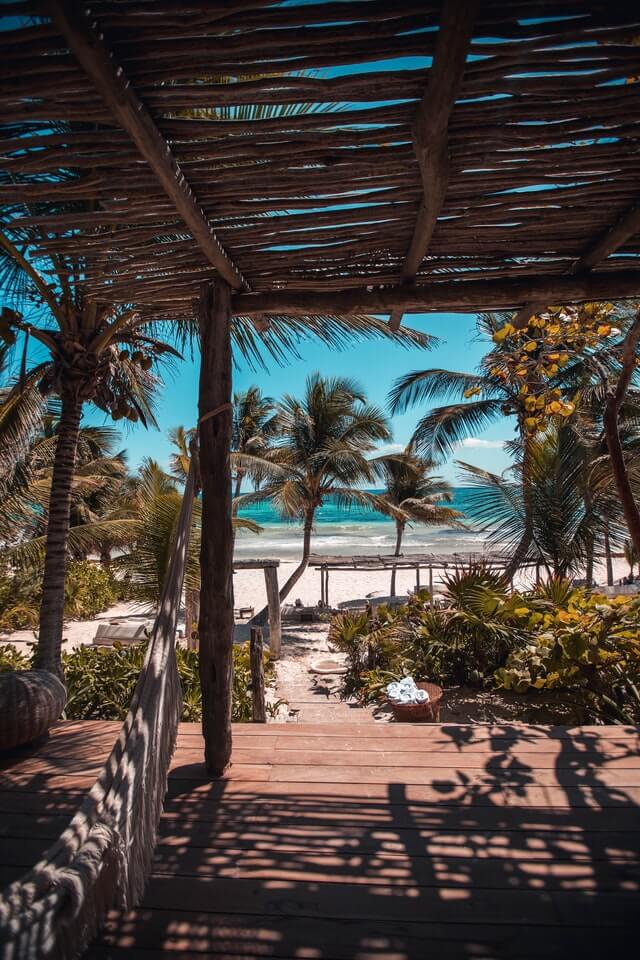
Be Aware of Common Travel Scams
While this may seem quite a broad travel safety tip – unless you are going to many destinations in one trip – it is actually quite easy to find out the specific travel scams that are common in the destination you a heading. Simply search ‘Travel Scams in (insert country)” on google.
Common travel scams around the world include:
- ‘Lucky’ heather or friendship bracelets – where items are thrust onto unsuspecting tourists, who are then encouraged to hand over some money for payment.
- ‘I’ve just been robbed’ – and the ‘victim’ needs a small amount of money to get the bus to the police station (or equivalent).
- ‘Gem shop scam/cheap tuk tuk’ in Southeast Asia – a local will tell you wherever you a heading is closed (for whatever reason) and that tuk-tuks are a nominal amount because it’s a national holiday and the driver will take you anywhere. And on the way, you’ll stop at gem shops.
- Bird Poo in Barcelona – if someone starts pointing at a fresh white stain on your jacket, and offers to help clean it off with their bottle of water and handkerchief – as they are ‘helping’ they are likely picking your pocket at the same time.
- ‘Long Hauling’ in Las Vegas – when the taxi driver takes an obnoxiously long and convoluted route to your destination. It’s such a common practice they gave it a name. (See our Las Vegas Travel Tips for more)
But there are many more, and knowing which ones you could possibly encounter can save you from getting caught or falling victim to them. Also, for most, avoiding them can be as simple as paying attention to your surroundings, looking confident and not making yourself an easy target.

Check Your Governments Travel Advisories Before You Go
In the US it’s the State Department , in the UK it’s Gov.uk and Australia have SmartTraveller . But every country has its own travel advisory provider that will let you know of any major – or minor – events and advice you need to be aware of when traveling to a destination.
Just be aware their advice is usually on the overly-cautious side, and that’s why it’s good to research your destination beforehand and get some on-the-ground information from frequent or recent travelers to give you a good overview.
Get any Necessary Travel Vaccinations for the Destination(s) you’ll be Visiting
Be sure to check with a travelers health clinic or travel doctor in your home country to ensure you have all the necessary travel vaccines for the destinations you’ll be visiting – especially when planning multi-country international trips. For some communicable diseases, you may just need a booster, but there are some baddies that you’ll need jabs and/or oral tablets to take while you’re traveling ( I’m looking at you, prophylaxis for Malaria! )
Also, in the case of the Yellow Fever virus, there is no treatment/medical cure, and while a great number of people can recover, it can have catastrophic consequences (death) for others.
As such, there are several countries (predominantly in South America, Africa, and some Central American countries such as Costa Rica) that mandate that visitors have received a Yellow Fever vaccine prior to being granted entry. Luckily, one dose provides lifelong immunity, and recipients are provided with a paper “yellow card” which must be carried and provided if requested. (See more on the Centre for Disease Control and Prevention (CDC) )
Invest in Travel Locks for Your Bags
If your bags are going to be out of your sight for any amount of time – or even if they are not and you are just on public transport – making sure they are locked can be enough to deter any would-be thieves. ( Even if professional thieves won’t care at all ).
Luggage locks will stop opportunist thieves and can also double as locker locks (in hostels, gyms or luggage lockers etc)
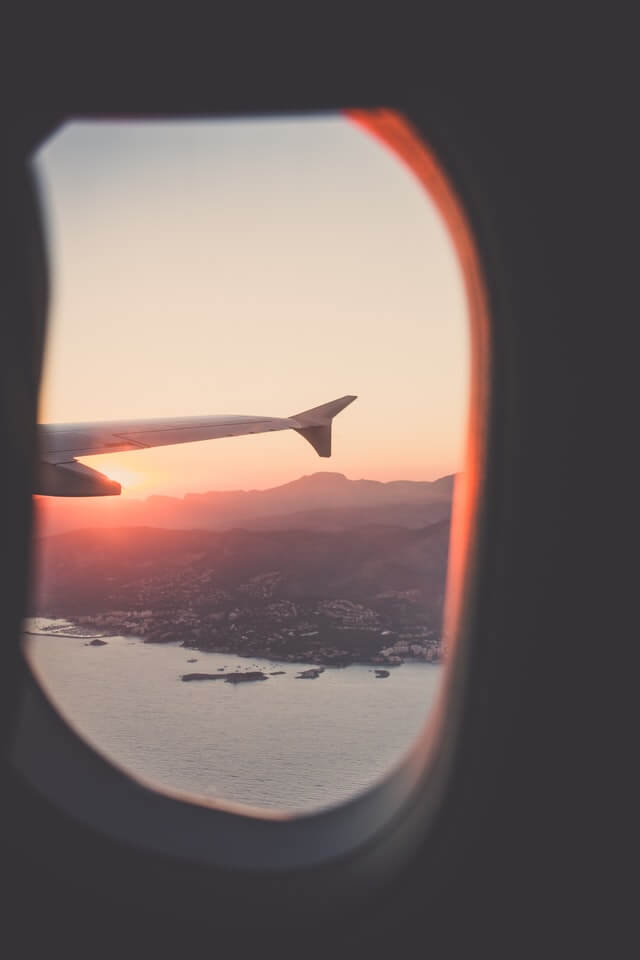
Travel Safety Tips: While You Are Away
Have emergency details written down.
In the event of an emergency, you may not be able to think straight, but having your emergency numbers and insurance contact details to hand can help you get what you need quickly without panicking. It’s also very helpful to have local emergency numbers close to hand too.
We recommend having a copy of your emergency contacts and other details on your phone (I use the Docs app) and one copy physically written down and stored with your passport or in your purse. You can also get it laminated to protect it from moisture.
Pack a First Aid Kit
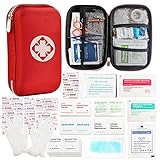
You can pick up a small pre-packed first aid kit including all of the above for a few dollars and then customize it for your needs and your destination. For most places, we recommend including some sunscreen, anti-histamines for allergies, pain-killers, re-hydration salts, and anti-nausea medication for rough journeys.
Don’t Dress Too Touristy
If you’re the kind of tourist that likes to buy a lot of city merch and dress up touristy, we’re sorry to disappoint you, but that might not be the best way to ensure safety. Nowadays, there are a lot of thieves and pickpockets walking around places, especially in big cities such as Rome, Paris, or London.
Wearing city merch and looking like a typical tourist may make you vulnerable to these small criminals. You’d be surprised to know how many people are taken advantage of by taxi drivers or locals in big cities because they behave like tourists. By trying to blend in with the locals, you will avoid any unwanted and uncomfortable situations that could lead to your wallet being stolen (or something worse)…
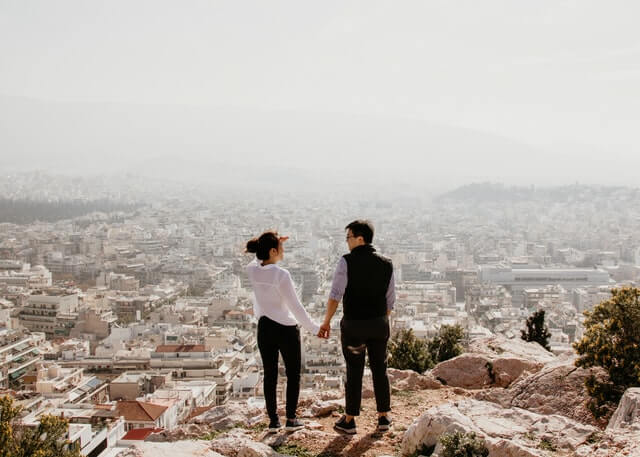
But DO Dress Appropriately
While a lot of skin showing is common at beach destinations, it will make you stand out like a sore thumb in cities, religious sites, or conservative countries in general. This advice is relevant to both men and women (although women showing too much skin is something we deal with specifically in the travel safety tips for women section below.)
By researching your destination before you travel you can get an idea of how locals dress, and culturally what is expected of tourists. For example, in the Middle East and Islamic countries, women visitors are not bound to wear Muslim clothes but are expected to dress conservatively out of respect for their culture.
As a visitor anywhere, you should always be respectful of the people and places you are exploring – and that is not limited to just your clothing.
Leave the Flashy Jewellery at Home
In the same vein as the above, flashy jewelry may look out of place in most destinations and in almost all, is likely to attract unwanted attention and make you a target for thieves (or worse). Leave the bling at home.
Safeguard Your Hotel Room

From 5* hotels to renting a bedroom in a private house, a little extra locking mechanism on your door can give you peace of mind you didn’t know you needed.
Two of the most common extra locks are doorstop alarms , which when placed behind and under a door acts as a wedge to provide extra resistance when opening the door, with a corresponding alarm to alert those inside the room. The second is simply known as a portable door lock and fits into the existing locking mechanism of a door – without causing any damage, of course.
Both are great forms of travel safety gear and we recommend traveling with both. This way if your hotel room door opens outwards, the portable lock will still work where the doorstop won’t, and in reverse, if you can’t use the portable lock for whatever reason, you have the doorstop alarm ready to go.
They are both small and lightweight (the linked set is cheap too ) – and can easily be packed inside a shoe or trainer. It’s a no-brainer for me.
Be Aware of Your Belongings and Surroundings
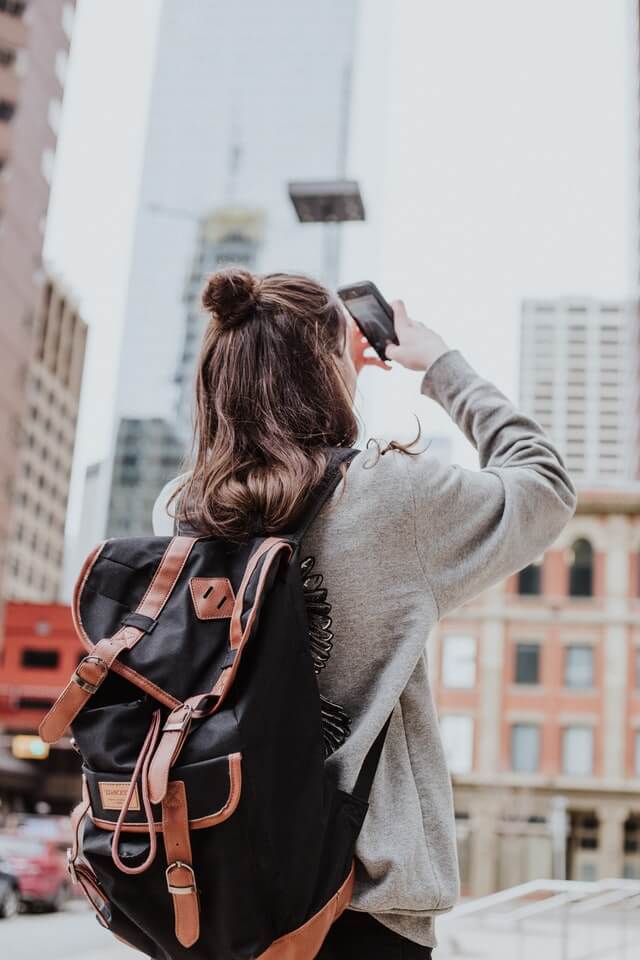
Be conscious of your belongings and your surroundings at all times. Make sure your day pack is lockable or secure in other ways, and keep money hidden. ( Money belts and bra pouches are great and often made with rip-safe material and have RFID blocking technology).
Keep in Touch with Friends and Family but…
Staying in contact with friends and family will make them less worried about your travel adventures, but it could also help if you are in a sticky situation. In the worst-case scenario, when someone goes missing, the first thing the police do is ask their closest friends and family members whether they had been in contact.
Those little check-ins and small conversations (and the itinerary you left with them!) could contain clues about what might’ve happened during the trip. As much as we don’t want to believe that something like this could ever happen to us, it’s better to be safe than sorry.
In case of an event like this, you’d be happy to know that you’ve let people know where you were located before something bad happened. Sure, you don’t have to share your location every step of the way but an occasional check-in here, and there wouldn’t hurt.
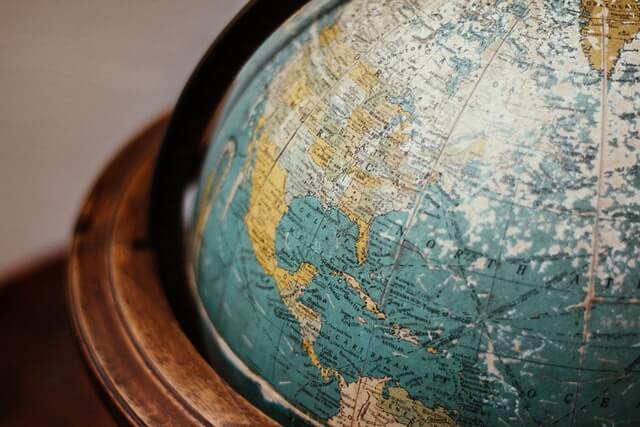
…Be Careful When You Post Online
Sure, we all like to share our adventures on Instagram and maybe even brag about our trips, but none of that is worth sacrificing your safety. How could a couple of Instagram pictures put your safety in question, you may ask? You’d be surprised to know how many stalkers are out there waiting to pick their targets.
By posting about your travels, you may reveal your location to someone with malicious intentions. You never know who may have an eye on you, especially when traveling alone. Make sure not to share posts or stories about restaurants, cafes, or sites before you have left that location. That way, you’ll be sure that no one can come and trace you through your Instagram updates.
Also, posting blow-by-blow updates about your trip could let potential burglars back home know that your house is empty – that’s not to say don’t share your adventures, just be sure to check your privacy settings on social media that you are only sharing with friends and family.
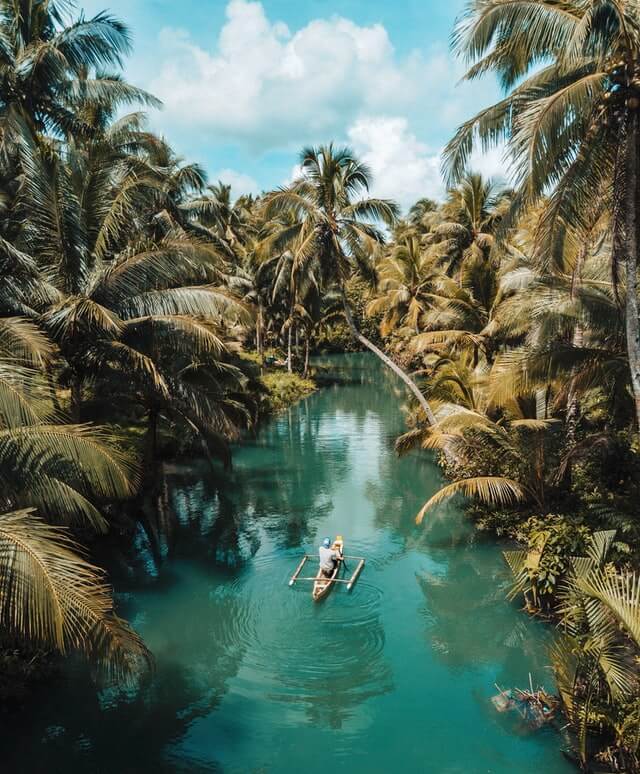
AND Stay Away from Public WiFi
As we’ve mentioned above, staying safe while traveling takes more than just looking after yourself and your belongings in a physical sense. We live in a world where online safety is becoming more important since thousands of cybersecurity attacks occur every second. With that said, you must protect your data and devices when entering a new country or region.
Once you arrive at your chosen destination, try to stay away from free public WiFi , as this is usually the place where most attacks occur. Why? Because it’s really easy to breach someone’s device if they’re connected to the same network as you are. Hackers use public WiFi networks as fishing pools for new cybercrime targets.
Carry Multiple Credit Cards
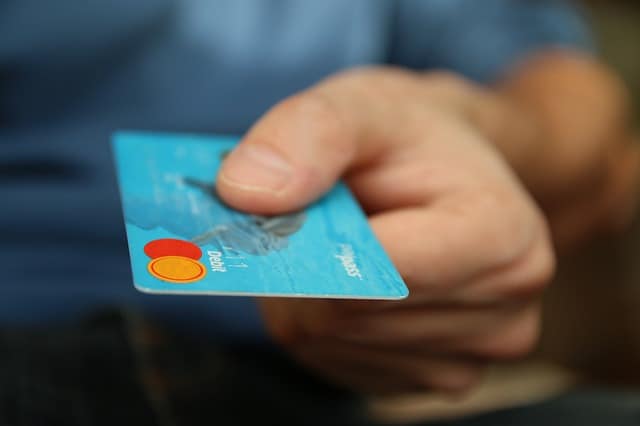
This will allow you to have one as your main spending card, and one as a backup. This means if your main card is lost or stolen (or is eaten by a rogue ATM! etc) you will still be able to access some money.
We recommend credit cards over debit cards because a credit card is always post-paid, which means you will have access to funds you may not otherwise have, and as such, if you need to buy an expensive flight home, you will have funds readily available. (Even if you do plan to reclaim it on your travel insurance later down the line).
We would also recommend having one card each from the two major payment systems – Visa and Mastercard, if possible. While it is rare that somewhere may only accept one and not the other, it can happen. Moreso, an AMEX card may have even more limitations, depending on the destination. (For example, I didn’t bother taking my AMEX to Africa ).
Limit the Amount of Cash You Carry

Carry only what you need on a daily basis, have the majority of the rest in a secure place, and a third stash of emergency cash somewhere separate and secure that you can use as a backup.
Use GPS When Getting Around (Walking, Rideshare etc)
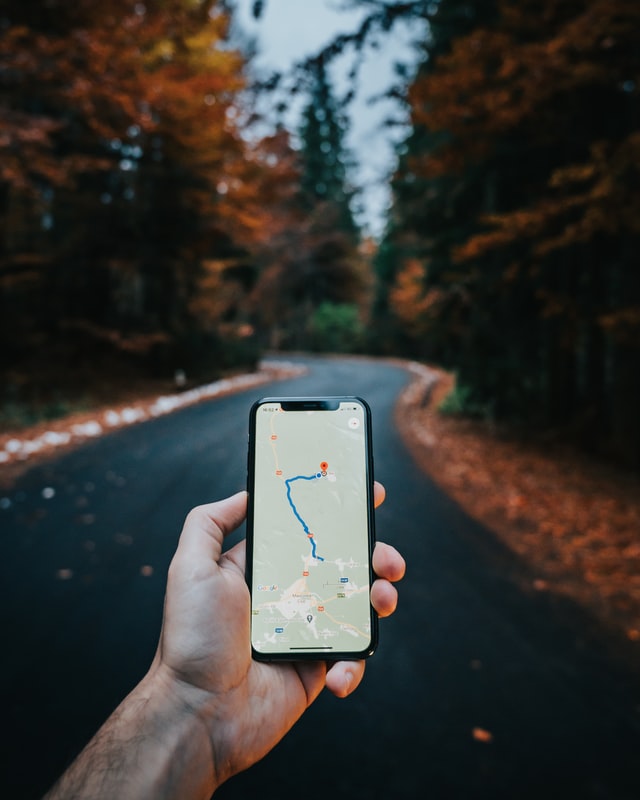
When walking, knowing where you are going will allow you to walk confidently, and make you look less like a target; and in a rideshare will allow you to check the driver is going in the right direction (and not taking the long way round) and share your location with a friend or family member – even if they are not on the trip with you.
If you’re wondering (or worrying) about being able to use GPS in a foreign country, or don’t plan on getting a local sim card – we highly recommend downloading the Google maps of where you are headed and downloading Maps.me. Both allow you to use them offline and give A-to-B directions between points.
If Hiring a Car, check the vehicle for damage before you set off
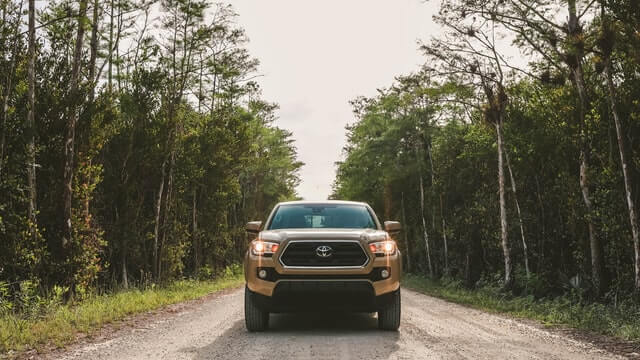
Rental cars are not always in the best condition, and you don’t want to get the bill for someone else’s mistake when you drop it off. It’s best to do a lap around the car and note any scratches, bumps, or dents either on the paintwork or the wheels (don’t forget to check the roof and the interior and car seats!) and make sure those are communicated to the hire company.
It’s also a good idea to ensure you follow any other rules that the rental car company has set out – if the is a distance per day limit, roads you are not permitted to drive on (e.g. unsealed), and what the fill up rate is if you return it empty! It’s the little things that add up!
Know Where to Save and Where to Splurge
Whether it be spending a little bit extra for a decent hotel room over a hostel with a dodgy vibe; or paying for an Uber home instead of walking alone at night (especially if you have been drinking) or joining an organized tour with other travelers, knowing where to spend a little bit extra to enhance your personal safety is one of the best life skills you can have.
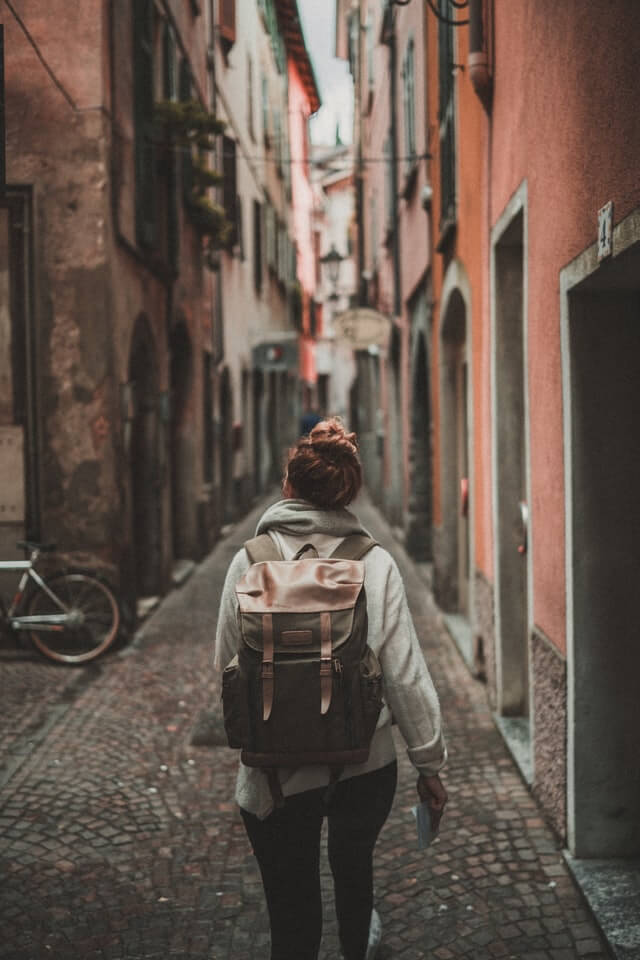
Register, Visit or Get in Contact With Your Country’s Embassy or Consulate
Many countries have tourist protection programs located in their embassies across the world. For example, if you’re a US tourist you can register with the Smart Traveler Enrollment Program . It’s a free program designed to make a destination’s local embassy aware of your arrival and can keep you constantly updated with the latest safety information. Canada has their own version called the Registration Of Canadians Abroad . Australia removed its travel registration system, but has ‘crisis’ pages that can be activated in response to certain events, and the UK doesn’t have any such program.
Regardless, the folks at your country’s embassy in your destination could also assist you in case of numerous situations, whether you end up losing your passport and personal belongings or if something far more dangerous/serious takes place. (In my case, I was in contact with my embassy when trying to get home during the virus-times).
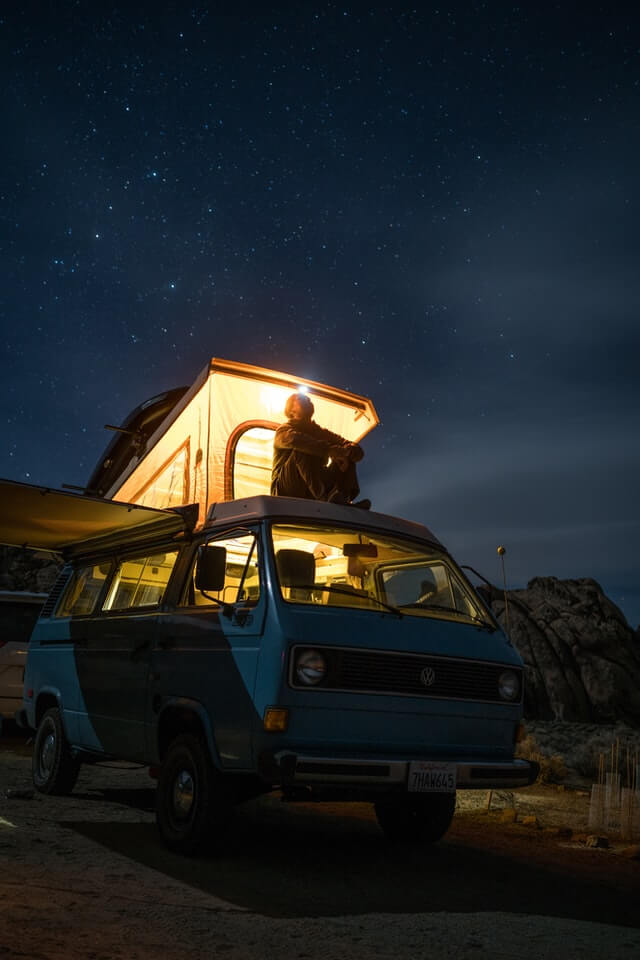
Don’t Share Too Much With Strangers
As well as sharing too much online – you can also share too much with strangers. Whether it’s new friends at a bar, or shopkeepers being overly friendly – you never know who could have ulterior motives.
The best way to keep the conversation light is to not share personal information and only give vague information regarding where you are staying – the area, rather than your street or hotel; maybe it’s close to a certain landmark , etc. You could also mention it’s not your first time visiting, which with an air of confidence, could stop someone from thinking you are an easy ‘mark’.
If you’re feeling vulnerable in the conversation or don’t want to share any information at all (or sense another warning sign) – trust your instincts and make something up. A little white lie isn’t going to hurt anyone, and genuine people won’t care or probably notice.
Food and Water Safety
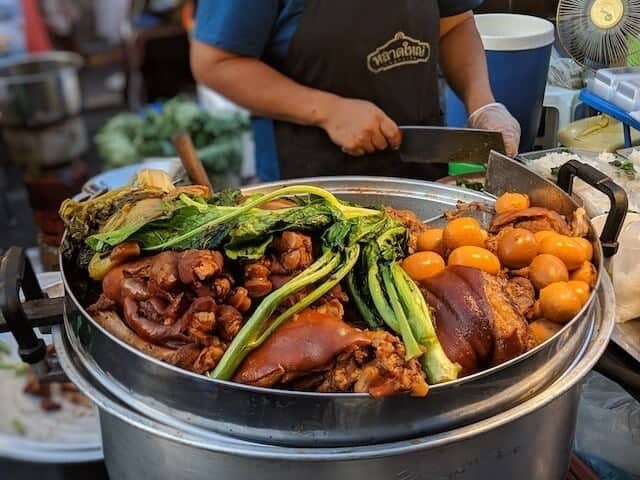
When it comes to drinking water, we all know it is necessary for life and healthy living, but depending on where you are traveling, it may not be as readily accessible as you are used to at home. Ideally, we recommend traveling with a travel water bottle – and where you know there won’t be the facility to refill it from the country’s taps or drinking fountains, a Lifestraw (or steri-pen or equivalent) is a great way to filter your water on the go.
Drink (Alcohol) Responsibly + Keep an eye on your Drinks.
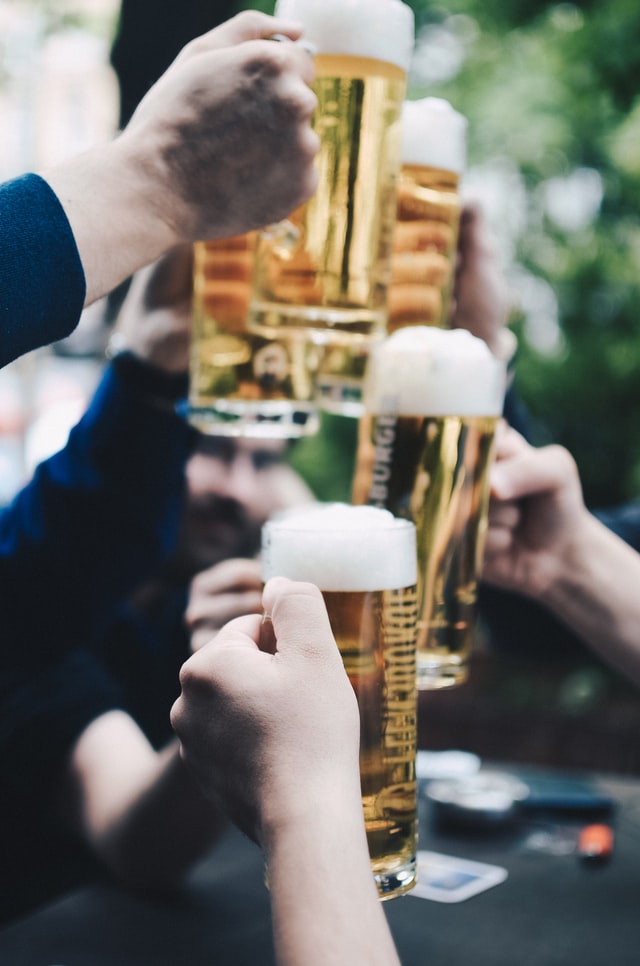
Drinking can lower your inhibitions and make you less aware of unwanted hands on you or your property – and that goes for men and women – which is why not going overboard on the booze (or other mind-altering substances) is one of our top safety tips for travelers of all genders is paramount to personal safety.
Don’t Do Stupid Things for Photos

The signs not telling you to do something are often not only for your physical safety but for the safety of the other people or animals also. And where the signs prevent trespass on personal or religious sites, obeying them respects the locals and their customs, traditions and even their private property.
If Riding a Bike or Scooter – Wear a Helmet
Not only is it a road safety law that both a driver and a passenger must wear a helmet in most countries when riding a bike or a scooter, even where it is not, wearing one is just common sense; not to mention paramount for your personal safety.
Safety Tips for Solo Female Travelers
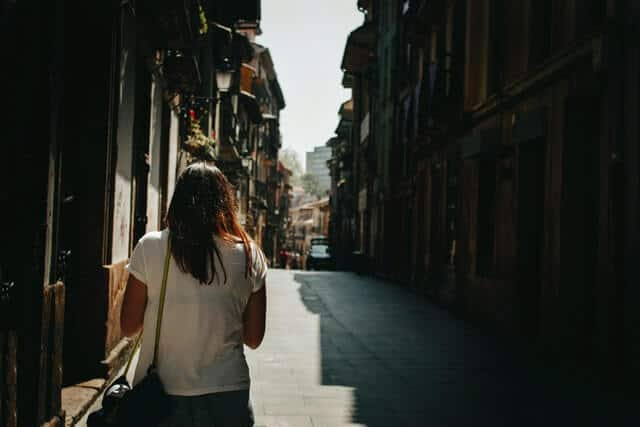
- Keep an eye on your belongings (bag/camera/phone etc) and be aware of your surroundings (for example, don’t have your head down glued to your phone)
- Ensure your day bag is lockable (or otherwise secure) and think about investing in hidden pocket clothing (my favorite is my infinity scarf )
- Be cautious and vigilant in busy areas, on public transport or in crowds with lots of people (particularly train stations or markets).
- Project confidence and situational awareness when exploring.
- Even if you are traveling alone, you are never traveling alone. You’re always waiting for your friend, on your way to meet a partner, etc.
- Carry a personal alarm or safety whistle day to day; and have a doorstop alarm and portable lock for your hotel room.
- Have two debit or credit cards – linked to different accounts – and don’t carry them at the same time (in case one gets lost/stolen/swallowed by a rogue ATM) to make sure you have access to your funds.
- Get travel insurance (if you can afford to travel, you can afford travel insurance) – and carry details of the travel insurance company with you.
- Be mindful of your drinking – that’s not to say not to drink, but alcohol lowers your inhibitions and reaction time.
- Try to avoid exposing too much skin with your outfits. While it shouldn’t imply anything, skimpy outfits make you stand out and can encourage unwanted behaviors. ( As I said, it shouldn’t but it can – and is something to keep in mind when you pack for your trip ). Obviously, beaches and beach towns are the exceptions, but as you move further from the water, it would be best to dress more conservatively.
And that’s a wrap on our top advice for travelers! Bon Voyage! Now that you know all the tips and tricks on how to stay safe while traveling, have fun planning your next adventure without stress.
And if you loved our complete list of safe traveling tips (or now someone heading away that could use them!) please pin, tweet, flip, or share. I’d really appreciate it!
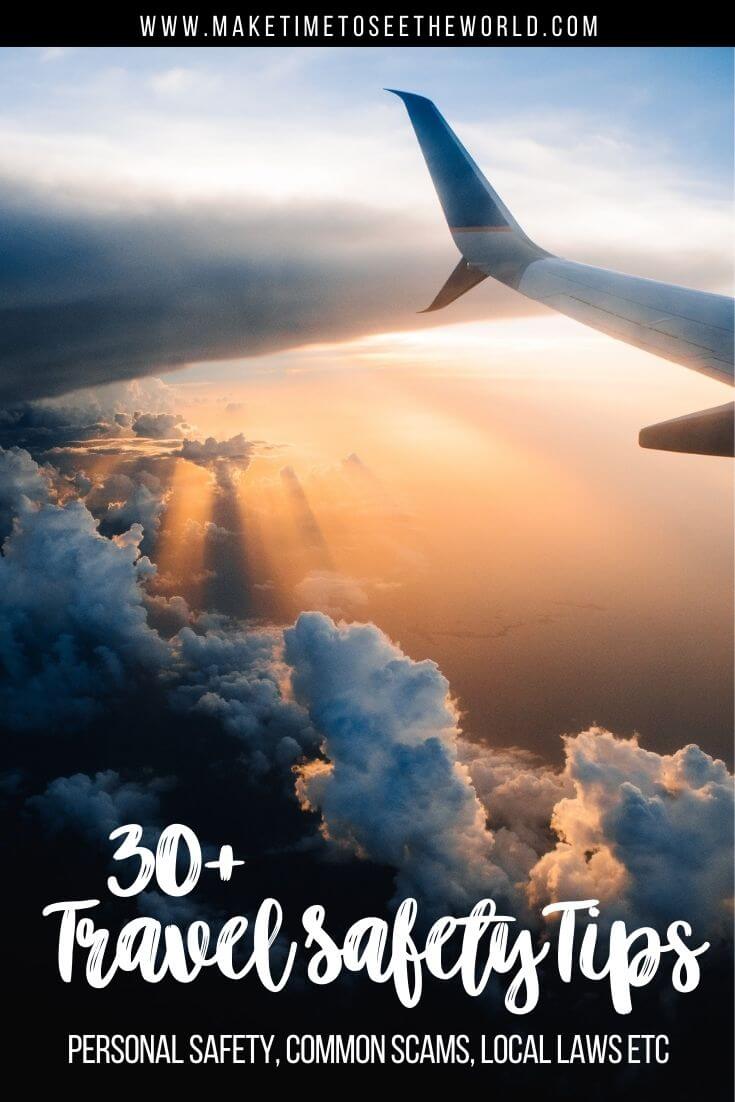
READY FOR MORE TRAVEL INSPIRATION? YOU MIGHT BE INTERESTED IN THESE TRAVEL TIPS, TRAVEL ARTICLES, DESTINATION GUIDES, BUDGET TRAVEL RESOURCES, PACKING GUIDES AND RELATED POSTS ABOUT OTHER PLACES PERFECT FOR NORTH AMERICA TRAVEL:
- Chicago: An Awesome Weekend in Chicago – Things to do, Where to Stay & What to eat!
- California: An Incredible Weekend Getaway in Los Angeles or San Francisco
- Texas: Everything’s bigger in Texas and Dallas & Dallas Fort Worth and Austin are no exception!
- North America National Park Guide Travel Guides: Yellowstone National Park , Arches National Park , Yosemite National Park & Bryce Canyon NP
- Portland: 10 Fun Things to do in Portland Oregon + Day Trips from Portland
- Cincinnati: Things to do in Cincinnati & Day Trip Ideas
- Rest of the World: Iceland , Czech Republic , South Africa , South America etc!
- Gear: Ultimate Packing List , Carry on Packing List , Best Travel Backpacks for Women , Ultimate Europe Packing List
Hi There! Thanks for reading our ultimate guide to 3o+ Travel Safety Tips to know before you go. I just wanted to let you know that this post contains affiliate links, which means if you purchase something after clicking a link, I may get a small commission – which is at absolutely no cost to you . If you enjoyed this article and are going to be searching for some of the things I mention anyway, I would love it if you could click through from the links above & thank you in advance! Read my full Disclosure here . And a huge Thank You for reading the MakeTimeToSeeTheWorld travel blog.
- Credit cards
- View all credit cards
- Banking guide
- Loans guide
- Insurance guide
- Personal finance
- View all personal finance
- Small business
- Small business guide
- View all taxes
You’re our first priority. Every time.
We believe everyone should be able to make financial decisions with confidence. And while our site doesn’t feature every company or financial product available on the market, we’re proud that the guidance we offer, the information we provide and the tools we create are objective, independent, straightforward — and free.
So how do we make money? Our partners compensate us. This may influence which products we review and write about (and where those products appear on the site), but it in no way affects our recommendations or advice, which are grounded in thousands of hours of research. Our partners cannot pay us to guarantee favorable reviews of their products or services. Here is a list of our partners .
9 Ways To Travel More Safely

Many, or all, of the products featured on this page are from our advertising partners who compensate us when you take certain actions on our website or click to take an action on their website. However, this does not influence our evaluations. Our opinions are our own. Here is a list of our partners and here's how we make money .
Whether you're traveling within the U.S. or to a foreign country, you should take extra precautions to stay safe. Distractions born of travel — such as taking in the sights, eating delectable food and exploring new cities — can increase your risk.
But it doesn't have to be this way.
These international and domestic travel safety tips will help you reduce your risk so you can enjoy your vacation and avoid trouble as much as feasible. Here's how to travel safely — ranging from actions that can be implemented on the fly and ones that require a bit more preparation.
1. Digitize important documents
Your wallet or purse is filled with important documents that criminals can exploit. Leave unnecessary items at home (like your Social Security card) and make copies of everything else you would need in an emergency, like prescriptions, a backup credit card (so you can at least make a digital purchase in a pinch) and your passport.
Take a picture and upload them to a secure folder on the web. This way, if anything is stolen, you can easily take steps to reduce the damage that criminals can cause. You can easily call the bank to cancel debit and credit cards and request a new ID from the embassy. You can also use a secure digital vault system like 1Password or LastPass to store these documents.
2. Minimize how much cash you carry
It is important to have a little cash when traveling, but most retailers accept credit cards, even abroad. Not having cash minimizes your wallet's value to a thief, and you can dispute unknown charges from a card. Just make sure to carry a card that has no foreign transaction fees when traveling internationally.
3. Look less like a tourist
The more you dress and act like a local, the less risk there is from criminals targeting you as a tourist. Adapting your style to that of the locals, walking with confidence and keeping maps hidden can help you blend in. When using directions on your phone, only look at it briefly while walking.
Further, familiarize yourself with the city and your route before leaving the hotel. If you do need to look up directions for an extended period of time, consider stepping into a store or cafe to do so, rather than staying outside.
4. Share your itinerary with someone you trust
Whether you're traveling alone or with others, share your itinerary with someone you trust back home. Check in once a day to let them know that you've made it to your next destination or back to your hotel. These small steps increase your safety during travel.
It's also wise to create and share a safe word so that family or friends would know if you're in trouble, even if the conversation seems normal to someone else who may be listening. You can take this a step further and consider sharing your live location with a trusted friend or family member via your smartphone.
5. Research travel advisories for destinations
According to the U.S. Department of State, "conditions can change rapidly in a country at any time." Its website keeps a continuous list of travel advisories in destinations around the world. While these advisories don't always mean that you shouldn't travel, they do help make you aware of the potential conditions you'll find when you arrive, or areas to avoid.
Check the State Department website before making travel plans, and again before you depart. Somewhere that may have been safe when you booked your trip may have deteriorated since then.
6. Sign up for Smart Traveler Enrollment Program
The Smart Traveler Enrollment Program , or STEP, is a free service from the State Department that allows citizens traveling or living abroad to receive the latest security updates. The information that you provide also makes it easier for the nearest U.S. Embassy or consulate to contact you in an emergency.
7. Notify credit card companies of your travel plans
Because you may be traveling to cities outside your normal spending patterns, let your bank know your dates and destinations of travel. Many banks allow you to notify them via your online banking portal.
This will minimize the potential of the bank locking your account due to perceived fraudulent transactions, which could leave you stranded.
Additionally, consider bringing a backup credit card.
8. Be careful with public Wi-Fi
Wi-Fi can open your devices and sensitive information to hackers. Using a VPN service is one of the best ways we know of to stay safe in an airport, when exploring your destination or at your hotel. VPN services create a secure connection to protect your personal information when browsing the internet or using web-connected apps on an open connection.
Security.org , a security product review site, conducted a study in June 2020 and found that just 31% of U.S. internet users use a VPN service for public Wi-Fi connections. That means almost 70% of public Wi-Fi users are at risk of being hacked.
9. Get travel insurance
To improve both your physical and financial safety, consider purchasing a travel insurance policy ahead of your trip. This safety net is helpful in avoiding out-of-pocket expenses for emergency medical treatment, trip delays, cancellations or interruptions, lost luggage or evacuations.
Most policies will reimburse travelers for unused accommodations, transit or activities that were nonrefundable but had to be canceled for a covered reason. Similarly, if your luggage is lost by an airline or train company, you’ll likely get reimbursed through the baggage protection on your policy. Plus, if your policy has emergency medical coverage, you won’t be hit with a huge bill for medical attention overseas (where your U.S.-based health insurance is likely not useful).
Some credit cards come with built-in protections, whereas others don’t — in the case of the latter, you will need to purchase a stand-alone policy .
If finding ways to travel safely is your goal …
Now that we've shared some tips on how to travel safely, you can travel with more confidence and less risk. Though implementing most of these tips has little or no cost, they may take time to set up. Investing the time to increase your travel safety will be well worth it if you can avoid dangerous situations that can interrupt or ruin your next trip.

on Chase's website
1x-5x 5x on travel purchased through Chase Travel℠, 3x on dining, select streaming services and online groceries, 2x on all other travel purchases, 1x on all other purchases.
60,000 Earn 60,000 bonus points after you spend $4,000 on purchases in the first 3 months from account opening. That's $750 when you redeem through Chase Travel℠.

1.5%-5% Enjoy 5% cash back on travel purchased through Chase Travel℠, 3% cash back on drugstore purchases and dining at restaurants, including takeout and eligible delivery service, and unlimited 1.5% cash back on all other purchases.
Up to $300 Earn an additional 1.5% cash back on everything you buy (on up to $20,000 spent in the first year) - worth up to $300 cash back!

on Capital One's website
2x-5x Earn unlimited 2X miles on every purchase, every day. Earn 5X miles on hotels, vacation rentals and rental cars booked through Capital One Travel, where you'll get Capital One's best prices on thousands of trip options
75,000 Enjoy $250 to use on Capital One Travel in your first cardholder year, plus earn 75,000 bonus miles once you spend $4,000 on purchases within the first 3 months from account opening - that’s equal to $1,000 in travel.

10 ways to stay safe no matter where you’re traveling
Sponsored by
Mar 31, 2023 • 4 min read

Safety and adventure aren’t mutually exclusive. These 10 tips can help you avoid almost any setback © AnemStyle / Shutterstock
Travel always involves a bit of uncertainty. And there will always be location-specific warnings to observe depending on where you’re going. The good news is there are several proven precautions you can take ahead of time and while traveling to stay safe and navigate any unexpected catastrophes when away from home.
Here are 10 tried-and-true methods to dodge danger and maximize your enjoyment of practically any destination. Remember, safety and adventure aren’t mutually exclusive. And feeling anxious is totally natural. Either way, you got this!

Before you leave
- Check local advisories. Traveling to Iowa comes with a different set of risks than, say, traveling to Africa. The same is true when traveling to Europe, Latin America, Asia, or to any specific country within every continent, let alone specific regions that demand their own precautions. For the latest information, if you’re traveling from the US check the State Dept website , as well as local news reports, and travel guides to your specific destination.
- Get your shots (where needed). Not every location demands special immunizations before visiting. But many of them do, especially less developed countries and continents. What’s more, the pandemic made things a lot more complicated, as certain countries drop or maintain proof of vaccination before entering. Either way, if you’re in the US check with the CDC for any destination-specific shots you might need before boarding your flight.
- Share your plans with emergency contacts. Doing so can be a simple but life-saving act, especially when traveling off-grid, on high adventure trips, or in more dangerous destinations. Tell your friends and loved ones when and where you’re going, what you’re doing, where you’re staying, how you’re traveling, and how they can get in touch with you should anything come up.

- Know common scams. In many countries, individuals might feign assistance and incessantly follow you, only to later demand payment for their unsolicited help. Others might wow you with offers that are too good to be true, work in teams to distract you and take your goods, or worse. Many travel advisories will include this information, but some extra online searches can go a long way to expose and help you avoid any harm to your wallet and/or your safety.
- Get travel insurance. If you really want to cover your bases while abroad, you’ll want travel insurance, such as that offered by Seven Corners . Doing so can help recoup your money if you need to cancel a trip (or your flight is delayed) and cover the cost of treating medical emergencies while traveling, including care at foreign hospitals and medical evacuation, lost bags, early returns home, and many other unexpected mishaps.

While traveling
- Know your limits. Feeling nervous before traveling somewhere new is normal. But if you’re feeling downright sick about your plans, you’ve probably bitten off more than you can chew. The best pre-test of an experience is whether you’re still excited about it, even if it’s something you’ve never done before. After you arrive, however, be sure to listen to your mind and body and back out of anything you’re not comfortable with.
- Eat and drink like your life depends on it. This is especially true on high adventure trips. Dehydration is easily preventable but amazingly one of the leading causes of illness while traveling abroad. So, drink more water than you think, plan for regular bathroom breaks, and stay away from street vendors unless you’re certain they’re free from food poison.

- Secure your valuables. It’s always important to protect your personal property, be it in parked rental cars, beach bags, or wallets and phones in your usually secure pockets. Again, travel advisories will often alert you to higher areas of petty theft but be on the extra lookout when traveling someplace new.
- Avoid getting too close to wildlife (or the edge of a cliff). Many years ago, an American college student was sadly (but unsurprisingly) eaten by a lion after sticking her head out of a car window while at Lion Park in Johannesburg, South Africa. Others become seriously sick after licking psychedelic toads in Sonora. And far too many tourists have fallen to their deaths while snapping selfies at the ends of a cliff. Don’t do it. No photo is worth your life or good health.
- Stay alert. Be on the lookout. If you’re not sure about something, step inside a public building, follow the crowd, and trust your gut, especially if you find yourself in unfamiliar surroundings or cultures. Although you may be tempted to “travel like a local,” don’t do it. You’re probably not as experienced as they are and that’s okay. Instead, travel like a respectful tourist and accept that you don’t know everything. Doing so will keep you safe.

Despite what the news will sometimes have you believe, the world is a safer than it has ever been. Yes, there are risks. But when traveling, these 10 tips can help you avoid almost any setback. Bon voyage!
Sponsored by Seven Corners
As a travel entertainment and inspirational media outlet, we sometimes incorporate brand sponsors into our efforts. This activity is clearly labeled across our platforms.
This story was crafted collaboratively between Seven Corners and Lonely Planet. Both parties provided research and curated content to produce this story. We disclose when information isn’t ours.
With sponsored content, both Lonely Planet and our brand partners have specific responsibilities:
Brand partner
Determines the concept, provides briefing, research material, and may provide feedback.
Lonely Planet
We provide expertise, firsthand insights, and verify with third-party sources when needed.
Explore related stories

Aug 5, 2024 • 7 min read
Adrenaline-pumping activities, pristine beaches, dense rainforests, Costa Rica has it all. Here's what you need to know before you go.
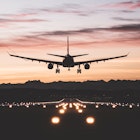
May 23, 2024 • 4 min read

Aug 24, 2024 • 7 min read

Aug 24, 2024 • 10 min read

Aug 23, 2024 • 8 min read

Aug 23, 2024 • 0 min read

Aug 23, 2024 • 7 min read

Aug 23, 2024 • 5 min read
Solo Traveler
Solo travel tips, destinations, stories... the source for those who travel alone.
Solo Travel Safety: 50+ Proven Tips to Keep You Safe
August 20, 2024 by Janice Waugh
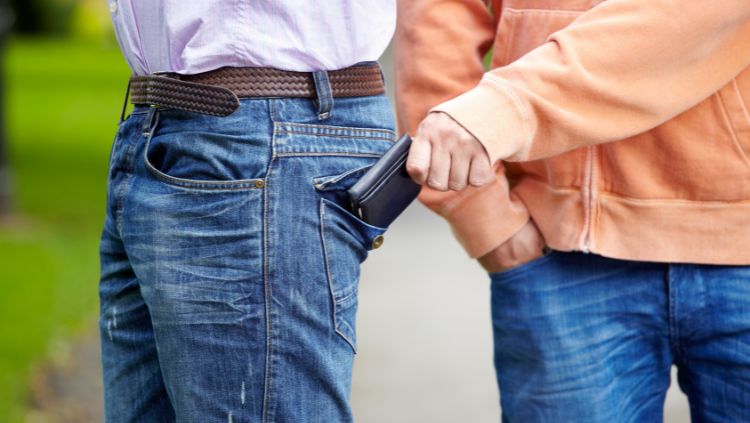
In all my travels, I have encountered remarkably few problems. I believe it's mostly because I think in terms of prevention. With experience, I naturally plan and travel in ways that protect my safety. For those who don't have the experience and for those who might find a few surprises in this list, below are over 50 solo travel safety tips.
My goal with these tips are to help you:
- prevent problems from arising
- be aware when they could or do arise
- decide how to manage them if they arise
When it comes to travel safety, prevention comes first. True, no amount of prevention guarantees safety. Things happen! Still, prevention is an important start and a significant aspect of these 50 solo travel safety tips.
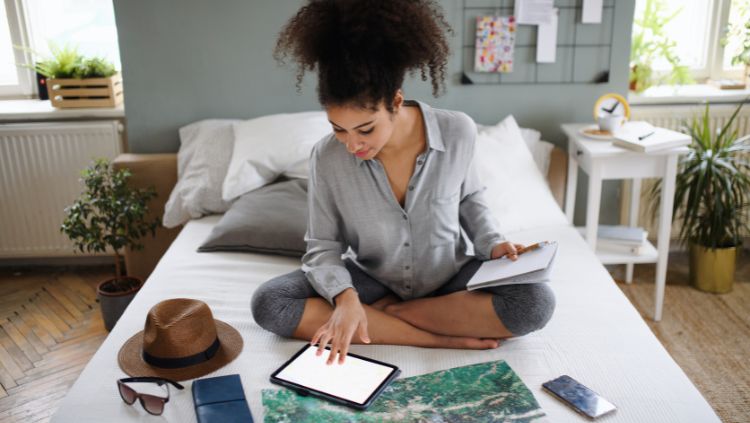
Table of Contents
Solo Travel Safety Starts with the Right Plan
- Safety begins before you leave . Research is important. Knowledge protects you from the danger of misinformation, unsavory individuals, and/or naively wandering into an unsafe area. Imagine how you can be taken advantage of if you don't understand the currency. Or the health problems you could face if you don't know the necessary vaccinations for your destination. Or the potential loss of money, documents, and more if you don't know the unsafe areas at your destination. Understanding your destination before you go is key to your safety when you're there.
- Know your strengths and weaknesses . If you are new to travel, you likely have a lot to learn. If you've traveled a lot but have never traveled solo, you have different issues to resolve. We have a lot of content on the site for those embarking on their first solo trips. Read Travel Solo for the First Time: Complete Guide for Newbies .
- Choose your destination carefully . We all have different ideas of safety. Some would never consider certain destinations for safety reasons while others would. Make sure the safety level of your destination meets your personal travel safety needs. Read Where to Go? Great Destinations for First-Time Solo Travelers and check our Destinations section, which features posts written by solo travelers who've been there. Of course, use guide books as well.
- Check your government’s travel site. Your government likely has information on the travel documents you require for travel as well as any warnings for your destination. Here are links for travel alerts for the United Kingdom , United States , and Canada .
- Register with your government. I certainly don't do this every time I travel but if you're going for a few weeks, registering as a citizen traveling abroad is a good idea. Use the links above.
- Buy travel insurance before you go. I have World Nomads insurance. They are the only company I know that lets you buy insurance after you leave your country. However, it's certainly not after you need to make a claim. It keeps life simple and safe to buy insurance before you go. Read Travel Insurance for Solo Travelers: How to Make Sure You’re Protected or Best Travel Insurance for Seniors: How to Find What’s Right for You .
- Schedule your arrival during daylight. The first stop for most travelers in a new destination is their hotel or hostel. I suggest that you arrive in the mid-afternoon so that you can really see what kind of area you're staying in. A safe area will always look better in daylight. An unsafe area is more obviously so in daylight. But there are more very practical reasons to arrive during daylight. You will be able to find your accommodation more easily and if you don't like it, you will have time to make other arrangements.
- Know how you will get to your first accommodation . Your arrival in any new country, especially one where you don't know the language or the local transit system, is important. Research how you'll get from the airport to your hotel or hostel (I use Rome2Rio ) and give yourself lots of time. You will need it as you learn how their transit system works. If your flight arrives late in the day, you may want to avoid the transit system and splurge on a taxi to be on the safe side.
- Study a map before you leave. I'm one who loves maps so this is an obvious step for me. But even those who do not love maps are advised to look at one and get the lay of the land. For example, if you were to look at a map of Toronto you'd note that the lake is south no matter where you are in the city and the CN Tower stands high near the lake. If you get turned around look for the tower. If you can't see it, ask someone which way the lake is. Not everyone knows north and south but locals know where the lake is. The same logic can be applied in New York City and many other cities based on major landmarks.
- Develop your navigation skills . Before leaving home you can wander into a different town or part of town and practice your navigation skills. Read How to Navigate a New City Solo: Travel Safety Skills .
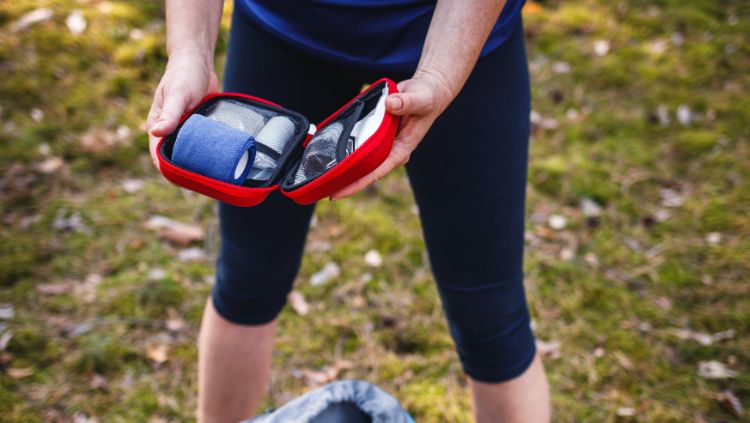
Travel Gear to Pack
I'm not really a “prepare for the worst and hope for the best” kind of person, even when it comes to solo travel safety. That said, when I buy products for travel, I try to buy ones that will increase my personal safety and the security of my things. Necessary, they have rarely been. But it's great to know that they are there.
- An extra place to stash cash . This silk bra stash is a handy way of hiding a bit of extra cash. Available on Amazon . You can also consider a money belt or a neck stash .
- Pickpocket-proof clothing . Pants and jackets with extra, hidden pockets offer additional places to keep cash. Here's a link to Amazon's many pickpocket-proof items .
- Anti theft day pack . The Loctote AntiTheft Sack is a safe and it's a backpack. Take it with you or leave it in your room locked to an immovable object with your valuables inside and everything will be safe. It's also great for the beach.
- Water purifier . Stay healthy and save plastic water bottles with the Grayl Ultralight Water Purifier .
- hand sanitizer in travel-sized bottles
- Basic Band-Aids. They're essential.
- NEOSPORIN® NEO TO GO!® First Aid Antiseptic/Pain Relieving Spray is a compact antibiotic spray. It's perfect for travel.
- Dr. Frederick's blister plasters
- acetaminophen
- BENADRYL® Itch Relief Spray for insect bites. I used to use calamine lotion but it makes such a mess and stains everything. This spray is far easier to use and just as, if not more, effective.
- DEET-free Insect Repellent from Repel .
- Instant Cold Packs
- Any medications recommended by my travel clinic
- The right wallet . Identity theft is a real thing. RFID skimming is where, with the right technology, a person near you can gather data from your credit cards without your knowledge. There's little evidence that it constitutes a huge threat but there's no harm erring on the side of safety. RFID-blocking products are available in the form of hard-shell card holders and leather wallets . Here's some more information about RFID-blocking from NordVPN.
- A doorstop. Small and light, these can be very handy in smaller hotels off the beaten track where card keys and deadbolts are not common. Simply squeeze the doorstop under your door for greater solo travel safety.
- Whistle . A whistle attached to your day bag can be handy if you feel the need to draw attention to yourself and scare away any unwanted attention.
- A VPN on all your devices . A VPN is mentioned below in the tech section but it can't be emphasized enough. Read: Best VPN for Travel: What, Why, How and New Recommendations .

How to Keep Your Money and Documents Safe as You Travel
- Protect yourself from pickpockets . Pickpockets target travelers. Fortunately, there are things you can do to prevent them from pickpocketing you. Get all the details by reading How to Avoid Pickpockets and Protect Your Valuables .
- Use credit and debit cards wisely. How you manage your money as you travel is very important. For example, to save money, walk past those money exchange kiosks at airports and use an ATM in the city.
- Don't carry more than you need. If you have a card that does not charge you for taking funds from international ATMs, it's best to take out small amounts frequently rather than carrying large amounts of cash. The exceptions are when ATMs are hard to find or you will need more money than normal for a particular reason.
- Get a credit card that doesn't charge foreign transaction fees. The Chase credit cards are known for being good for this in the US.
- Carry a spare credit card. Not every card works everywhere. Carry a spare for such a situation or in case you lose your card.
- Keep emergency cash hidden . You can carry it on your body and have some tucked away in your suitcase or backpack.
- Don't take unnecessary documents with you . For travel, you likely need your passport, driver's license, visa (if the country you're visiting requires one), travel insurance, and possibly proof of vaccination. You don't need your social insurance card, checkbook, and the like. Leave the latter documents at home.
- Have multiple copies of your documents. I carry my original documents with me as I travel. I like the security of knowing where they are at any given moment. I have scanned copies in my Lastpass vault. You can do the same with Nordpass . I also have photocopies of my documents in my suitcase or backpack which is, on a typical travel day, in the hotel or hostel. Finally, I leave copies of these documents with my husband at home. Read about using Lastpass and Nordpass for documents here .
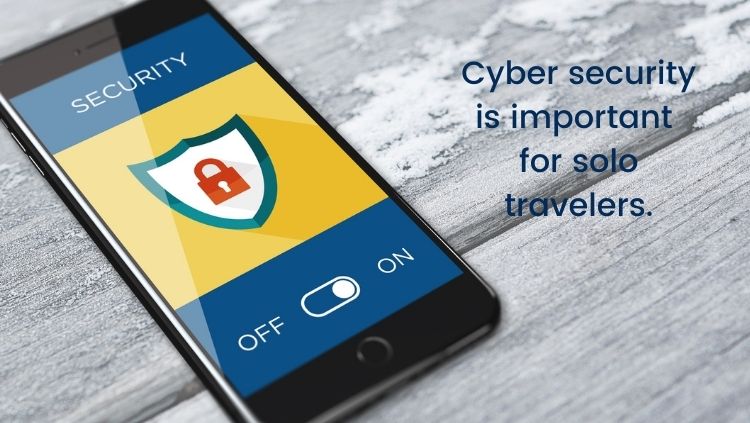
Technology for Travel Safety
- Understand the risks . We interviewed two cybersecurity experts. Read what they had to say about how solo travelers can protect themselves and their data while they’re on the road and what to do should problems arise.
- Use a VPN. Before you use a credit card online or check your bank balance or, basically, go into any website that requires a password, make sure you turn on a VPN. It's almost impossible to travel and not use public Wi-Fi whether it's in the hotel or a café. Here are our recommendations .
- Pre-program numbers into your phone, like your accommodation phone number, your government’s consulate office, and 911 if you are in North America.
- Make use of digital safety tools. There are hundreds of safety apps and tools on the market. From basic apps that come pre-installed on phones to a few specially designed for travel safety, we share our recommendations in 10 Solo Travel Safety Apps: Technology for Peace of Mind .
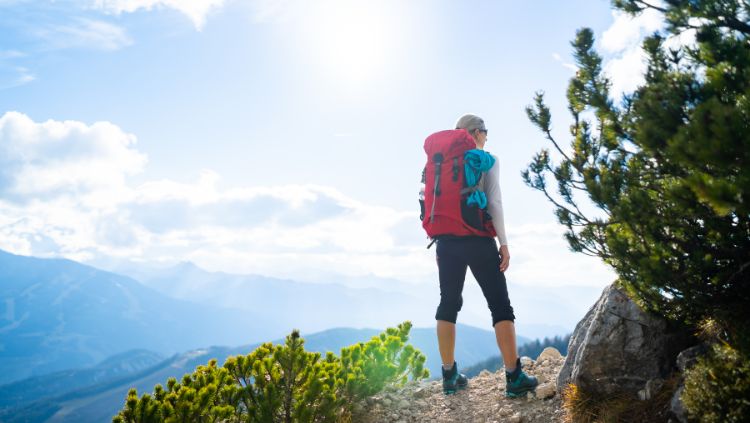
Solo Travel Safety Tips for While You're On the Road
Remember all those rules your mother taught you to ensure that you stayed safe as a child? They also make great solo travel safety tips. Apply them rigorously when you're traveling.
- Trust your instincts . If it doesn’t feel right, leave. Whether it's a bar or a park or a hostel, if you don't feel good in the situation, if your spidey senses are tingling, it's best to get out of there.
- Know the typical con games of your destination . If someone wants to give you something for free it may be a good idea to decline. A rose is often offered on the streets of Barcelona to draw travelers in for a con. A ring apparently found on the ground and offered to you as the person who possibly lost it, is another ruse to turn away from. Familiarize yourself with the common con games travelers encounter. Here's a list of 40 tourist scams .
- Stay in public. I learned this lesson the hard way. I was caught in a con game and, fortunately, I did not leave a public place. Had I done so my life would likely have been much different.
- Where you're staying is personal information. Don’t tell strangers where you’re staying either in words or actions. Your accommodation should be your safe haven.
- Going out at night? Read this post on Night Safety for Solo Travelers: How to Have Fun and Be Safe .
- Stay alert. Sleep well. Stay sober . While it's wonderful to sink into a destination, luxuriating in its culture, it's also important to stay safe. Being well rested and sober is key to being alert and exercising good judgment, both of which are key to your safety. If you are not one, the other, or both, recognize that fact and be extra careful.
- Walk with confidence. In tourist areas such as around the Eiffel Tower, meandering as a tourist makes sense. However, there are other circumstances where you want to walk like a local, as if you know exactly what you're doing and where you're going. You don't want to look like a tourist. That requires that you walk with confidence. Read Solo Travel Confidence: How to Be Strong, Capable, and Safe
- Blend in as well as possible . Blending in requires more than just walking with confidence. Be aware of cultural differences and blend in if possible. Read 12 Ways to Blend In When You Travel Alone .
- Be polite. Be impolite. Being impolite can definitely get you into trouble. If people take offence at your behavior it's hard to know what can happen. So, definitely be polite under most circumstances. But if a person is bothering you, being polite can get you into trouble too. For solo travel safety, know when and how to make a lot of noise and attract attention to yourself and the person bothering you.
- Pack right . You're more mobile and have less to lose when you pack light. Read: Carry-on Packing List: This Is How to Pack Light . Use a distinctive mark on your luggage other than a name and address tag. Keep your luggage tags with your flight ticket. It's important to be able to confirm that the luggage is indeed yours. You may also want to keep your name and address inside your bag for proper identification if needed.
- Don’t flash wealth. Leave expensive things at home. Don't wear jewelry or flashy clothes and accessories that will attract attention. Even if they don't go after your jewelry, they may target you and pick your pocket.
- Keep your belongings close . Hold your wallet, camera, and phone close to you. Never keep your wallet in your back pocket. Keep the number of things you're most concerned about to a minimum. For me, it's my wallet, phone, and passport. Having just three things makes them easy to carry and keep track of.
- Take special care of your documents . I keep my passport on me. I keep my plane ticket on my phone plus paper copies in my bag. I keep extra money in a couple of places and an extra credit card separate from the one I regularly use.
- Carry the business card of your hotel or hostel. Getting back to your hotel or hostel is pretty important but it can be a challenge if you're in a country where you don't speak the language. When you check in, get a business card from the establishment and carry it with you.
- Don't automatically jump in to help . If you see someone suddenly in need of help, get someone else to go to their aid with you. A local is better able to help and having someone else involved will protect you should the incident be a con game.
- Always carry a map. While walking around with a map in your hands may make you look like a vulnerable tourist, having one on you can be very helpful. If you're lost, stop into a shop to look at it and get assistance. They are especially helpful when you don't know the language. You can point to your destination, making communication easier.
- Understand the city transit system. Riding public transit is a great way to get to know a city and its culture. But, before you go, know how safe it is, how much the fares are and how they are paid, whether a pass is a good idea, and the basic routes you'll be taking.
- Take a break once in a while. This goes along with staying aware of your surroundings. If you're experiencing travelers fatigue, join a day tour or cooking class or something that will make for a simple, interesting, and relaxing day.
- Ask for a room on an upper floor.
- If you are a woman, ask if there is a women-only floor or dorm.
- Be aware of the alternative exits.
- Before you go out, ask about safety.
- When you return at night, ask for an escort to your room if you are nervous.
- Use the security lock.
- Lock important items in the room safe.
- When you leave your room, leave the TV and a light on, if possible. Put out the “do not disturb” sign to suggest that there is someone in the room.
- Check the hotel or hostel reviews on a site like Booking.com for what people say about safety.
You may also want to read:
- Solo Female Travel Safety: Advice for What Women Worry About
- Solo Travel Over 50: Embrace New Adventures on Your Terms
- A Road Trip Alone: Complete Guide for an Epic Adventure
- How to Prevent or Deal with Getting Sick Traveling Solo
Sharing is caring!
Publisher Janice: info @ solotravelerworld.com
Editor Tracey: tracey @ solotravelerworld.com
Sales Simon: simon @ solotravelerworld.com
Get Solo Travel News & Deals
- Create Your Advertiser Account
- Login to Your Advertiser Account
- Solo Travel Statistics
- Media & Speaking
- Privacy Policy & Disclosure

The content of Solo Traveler and any resources published by Solo Traveler are meant for entertainment and inspiration only. Please note that while we have advertising clients promoting destinations, products, services, trips and tours on Solo Traveler and that we endeavour to only work with companies in which we have confidence, we are not responsible for the delivery or quality of their products or services. Every person and every travel situation is different. Your safety, satisfaction and fun traveling solo are your responsibility alone and not that of Solo Traveler, its publisher, editor and/or writers.
PRIVACY POLICY & DISCLOSURE: In accordance with FTC guidelines, I disclose that I may be compensated if consumers choose to utilize links located throughout the content on this site. Additionally, some posts might be sponsored to support this site. Please do the appropriate research before participating in any third party offers. All opinions are my own. Please read our full Privacy Policy here.

25 Essential Safety Tips for Travel
We hate scaremongering when it comes to travel because we know that with a little common sense, traveling the world doesn’t have to be dangerous. Sharing our safety tips for travel with you will go a long way to ensuring you enjoy your next trip.
More often than not, it’s the places that are perceived as ‘dangerous’ that might just be the safest for travelers. Sometimes it’s the more touristy areas where you really need your travel safety tips in hand, to avoid petty criminals or worse.
Our safety tips have been collected from years of experience, and these will help you to hit the road with more peace of mind. Our tips can be as simple as keeping your valuables in the hotel safe or keeping up to date of political events in a country.
Make sure you have adequate insurance, you check government warnings but always remember to keep an open mind and don’t let fear stop you from having an adventure!
To help you to plan your trip abroad, here are our top safety tips for travel.
Safety Tips for Travel: Pre-Trip Tips
Table of Contents
1. Keep up to Date on Local News

You never know what can happen when you are abroad, and in today’s fast-changing and fast-paced world, anything can happen quickly, whether you are in Paris or deep in the deserts of Central Asia.
It’s good practice to stay informed when you are on the road, and one of our top travel safety tips is to keep up to date with the local news.
If it looks like there might be protests in the next city, maybe reconsider visiting, or if there has been an unusual number of incidents involving tourists, perhaps keep away for the time being.
We make a habit out of reading news for the destinations we are visiting a few days before we leave and then every morning at breakfast while in the destination.
We also stay up to date on news in our home country, just to ensure nothing major is going on that might affect our travels.
This is best done by downloading the apps onto your phone or tablet for easy access.
2. Watch the weather

As well as keeping up to date on local news, one of our best travel tips is to also keep up to date on the weather.
This is more important in some countries than others, and if it’s going to be a typhoon season in the Philippines, you might want to consider visiting at a different time of year.
But bad weather can affect your travel plans anywhere, and flooding could disrupt transport in England, or avalanches could be a danger in the Pyrenees in spring.
If it’s particularly hot you’ll want to keep hydrated, while if it’s going to be cold, you’ll want to make sure you take adequate cold-weather gear with you.
In regards to the weather, it is absolutely essential that you do your research on the best times to visit the place you want to travel to.
This will give you invaluable insight into what to expect and how to prepare for the time period you plan to travel there.
3. Check Government Websites

Another of our top safety tips for travel is to check government websites before you travel.
Many governments and embassies keep up to date profiles on countries around the world, and provide detailed rundowns on practical information such as entry requirements, and also on the political climate.
Websites such as the UK’s Foreign and Commonwealth Office also break down which regions within a country are safe to travel to. While Istanbul might be completely safe, traveling to the border between Turkey and Syria isn’t going to be quite so advisable.
Remember, of course, that these government websites are always going to be more over the top than the actual situation on the ground, and in some cases, government travel warnings can be politically motivated, rather than warning of any likely physical danger.
They are a good place to start though when you are planning your travels, and you are looking for more detailed safety tips for travel.
I can’t stress enough to just use this as heads up of sorts for your travels. We’ve traveled to many places on the warning list and had a wonderful time. The key is to be informed, not paranoid or afraid.
4. Buy Travel Insurance

One of the best tips for travel we can give is to take out adequate travel insurance . Travelers on a budget often overlook this as an unnecessary expense, but when it comes to keeping safe on the road, nothing beats a good insurance policy.
If you get hurt or injured, with a good insurance company behind you, you’ll be able to get instant access to the best health care in the country. If the political situation in a destination deteriorates then you’ll also be able to get out quickly.
There is a multitude of reasons to take out a solid insurance policy, but always read the small print, and check in detail for what you are actually covered for.
Some sporting activities might not be covered under basic policies, such as scuba diving to certain depths or trekking at high altitudes, so always make sure the policy you buy covers you for everything you might need.
No matter where we go, our travels are covered by Allianz Travel Insurance . We don’t travel without it nor should you. If you take more than one trip a year, it is also cost-effective to consider an annual insurance plan .
5. Leave a Copy of Your Travel Plans with Family
We literally never leave home without emailing copies of our flights, hotels and tour plans to a couple of members of our family. At the very least, your emergency contact should have copies of this information before you leave home.
In the rare chance that something does happen to you, it will go a long way for someone to have your complete travel records. It doesn’t have to be anything fancy. Create a spreadsheet in Google Docs and send the link.
Be sure to include your flight info for all flights, domestic and international including flight dates, times and numbers, all of your hotels and any tours that you have booked.
6. Check-in Regularly at Home
Now, you don’t have to paranoid about this but once you arrive at your destination, stay in touch back home.
Let someone know how things are going and if your plans are going according to the way they are booked. Also, notify them if there are any changes.
This will not only put your family’s worries at ease but also provide the necessary information in the rare event that something happens.
7. Email Yourself Copies of Important Docs
We each have a folder in our email inboxes labeled Travel Docs. This is where we save digital PDF copies of our important documents for our travels.
This includes our passport, driver’s license, medical records, vaccination records, TSA pre-check letter, Global Entry card, birth certificate, marriage certificate, travel insurance policy and any other docs we may need access to while traveling.
In the event that you lose your passport, find yourself in the middle of a political situation, are arrested or any number of other issues, it will be imperative that you have quick access to this information when overseas.
8. Be Medically Prepared
Depending on where you are traveling, you will also want to look into what vaccinations you need beforehand, and what potential diseases you can contract.
If you’re in malarial zones, then take precautions against this, while in some countries, you might need specific vaccinations, such as for Yellow Fever, to even gain entry.
Do not take vaccinations or prophylactics lightly. We highly advise that you make an appointment at an International Travel clinic near to you at least 6 months prior to your trip to discuss with a doctor what vaccinations you may need.
Read more Essential Travel Vaccinations Guide: What You Need & Why
9. Take a First Aid Kit

One of our favorite safety tips is to always carry a First Aid Kit with you are on the road. It doesn’t have to be large or extravagant, but it should give you the basic items you need to deal with minor injuries.
Take Tylenol or ibuprofen for headaches and pains, and antiseptic for cuts and grazes. In tropical climates small wounds can easily become infected quickly, so make sure you have the capacity to clean them quickly.
Make sure you have rehydration packets too, as becoming dehydrated while traveling is extremely common and often overlooked. We also never leave home without Neosporin and Hydrocortisone cream.
This is a great starter first aid kit if you need one: First Aid Only 299 Piece All-Purpose First Aid Kit, Soft Case .
Travel Safety Tips: While Traveling
10. use the hotel safe or hostel lockers .

It’s a traveler’s worst nightmare to return to the room and find that their valuables are missing.
Unfortunately, this can happen anywhere, be it a high-end hotel or a hostel, and if you are carrying electronics or spare cash, you’ll want to lock it away when you go out for the day.
If you’re staying in hostels, make sure that there are lockers in the dorm rooms, and check if you need to provide your own padlock too. In hotels, learn how to use the safe properly, and lock away your valuables inside.
Equally, you can consider padlocking the zippers on your bags when you travel, or you can even invest in a personal travel safe if you want to take things to the extreme!
Our favorite travel locks are: TSA Approved Luggage Travel Locks paired with a 7Penn Steel Cable Lock with 4-Digit Tumbler Combination 3ft Long Cord
11. Consider Using a Money Belt
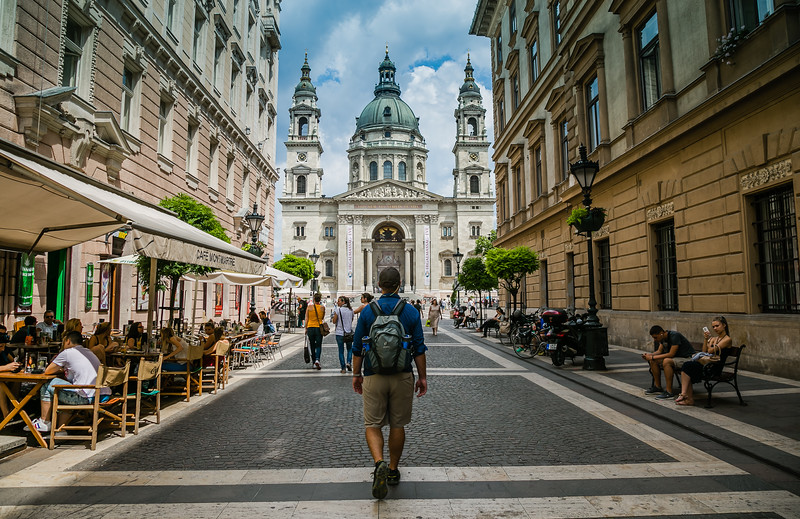
Another great safety trip for travel when it comes to keeping your valuables secure is to utilize a money belt or similar accessories to keep things hidden away.
These aren’t always foolproof, as the most intrepid of criminals might always find a way to separate your money from you, but hiding your spare cash and passport can at least stop opportunistic criminals from relieving you of your things.
We’ve also seen people using neck pouches that can be hidden under your clothes. Some claim these are more comfortable and easier to access when you need to.
12. Don’t Flash Your Valuables

Equally, another of the common-sense safety tips for travel is to not flash your valuables.
Don’t advertise your expensive electronics, and in some places, you won’t even want to have your phone out to use as a map while you’re walking around.
Bali, in Indonesia, is notorious for drive-by muggings, and many a tourist on the back of a moped has been relieved of their phone while they are riding around directing.
When you’re on trains or buses, anywhere in the world, keep your valuables in the seat with you at all times.
I think it also goes a bit without saying, but don’t leave your electronics out unattended. Whether on the charger, on your bed or on a table. This just invites opportunity.
13. Leave Your Diamonds at Home
If you are considering wearing your diamonds or fancy jewelry while traveling abroad, there are a few things that should be taken into consideration before making your decision.
- LOSS: How would you feel if your ring was lost or stolen? Is it worth the risk?
- UNWANTED ATTENTION: Are you comfortable attracting attention to yourself? Flashy jewelry will turn heads in the quietest of places. Remember, some countries people make in a year equal to what you are wearing on your finger or neck.
- SECURITY: There is no guarantee that you will be able to find a safe, secure place to keep your diamonds when you do not want to wear them. Not all hotel safes are secure.
- INCONVENIENCE: Are you doing adventure activities or spending lots of time at the beach or in the water? You don’t want to miss out on things because you have nowhere safe to put your diamonds or jewelry.
- SAFETY: Wearing nice jewelry makes you an easy target for robbery and crime- even in the nicest of cities. The wealthier you look, the more at risk you are for incidents.
Our Advice? Leave the diamonds at home! The photo above shows both my wedding ring and the band that I wear when I travel.
I am not willing to risk those diamonds, not to mention they are vintage depression era stones, so I picked out a solid Tungsten band for traveling.
I picked that band up on OverStock for less than $30.
14. Be Careful of Pickpockets

When you’re traveling in crowded cities, public transport can be a haven for pickpockets, be it the London Underground or the metro in Barcelona.
Keep your valuables close, and be aware of your surroundings. If it’s peak time, you might want to avoid crowded public transport too and walk instead.
If you are lounging on a popular tourist beach, then be extra careful of your belongings, as one glance away and you could be relieved of your bag. On night buses and trains, be careful with your bag, as you could easily wake up only to discover it’s gone.
Never carry your wallet, cash or passport in your back pocket. EVER.
15. Wear Your Backpack/Camera/Purse on the Front in Crowded Areas
If you like to carry a purse or day bag with you when you’re out exploring, just know that doesn’t mean your contents are secure within it.
If you happen upon a crowded area, get on a packed bus or train, we advise that you immediately put your bag in front of you and keep it there.
This will limit access to your bag without your awareness. If you have a backpack , just turn it around and wear it on your chest. With purses, we strongly recommend you keep the strap on as a sling and then slide it to the front of your body.
If you like to carry your camera out when you travel, this is the part where I advise you to invest in a sling strap. Or at least a strap that is long enough to wear as a sling when you need to.
Someone is going to be way less likely to make an attempt on your camera if you have it more secure to your body.
Knowing where your bag/camera is and who is near it will go a long way to keeping your things protected from opportunistic theft.
16. Know the Scams

Scams designed to separate you from your money or items are prevalent all over the world. The people that operate them do so for a living and are very good at conning even the most conscious traveler out of something, so don’t think it cannot happen to you.
It will go a long way to do some research ahead of time and learn what the common scams are in the places that you are planning to visit. This will help you to spot these situations from a mile away.
These are some of the most common scams you will come across while traveling:
- Broken Taxi Meter: This will usually result in you being charged double, or more for your ride.
- Hotel worker: When you come across a local on the street that claims to work at your hotel. A technique used to get you to spend money at their shop.
- When a taxi driver says “That hotel/hostel does not exist anymore”: A lie to get you to book a room at their hotel
- Flattery: If you are suddenly approached and flattered to no end, move your purse to the front of you and walk away.
- Damaged Motorbike/Car Rental when returning: Always, ALWAYS, take photos of your car/bike when you pick it up and return it.
- Offering to take your photo: And then promptly runs off with your phone or camera
- Let me see the map on your phone: Then snatches the phone and runs
17. Use Ride-sharing Apps

Another of our top travel safety tips is to use ride-sharing apps where you can. Although this means having WiFi or investing in a local SIM card, using apps like Grab in Southeast Asia or Bolt in Europe, provide a new level of accountability.
As well as being easier to use if you don’t speak the local language, there’s no need for negotiation and no chance of being ripped off.
You can also track where you, where you are going, and importantly, all the drivers are verified and their number plates registered.
The top ride-sharing apps worldwide are:
- Uber.
- Lyft.
- Zimride.
- Trees For Cars.
- Wingz.
- Juno.
- Gett.
Not all countries will offer the same ride-sharing services, so be sure to do your research in advance so you can have the right apps downloaded when you arrive.
To be honest, we rarely use local taxi services anymore and have relied solely on ride-sharing apps for almost 2 years now when we travel.
18. Dress & Behave Appropriately
This is one of the most important safety tips for travel. Not all countries around the world will share the same dress codes and behavior that you do in your home country.
Do not, under any circumstances, travel to a place and think this is not important.
Whether you agree with things in that country, or not, you are choosing to travel there. If you want to be safe and respected by the local people, dress in a way that offers that. Be aware of cultural behavior and comply when you can.
Going to a foreign country and spouting frustratingly about things because they are not done that way at home, will get you nowhere. It also won’t buy you many fans. The key is to immerse in your new environment and do your best to blend in.
19. Wear a Helmet & Buckle Up
This is a simple one but it always blows my mind how few people actually do it. If you have the ability to buckle up in a vehicle when in transit, do it.
There are many countries in the world where not buckling up is illegal. Not to mention that you’re choosing to disregard your own safety.
Motor laws are very different in many foreign countries and with some cities being jam-packed with drivers, the risk of being in an accident is increased when you travel.
The same goes for wearing helmets. If you are getting on a motorbike or a horse, put on the helmet. There are literally no advantages to not doing it.
20. Food Hygiene is Important
There’s nothing worse than getting ill on the road, and unfortunately, the vast majority of travelers – especially long term travelers – will inevitably end up getting sick.
This can be down to unfamiliar foods and diets, but most important of all is food hygiene. While you don’t want to not eat local food, just be careful.
Watch how it’s prepared, check reviews online if you are going to a restaurant, and be wary of anything that might have been left out for too long in the sun, or that was prepared in the morning and is still for sale late at night.
We’ve been sick while traveling more times than we care to admit, ranging from mild stomach upset to full-on raging sick.
All from ill-prepared food. At this stage, it is kind of an inevitable thing with travel. so be mindful, but know it could happen.
Be sure have these items in your first aid kit, just in case you need them:
- Nuun Sport: Electrolyte-Rich Sports Drink Tablets (will literally turn off diarrhea)
- Emergen C Tablets
21. If It Doesn’t Feel Right, Don’t Do It

This safety tip for travel is simple. If it doesn’t feel right, don’t do it. More often than not it can be very clear if something seems sketchy, and if the taxi ride seems too good to be true or if the city seems dangerous after dark, then follow your gut instincts.
This also goes for animal welfare. If you see things that don’t look right, do not support it.
You don’t want to feel uncomfortable, so make a wise choice and reevaluate, rather than regretting things later on or getting into danger.
22. Minimize Your Alcohol Consumption
We know it can be exciting to finally be on vacation and exploring a new place. While it is perfectly acceptable to consume alcohol while traveling, it is very important that you refrain from getting trashed.
Drinking too much, especially when you’re in an unfamiliar place, can lead to some dangerous situations. Have a couple at dinner or with new friends at the bar, but we highly recommend avoiding getting drunk.
We’ve seen some pretty scary stuff in our travels, with people being dangerously drunk and getting taken advantage of. Not drinking responsibly can be a great way to separate yourself from your money, dignity, and safety.
23. Keep Your Guard Up with Strangers
This one is a bit of a double-edged sword, but in our experience absolutely critical when you are traveling in a new place.
In your travels, you’re likely to encounter many friendly people that are willing to give you company or help you out.
While it is perfectly fine to chat with people and make friends, make sure you are not giving away too much trust, too fast. 90% of the people that you meet traveling are harmless and genuinely want to get to know you. The rest is what you have to worry about.
Consider a person’s motives, ask questions and protect your own interests if something doesn’t feel right. Don’t be afraid to say ‘no thanks’ and walk away.
Certainly, don’t give away sensitive information to new people you meet. This includes where you are staying.
24. Explore with Purpose
This is one of the best safety tips for travel we can give you. When you are out on the streets, walk around with a sense of purpose.
Even if you are lost, you should still try to walk around as if you know where you are and where you are going. This makes you less of a target.
If you need to check your map or phone, pause to look at something or sit down at a cafe for a coffee to regroup. This is better than searching on the sidewalk and appearing lost to passerby people.
25. Have a Cash Stash
This is something we started doing when we started long term travel. To ensure we always had something, in the event that we were robbed, we began stashing money in random places within our luggage and items.
This ensured that we would have something to fall back on if our wallet or carry bag was stolen.
Luckily, we never had to utilize the cash stash (you get hyper-vigilant when you travel full time!) but it was comforting to know we had it.
More on Travel Planning:
- How to Plan A Trip: Step by Step Guide
- How to Save Money for Travel: A Step by Step Plan
- 10 Killer Tips on How to Find Cheap Flights
- 11 Easy Tips on How to Find Cheap Accommodation
- The Best Travel Wallets for Your Important Essentials
- 7 Exotic Places to Travel Without a Passport
- 21 Amazing Travel Adventures to Inspire Your Next Trip
- Travel Insurance for Europe Vacation: Do You Need It?
- How to Choose the Best Travel Insurance Policy
- 10 Reasons to Have Annual Travel Insurance
Did you like this story? Share it!
Travel planning resources, about lina stock.
Lina is an award-winning photographer and writer that has been exploring the world since 2001. She has traveled to 100 countries on all 7 continents. Member: SATW, NATJA, ATTA, ITWA
2 thoughts on “25 Essential Safety Tips for Travel”
What a fantastically thought out list! This is so so helpful and some amazing tips here, even as a season traveller it’s important to remind yourself!
Thanks very much 🙂
Precaution is better than cure. Thanks for sharing these safety tips which are very important for everyone.
Leave a Comment Cancel reply

31 Travel Safety Tips Everyone Should Know
Enhance your travel safety with practical steps like registering travel plans with embassies, insuring your trips, and learning local customs to blend in seamlessly.

Travel, whether it’s near or far, has so many benefits. It can be an eye-opening educational experience, and it’ll make you feel united with the world around you. It might even change your life—BUT only if you’re safe!
Like any new experience, travel does not come without its risks. That’s why I’ve put together these travel safety tips: to help you plan ahead, stay aware of your surroundings, and give you peace of mind as you embark on your next adventure!
Register with Your Embassy In Case of Natural Disaster or Civil Unrest
Despite all our best planning, we can never be prepared for extreme forces outside of our control. Registering with your Embassy before you travel ensures that if something truly dangerous happens in the country you’re visiting, you know your government will be actively looking out for your safety and well-being.
This includes situations like the Earthquake and Tsunami in Japan, or the civil uprising in Nicaragua last year. In these cases, the US Embassies actively worked to help American citizens evacuate safely. They can also help you with issues regarding your passport.
Registration is usually simple. For Americans, go online to the STEP (Smart Traveler Enrollment Program) web page to submit your passport information, travel dates, and destinations. This will notify Embassies in your region so that if disaster strikes they can contact you quickly and begin assisting you.
Check the State Department Website for Travel Warnings
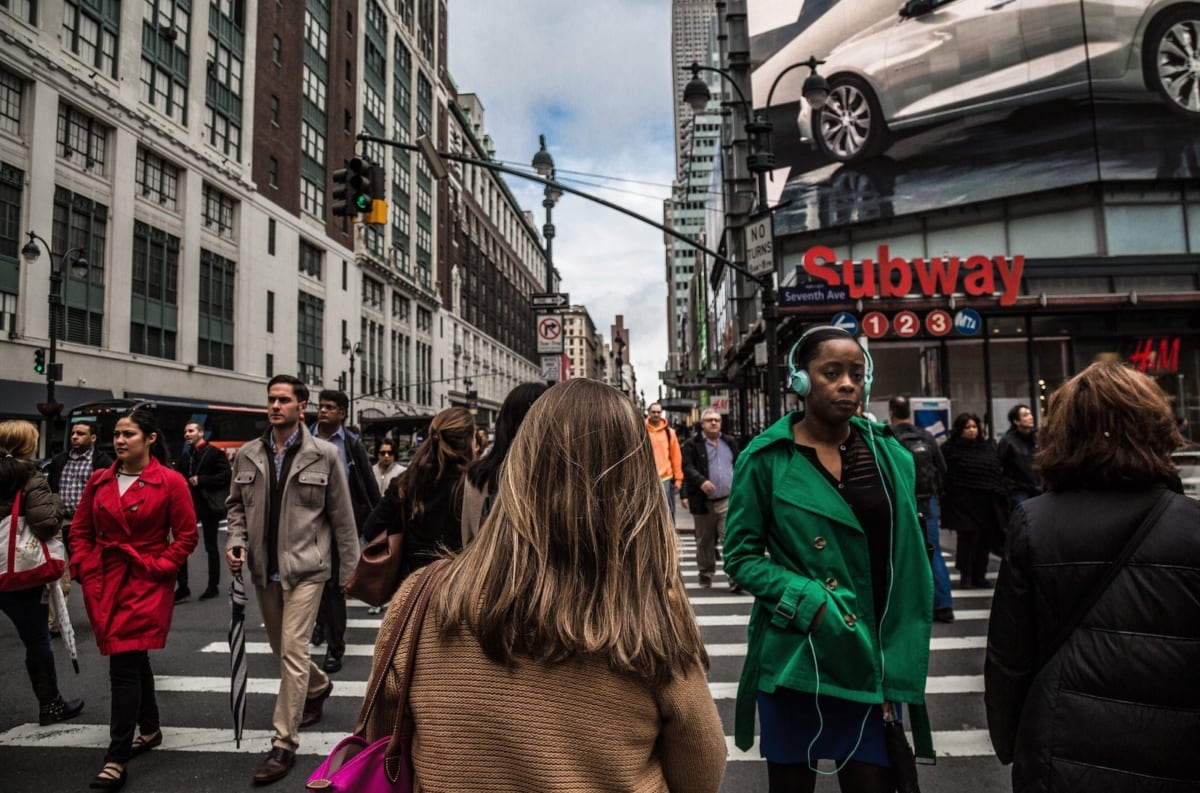
Researching all the exciting things you can do and see while on travel is a big part of the fun. But while you’re looking at paragliding in Colombia , or the best museums to visit in Paris (seriously, go see the D’Orsay), take some time to read the latest from the State Department’s travel safety warnings.
Now, most of the time these are worst-case scenarios, and the warnings generally list what could happen in that region–not necessarily what will happen. Still, it’s best to have a look and to keep checking for updates as you get closer to your arrival.
Travel warnings will usually be accompanied by useful travel safety tips. Things like pickpocketing are prevalent in most urban destinations, but warnings of things like violent crime should not be taken lightly.
Do your research, read carefully, and put yourself in a situation to avoid the most reported on areas. As travelers, we love the excitement of exploring new destinations and learning more about the world, but that doesn’t mean we need to put ourselves in unnecessary danger.
You can even sign up to get email updates for travel tips and warnings on the area you’ll be visiting.
Get Travel Insurance for Peace of Mind
This is one of the most important travel safety tips. This necessity is too often seen as a luxury, but in regards to safety, there is no question that the list of benefits for getting travel insurance far outweighs the cost. Trip cancellation or delay, lost baggage, and emergency medical coverage are must-haves.
At this point, the question of travel insurance should not be “ is travel insurance worth it? ” but rather “which travel insurance company is best for my next trip?” It’s no secret that there are travel insurance companies out there that may be trying to take advantage of you by charging high deductibles or making it nearly impossible to file a claim, but that shouldn’t deter you from seeking the travel insurance coverage you need.
Make sure you report your loss as soon as possible to expedite the claims process. And don’t forget to insure your electronics. Camera equipment, laptop, and cell phones can be covered depending on the insurance company.
If you’re unsure how to choose the best travel insurance company, fill out the form below to instantly get a quote.
Share Your Travel Itinerary with Family and Friends So They Know Where You’re Heading
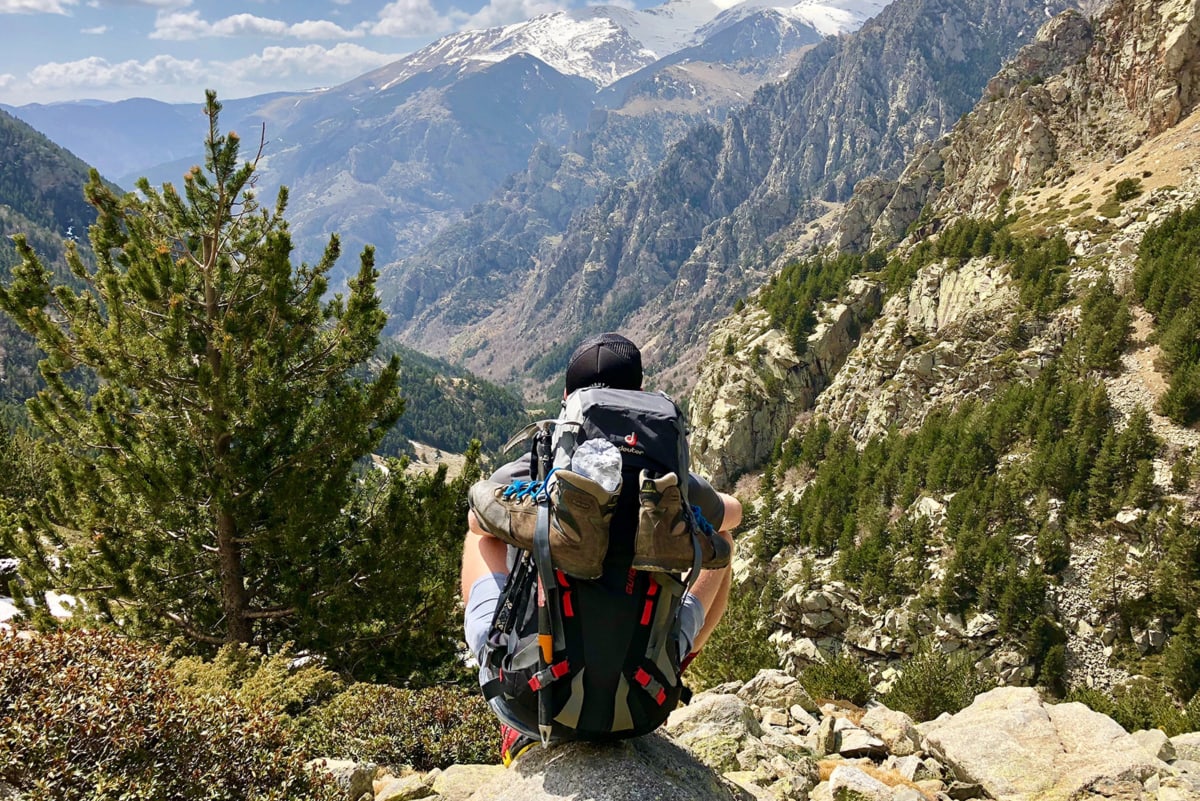
I know that some of you might prefer to go rogue for a few months. Freedom and privacy may be highly coveted, but too much of a good thing can sometimes put you in a bind.
Give close relatives or friends a general breakdown of your travel itinerary before you take off, even if your itinerary is a loose one. A list of the countries and cities that you will be visiting and your dates of travel is a good start.
This serves two purposes: they’ll feel good knowing that they’ve got some insight into your travel and that you know you plan to travel safely, and you’ll have an extra cushion of someone looking out for you while you’re off exploring.
Social media is a great way to keep people updated as you go, but oversharing can put you at risk. Make sure you’ve updated your privacy settings to keep strangers off your social media if you plan to use those platforms to share your actual travel plans.
And remember to send your close friends and family a more detailed note if your travel itinerary changes considerably. If you’ve canceled your plans to hang out in London in favor of traveling with the new friends you just met in Italy, we urge you to let someone know where you’re headed.
Seek Out Updated Location Specific Travel Safety Tips So You Know Recent Trends
When it comes to travel safety tips, scams, and trends, no two destinations are the same. Because of this, the travel safety tips you read for one country or city may not apply to the next.
Be specific with your research when it comes to the latest information on travel safety tips. Don’t just search “is Morocco safe?” but search “2019 safety tips for Marrakech.”
This applies to talking to locals during your travels too. If you’re planning to head to a new city nearby, ask the locals if they’ve heard any news or have any tips to travel safety in that area. Chances are, they’ll have a lot of insight for you.
Hostel staff are also a great resource here. They may be local to the area, or they may be travelers like yourself with some pretty good tips on safety in the immediate area. Whether it’s bars with bad reputations, common travel scams, panhandling, or pickpocketing sights, your hostel staff will (usually) know about it.
And then share what you’ve learned–make sure to share those travel safety tips with friends you meet along the way.
Get the Right Vaccinations to Stay Healthy
Getting sick while traveling sucks. So you take a few over the counter meds and spend a day in bed. But getting super sick? Like, Dengue fever sick? That can be the end of your travels for the foreseeable future.
Be preemptive. In some cases, you need to prove you’re vaccinated from certain diseases before some countries will even let you in.
Do your research on vaccination requirements, and carry your shot-card (often a little yellow book) with your passport so you’re always prepared to show it at immigration.
Notify Your Bank So They Don’t Freeze Your Card When You’re Traveling
This one is simple and only takes a few minutes. But not doing it, and having your credit card frozen, can cause you hours or even days of frustration and could pose a serious problem.
If your bank doesn’t know that you’re traveling in other countries, they may see your charges or withdrawals as potentially fraudulent and freeze your credit card. Once that happens, you’re going to struggle to call them internationally during their business hours to verify your purchases and to get your credit card reactivated.
Most banks offer this feature on their mobile banking app. Simply enter your travel dates and destinations to report to the bank that you’ll be on the move.
Have Multiple Banks Accounts So You Can Transfer Money Easily
Losing your bank card or having it stolen is a traveler’s nightmare. But if you have multiple bank accounts, it could just be a hiccup instead of a show-stopper.
Give yourself the ability to transfer your funds remotely by having at least two working bank accounts. They can even be with the same bank.
If your bank card goes missing, call the authorities, freeze your bank card, and then move your money to your other account. That way, you can keep going with your travels while the bank and the authorities take care of your open case or claim.
The same goes for credit cards. Don’t be put in a bad situation where you can’t access your own money.
Write Down Emergency Information to Speed up Assistance
There are a few important aspects to emergency information: your medical information, your passport information, and local emergency points of contact.
You should always carry a card on you with your medical information like blood type, allergies, and someone to contact (usually your parents or spouse). That way, if something happens to you, it gives very crucial information to whoever is providing you aid.
And wherever you chose to keep that is where you should also have a little card where you’ve jotted down things like the country’s emergency phone number (it may not be 911).
When you check into your hostel, hang out a minute longer at the front desk and copy down the local emergency information. Put it in your phone as well, but that should not be the only place you’ve got it.
Learn Basic Self-Defense for Protection
Note that I didn’t say “learn to beat someone up” or “perfect your three-finger punch.”
Basic self-defense is an important skill to be used in a worst-case scenario. Learning to defend yourself includes learning how to diffuse a dangerous situation without personal altercation, as well as the importance of buying yourself time to get away quickly and safely.
The goal is to avoid conflict and keep yourself safe. It is not your job to teach someone else a lesson with your cool kung-fu moves.
Consider taking some krav maga or karate lessons before you travel, and emphasize to your trainer that your goal is self-defense. Find an instructor that guides you in the right direction.
Book Your Travel with Trusted Sources to Avoid Getting Scammed
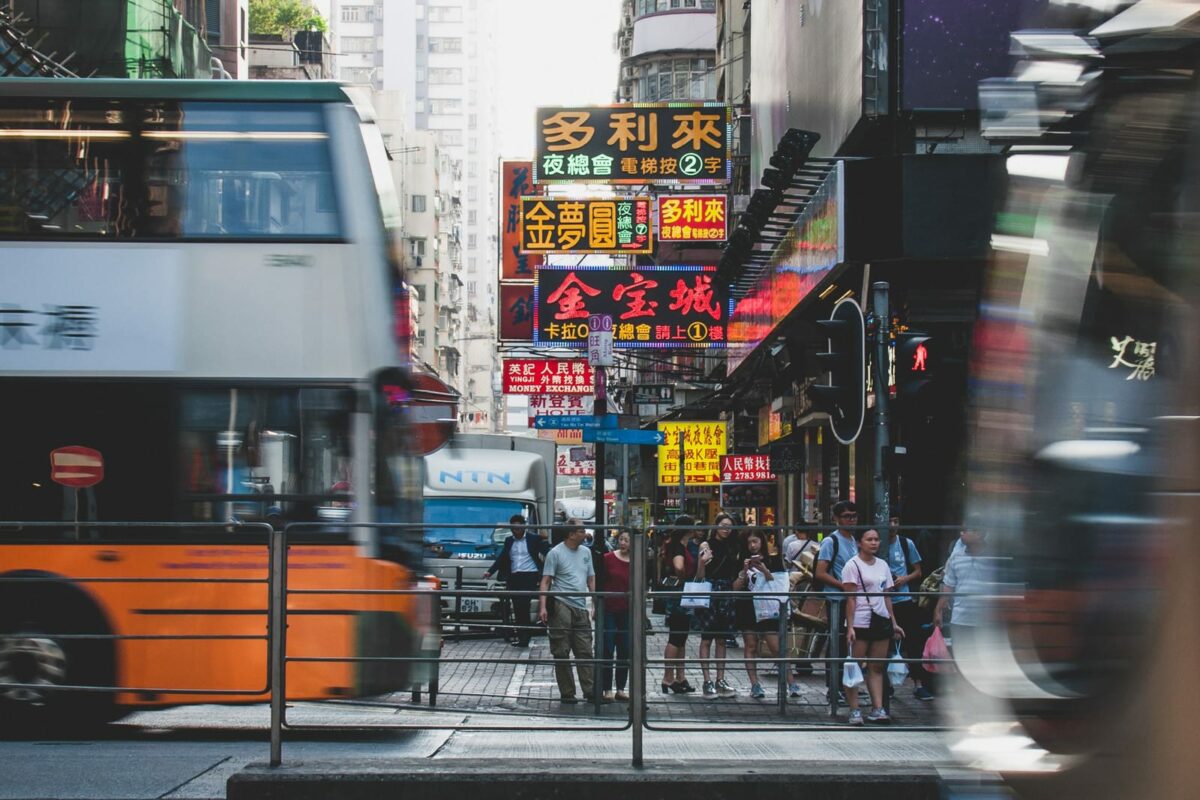
When booking travel online, whether it’s buses or flights, any price that seems too good to be true usually is. Keep an eye out for common signs of scam sites, like ones that have too many pop-ups and poor formatting. Make sure any website that asks for payment has a trusted business indicator (like the ones provided by Visa and Mastercard) displayed on the website. These scammy websites count on their readers not paying attention, so don’t give them the satisfaction.
As for booking travel in person while you’re in a foreign country, stick to your hostel recommendations or highly-rated local travel companies. Odd company names or ones that aren’t located in travel hubs (like bus terminals or airports) should be scrutinized heavily.
In some cases, even legit companies could be getting paid-off by malicious groups to rope unwitting tourists in, so that they can rob their bus en route.
Cheap transit is not always your best bet. Remember, you don’t just want a good deal, you actually want to make it to your destination safely.
Stay at Decent Hostels for Security and Safety
I’m looking at you, my ultra-budget travelers out there.
It may be tempting to book the cheapest possible place to stay. Hell, extreme budget travel is practically a sport for some travelers. But there are certain things you shouldn’t skimp on, and a clean safe place to sleep is one of them.
Not to say that safe accommodation has to be expensive, but your main concern should lie with things like locks, lockers, and a 24hr front desk. The only people that should be able to access your hostel at night are staff and tenants. That way you can get a truly worry-free night’s sleep and be ready to step out on your next adventure.
Wear the Right Clothes So You Don’t Stand Out
Dressing appropriately for your surroundings has multiple benefits. Not only does it show that you are respectful of the local culture, but it helps you blend in as well. Dressing like a “tourist” makes you a target for potential theft.
Try to keep your travel wardrobe minimalist, so you can add a flare of local attire depending on where you are visiting. Pickpockets and other nefarious characters are constantly on the lookout for people who don’t look like they belong. And don’t wear your flashy, expensive-looking jewelry or fancy brands as this can also be an open invitation for trouble.
Bring a First Aid Kit for Minor Injuries
Scrapes and burns may not seem like a big deal, but staying healthy is, and health is a part of safety. Traveling is sometimes dirty business. With rocky hikes and dusty buses, you never know what might happen, and you need to be in control of your health as much as possible.
It doesn’t take much for a small cut or splinter to get infected, so do yourself a favor and keep your own first aid kit on hand and easily accessible. Be hyper-aware of any small injuries you get along the way. Foot injuries can be especially susceptible to contamination and dangerous to your health.
Band-Aids, antiseptic, and clean gauze are a good start for a basic kit. You should also consider vitamin-c and throat lozenges to stave off the pesky common cold, and Imodium in the event that the food you eat doesn’t… agree with you. Don’t be embarrassed. We’ve all been there.
Inspect Transaction Points to Avoid Fraud and Theft
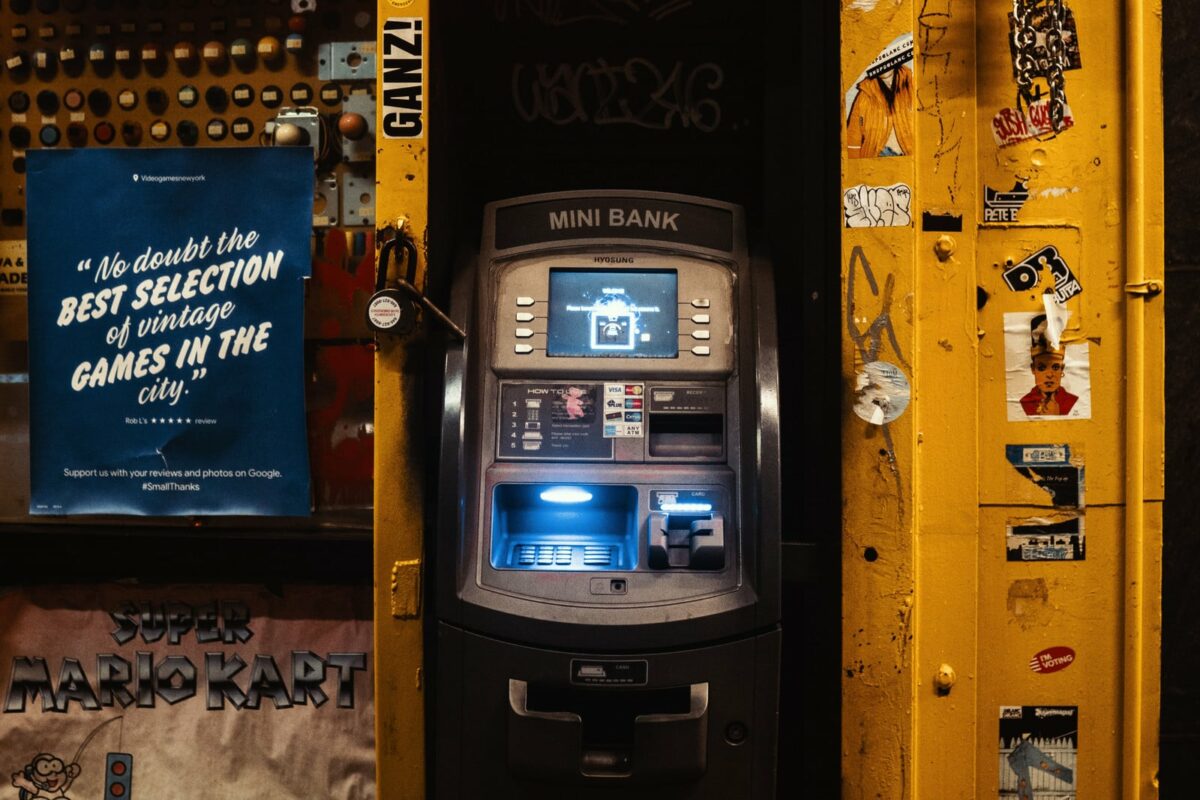
Money tips and travel safety tips go hand in hand. Just like with having multiple bank accounts to protect your funds, you need to be wary of anywhere you might swipe or insert your bank card or credit cards.
Look for signs of tampering. Has anything been added to the card receiver that may be capable of recording your bank card or credit card data?
Inspect Transaction Points to Avoid Fraud and TheftRestaurants are not immune to this either. Always ask if your credit card can be swiped at the table instead of letting your server take your card away to complete the transaction.
When in doubt, you can always skip to the next ATM or pay your dinner tab with cash. You can even report potential tampering to the local police.
Use a VPN to Protect You From Hackers
Free WiFi can feel heaven-sent when you’re on the move—especially if you’re a digital nomad working and traveling. But as lovely as it is to connect for free, it can also put your device at risk for hackers.
If you come across public WiFi that is not password protected, it is possible that the data on your laptop or computer could be gathered by a third party while you’re connected. A VPN, or Virtual Private Network, is a great way around this problem.
When you use a VPN paid service, your online activity will be sent through virtual connections and encrypted, so your IP address and data can’t be intercepted. Now you can safely embrace that sweet, sweet free WiFi without worrying about identity theft or fraud.
ExpressVPN is one of my favorite VPNs for international travel . It provides secure, private and unrestricted internet access so you can hide your location
Study Maps to Keep Your Bearings
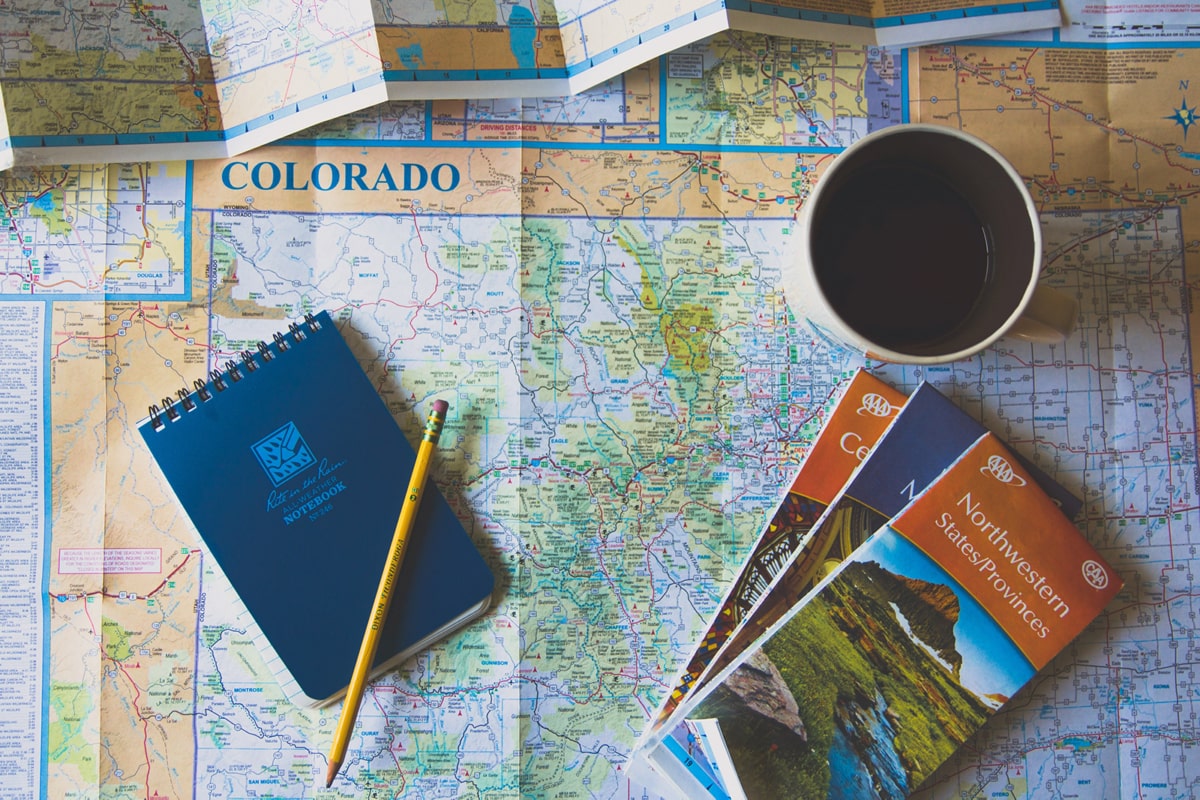
You don’t need to be a modern-day Magellan to get this one down. Having a decent understanding of the layout of the place you’re exploring will ensure that, even if your phone dies, you can still get yourself to your lodging, a central piazza, or a major transportation hub (quickly and safely, preferably).
Additionally, studying your map can even help you plan out your day or discover interesting places you wouldn’t have otherwise known about.
I recommend using whatever map app you like on your mobile phone, and dropping pins for a few key locations. Then keep a mental note of where those buildings or features are in relation to you as you explore. That way, if you get turned around or lost, you know what features you’re looking for as you regain your bearings.
Know Common Scams to Avoid Being Ripped-Off
Have you heard of the shoe-shine scam in Budapest? Or the tea-room scam in Hong Kong? There are some very clever scammers out there that unfortunately count on you to be a well-meaning and gullible person.
Friendliness from locals can be wonderful, but anyone that gets too chummy too quickly may be trying to take advantage of you. Do your research and be aware of scams that may be common in the country you’ll be visiting.
And don’t let your own politeness get in the way of your security. If you’re uncomfortable with a situation it is always okay to say “no, thank you” and walk away.
Be in Control When Hiring Taxis and Tuk-Tuks to Arrive Safely at Your Destination
Most taxi drivers are honest, hardworking individuals. But for those that aren’t, having you in their car puts them in an advantageous position of power.
Discuss the price or rate before you get in the vehicle. If your taxi driver mumbles or tells you they will talk about the price once they’re en route to your destination, they may be trying to rip you off. Do not let a taxi driver tell you that your lodging or the restaurant you want to go to is closed. They’re likely just trying to get you to spend money at their friend’s business instead.
And when it’s time to load your bags, make sure they’re in the back seat with you, not in the trunk. That way, if for any reason you want to get out of the vehicle quickly, you can grab your bags and go.
Carry a Decoy Wallet to Keep Muggers from Taking Your Real One
This is one of my favorite travel safety tips because it’s so easy.
Getting mugged is a terrifying experience. Someone desperate enough to stop you and demand that you give them your valuables is dangerous and should not be provoked. But it’s very likely that once they have what they want, they’ll leave you alone quickly to avoid being caught.
Carry a decoy wallet with a little bit of cash in it. It’s a helpful way to get out of that awful situation safely. If you’re unlucky enough to get mugged, hand the mugger your decoy wallet, and get out of there as quickly as possible. They’ll think they’ve taken everything you had on your person, and you are more likely to stay safe and unharmed.
And don’t ever resist a mugger. Your wallet is not more valuable than your safety and health.
Use the Right Bag for Added Security
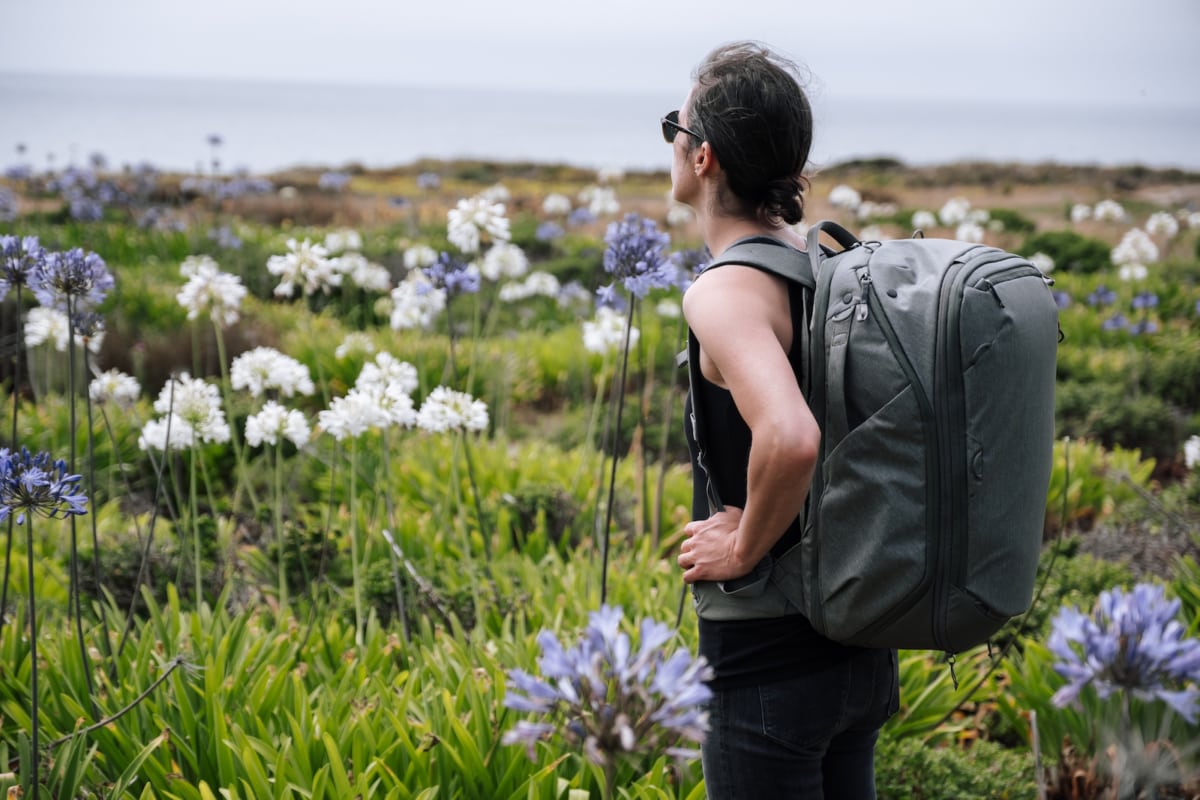
This is another one of the travel safety tips that requires you to splurge a bit. Simply put, bags that aren’t designed for security put you at risk for theft. This applies to all of your bags: luggage, day-packs, purses, bumbags, etc.
Make sure your luggage is lockable. Carry daypacks and handbags that are slash-proof and RFID blocking. There are some cool camera bags out there that are discrete, as in they don’t look like a camera bag, and have theft-proof zipper access at the small of your back instead of the top of the bag. Bags with lots of pockets are great for separating your cash, passport, and mobile.
Bag safety and security are a necessity, so shop around and find something that works for you and keeps your valuables safe.
Always Have Positive Control of Your Bag to Deter Thieves
I cringe every time I see someone sitting at a table outside a cafe with their bag sat carelessly in the chair next to them. If you aren’t aware of your bag and touching it in some way at all times, your bag is more likely to be stolen.
One great method to keep your stuff safe is securing your bag straps around your chair leg at your feet. For my rucksack, while I’m at bus stops or airports, I put my bag on the ground and stand with my foot through the strap.
Any physical contact with your bag is a deterrent for potential bag snatchers.
Invest in Locks to Secure Your Valuables
Sure, some hostels offer you a lock when you check-in, but that same lock has been used by dozens of people before you. That’s not exactly secure, is it?
Whether you prefer a key or combination lock, having your own lock (or two) is the best way to keep your stuff safe and secure when you’re not with it.
Cable locks are particularly useful for locking your bags or sporting equipment together; just make sure they’re also tethered to a permanent structure if you’re going to walk away from your stuff.
Hide Extra Cash as a Backup
It is a rare occurrence, and certainly not something we like to admit when it comes to our fellow travelers, but theft in hostels does happen.
If by some chance someone manages to get into your bag and steal from you (if your bag is locked up with your lock this shouldn’t happen!), you don’t want to make it easy for that person to find everything you’ve got.
There are lots of clever ways to stash and hide cash in different spots in your bags. Chapstick tubes, socks, and secret sewn-in pockets are great places to hide your extra cash.
Avoid Tight Crowds to Prevent Pickpocketing
Pickpockets love crowds. Crowds are loud, distracting, and well… crowded. If you’re in a tight crowd, you may not be able to tell the difference between someone brushing up against you by accident and someone reaching into your pocket or bag.
Street performances, block parties, and queues are prime target situations for pickpockets on the prowl. Do your best to avoid these crowds, or at least stay on the outer edge of a crowd where you’ve got better situational awareness.
Check-in Regularly with Someone You Trust for Added Peace of Mind
Solo-traveling is a great way to learn about yourself and the world around you and to ensure you get to do things your way. But that doesn’t mean you don’t deserve the same safety net as someone traveling with a group.
Whether you choose another traveler you’ve met or someone back home, having someone that knows they are your safety net and is aware and expecting to hear from you is so important. If something happens to you and you don’t check-in with that person like you said you would, they may be your best bet for getting help quickly.
A simple “Hi, I’m safe” text or call to check-in is all you need for staying safe and accountable.
Travel in Groups for a Safer Night Out
Like I said though, traveling with a group provides a safety net that solo-outings do not, and this is especially applicable at night. So don’t hesitate to join or create a group when you want to go out.
Make sure it’s obvious that you’re with other people wherever you are. Criminals target people who are alone but will steer clear of groups because they’re more likely to get caught if they try to steal from you or harm you. A united front makes you a harder target.
If you’re traveling on your own and itching for a night out, make some friends at your hostel and invite them out! It may feel awkward asking a stranger to hang out with you, but just be honest and tell them you don’t want to go out alone. Chances are they’ll understand and welcome the company.
Besides, making new friends is part of the fun of travel!
Practice Situational Awareness to Avoid Unnecessary Risk
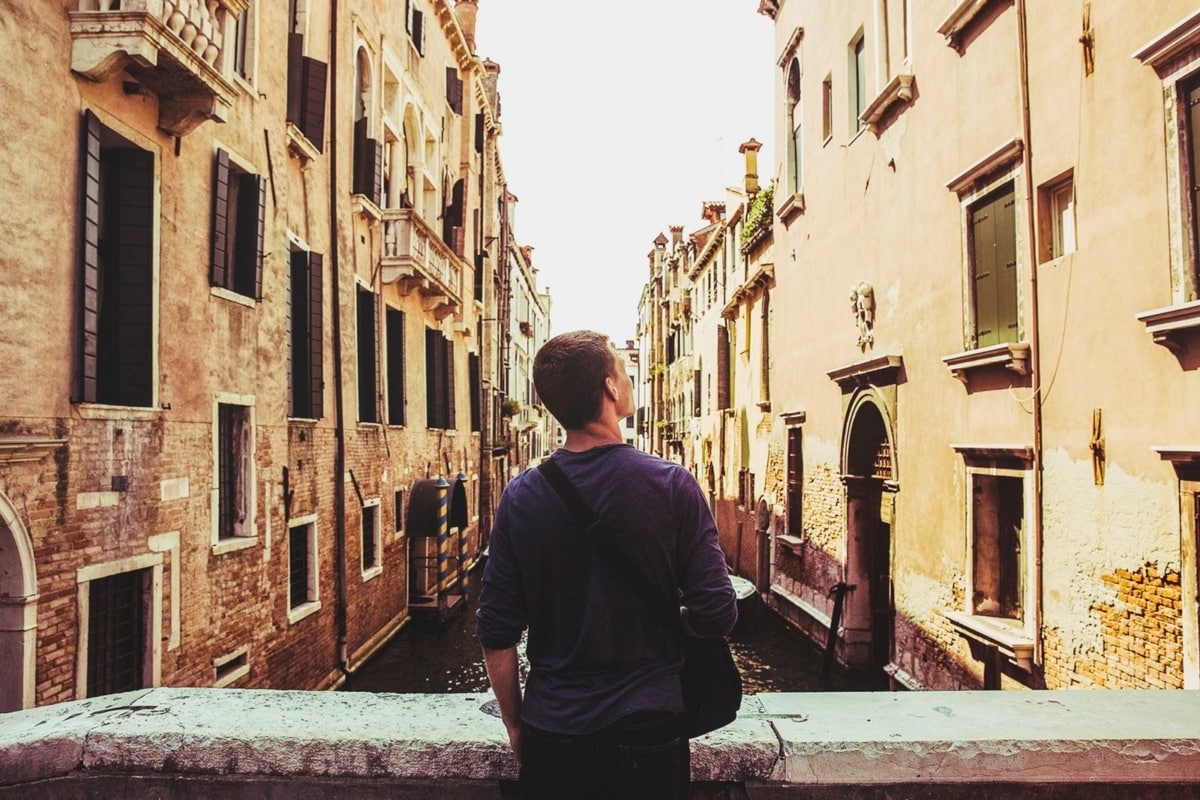
This might seem like one of those obvious travel safety tips, but you have to pay attention to your surroundings when you travel. Walking with your head down looking at your phone tells the world that you’ve got no situational awareness, as does gawking at skyscrapers.
Your surroundings are going to be complex and dynamic, and you need to maintain a critical eye and a clear head so you can react quickly and appropriately to possibly dangerous situations.
Make eye contact with potential threats. No, I don’t mean get into a staring contest, but let them know you see them and they’re more likely to move on. Keep your phone in your bag, stay (relatively) sober, and look out for your friends as well.
Body language also plays a big role in deterring theft and harassment. When sitting in a restaurant for instance, always do your best to sit facing the door, so you can see everyone coming and going from the building. Choose bus seats closer to the door for a quick exit if you don’t feel comfortable with the people around you.
Know Important Phrases in the Local Language to Avoid Confusion
Nothing is more frustrating than taking a bad, stressful situation and adding a language barrier.
Hand gestures and charades can only get you so far in a foreign country. Besides being polite, learning a few important phrases in the local language of the countries you’re visiting can save you a lot of trouble. You can even write the words and phrases down and keep them on you if memorizing isn’t your thing.
Learn to comfortably say words like “hello/goodbye,” “please/thank you,” “clean water,” “toilet,” “bus,” and “train.” You can also work on questions like “where is the…?” or “how much for…?” And of course, people love it when you can order food or a drink in their native tongue.
“Dos cervezas, por favor!”
Trust Your Instincts to Make Good Decisions
Everyone has some level of intuition. It’s like a survival instinct; you know the feeling! When something isn’t quite right, maybe your stomach starts to feel queasy, or the hairs on the back of your neck stand up.
Don’t ignore your “spidey-senses” if they’re trying to tell you something. When all other travel tips fall short, and a situation feels “off,” trust yourself and your intuition to make the right choice and help you stay safe.
Wear Your Helmet to Protect your Most Important Asset!
Alright, alright, this one may seem like a no-brainer (pun intended), but I can’t count the number of times I’ve seen travelers cruise past me on a moped with no helmet on!
Concussions can disrupt a trip, and your “how’d you get that scar?” story won’t exactly sound epic when you tell them you fell off a bike without a helmet on your head. Unfortunately, common sense is not always a common virtue.
Besides, while your insurance company may cover emergency medical evacuation or repatriation, it may not cover dumb decisions like not wearing your helmet. Do you really want to test it?
And this goes for any kind of personal protective equipment, especially if you opt to participate in extreme sports. You wouldn’t skydive without a parachute, so please don’t scooter without a helmet!
I hope these travel safety tips help you feel secure while getting the most out of your travels (and if you want more, check out my 65 Best Travel Tips ). Whether you’re backpacking or traveling first class for a vacation, this universal list of advice is tried and true. Travel safe!
- Is It Safe to Travel to Germany?
- Is it Safe to Travel to China?
- 12 Smart Ways Keep Your Stuff Safe When You Travel
- World Nomads Travel Insurance Review: Is it Worth the Money?
Travel Safety FAQs
How do you ensure safety during travel.
To stay safe during travel, always tell someone where you’re going, register with the Embassy, and get travel insurance.
How do you stay healthy while traveling?
To stay healthy while traveling, make sure you have the right vaccinations and be careful about the food and water you consume.
How do you keep yourself safe while travelling alone?
If you’re traveling alone, you can stay safe by always telling someone where you’re going, doing your research, and having travel insurance.
What is the safest way to travel and why?
The safest way to travel is by airplane. Air travel is very predictable, and accidents are extremely rare.
What should I prepare before traveling?
Before traveling, make sure you prepare your documents, travel plans, vaccinations, and travel insurance.

Jeremy Scott Foster
We’re looking to go to Bali in October.
Your email address will not be published. Required fields are marked *
Search our latest articles, reviews and gear guides
- TravelFreak on Instagram
- TravelFreak on Facebook
- TravelFreak on Twitter
- TravelFreak on Pinterest
Sign up now and get the best gear, travel tips, deals and destinations, straight to your inbox.
Thank you for signing up!

46 Travel Safety Tips for Your Next Trip
You’re off on an adventure! It’s exciting, it’s fun, but also kinda scary. Here’s our top travel safety tips to make sure everything smoothly.
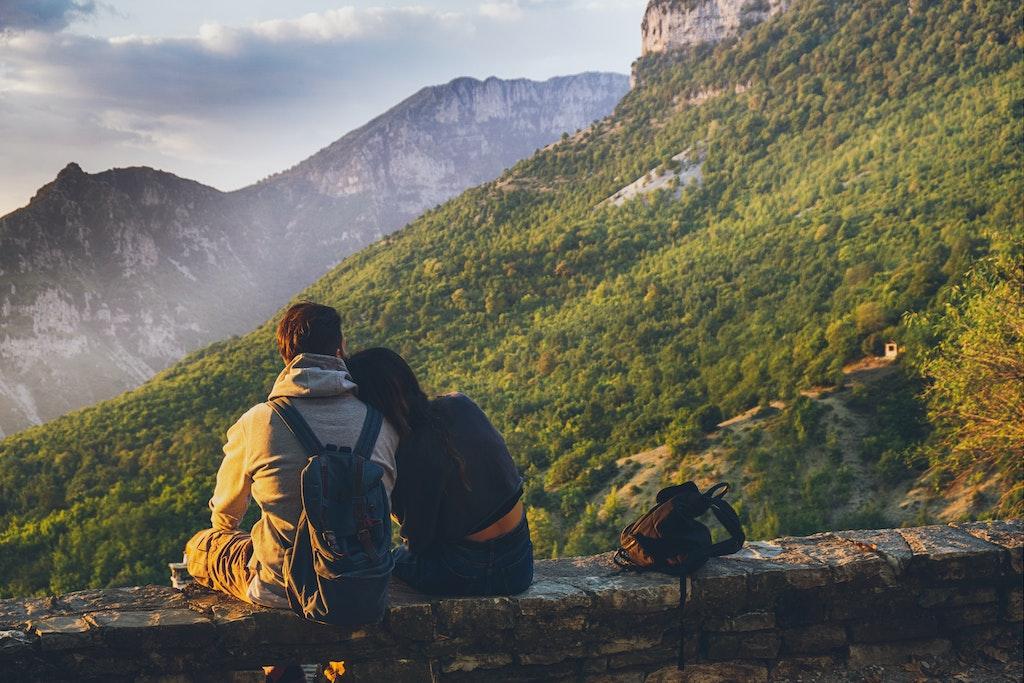
Preparing for a new adventure is one of the most exhilarating feelings ever! Your mind drifts blissfully to the beautiful scenery, the incredible food, and the wonderful new people you’ll meet. It’s going to be a real dream! But nothing ruins dreams faster than getting sick, robbed, or scammed when you arrive! While not as fun to fascinate over, safety should be a primary part of your trip planning. Learning to travel safely is a process, but it isn’t difficult. Here are our top travel safety tips to make sure your next vacation is just as dreamy as you imagined.
Trust the Let’s Roam know-how!
The best way to stay safe while in an unknown location is to find a trusted and experienced guide. The writers at Let’s Roam have created hundreds of on-site scavenger hunts all across the world, and their know-how can help you make the most of your adventure. Whether you’re looking to soak up some culture with a peaceful art walk or to dive into the local nightlife with a boozy bar crawl , we have dozens of delightful games and activities at the touch of a button .
Safety During Travel Requires Preparation
There are so many aspects of safety to think about when planning a trip! Proper preparation includes knowing which areas are safe for tourists, what scams are common in the area, and where to go for help. You need to familiarize yourself with aspects of public transit, the location of emergency services, language, and money. Then, there is sickness, financial safety, and sexual security too. The best way to avoid danger, of all types, when traveling is to do your research! Thanks to the internet, handy phone apps, and fabulous travel forums, most of the information you need is right at your fingertips.
In this travel guide, we have divided our safety tips into categories including physical safety, protecting your property, wellness, digital safety, and common scams. We’ve given you tips to follow before and during the trip to ensure that everything goes smoothly!
Start at home .
Ninety-nine percent of your safety on a trip starts at home. Preparation before the trip is important because the first few hours of travel are the most unorganized and the most stressful. Airports are crowded. Train stations are worse. You don’t know the language. You don’t know where your terminal is, and you don’t have any local cash yet. You rely on taxi drivers and helpful people to get you where you’re going, and thieves know all this!
These spots are primo-stomping grounds for jerks. While you’re distracted and trying to get your bearings, they are hunting. The more you prepare yourself for your destination in advance, the more at ease you will feel. You will be able to think clearly and make safer decisions. Let’s get to the specifics.
Travel Tips for Your Physical Safety
In this section, we cover tips to keep you out of sticky situations. Travel is overall very safe, so none of this information is meant to scare or overwhelm you, but vacationers often drift into “island mode” and tend to forget normal precautions. Using basic instincts and common sense when traveling can save your life.
Before the Trip
1. know your neighborhood..
Thanks to Google Maps and Google Earth, there is no reason that you can’t know exactly what your accommodation looks like and the area around it. Before you book a property, take a good look at it! Don’t just look at the rooms or the resort amenities. Look at everything.
- Read the reviews thoroughly —look for keywords about the neighborhood and if people, especially solo travelers, felt safe there. You might see things like, “the hotel staff was amazing, but it’s kind of sketchy walking at night,” or “the hotel was nice, but we wish it was in a different neighborhood,” things like that.
- Look at the area on Google Maps —Look at the surrounding area. Is it shopping centers, nice restaurants, and other hotels, or is it a block of warehouses? You don’t have to stay in a super-touristy spot to find a nice neighborhood, but you want something that has life around it. Google Maps has uploaded photos from guests, flip through them!
- Look at Google Earth —Google Earth is an even better option. Just put in your accommodation and use the map to scroll around. You’re seeing satellite footage of the area, so you can tell pretty much everything.
- Check the US State Department — The State Department has a list of travel advisories for every country, focusing on overall safety and areas to avoid. They list the safest areas to stay in and give information on common crimes in the area. It is good to note that they are overly cautious. Reading too much on their website will turn you into a hermit, but it is valuable to see the areas where violent crime is prevalent and where tourists are not advised to go.
2. Register in STEP .
The Smart Traveler Enrollment Program (STEP) is run by the U.S. Department of State, and it allows citizens to register their trips, accommodation, and phone numbers with the dept. You will then get alerts for any kind of civil unrest, natural disaster, or political issues that take place during your trip. It also makes it easier for the embassy to contact you or your family in the event of an emergency.
3. Alert friends and family .
Give a loved one the contact information for your hotels. If you will be wandering through several regions, give them a copy of your travel plans. If someone back home knows where you should be, it makes it easier to find you should you not show up.
4. Turn on your tracking .
While we all hate that Google watches our every move, when it comes to safe travel, it can work in your favor. Hundreds of missing people have been tracked by their cell phone pings, and it is an easy-to-use safety measure. Turn on your location and give your emergency contact your Google log-in information. If you go missing, they will be able to easily log into your account and see where you were last. Download the Family Link App on your phone and your emergency contact’s phone. This way they can keep up with you easily.
5. Map emergency services .
Before your trip, create a personal map for your destination. Not only will it help you stay organized and sightsee more efficiently, but it also allows you to plug in emergency services. Plot the nearest hospital, the nearest embassy, and the closest police station. It is also advisable to plug the phone numbers into your contact list before you leave on your trip.
6. Go old school .
It is a good idea to have a physical copy of emergency information on you. Stealing, or losing, cell phones is pretty common during travel. Having an old-school written or printed copy of important numbers, addresses, etc. is a must! Write it in your travel journal or keep a folder of important documents.
7. Cheapest isn’t always the safest .
Beware of deals that are too good to be true. If the apartment is too cheap, it is likely in an unsafe area. If it’s the cheapest hostel in town, it’s probably akin to a homeless shelter and may be filled with unsavory clientele. If the flight is too cheap, it is likely going to land at your destination at two am, not exactly the safest time to be trying to navigate an unknown city. Sometimes it is better to pay a little more and ensure your safety.
During the Trip
8. ask locals ..
When you enter a new country for the first time, locals are your best friends! Be strategic about who you ask, but hotel staff and Airbnb hosts are usually great options. Ask pointed questions about where you should go, and more importantly, where you should stay away from. Not only will you get great travel advice, but they know what is going on in their city, and their success revolves around travelers feeling safe.
9. Watch each other’s backs .
If you’re traveling with a partner or group, watch out for each other. The larger and stronger partner walks on the outside of the street, just in case someone gets hit by a tuk-tuk. The larger partner walks half a step behind the other to keep an eye out for suspicious folks. One partner pulls money from the ATM, while the other partner stands with their back to them watching for trouble. One partner drinks too much tonight. The others stay relatively sober. It’s good to have one person in the group who is in charge of safety measures. This means they map out the route you will take, are on guard for baddies, and alert everyone else to possible dangers.
10. Trust your gut!
The number one physical safety tip is to trust that little voice that says “this isn’t a good idea.” Your body is built to avoid severe danger. If the hair on the back of your neck is standing up, then don’t turn down that street. If it doesn’t feel right, it probably isn’t. Don’t be convinced to go against your gut, by anyone, at any time.
11. Carry a non-weapon weapon .
Most countries are not as lenient on weapons as the United States, and it is almost impossible to fly with a weapon of any kind, but that doesn’t mean you can’t be prepared. Many travelers choose to carry a protective key chain or you can just interlace your hotel key between your fingers. Even an umbrella, camera tripod, or a full water bottle can stun an attacker. It’s wise to have something in your hand if you’re going into a sketchy zone.
12. Don’t wander aimlessly .
The best way to become a target is to look lost! Do not set out in an unknown destination not knowing where you’re going, especially if you’re alone. Map out your public transportation or your walking route before your leave the safety of hotel wifi. If your internet is sus on your phone, then download a city map app. These allow you to follow a path without having working internet. If you do get lost, don’t show it. Keep your head up, and your body language confident, and quickly duck into a nearby cafe or shop and ask for directions.
13. Try to fit in .
While in some destinations, while you’re never going to look like a local, you can at least look like you’ve been there a minute. Attempt to dress like the locals. This doesn’t mean dawning ceremonial dress. It means, if most of the men around you never wear shorts, then don’t run around in shorts. If the women have their shoulders covered, you should too. Running around in your bikini in a traditional society is not only disrespectful, but it paints you as a target. It can be hot and inconvenient, but dressing like a local draw can less attention. Also, don’t be loud and annoying, drawing too much attention to yourself!
Author note: I get it! Having to conform to your style and dress is frustrating. As a fairly tall, white woman with a flaming head of red curls, drawing attention is almost inevitable in a lot of the nations I travel in. While it is sometimes demeaning, and often irritating, covering my head, dressing modestly, and not drawing attention to myself is necessary for personal safety!
14. Admit that you are a target .
As a tourist, you’re a target. If you look vastly different than the local population, you’re a female traveler, or you’re flying solo, you might as well paint a red “X” on your back. This might not be fair, but it is the reality of the world we live in. For your physical safety, admit it!
Yes, try to blend in. Yes, go about your day looking confident, but acknowledge that there are eyes on you and that you need to pay attention at all times. Travelers are pretty good at this for the first day or two, but then you get comfortable in your environment, and you lose focus. Don’t be a giant fraidy-cat, making everyone insane with your safety protocols, but be on guard.
15. Respect the culture .
Respecting the people around you and their way of life is the best way to protect yourself in a foreign country. When locals see you as someone who is trying to live in their society in peace and harmony, not disrupt it with American or Western ways, they are much more likely to help you and protect you should you need it. Research cultural taboos and be aware before you travel so you aren’t insulting people unknowingly. Make friends. Ask questions about the culture, and try your best to respect it.
For more tips on being a culturally responsible traveler, check out our guide “Cultural Travel: Tips to Make You More Culture Conscious.”
16. Beware of alcohol .
This one could go in every safety category. Drinking too much lowers your inhibitions and slows your reflexes. While we all wanna unwind a little on vacation, do it in a safe destination. Maybe have a drink at the bar, but then go back to your accommodation and finish the party. Roaming the streets, plastered or high, is a terrible idea for so many reasons. Also, did you know that one of the top killers of backpackers the world over is drowning? For goodness sake, don’t get toasted and then decide to go swimming.
17. Know your exit route .
Whether you’re on a plane, in your hotel, or partying in a bar, you should know the lay of the land. A quick assessment of where exits, windows, and fire alarms are is not hard to do, and in an emergency, it can save your life. It also pays to do a quick assessment of suspicious-looking people and keep note of where they are.
18. Don’t do irresponsible things for photos .
First of all, this makes you look like an idiot and is usually disrespectful to the destination and other visitors. Secondly, it is dangerous. Obey signs and warnings, and don’t do stupid stuff.
19. Don’t give too much information .
In an attempt to make friends, far too many travelers give away their personal information. Do not tell a stranger where you’re staying. Don’t talk about your finances or what you own back home. Don’t tell people what your plans are for tomorrow or how you will be traveling. Don’t tell them that you’re traveling alone.
Travel Tips for Protecting Your Property
Alright now that you’re an alert, fighting machine, able to blend into any surrounding and travel like a ninja, let’s talk about your stuff.
20. Invest in good travel insurance.
For your peace of mind, invest in good travel insurance. The plans usually don’t cost much, and they will protect you financially from theft, physical injury, and trip cancellation. You can score a good plan through your credit card, your tour company, or a separate policy via World Nomads or SafetyWing.
Discover the ins and outs of travel insurance, in our “Is Travel Insurance Worth It?” guide!
21. Carry a money belt or reinforced purse .
Pickpocketing and purse snatching are the two most common crimes against tourists. Carry your money somewhere concealed and hard to get to. If you carry a purse, buy a travel purse that is slash-proof and carry it across your body. Then put your jacket on over it.
22. Stop using back pockets .
Do not store anything of worth in your back pockets. They are the easiest to pick. Store items in a zipper pocket on the front of your person or inside an article of clothing.
23. Carry a rope lock .
Locking your bag is a no-brainer when you’re staying in a hostel, or whatever, but that isn’t enough. Carrying a small cable lock is one of the easiest travel hacks to keep your stuff safe at the beach or when eating at a crowded restaurant. Run the cable around your bag, and lock it to something secure. Most thieves are going to try to snatch and grab quickly. If they see it is locked or try to grab it, and it doesn’t come immediately, they will normally move on.
24. Split up your assets .
Don’t keep all your money in your wallet. Split it up on your person and in your hotel safe. This goes for credit cards too. Keep an emergency stash in your shoe, an empty chapstick container, or sewn in the hem of your pants. Carry more than one and keep them separate. If you’re staying in a hostel, don’t leave anything too important in the lockers. The hostel staff usually has a master code and can open them if necessary.
25. Don’t flash your wealth around .
Tourists have a bad habit of unintentionally flashing their wealth. This is usually due to unfamiliarity with the local currency. While trying to figure out their bill, tourists pull out wads of cash without restraint. Don’t do that. Don’t even carry much local currency. It is unnecessary. Be careful about flashy jewelry and expensive electronics. Yes, you need your camera, but you can be discreet about it.
26. Be strategic .
When going into a crowded area, don’t be an easy target. Turn your backpack around and carry it in your front. Keep your documents in an inside zipper near your body, never in your outer backpack compartments. If traveling with a partner, carry your purse between the two of you, not on the outside. Turn your back to a vendor if you need to get cash out so you don’t reveal what is in your wallet. Slip your backpack straps around or under the legs of your dining chair. Only pull your phone out when you need it.
27. Keep it in your carry-on .
Make sure that your valuable items are in your carry-on bag. This will prevent border control from losing or breaking things. Plus, if your bag doesn’t make it to your final destination, you won’t be missing anything you need!
28. Use ATMs wisely .
We have already discussed protecting your partner at an ATM, but going with a friend is only one of the ATM rules. When withdrawing money, do it during the daytime. Choose an ATM in a populated area, that has cameras and is well-lit. Preferably, choose one that is indoors with a locked chamber, allowing you to withdraw cash alone. This may require some prior planning, but it is worth it. If the machine seems to have taken your card or isn’t reading it, never walk away. ATM scams are common and there may be someone waiting to snatch the card you thought was stuck.
Guard your PIN and enter discretely. Once you have withdrawn your money. Check the accuracy of your withdrawal quickly and put your money away. When you get to a safe location, split it up. If the ATM is in a locked area, go ahead and split your money there and hide it in your designated spots. It is usually advisable not to take the currency exchange they offer. Allow your bank back home to do the exchange.
For U.S. citizens, we highly recommend getting the Charles Schwab High Yield Investor Checking Account. This checking account is online and available anywhere in the world, plus it reimburses all ATM fees, so you never have to pay those withdrawal charges.
Travel Tips for Wellness
Getting robbed or physically harmed sucks, but so does spending your whole vacation hovered over the throne. Let’s dive into some safety tips for keeping your insides on the inside!
29. Get your vaccinations.
International travel exposes you to all kinds of bugs that you have never seen before, and therefore, do not have immunity to. Check the CDC website for the proper vaccinations for your destination. Some nations require certain vaccines to enter the country. It is wise to make sure you have an up-to-date tetanus shot as well.
30. Purchase a first-aid kit .
A small kit with antibiotic ointment, steroid cream, cleanser, butterfly wound closures, and bandages is a wise investment. Most injuries on a trip are minor and can be treated at home if you have the proper stuff. You can also swing into a pharmacy and buy these things once you land.
31. Make sure your meds are filled .
Not only should you make sure you have more than enough of your prescription meds before you travel, but you should also ask your MD for an antibiotic for traveler’s diarrhea and a patch for motion sickness if you suffer from that. Your doctor can look up the common intestinal terrorists in your destination and prescribe you some insurance meds.
32. Know the ropes before you go .
Before you arrive at your destination, make sure you know if you can drink the water. Look up poisonous plants and animals if you’re going to be hiking or camping, and know what to look out for. In this day and age, it might be good to know the pandemic numbers and regulations as well.
33. Beware the food and water .
Most travelers know not to drink tap water in certain destinations, but that isn’t what gets you. It’s the shower water, that random body of water you decided to go swimming in, or the lettuce you ate for lunch. Beware of ice cubes, fresh fruit and vegetables, and anything that hasn’t been properly washed yet.
34. Beware of insects .
Seriously, why are there mosquitos? Just, why? Coat yourself in stinky spray, sleep under a net, and take malaria pills if recommended.
35. Visit the pharmacy .
If you begin to feel unwell, visit the pharmacy and see if the pharmacist can hook you up with a remedy. In certain areas of the world, especially Central America, pharmacists function more like general practitioners and have vast local knowledge and the ability to prescribe meds. Check with them before going to a clinic, but if you need to see a doctor, don’t be afraid to do so. Most travel-related illnesses are easily treated by local personnel, and besides, you have travel health insurance, right?
Travel Tips for Digital Safety
Alright, let’s hop into the online world of crooks of digital demons. While traveling, it is important to cover your trail and keep an eye on your finances.
36. Get a virtual private network (VPN) .
VPNs are valuable tools that allow your phone and laptop to reroute your IP address through multiple servers, making it harder for hackers to find your personal information. Most popular companies allow for multiple devices, so you can have it on both your computer and your phone.
37. Get a good travel credit card .
Carrying large amounts of cash is inconvenient and makes you a target, plus those days are long gone. Most of the world has changed over to credit cards and while you may need small bills for tips, the large currency is unnecessary. Debit cards are often not accepted internationally, and they are not embued with all the safeguards that a good credit card has. Make sure you let your credit card company know when you’re traveling so they don’t put a block on your purchases. Many creditors no longer offer this feature, but some still do.
38. Download all your financial apps on your phone .
Now that you have a great travel card, you’re going to want to keep an eye on your purchases. Download the app for your credit card and your bank and monitor your transactions daily for unexpected nonsense. Please just make sure that your phone is fingerprint or password protected!
39. Get a secure app for your safety information .
Download an app on your phone for personal information like passwords, bank accounts, a copy of your passport, health insurance information, etc. We recommend Last Pass . It is a one-stop shop for keeping all your important goodies encrypted.
40. Be aware of wifi .
When using open wifi, such as at a restaurant or bar, don’t access any of your important financial apps or plug-in passwords. Your VPN should be protecting you, but to further safeguard your digital assets, just wait until you get to a secure network.
41. Have a plan for catastrophe .
If you lose your phone, have a plan to wipe it. Using the “Find my Phone” app, or something similar, you can lock or erase your phone before they get on Amazon and order $10,000 worth of gadgets. Hop online and lock your credit cards too and notify your bank of the loss.
Travel Tips for Avoiding Common Scams
Unfortunately, scams against travelers are incredibly common. While each region of the world has its variations (which you should research) here are some common things to look out for.
42. Taxi scams .
When you take a taxi, have your phone open with the shortest route and watch your progress. Insist that the driver uses the meter, or agrees on a price beforehand. When at all possible, use a rideshare app like Beat, Lyft, or Uber.
43. Car troubles .
When renting a car always check the tires every time you get in the car. Common scams involve letting air out or puncturing tires. When you pull over, they will stop to offer help, and then rob you. If you experience car trouble, drive until you reach a well-lit, populated place to stop.
44. The bump and grab .
Beware of people bumping you or causing a diversion in crowded areas. While you watch the chaos, someone else is stealing your wallet.
45. The helpful local .
If someone seems entirely too eager to help you, show you the way, or spend time with you, they are probably scamming you. It’s popular in Istanbul for friendly, young men to offer to escort you to the best coffee shop or walk you to a popular attraction. You will end up in a rug shop.

46. The free gift .
There is no such thing as free. St. Mark’s Square in Venice is well-known for rose peddlers. They will offer a woman a rose as a gift, or even insert it on her person, and then throw a fit if you take it and don’t pay them for it. Beware of insistent free gifts unless you have made a relationship with the person.
You’re Ready to Fly
Using these tips should keep you relatively safe on your travels. The most important thing to remember is to use common sense and stay aware of your surroundings. For the most part, travel is just as safe as walking the streets of your hometown.
Sticky situations happen to even the most experienced travelers, for more information on what to do in a pickle, check out our guide “Travel Problems: Solutions That Can Save Your Trip” and be sure to check out Let’s Roam Local on our app which gives you a ton of great information about destinations contributed by travelers for travelers.
Finally, if you think we’ve missed any important travel safety tips, please feel free to let us know in the comments below.
Frequently Asked Questions
When traveling, follow basic safety tips like carrying your wallet in your front pocket, avoiding streetside ATMs, and protecting your online information with a VPN.
To protect yourself while traveling, carry your money and credit cards in discreet locations, travel during daylight hours, and avoid giving out personal information.
Most destinations are relatively safe if you take precautions. However, many people feel safer when they are close to home, so invest in a Scratch-Off Adventure Book and take a local road trip!
Featured Products & Activities
25 Travel Safety Tips

Traveling is all about freedom and exploration.
For both of these ideas to be expressed fully, you need to throw caution to the wind and let the road take you where it wants to go.
But if you allow yourself to experience your journey carelessly, you can easily fall victim to scams, dangers, and misunderstandings.
Our simple safety tips will keep you out of harm’s way, allowing you to experience the wonders of the world.
We’ve included basic concepts to be aware of, things you should do before you start your trip, and suggestions to keep you safe during your travels too.

Don’t Flash Your Valuables
Know common travel scams, know the local emergency info, get travel insurance, never take illegal drugs in a foreign country, avoid traveling alone at night, get your travel vaccinations, share your itinerary with family and friends, pack a first aid kit, stay healthy: food & water safety, be aware of your surroundings, lock up your valuables, ask locals for advice, don’t share too much with strangers, don’t do stupid things for photos, be aware of your clothing, learn basic self-defense, tell your bank where you’re going, hide emergency cash, drink responsibly, use the right bag, bring travel locks and use them, keep digital copies of important documents, use reputable transportation companies, use apps for emergency alerts.
Whenever you go to a new country, there will always be criminals ready to swipe a tourist.
It doesn’t matter which country you go to, or which area you stay in, there will always be criminal activity.
If you leave your valuables on display, you will be telling these local criminals that you’re an easy target with a good stash.
Laptops on car seats, mobile phones in your back pocket, and wallets on the table are all indicators that you have wealth and are careless.
To avoid creating this persona, you should keep your valuables hidden from sight.
This could mean putting your wallet and phone in your zipped bag tucked under your arm.
Or perhaps keeping your hand in the pocket where your wallet lies.
When it comes to bulky items you should cover them or hide them out of sight.
Although your hotel room should be safe, you could bring your own safe or locked box with you on your travels to prevent in-house thefts.
Although opportunity theft and pick-pocketing are common scams around the world, each location will have unique criminal behavior you should be aware of.
In areas of historical significance, you may find local scam artists selling tours for inaccurate information on the topic.
Bustling cities might have dodgy taxis with broken meters scamming you into paying more than you should.
To know what the common scams are, you need to complete an online search for your travel destination.
A simple search like “Common Scams In XXX” or “How To Be Safe In XXX” can teach you what to expect in that area.
Once you arrive at your vacation destination, ask the local hotel workers and traveling companions about known scams.
People who live in the area will be more aware of the simple ways to avoid crime.

For every new place you go to, you need to create an emergency plan.
This plan should contain phone numbers for emergency services (such as the police, ambulance, or fire brigade).
It should also include the likely cost to use the local hospitals, the location of the hospitals, and the language these services use.
Having this information to hand can help you stay focused, should the worst happen.
We also recommend noting where the local postal service is, and the name and address of your hotel.
This way if you become confused or lost you should be able to find your hotel and a postal service to contact them or your family.
Lastly, you should keep your important documents in digital format on a secure USB thumb drive that never leaves your sight.
This way if your passport becomes lost or stolen, you have a digital copy to help you prove your identity.

Insurance is one of the most “sod’s laws” necessities you should consider.
You will probably never need it, but if you travel without it you’ll be at risk of losing your possessions, developing health issues, and collecting a mountain of debt in the process.
With travel insurance, all of your possessions will be protected if they are stolen or become lost.
This means the original items will continue to be lost, however, the financial aspect of buying new items will be taken care of by your company.
It also means that if you become ill or injured while away, the insurance company will pay for your medical bills.
Make sure to read the details on the insurance contract, as each company will only cover specific elements.
For instance, if you are exploring a landlocked country, there will be no need to purchase insurance against aquatic animal injuries (like sharks).
This might seem like a “no-brainer”, but remedies and medication considered legal in one country may be illegal in another.
A simple example of this is medical marijuana.
In the United States alone, 37 states allow the legal use of medical marijuana , leaving 12 states completely rejecting the drug.
The United States legal breakdown is unique, due to the 50 states all having their unique laws.
Around the rest of the world, just 50 countries allow the legal use of medical marijuana but many of them have caveats to this agreement.
You may think the simple solution to this issue is to avoid using marijuana when you travel, but just like any medication, this can lead to ill health and may not be a viable option.
Instead, you should consider your destination’s laws before preparing to travel there.
Even common medications such as Benadryl, Codeine, Sudafed, and Adderall might be considered illegal in the country you are traveling to.
To make sure you don’t accidentally break a law, you should note all of the mediation you plan to take and use a search engine to see if they are illegal at your travel destination.
You should never travel alone at night.
Even if you are in your hometown, traversing streets you have known your whole life, you should never be walking in the dark on your own.
During this twilight, you are more likely to be robbed or physically harmed as fewer people will be around to see the incident.
When you’re traveling, this issue can be made worse
Not only is the darkness hampering the vision of any passersby, but you don’t know where to run away.
You won’t know the area well enough to find safety, and even worse, your assaulters know every direction you might take.
Taking a less cynical point of view, traveling alone at night can also lead to getting lost.
You won’t know where you’re going in general, as the new location will take a while to decode, but in the dark, your surroundings will feel even more foreign.
During this darkness, you might fall and break your leg or end up unable to reach your hotel.
If you’re with a friend, you will be less likely to be targeted for a crime, and if an accident does happen, someone will be with you to help.

Every country in the world has its own viruses and diseases to battle.
You may have had your shots for every worrisome disease in your own country, but that doesn’t mean you’re protected against contagions in another.
Before you travel to a country, you may be asked to update your vaccination history.
For example, many countries in Africa require tetanus shots, typhoid shots, yellow fever, and hepatitis shots to prevent the spreading of these illnesses.
Look through the database on the Center for Disease Control and Prevention , to see which vaccinations you need before you travel.
It doesn’t matter if you’re going on a short weekend trip or a month-long vacation, you should tell your friends and family where you are going and when they should expect you back.
This isn’t so you can show off your exciting plans, it’s so they can help if something goes wrong.
If a natural disaster happens in a location you’re visiting, and you fail to answer their calls, they will know which hotel to contact to find you.
They can also inform the location police force about you, adding to the missing person list.
Secondly, if you went missing on your tour, they will know which route you had taken and can narrow down when you were last seen.
With a smaller search area, it will be easier to find you.
You can use the US Government Smart Traveler Enrollment Program to log your whereabouts and get updates on natural disasters in your travel area.
If you end up traveling to one of these spots, your family gets notified of the issue and the U.S Embassy will be aware of your situation.

A first aid kit is the bread and butter of any traveler.
Little injuries like a cut on the leg, bug bites, and stomach problems can all be soothed with the magic inside your first aid kit.
Taking it with you will allow you to tend to wounds or protect them until emergency services arrive.
You can buy small or basic versions of a first aid kit, which include pain relief, bug repellents, bandages, plasters, and diarrhea tablets.
You can create your own first aid kit, by gathering these supplies yourself and putting them in a waterproof container.
Creating your own first aid kit will allow you to use a container that fits into your bag perfectly.
This might be a better option for people with limited space on their travels.

When you travel to new locations, one of the best exploration treats is trying the local food .
Even though eating unusual foods can be super exciting, your body might not be ready for the change in food preparation.
Just as different countries have different bacteria and diseases, the people of the culture will be better prepared to eat different foods.
Just as someone who eats chilis in every meal can handle the heat, a person on plain chicken will cry just by looking at spices.
Different cooking techniques might create a perfect meal for a local, but cause you gastric distress.
To avoid getting ill, you should follow this mini-guide:
- Eat at popular places – Long queues mean respected and loved food. You can trust that these places will serve their cuisine to a good standard.
- Watch the food being prepared – This can be hard to achieve, but if you notice a restaurant with viewable chefs, pick them. You can see how clean the kitchen is, and how long they cook the meats and be aware of any hygiene issues you aren’t okay with.
- Pack translation cards – If you’re allergic to something, make a translation card that explains the issue. You should laminate the card and show it to your waiter. This will help communicate any foods you need to avoid.
- Opt for fully cooked meals and peelable fruits – Raw chicken is a common ingredient in Asian countries, however, it can lead to salmonella. In the US we don’t eat chicken raw so our bodies will not be able to handle raw chicken as the locals can. Peelable fruits keep away bacteria, as the peel is a barrier to protect the fruit.
- Buy a filtered water bottle – an easy way to get bacteria and diseases into your body is by drinking unfiltered water. Most cities have an embedded filtration system in their waterways, however not every location has the same technology. To avoid developing diarrhea, put all of your water in a filtered water bottle.
When you’re exploring it can be easy to get lost.
Everything is new around you, and although you’re taking it all in, the amount of new information you’re digesting means locations and spatial awareness will become confusing.
To stop yourself from getting lost, you should make a note of all of the landmarks on your path and the direction you have been going.
If you tend to forget mental notes, send yourself a message on your phone
You can even take a photo to help with the visual aspect of remembering.
The photo idea is super helpful in areas that look very similar to each other.
A good hotel will make you feel like you’re walking around your own home.
This level of safety should be reflected in actuality too.
However, thieves know that tourists put a lot of trust into their hotels, which means you’re likely to leave your room unlocked or allow your valuables to lay disheveled in your rooms.
To avoid these types of thieves, you should ensure your luggage is locked away.
Make sure you lock your door behind you, and if the hotel offers a locking storage system utilize it.
Hostels often supply a storage container by your bed but don’t offer a lock.
In these cases, buy your own.
We have already suggested talking to locals to learn about common criminal threats in the area, but you should also ask strangers for their advice on local outings.
If a certain street is rough, a particular taxi driver overcharges or a local restaurant had issues with rats not too long ago, then the locals will know all about it.
You shouldn’t just trust one person’s opinion though.
Everyone will have their own ideas of good and bad places, but if you start to hear a pattern of negativity, then be sure to avoid those areas.
Although you should talk to the locals and ask for advice, remember that you shouldn’t be sharing too much information with strangers.
Telling a random person about your travel plans, the hotel you are staying at, or the length of your stay can allow them to judge if you’re worth stealing from.
This same advice applies to your social media too.
Telling strangers that you’re away from your home is an invitation to attempt a robbery.
Strangers use this information to know your home is unprotected and an easy target.
To avoid sharing this information, you should upload pictures and vacation information after your trip has concluded.
Although photos and videos can produce high-view content, and a lot of fun memories, you don’t want to end up in the hospital trying to capture the perfect picture.
Unfortunately, many social media-hungry people take photos at the edge of cliffs in an attempt to capture adventurous moments.
This often leads to accidents and injuries as the cliffs crumble under their weight.
Instead of putting yourself in harm’s way, take a photo or video of a candid moment.
This captures your adventurous spirit more naturally and allows you to remember the actual fun moments in your travels.
One of the best ways to avoid looking like a tourist is to wear clothing that matches the culture around you.
You don’t need to don a traditional outfit or appropriate religious clothing, but wearing one large sweater instead of multiple layers of clothing while in a cold country is a sure sign that someone isn’t used to the climate.
And as we know already, showing yourself as a tourist tells the thieves you’re an easy target.
As well as avoiding thieves, you also need to be aware of the cultural differences between clothing and country, as well as the laws.
For example, many Islamic countries require women to cover their faces and body.
Not adhering to this law may cut your vacation short due to arrests.
Before you travel you should see what your destination expects from its tourists.
For example, Barcelona doesn’t allow anyone to walk around without a top .
Although women around the world have to adhere to this rule already, many men aren’t used to this restriction.
If you’re caught, you can be fined up to €300.

This tip might seem a little extreme, but if you plan on going traveling by yourself it is a great option to feel safe while alone.
Ideally, you should never be in a physical confrontation.
Learning how to complete self-defense doesn’t mean attacking someone because they have upset you.
Being rejected from a club, being charged a high fee, or being offended by someone’s actions are not viable reasons to enact self-defense procedures.
Instead, these classes should be used to neutralize a situation and allow you to run away.
Take a couple of classes to learn the basics and give yourself the self-believe that you can handle yourself if your trip turns sour.
This tip may not seem like a safety issue but it can easily get you stranded if ignored.
Banks monitor the use of your account to ensure that money laundering and fraud haven’t been committed.
When you travel to a new location and start using your card, your bank will know that something new has occurred.
If they believe this transaction is suspicious, they might freeze your account.
With your accounts frozen, you’ll need to go into a branch to re-open it.
In the meantime none of your direct debits can be used, nor can you use your card.
This means you won’t be able to get cash while abroad.
To avoid this situation, you simply need to tell your bank where you’re traveling.
Then, when you spend time in that country or state, they will recognize legitimate behavior.
Of course, some banking systems are automated, and human error can always play a factor in life.
If your bank does freeze your accounts, you should be safe if you already have an emergency cash stash.
Emergency cash is simply another way to carry your money, but making it physical and untouched allows you to have “wiggle room” should you need it.
Your wallet might get stolen or become lost, and you may be targeted by pickpockets.
If you hide around $200 in a hidden compartment of your pants or roll it in an empty chapstick container, then thieves will not be able to find your money.
This allows your emergency cash to stay hidden, meaning you always have some cash to hand.

Enjoying the local nightlife while you travel can be a wonderful way to make friends with other travelers and locals alike.
However, when you are intoxicated you are more likely to forget your place.
What might be seen as simple tomfoolery in your country of origin, could be seen as a horrific act in another.
Managing your understanding of a new culture while drunk can be extremely difficult, so to avoid misunderstandings you should drink responsibly.
Another reason to slow down on the beverages is your vulnerability.
Not only are you likely to get lost while intoxicated in an unfamiliar country, but you’re also likely to be robbed or worse.
This doesn’t mean you shouldn’t experience drinking culture on your travels, but you should be aware of how much you are drinking, where your belongings are, and where your hotel is.
As a rule of thumb, you should never put your drink down. Keep an eye on it at all times.
The right bag for your journey should be viewable, within easy reach of your hands, and cannot be taken from your body without clear knowledge.
Lots of people opt for the rucksack option, as the straps go over your shoulders and between the armpits, meaning removing them from you will take a lot of effort.
However, you cannot see your rucksack while you wear it, as the zips and containment structure are on your back.
To make rucksacks safer, you may want to wear them on your front instead.
This isn’t the most comfortable option but at least your bag is firmly attached to your body, and you can see anyone attempting to open it.
The most common form of handbag is an over-the-shoulder accessory.
Although you can see these bags easily, as they swing by your hip, they are just as easy to take.
In fact, many users get frustrated at how easily they can slip off your shoulder.
The best bag for traveling is a cross-body bag.
Like a handbag, you can easily see if anyone tries to open the contents without your permission, and like a rucksack, they are firmly strapped to your body.
They are the best of both worlds.

We have already talked about buying your own lock if the hotel or hostel doesn’t provide one for you, but you can use these locks on more than just a safe or crate.
Putting a lock on your backpack as you chain it around your seat on a train, can help a solo traveler feel safe enough to sleep if they cannot fight the feeling any longer.
A simple hack like this can help you feel secure on a long journey through a packed train too.
Simply buy a chain and a couple of locks.
The first lock is to chain it to your seat, the second lock is to prevent the bags from opening.

We’ve briefly mentioned keeping digital copies of your important documents and carrying them on a USB stick.
The idea behind this is to keep your identity documents on hand if they get stolen or lost.
However, you should do this with other documents too.
Your hotel booking, airline tickets, activity bookings, and more should be kept in a separate folder of your email address or on the USB stick.
This way you’ll find your important information easily and without hassle.
If you don’t create digital copies, then you may end up relying on your memory or the staff’s ability to log details correctly.
Email confirmations will contain customer numbers, so if they noted your name down incorrectly, the customer number will ensure your booking is still secure.
Another way to avoid losing your booking is to research the companies you are using first.
Picking well-known and respected taxi companies such as Lyft or Uber will allow you to make a booking securely knowing that your money will not be taken from you without first receiving the service.
This can be said for all types of companies, but in the transport industry finding someone reputable is key.
Taxi rides can easily become a scary journey if you jump into a car without research.
They could take you anywhere, and you wouldn’t know the location was wrong until it was too late.
Using an established company with a searching feature (like Lyft and Uber do), can give you the confidence that the prices are fair and your safety is secure.
Lastly, we have mentioned emergency alerts briefly already, however, the Smart Traveler is used for American tourists only.
Ideally, you should also download an app for the area you will be traveling to too.
The local apps will be able to indicate road closures, known laws which are often unknown to travelers, and the information for local emergency services.
You can also find apps that help solo travelers meet with each other safely.
They allow family members and friends to know when you are meeting, and who the person you’re meeting is.
This way you can both feel comfortable knowing that this person can be tracked if you go missing.
Of course, these emergency apps may not be used or needed on your travels, but having them will allow you to feel safe and knowledgeable about the area around you.
It will be hard to memorize all of these tips, but you need to be aware of them to stay safe on your travels.
Whenever you decide to travel, read through this list to remind yourself about our key points.
First, you should prepare your pre-travel safety measures such as getting travel insurance, learning self-defense, and buying the right bags and first aid kit.
Then when you arrive make sure to keep your valuables safe, ask the locals about areas to avoid, and drink responsibly.
Keep this in mind, and you should be prepared for any issue that comes your way.
Additional Resources

Leave a Comment Cancel reply
Popular destinations.

Safety Index
Recent reviews & comments.
- Kentson Anttila on 16 Pros and Cons of Living in Finland
- Michael Shapiso on Davidson
- Kathlene Boyle on Davidson
- Dallas Low on Davidson
- Ryan Ross on Truro
Popular US States
- Pennsylvania

10 Travel Safety Tips to Help You Stay Safe Abroad
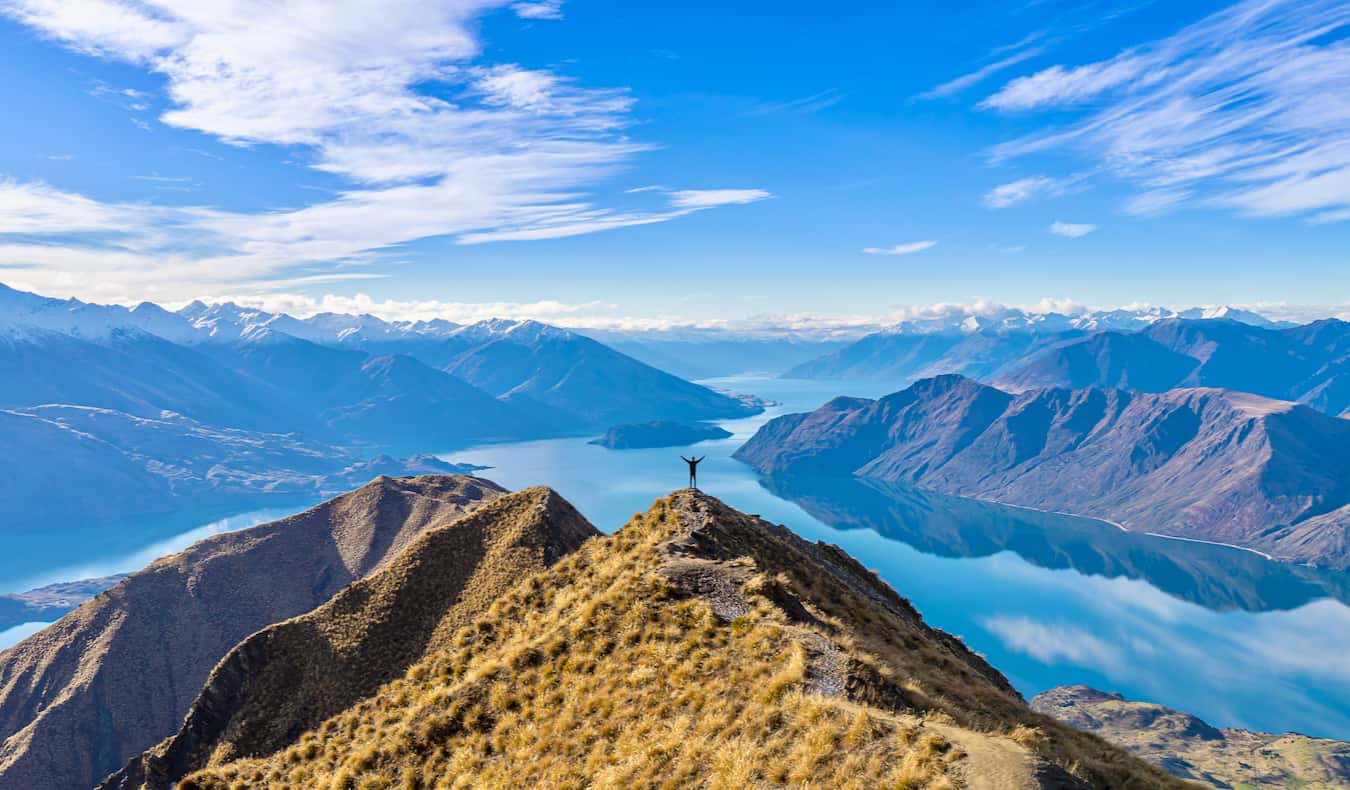
Staying safe on the road is a top concern for….well, everyone. No one wants to get scammed, hurt, or sick on the road. No one wants to get robbed.
And, when you are going somewhere you have never been before, it’s normal be cautious. You don’t know what to expect or how to play it safe. There’s a lot of unknowns.
While every country in the world is different, there’s some standard practices and common rules you can use to stay safe when you travel. Some of these rules are common sense, some were sadly learned from first hand experience!
Here are my 10 safety tips to ensure everything goes smoothly when you travel:
Table of Contents
1. Learn about common scams
2. buy travel insurance, 3. know what your insurance will and will not do, 4. save your emergency contacts, 5. prepare a google map, 6. download the safe traveler app, 7. follow embassies on twitter, 8. separate your cash and cards, 9. ask locals for advice, 10. don’t share too much information.
While scams are rare, they are out there, waiting for unwitting travelers to stumble into them. Most will only cost you a few bucks and a bit of embarrassment, but others can fleece you. Be sure to read up on your destination to see if there are any common scams to be aware of.
On my first trip to Thailand I was scammed multiple times on my first day. It was just a few bucks, fortunately, but it was still awkward and unpleasant. Since that trip, I’ve always made sure to be vigilant and research scams before I travel.
Common travel scams include taxis not using their meter because it’s “broken,” people trying to rope you into signing a petition (and then demanding a donation), or people selling fake (or overpriced) tickets to attractions.
Review this list of common scams before you go so that you’re ready for whatever is thrown your way.
One of the very first things I do once I book a trip is buy travel insurance . I know, it’s not a fun part of travel planning and it’s a boring thing to read (and write) about. But buying insurance early guarantees I’m covered in case I need to cancel my trip, if my flight is canceled or delayed, and much more.
For just over a dollar per day you get peace of mind, knowing that, should something go wrong, you won’t have to deal with it (or pay for it) alone.
I never leave home without travel insurance. You shouldn’t either.
If you’re on a budget, SafetyWing is my go-to company for affordable plans.
If you’re really concerned and want someone to call in an emergency, check out Medjet .
Medjet has a security response membership, MedjetHorizon, with 24/7 security teams ready to help (and extract you if necessary). It can also get you moved home if you’re hospitalized. Most travel insurance plans just move you to the nearest hospital, but Medjet will get you to your preferred facility in your home country, no questions asked.
If you want to learn more, you can read my complete review of Medjet here .
You can get a Medjet quote here (there are super affordable short-term and annual memberships).
For more information on travel insurance, here’s a list of all my recommended travel insurance companies .
Before you leave home, read over your insurance policy again. Every company is different, so it’s good to know exactly what is and is not covered.
For example, many travelers think that if they break their leg abroad, their insurance company’s medical evacuation benefits will get them home. That’s not always the case. Chances are, they will only get you to the “nearest acceptable facility” and make sure that you’re treated there. You’ll then be on your own to get home.
For security threats and natural disasters, insurance companies generally require what’s called a “hard trigger” before they can or will assist you. That means the government must declare an emergency or evacuation order. If that doesn’t happen, you will be expected to get home yourself, even if the situation is dire (and even if it costs thousands of dollars).
That’s why I always suggest Medjet to travelers who want to be sure they get home no matter what. It’s the ultimate in security and crisis response. There’s a 24/7 crisis line that can respond to a wider range of safety threats without the need for a hard trigger.
Once you have travel insurance, save the contact number in your phone. Save the emergency contact email in your inbox too. That way, you can find it quickly if you have a question or need assistance.
If you think you might not have Wi-Fi or cell phone service during your trip, write the number down in your phone on a notes app just to be safe. You might also want to keep a physical copy of both in your wallet too, just in case something happens to your phone.
Be sure to also email yourself copies of all your important documents, such as your passport and license, in case you lose your wallet. Having printed copies of them isn’t a bad idea either.
Once you’ve booked your accommodation, save it on Google Maps. That way, you can find your accommodation should you get lost and need to show the address to a driver. You might want to also take a physical business card from your accommodation once you arrive (it will have the address and contact info on it, which might come in handy).
Additionally, save other important destinations on your Google Map, such as the nearest hospital, pharmacy, grocery store, and embassy/consulate. If you feel comfortable doing so with a trusted person at home, you can also share your location through Google Maps. For many people, especially solo travelers, this provides peace of mind, knowing that someone in the world knows their whereabouts.
Once you’ve decided where to go (and if you’re from the US), sign up for the S.T.E.P. program . It alerts local embassies that you’re in the area in case a situation arises. Next, download the State Department’s Safe Traveler app . You just punch in the destinations you want to visit, and it will send push alerts to your smartphone regarding any important security concerns. That way, you’ll be forewarned should anything happen that you should be aware of.
If you use Twitter, follow your country’s embassy in the destination country. It will not only mention important local events and holidays but, should a situation arise, also publish updates and information there. Make sure you turn your notifications on so you don’t miss anything important.
Following local news companies on twitter is also a good idea, especially if there is a local english-speaking website that has a Twitter account. That way, you definitely won’t miss any important happenings.
When traveling, don’t keep all your cash and cards in one place. Keep some in your wallet, some in your day bag, and some in your accommodation. That way, if you lose your wallet or if your bag is stolen you still have cash and cards to fall back on.
It’s not uncommon for banks to cancel or put a hold on a credit card while you’re abroad either, so bring more than one just to be safe.
When you check into a hotel or Airbnb, ask if they have any safety advice to share. Are there neighborhoods worth avoiding? Are there any scams they think you might encounter? Maybe some areas are safe during the day but not at night. Ask for input from locals; they’re in the best position to help.
That said, it never hurts to get a second opinion. Some locals might consider an area unsafe, while others don’t. Be sure to shop around for advice so you can avoid any biases. Travel is subjective, after all, so the more opinions you can get, the better.
If you’re posting on social media, don’t post in real time. Wait a couple hours and then post. That way, would-be criminals can’t use that information to get your location and rob you or stalk you (this is especially important for solo female travelers).
Moreover, don’t give away too much info to random strangers. Avoid sharing your hotel name, and, if possible, avoiding telling people it’s your first time visiting the city/country as they may use that as an invitation to try and rip you off.
It may seem like the world is a dangerous place, with trouble lurking around every corner, but that’s only because fear sells. I’ve been traveling for over 15 years, and 99% of the time, things go smoothly.
But for the remaining 1% of experiences, it’s best to be prepared . By arming yourself with knowledge before you go and ensuring you have comprehensive insurance and safety coverage , you’ll be able to travel with confidence, knowing that you’re ready for whatever the road throws your way.
Book Your Trip: Logistical Tips and Tricks
Book Your Flight Find a cheap flight by using Skyscanner . It’s my favorite search engine because it searches websites and airlines around the globe so you always know no stone is being left unturned.
Book Your Accommodation You can book your hostel with Hostelworld . If you want to stay somewhere other than a hostel, use Booking.com as it consistently returns the cheapest rates for guesthouses and hotels.
Don’t Forget Travel Insurance Travel insurance will protect you against illness, injury, theft, and cancellations. It’s comprehensive protection in case anything goes wrong. I never go on a trip without it as I’ve had to use it many times in the past. My favorite companies that offer the best service and value are:
- SafetyWing (best for everyone)
- InsureMyTrip (for those 70 and over)
- Medjet (for additional evacuation coverage)
Want to Travel for Free? Travel credit cards allow you to earn points that can be redeemed for free flights and accommodation — all without any extra spending. Check out my guide to picking the right card and my current favorites to get started and see the latest best deals.
Need Help Finding Activities for Your Trip? Get Your Guide is a huge online marketplace where you can find cool walking tours, fun excursions, skip-the-line tickets, private guides, and more.
Got a comment on this article? Join the conversation on Facebook , Instagram , or Twitter and share your thoughts!
Disclosure: Please note that some of the links above may be affiliate links, and at no additional cost to you, I earn a commission if you make a purchase. I recommend only products and companies I use and the income goes to keeping the site community supported and ad free.
Related Posts
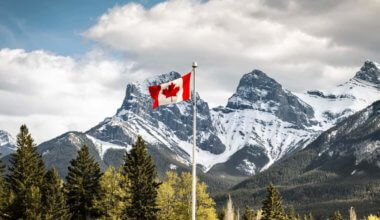
GET YOUR FREE TRAVEL STARTER KIT
Enter your email and get planning cheatsheets including a step by step checklist, packing list, tips cheat sheet, and more so you can plan like a pro!

- Meet the Team
- Our Manifesto
- Work with Us
- Budget Travel
- Personal Development
- Work & Travel
- United Kingdom
- More of Europe
- Philippines
- More of Southeast Asia
- More of South America
- More of Central America
- South Korea
- More of Asia
- More of North America
- New Zealand
- Pacific Islands
- More of Oceania
- South Africa
- More of Africa
- More of the Middle East
- Travel Essentials
- Travel Gear
Home » Budget Travel » travel safety tips
36 Crucial Travel Safety Tips (from Years of Getting into Trouble)
Backpacking the world is one hell of a rollercoaster. 99% of the time, backpackers are able to stay safe while traveling the world. But every now and again, something goes wrong.
Again, it’s nearly always possible to avoid disaster if you think smart and act fast. Safety while traveling is often taken for granted but it really is pretty simple to keep yourself safe on the road.
One of my top travel safety tips is simple: prepare yo’ ass.
So, how do you prepare yo’ ass for worst case scenarios? Arm yourself with knowledge, my friends.
Using my experiences, I can help you travel the world safely. I’ve assembled a comprehensive list of 36 of the best safety tips for traveling so that you may avoid the worst.
I have been on the road for over ten years and, over the course of my travels, I have been a part of more than a few misadventures. Broken bones, horrible infections, natural disasters, political fallouts; you name one, and I have probably been a part of.
Learn from my mistakes everyone – these tips for traveling safely could possibly save your life.

Unlock Our GREATEST Travel Secrets!
Sign up for our newsletter and get the best travel tips delivered right to your inbox.
36 Top Travel Safety Tips
Bonus: how to build a kick-ass first aid kit, how to travel safely, faq about the best travel safety tips, final travel safety tips and thoughts.
Follow these essential travel safety tips to ensure that your trip is a smooth one!
1. Wear your fucking helmet
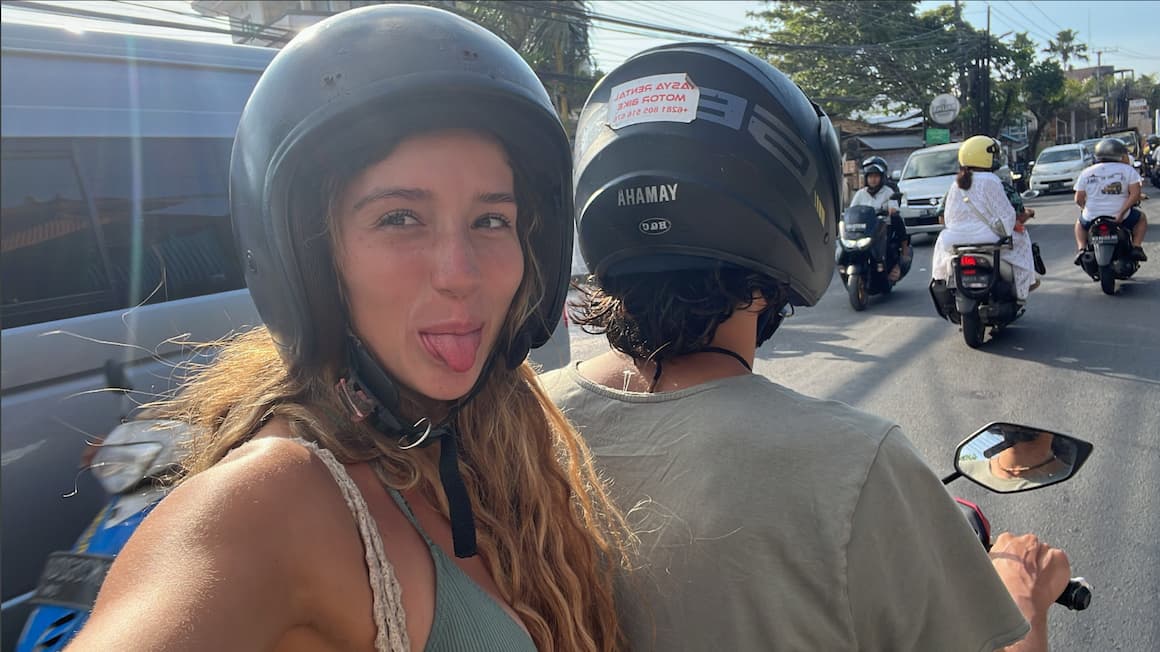
The Broke Backpacker is supported by you . Clicking through our links may earn us a small affiliate commission, and that's what allows us to keep producing free content 🙂 Learn more .
I’m actually not going to tell you to not drink and drive; because if you do drink and drive, you won’t listen to me anyway.
I’m gonna keep this real simple – protect yourself and protect your trip of a lifetime by wearing a helmet, especially when you have been drinking.
I’m a good driver. I’ve driven in lots of crazy countries around the world. It doesn’t matter how good you are; if you ride or drive everywhere, you will eventually have an accident.
I’ve come off a motorbike three times. On two occasions, I was absolutely fine. On the only occasion when I wasn’t wearing a helmet in Thailand, I cut my face up and had to get nine stitches above my eye.
Yes, some ways to travel safely include things you should be doing at home, too. Wear your helmet, it could save your life. Traffic accidents are still the number one killer of backpackers.
2. Beware the mixing of intoxicants and water
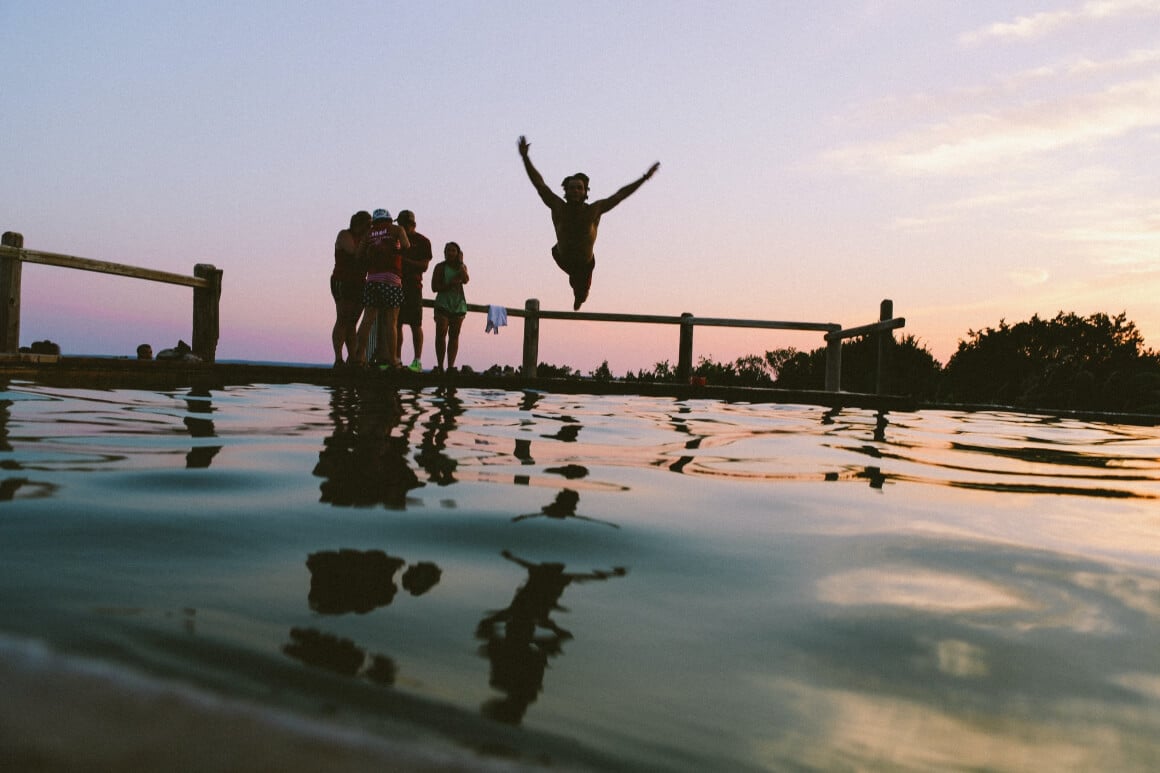
The number two cause of death for backpackers? Drowning .
Every year, on every continent, some backpacker will get drunk or stoned out of their mind and then decide it’s a fantastic idea to go swimming.
I get it and I’ve done it, being in the sea whilst smashed is great fun but you have to take some precautions. I don’t go deep or swim off beaches that might have currents I don’t know about. Be aware of the added risk when you are drunk and avoid swimming.
3. Stop using back pockets
This is probably the first vacation safety tip that I ever learned because it’s kinda true. Most pickpockets have the easiest time lifting your wallet from your back pocket. It’s convenient for them because your back is turned and you probably won’t even feel them doing it.
Just keep your wallet and any valuables in your front pockets. They’re more within your field of view and hug your legs more closely. Pickpockets will have a much harder time getting into these.
4. Pack appropriately
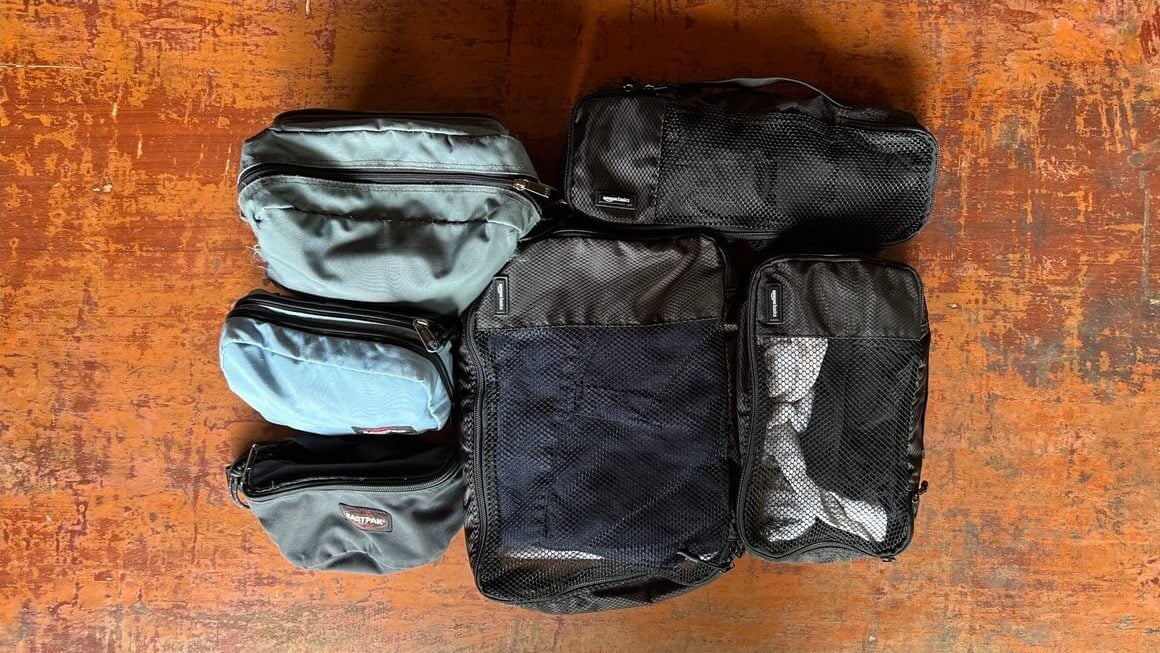
Don’t take what you pack for granted – bringing the right gear is a serious safety tip for travelers. You need to make sure that you have the proper equipment for whatever it is you’re doing on your backpacking trip.
If you’re going trekking in Nepal, you should probably bring a good quality warm jacket and a solid pair of boots , at the very least. If you’re going to Colombia for a holiday, our personal travel safety tip would be to pack lightly and to avoid bringing anything overly valuable with you.
Pack for what you intend to do on any given adventure. Make sure you have everything you need and that the gear will serve you well. Don’t bring an ice ax to Indonesia – bring flip flops and a surfboard.
Be sure to check our complete backpacking list before venturing out yourself.
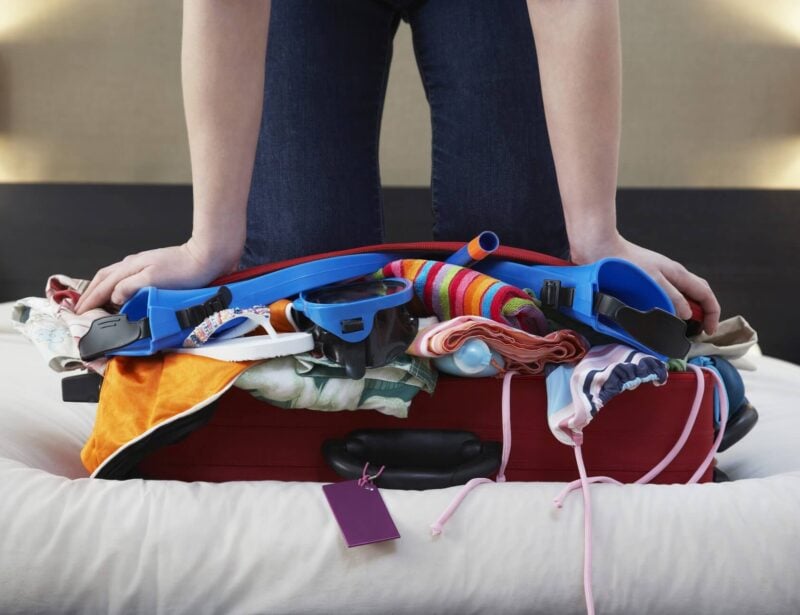
Wanna know how to pack like a pro? Well for a start you need the right gear….
These are packing cubes for the globetrotters and compression sacks for the real adventurers – these babies are a traveller’s best kept secret. They organise yo’ packing and minimise volume too so you can pack MORE.
Or, y’know… you can stick to just chucking it all in your backpack…
5. Know the exit
I picked this up from a Bourne film but it’s still a top travel safety tip – know your way out of a building.
When I do feel like I’m in a dodgy situation, I’ve already mapped out a retreat plan. When I sleep in a new room, I make sure I know the options for getting out of that room in case I awaken to find the building besieged by zombies.
6. Invest in a good backpack
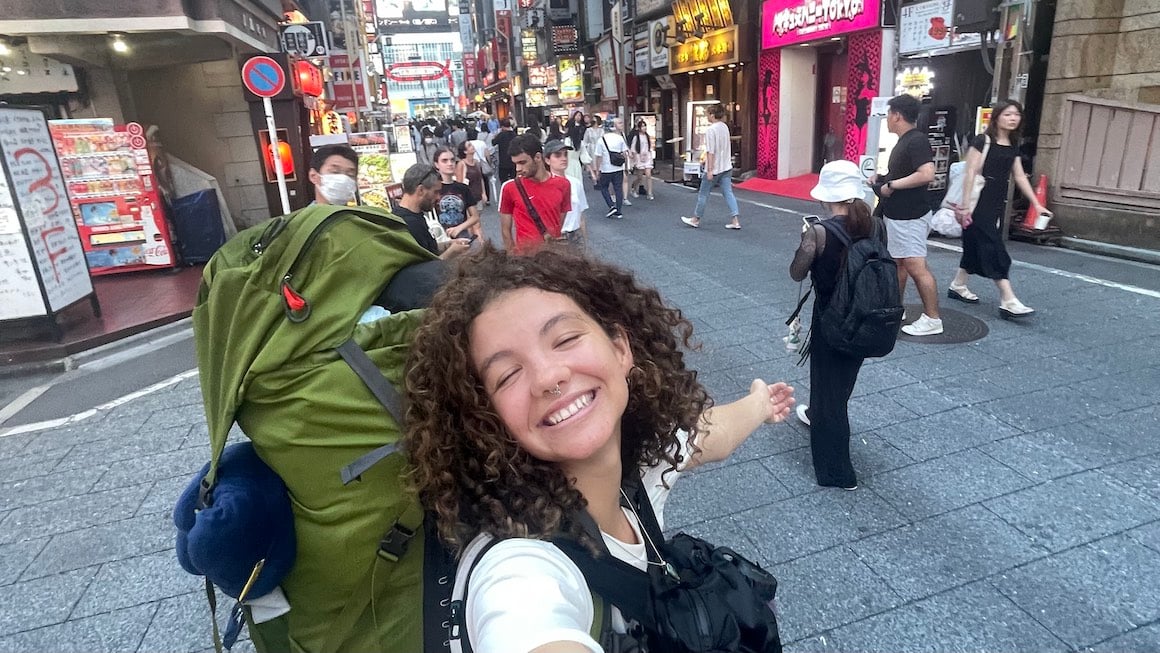
When you’re on the road, your backpack is your house – it holds all of your personal belongings and maybe even a secret or two. Thus, you should treat it just like a regular home.
Your backpack needs to strong and secure. It needs to be able to withstand the elements and protect your valuables from invaders.
Would you leave the front to your house wide open? For that matter, would you live in a house that is falling apart? If you want to travel safely, make sure you renovate your travel house.
Buy a quality backpack for traveling . Make sure the zippers are strong or if they can be locked; check to see if the material is tough and if it’ll resist attacks; see if there are hidden pockets for stashing stuff. A backpack will be one of the best investments that you can make in your backpacking career. For the past while Nomatic has been one of the best backpack companies, they are at the forfront of the new generation of travel packs.
7. Hide your cash
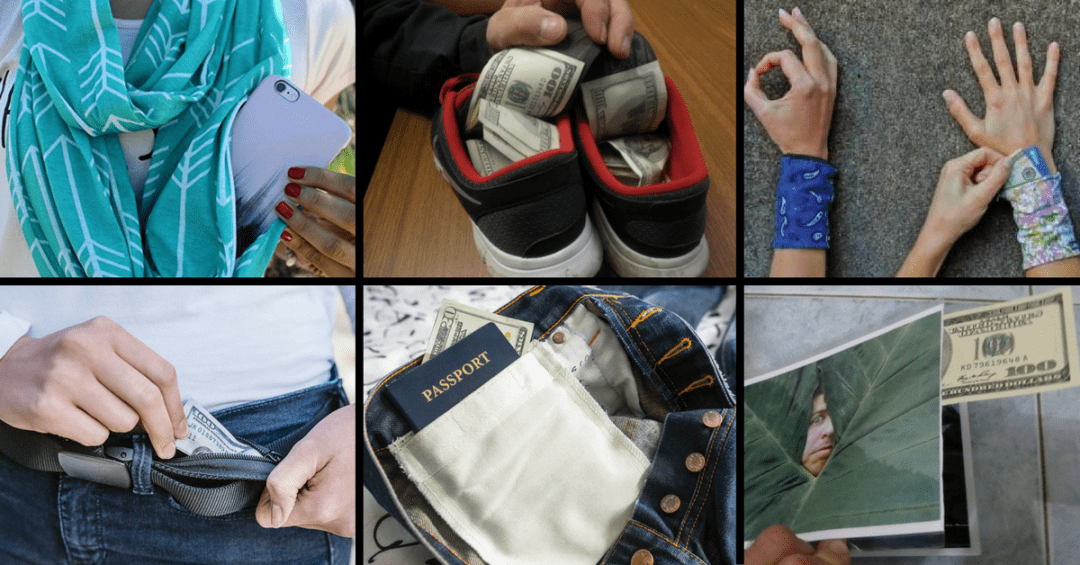
This is one of my biggest tips for backpacking in countries with a high crime rate.
I’ve hidden money in all kinds of different places on my travels. Once, I sewed hidden pockets into my jeans. Another time, I hid money in between two photos laminated together within a photo book.
My favorite method to hide money is a simple belt with a plastic buckle, that can go through Airport scanners without setting them off, and a zip on the inside of the belt.
Usually, when you do encounter problems traveling, it is going to be focused around one thing – money . Yep, money is the root of all evil.
Travel safety and money go hand in hand. Avoid flashing your cash and as well as hiding the bulk of your money in a special security belt, keep your wallet light so that if you do have to give it up you aren’t going to lose out on too much.
8. Beware the sudden appearance of beautiful strangers…
Or even average-looking strangers.
The world is full of truly lovely people but every now and again you meet someone who is just too damn nice. And sometimes these ‘too damn nice’ people are looking to make money out of you somehow. Part of The Broke Backpacker Manifesto is to be kind to strangers, but don’t compromise your strength either.
They may simply try to sell you something. Or, they may rob you. Keep your wits about you, especially if you are drinking, and keep an eye on your stuff.
9. Do you really want to drive?
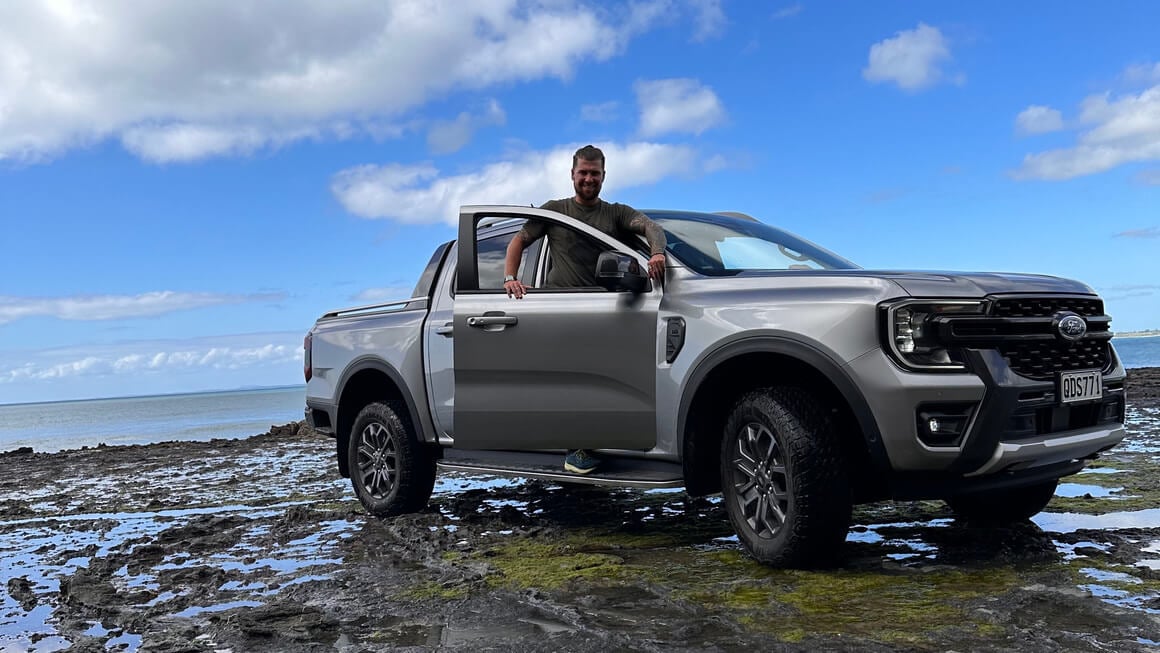
In some countries, it’s just not worth the extra effort to have your own car. God knows places like South Korea would be totally safe if it wasn’t for the maniacal drivers on the road. Don’t even get me started on driving somewhere hectic like the Dominican Republic either.
Whilst we love a good road trip, sometimes the best road safety tip when traveling is to just avoid it altogether. It’s just not worth the hassle and the stress will probably shave years off your lifespan.
Besides, most countries worth visiting have decent public transport that can get you to where you need to go. For all other instances, hitchhiking is totally safe and actually very effective!
10. Keep your stuff locked up
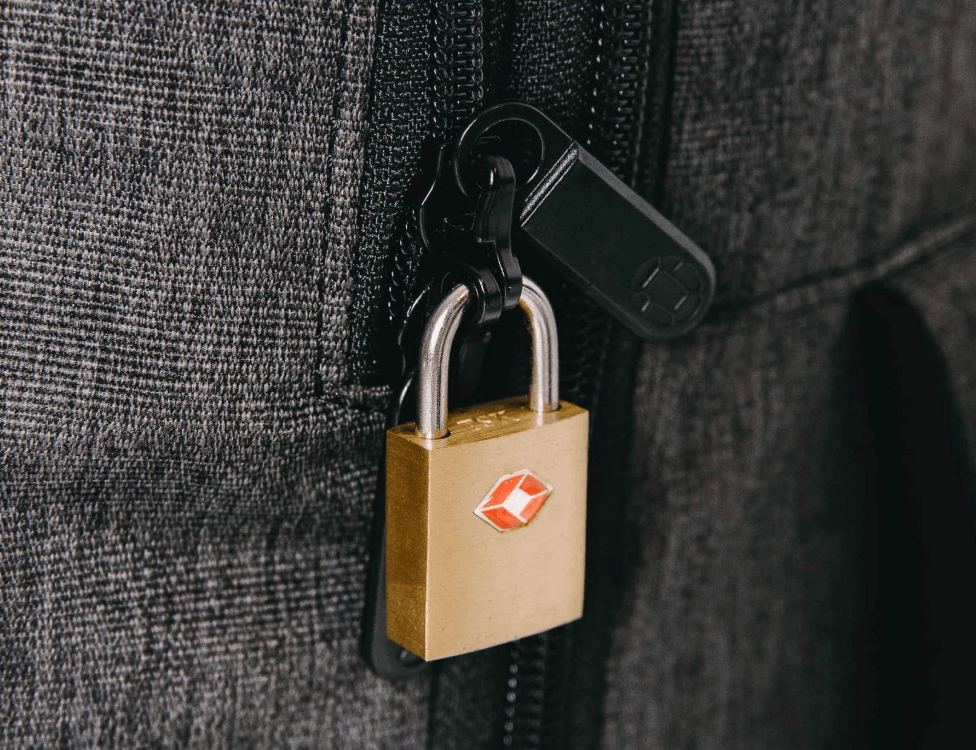
When I was younger and traveling around the tropics, I didn’t give a fuck where I put my stuff or if it was safe. I just threw everything under my bed and went straight to the bars. It’s no wonder that I barely returned with anything besides my backpack and the tattered clothes on my back.
Shit gets knicked all of the time. It can be as vital as a mobile phone or as insignificant as a t-shirt. I’ve had more than 3 phones and countless articles of clothing stolen before.
As you travel more, you need to invest in more security measures. This could mean buying a more secure backpack or possibly a money belt .
One of the best international travel safety tips I can give is to invest in a solid padlock. Most hostels and other forms of accommodation have lockers these days, which are great places to put your stuff. A simple travel padlock is often strong enough to deter petty thieves. These are very inexpensive, too.
11. Or keep it on your person
When you need to leave the hostel with your shit, you obviously can’t lock it up (unless you chain it to yourself like Jacob Marley).
Don’t worry – it’s not like you’re going to be suddenly jumped the moment you step outside. This just means you need to keep everything in your clutches.
Most bags are stolen when the owner is unaware. Thieves lift bags from under tables, from the bus while you’re sleeping, and even from the person himself following a scam. In more extreme situations, someone may even do a drive-by on a scooter and snatch your bag that way (like they do in Cambodia).
When you’re carrying valuables with you, keep that shit on you at all times. Keep bags on your person itself and don’t let it out of your sight. Unless they are put in a safe hold or something, they are fair game.
Personally, I always have a leg through a backpack strap when it’s not on my back. That way, if someone does try to steal it, they’ll either alert me or face too much difficulty in the act.
Want to save money on accommodation?
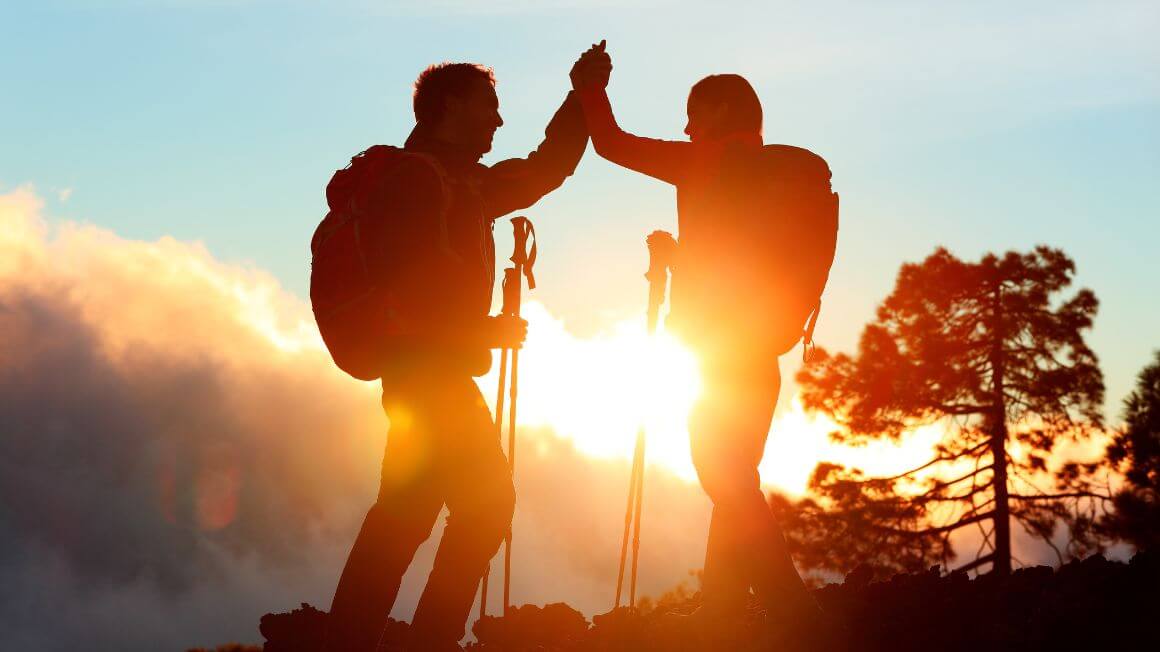
We got you. For reals.
12. Be aware of gender issues
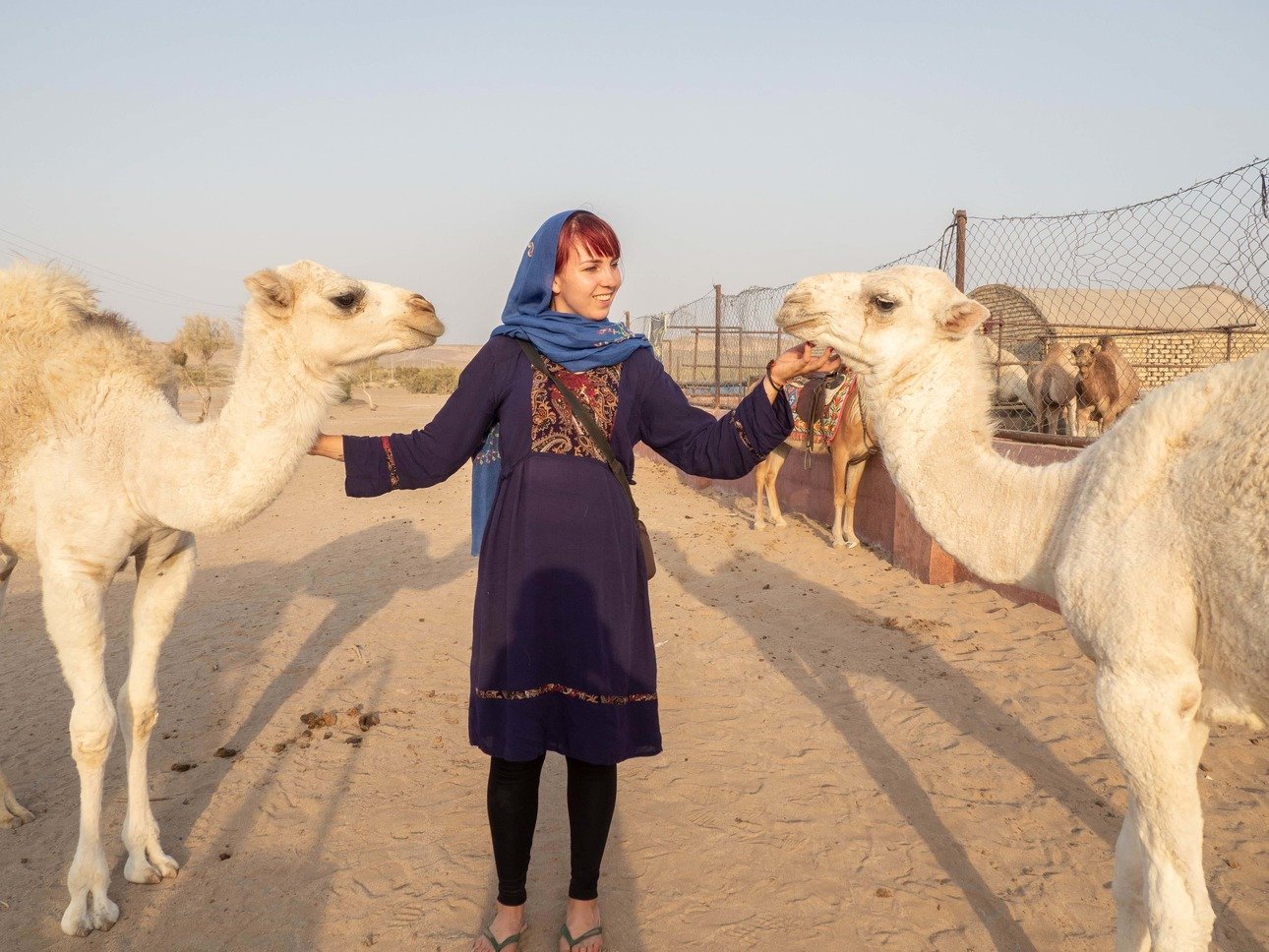
As much as I hate to admit it, gender inequality is still a problem in the modern world. Women are treated differently than men, for good and bad, and are subject to different problems. Depending on what country you’re in and how the feminine genome is treated there, these problems could be minor or magnified.
Outside of the aggressive Spaniard or drunken German, traveling in Europe may not be a huge ordeal for solo women. But visit somewhere like Morocco or Guatemala though, and being a girl could suddenly be much more difficult.
Traveling as a woman requires extra attention and street smarts . You’ll need to be more cautious and use your instincts to avoid being put into a potentially dangerous situation. Listen to as many tips for solo female travelers as you can and read up on gender dynamics in individual nations.
We would like to take a moment to remind our female readers that no country should be off-limits to them. Yes, it takes more effort to travel as a girl but that is no reason to not travel at all. Lots of women travel on their own and have a great time – you should too.
13. Have smart digital habits
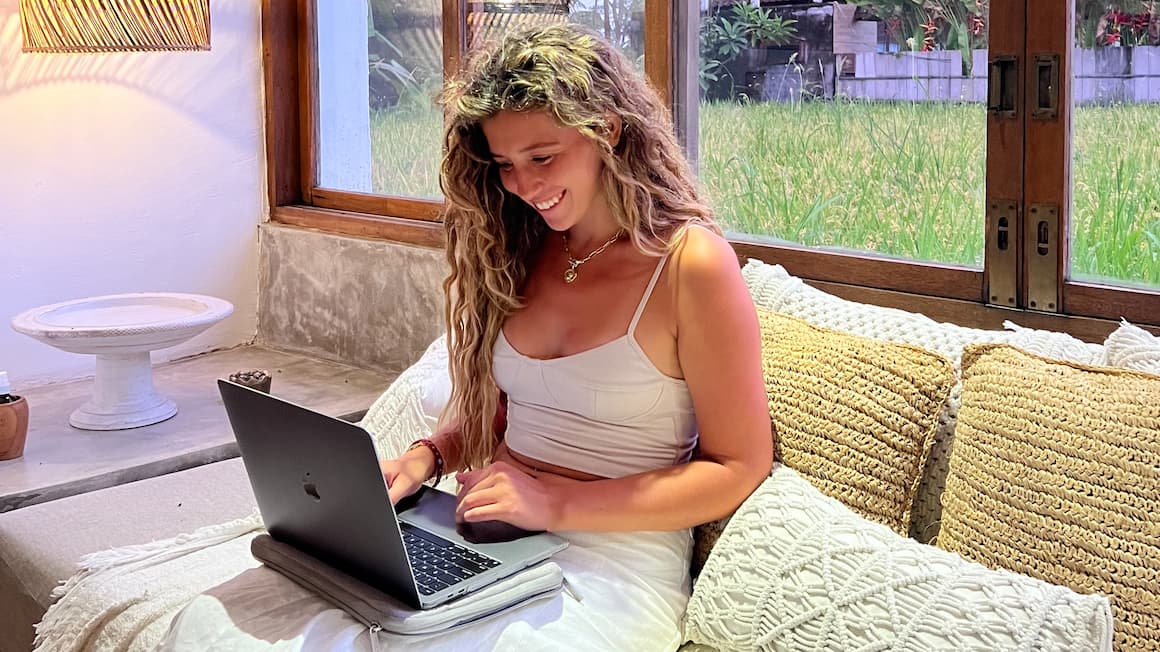
You should be just as protective of your data as your physical items when traveling. This isn’t so much for personal safety as security for your most important data. If you’re going to be creating a lot of digital files – say you’re taking pictures or writing wherever you go – a computer accident could be disastrous. If you’re a digital nomad or freelance photographer , this could lead to the loss of work.
Be sure to backup all of your vital data when traveling. Hard drives are a great accessory to have and the solid state ones are, in particular, hearty. Consider investing in some Cloud storage while you’re at it as this type can’t actually break (it’s all online). Google Drive offers online storage for good prices.
Online and digital fraud is a little less common. Regardless though, be sure to establish secure internet access while traveling and to avoid shady “free WiFi” spots. Use the wrong connection and someone could steal vital information while you’re browsing the web. If you’re traveling somewhere like China, have a VPN installed on your computer.
14. When in Rome, do as the Romans
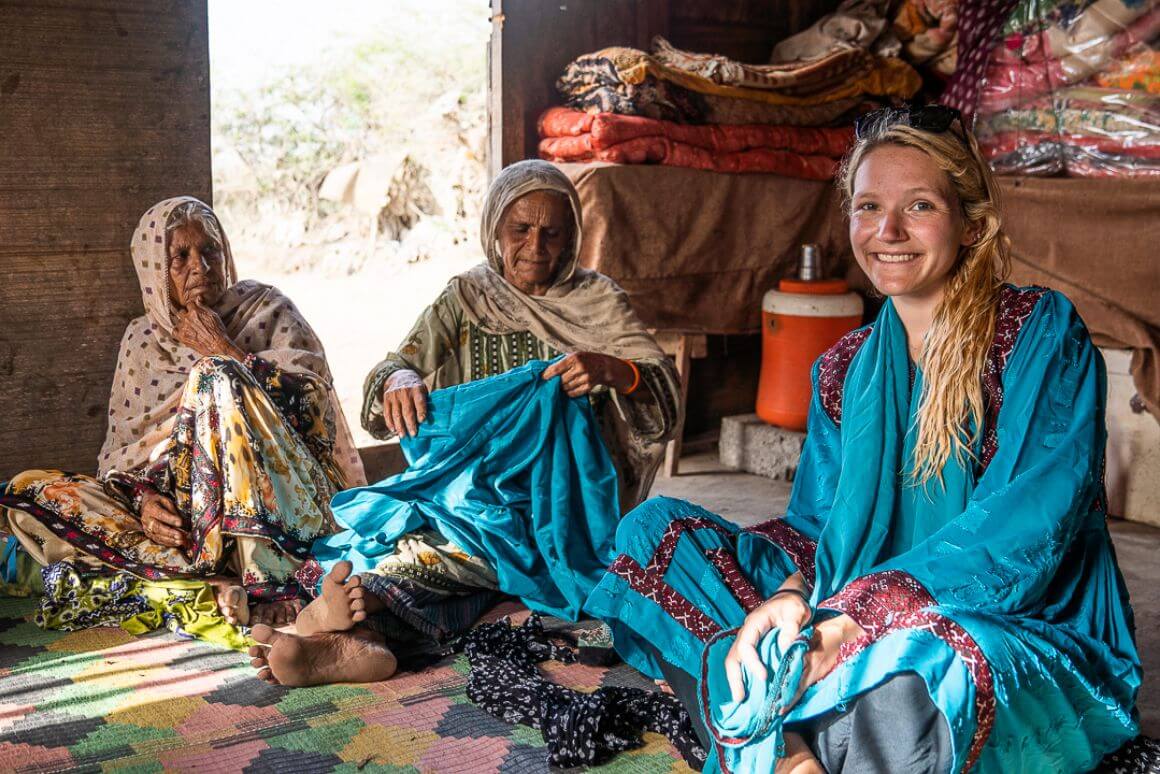
One of the best international travel safety tips I can give you is to blend in . Act local, look local, be local…
This is of course sometimes laughably impossible, but when I am traveling in countries like Pakistan or Venezuela I will dress like a local. If you decide to don the national dress, this can often work as a pretty good icebreaker.
Sometimes, I pretend I am ‘007 on a top-secret mission to rescue a Norwegian (I like blondes) princess from a far-flung land. All I have to do is avoid detection…
In all seriousness though, blending in will help you be culturally sensitive and you will attract less attention as well. If you’re visiting a country that dresses conservatively even in the worst humidity and heat, then suck it up. You need to respect the local customs and dress that way too.
Wandering through the streets of Laos topless or in a bikini is disrespectful and you will stand out like a sore thumb. Doing this in somewhere like India (Goa ain’t India folks!) is just plain stupid.
15. Pack a first aid kit
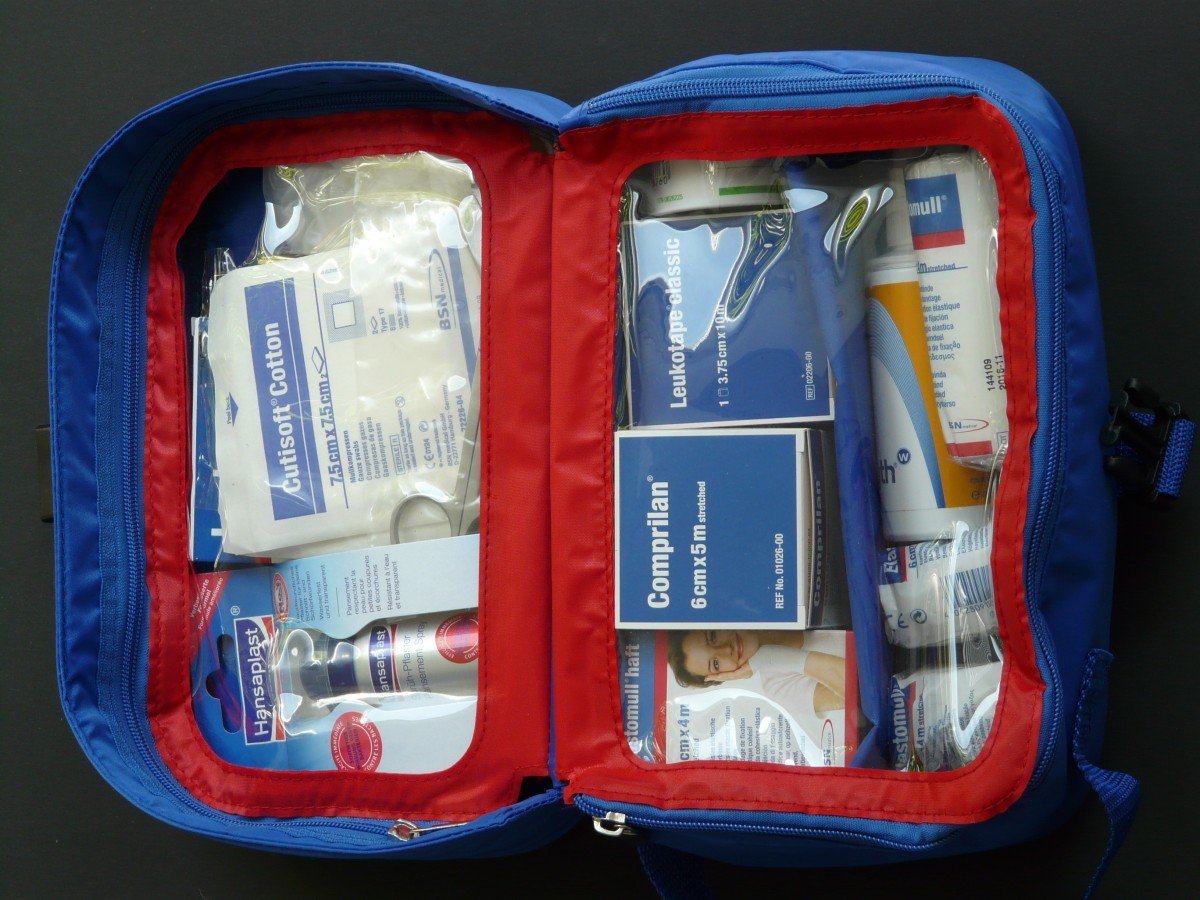
When you’re in the mountains, it can be tough to find decent medical supplies. Having a well-stocked first aid kit complete with bandages, medicine, and antiseptic wash is a safety tip worth investing in.
I’ve always traveled with a first aid kit and although I only end up using it a couple of times a year – usually for just minor cuts and bruises – it is well worth having in an emergency. For example, my little first aid kit has…
- Defeated a thousand blisters
- Made a sling for a friend who broke their arm in a rock fall, we then had to evacuate him
- Stitched up my own arm when I couldn’t get to a hospital
- Cleaned and dressed ten or more friends who have come off motorbikes (on separate occasions)
Honestly, a proper first aid kit is well worth investing in. You can buy a pre-assembled first aid kit – but be sure to pimp it out. There’s a full list of everything you should include further down.
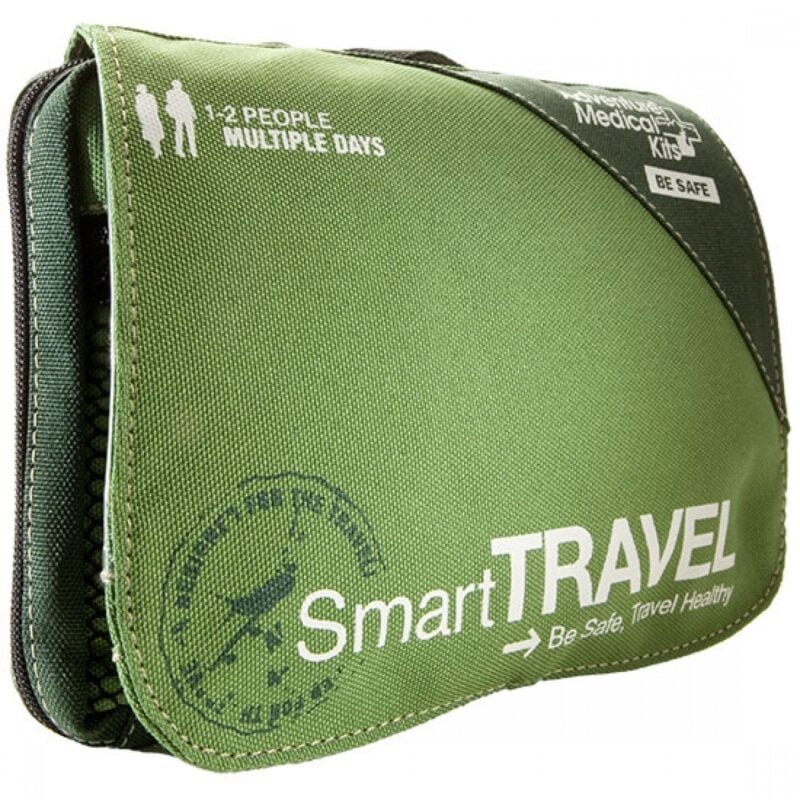
Things go wrong on the road ALL THE TIME. Be prepared for what life throws at you.
Buy an AMK Travel Medical Kit before you head out on your next adventure – don’t be daft!
16. Leave with only what you need
When you’re going out exploring for the day, or out for a crazy night, you should only take what you need with you. Anything you have on yourself is going to have the potential of getting stolen. So, why put extra valuables at risk when you don’t need to?
This means taking out only a certain amount of money or credit cards with you and leaving the rest at home. That way, if you are robbed, you won’t have to worry about losing everything . It’s like the old saying goes: “don’t put all of your eggs in the same basket.”
Not having valuables might even keep you safer too! Another added benefit of doing this is that you’ll be setting a budget for yourself. When the cash runs out, time to head back home.
17. Be careful of shady ATMs
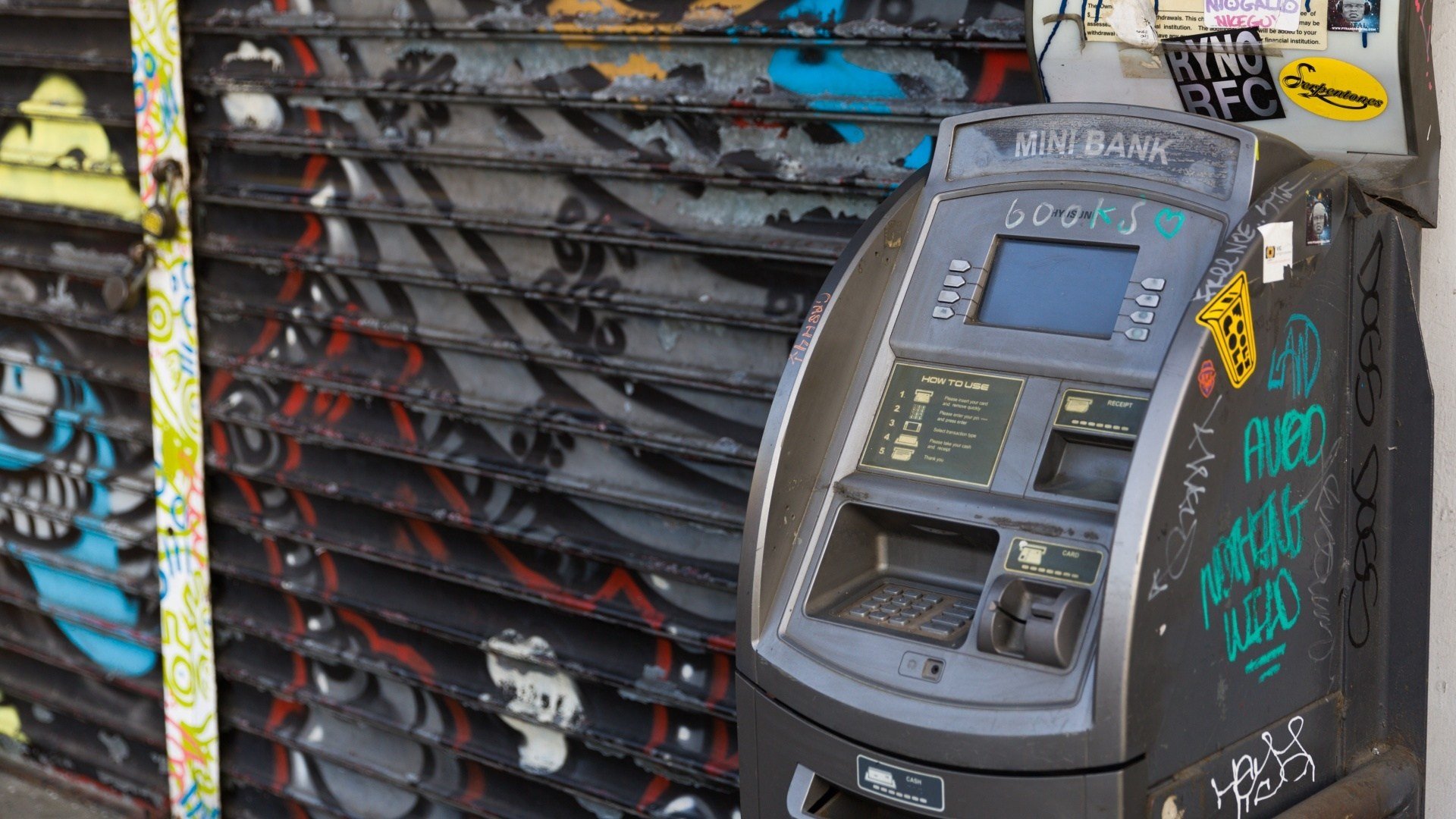
ATM fraud is one of the oldest tricks in the book. It goes like this:
- “Ah shit man, I’m outta cash. You think I can use that ATM over there?” (Points to a wreck of an ATM outside of convenience store.)
- “I dunno man, but the girls want beers soon.” (They walk over to use it.)
- “What’s the worst that could happen?” (Uses said ATM.”
Next morning, our heroic duo wake up to find there have been several unauthorized transactions on their cards as the machine they used was jerry-rigged to steal customer information. Tough break fellas.
The other problem with this hypothetical situation is that these two guys probably used the ATM in the middle of the night. If they were alone on the streets, they could be asking for trouble. Muggers love to hang around ATMs and rob unwitting withdrawers because, hey, the cash is coming straight from the source.
Only use ATMs at established branches and banks. Try to use the ones that are actually inside the buildings as these usually have cameras.
18. Check in

You remember that movie – 127 Hours ? The one about the guy who had various delicious drinks stored in the boot of his car and then got his arm stuck under a rock. Yeah, that guy lost his arm.
You remember that other movie, Into The Wild ? The cult backpacker movie about a guy starving to death in a van in Alaska.
Both of those movies have one thing in common; neither of the heroes opted to tell anybody where they are going.
I get it – it’s romantic, it’s mysterious, they are brave mountain men walking paths nobody knows or could possibly understand. Except, it’s also fucking stupid.
If you are going on a trek or off on an adventure, tell somebody where you are going and when you expect to be back. That way, if you are several days (or weeks) overdue, somebody will eventually come looking for you. This travel safety tip might just save your life…check in when you’re on the road.
Yes, we fully appreciate that when you’re having such a great time it can be quite hard to remember to check in. Well, thankfully technology has come to the rescue. There are now, awesome apps that do the checking in for you by automatically tracking your travels so your loved ones back home know exactly where you are.
19. Use rideshares
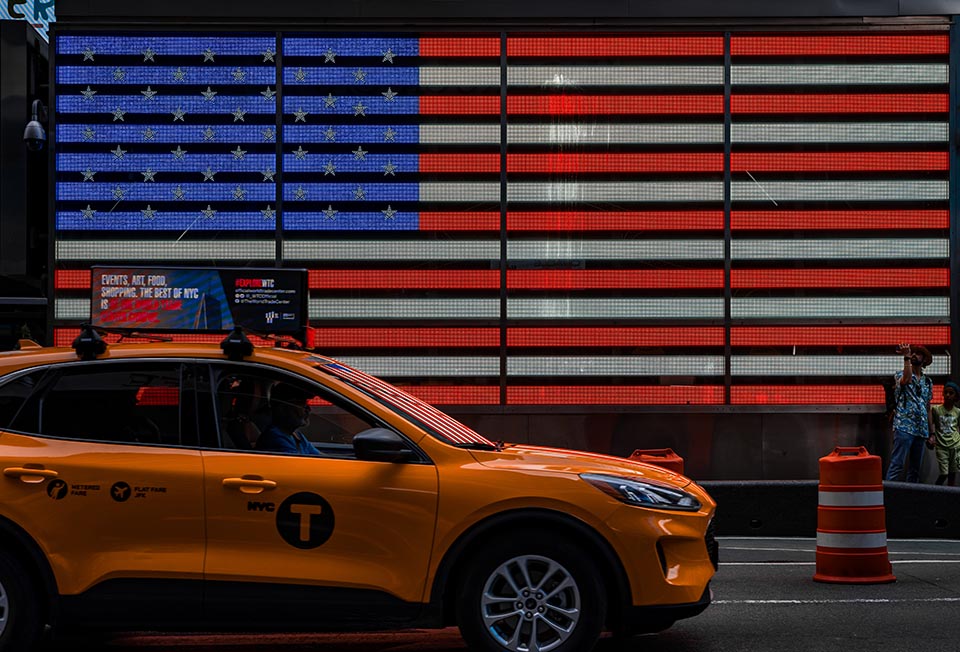
Taxis fucking suck sometimes – the drivers are mad, the cars sometimes look like they came from a warzone, and fairs can be ridiculous. I could give you heaps of road safety tips for traveling with these nightmares but don’t really have the time to do so.
Much easier is suggesting that you just stick to rideshares . They’re convenient, affordable, and, best of all, provide safety measures like tracking, registration, and customer support. Gone are the days where you had to get the driver’s information before jumping in the car. Hello to the future!
Using rideshares is also one of my top tips for solo female travelers. With these services, you can avoid creepy male drivers altogether and even have a way of reporting sexual harassment. Honestly, once you start using apps like Uber or Lyft, it’s hard to go back.
20. Don’t eat everything
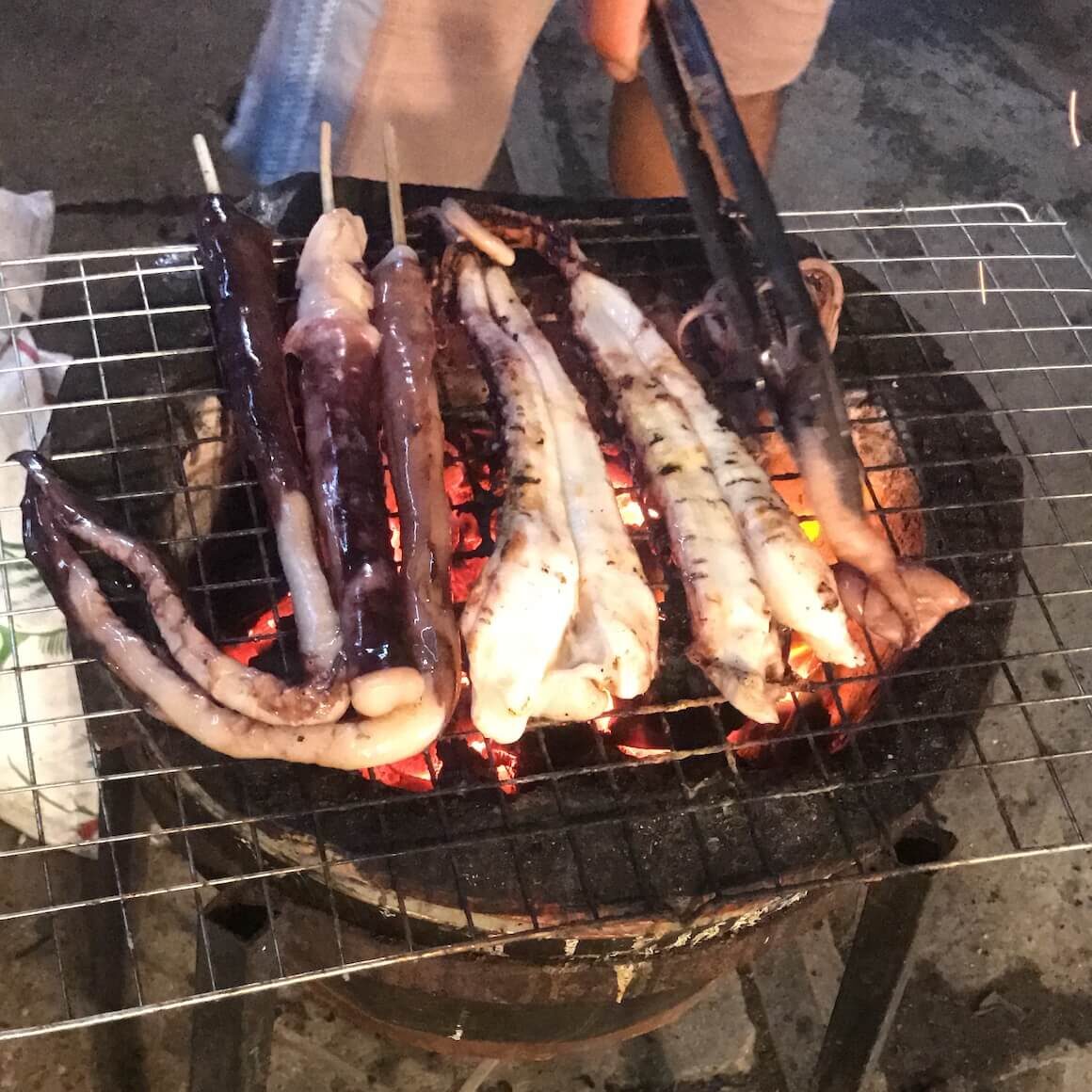
It can be tempting to gorge on all the delicious and exotic food you’re about to be presented, especially in places like Vietnam or Spain. Before jumping in the deep end though and eating without inhibition, you may want to consider if the food is safe at all.
Some countries don’t follow the same health codes as Western ones do. In these instances, foodborne illnesses are much more common and these can really ruin your time abroad.
Granted, not every restaurant is going to make you sick but our best travel safety advice would be to pay attention to hygiene . If a place looks dirty, the chances of you getting ill are higher. If food appears to have been left out all day, God knows what germs it’s picked up.
Pay attention to what you’re eating and double check to see if it’s clean. Trust us when we say Delhi Belly is never fun.
21. Know Critical Diet Information in the Local Language

For those traveling with a serious allergy or a restriction like celiac disease (where even crumbs of gluten can make them sick for days), taking care ahead of time is really important.
In those cases, I suggest picking up a translation card. There are many on the web, but for gluten-free travelers, I recommend fellow travel blogger Jodi Ettenberg’s gluten-free restaurant cards . She has traveled with celiac disease for over a decade, and has really detailed restaurant cards using local food names, and making sure to communicate the issue with cross-contamination. They’re the most detailed cards I’ve seen on the web and you have your pick of a dozen languages (so far).
For other allergies, there are options at Select Wisely. They’ve got nut allergy cards , and milk and dairy allergy cards , among others.
22. Party Safely

There is a party to be had in every country. It’s hard not to get lured in with cheap local beer and depending on the country, some pretty cheap drugs. Before you know it, the room is swaying and you probably should have stopped drinking two Chang’s ago.
Alcohol, drugs and staying safe while traveling do not mix well. Know your limits, when to stop, and when to go home. If you are on a mission to get smashed then do it with someone you trust. Your new friends you just met at the bar probably aren’t gonna be reliable when you are wasted.
23. Don’t assume that water is ok to drink
Water is the giver of life, the holiest of substances, the stuff that supposedly gets you high according to Mad Max . Drink from the wrong source though, and your life could be in very real danger.
While backpacking in Malaysia , a friend of mine drank from a hose that appeared to perfectly normal. 4 hours later he was puking his guts up in the streets and was helpless in bed for 36 hours. Another mate drank from a tap that was purportedly fine according to some locals at a Nepalese guest house he was staying at. He had giardia for 4 months afterward.
Moral of the story: know where the water comes from and if it’s TRULY clean. Better yet, have a Grayl Geopress with you so you can purify it, no matter how clean it supposedly is (that’s what I do).
Whilst drinking water from plastic bottles is unavoidable sometimes, I really don’t like using them. They create unnecessary waste and expenses.
Try using water purification and carry around a travel water bottle when traveling. These aren’t essential vacation safety tips per se, but the Earth will be a better place without the extra plastic (that’s just as important).
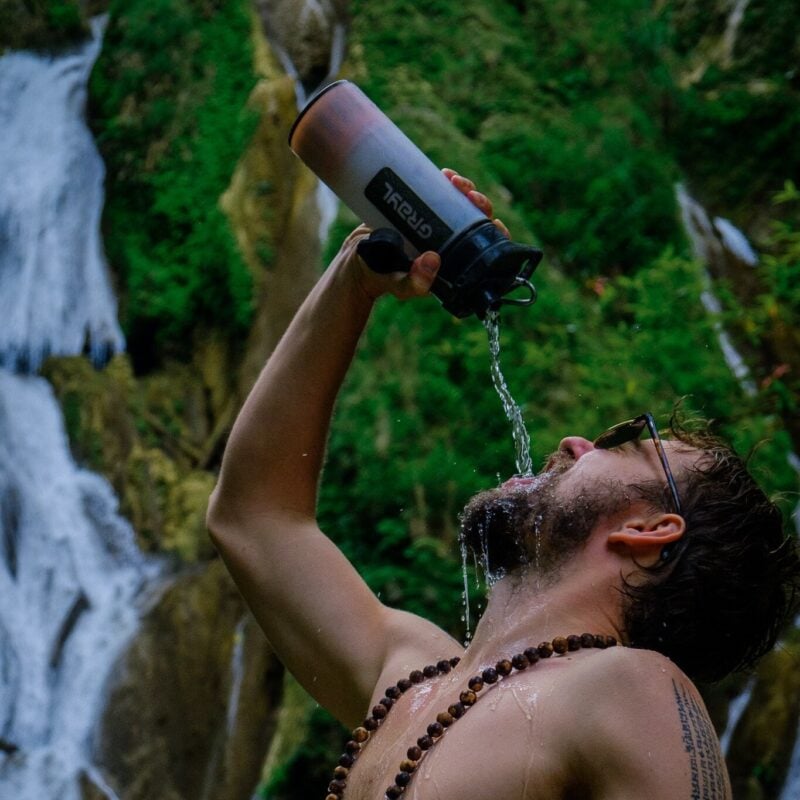
Drink water from ANYWHERE. The Grayl Geopress is the worlds leading filtered water bottle protecting you from all manner of waterborne nasties.
Single-use plastic bottles are a MASSIVE threat to marine life. Be a part of the solution and travel with a filter water bottle. Save money and the environment!
We’ve tested the Geopress rigorously from the icy heights of Pakistan to the tropical jungles of Bali, and can confirm: it’s the best water bottle you’ll ever buy!
24. Be observant
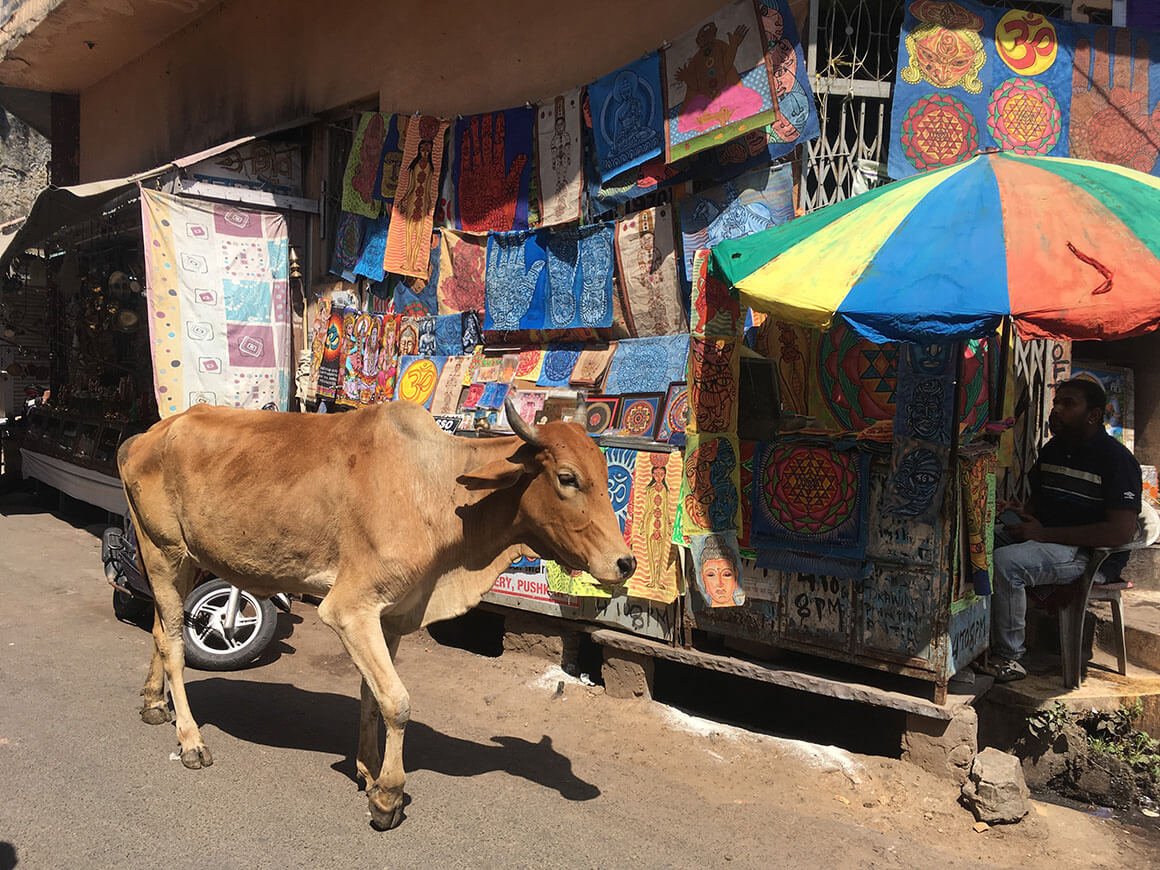
Keep that head on a swivel! Lots of bad situations can be seen coming and can be avoided simply by looking around.
If you’re walking around a dangerous city, like Cape Town, and the area is starting to look dodgy, it very well could be. If you’re travelling in Nicaragua and the streets to get crowded with angry mobs, the revolution may be starting.
Moments like could turn out really bad for an innocent bystander but they can also be easily avoided. Just keep your head up and actually pay attention to what’s going on around you. Honestly, this is one of the best travel safety tips that there is.
25. Be with other people during high-risk situations`
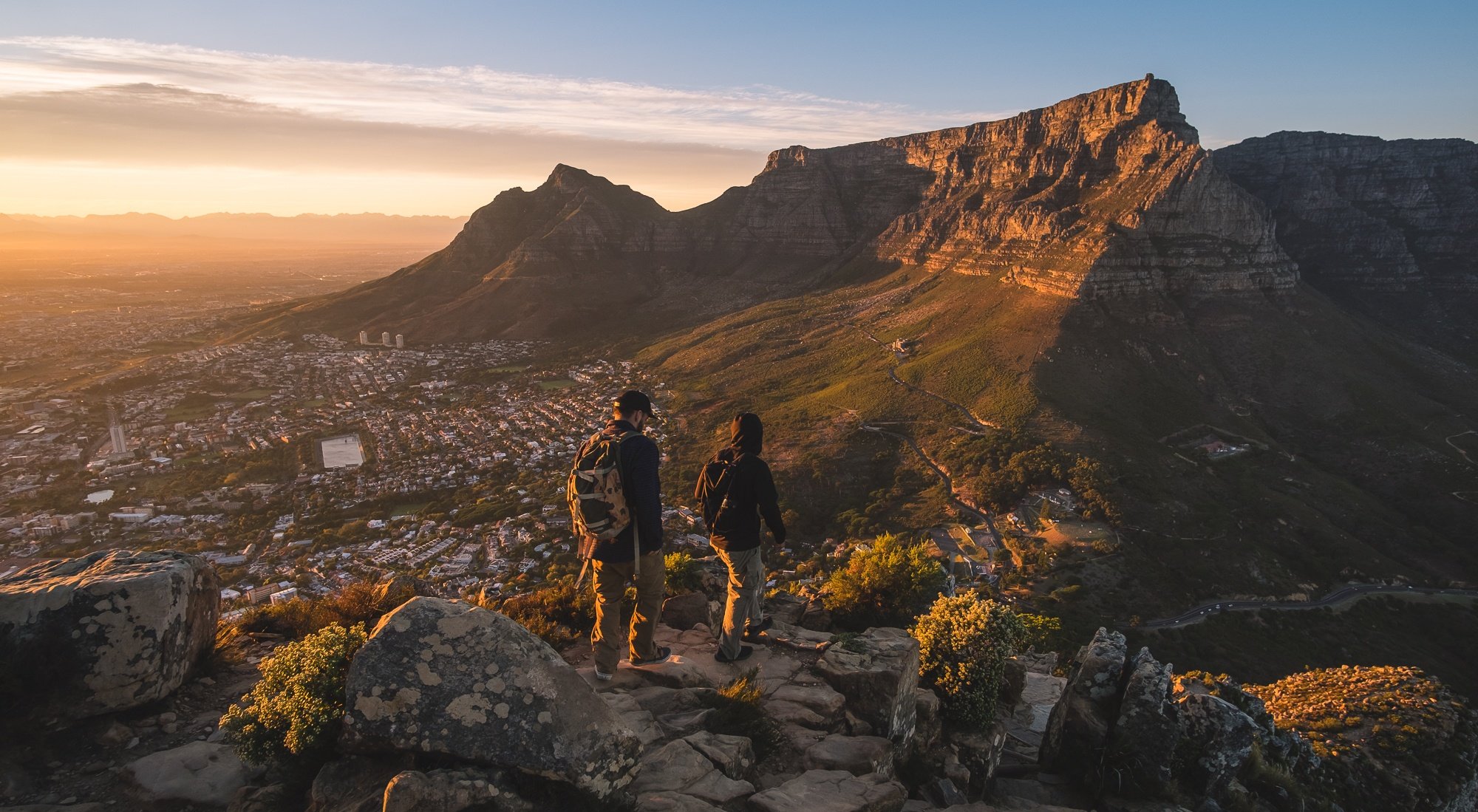
Those situations that we just mentioned in the previous section – a lot of those can be pointed out by a concerned friend. Traveling with multiple people means you’ll have more eyes, more balanced opinions, and more overall awareness. (Unless you’re a stag party, in which case, you’re just fucked.)
Larger groups also appear more intimidating to possible assailants. Thieves are much less likely to target larger groups for fear of getting caught. Like the wilds of the savannah, no lone predator wants to take on an entire herd.
Not everyone travels with a group though, some people prefer the lone wolf style. It’s totally understandable. But when you’re in a potentially high-risk situation, like partying at night or going on a big trek, having friends can be a good thing.
A good tip for traveling alone for the first time is to join a group when needed. It may not sound ideal, but they may save your ass.
26. Know about local scams
Every country has their own favorite scams and tricks to rob visitors. Argentina loves the “ketchup on the backpack” trick” Italian thugs play the “you have to pay to get into this church” card. The list goes on. There are tons of country-specific safety travel tips that we can’t all mention here.
It would definitely pay to learn about the most notorious scams whenever you enter a new country. Doing so will allow you to recognize and obviously avoid them.
Do some research online or ask the staff at your lodge. They’ll usually be more than happy to share some holiday travel safety tips. They hate scammers just as much anyone else.
27. Don’t advertise valuables
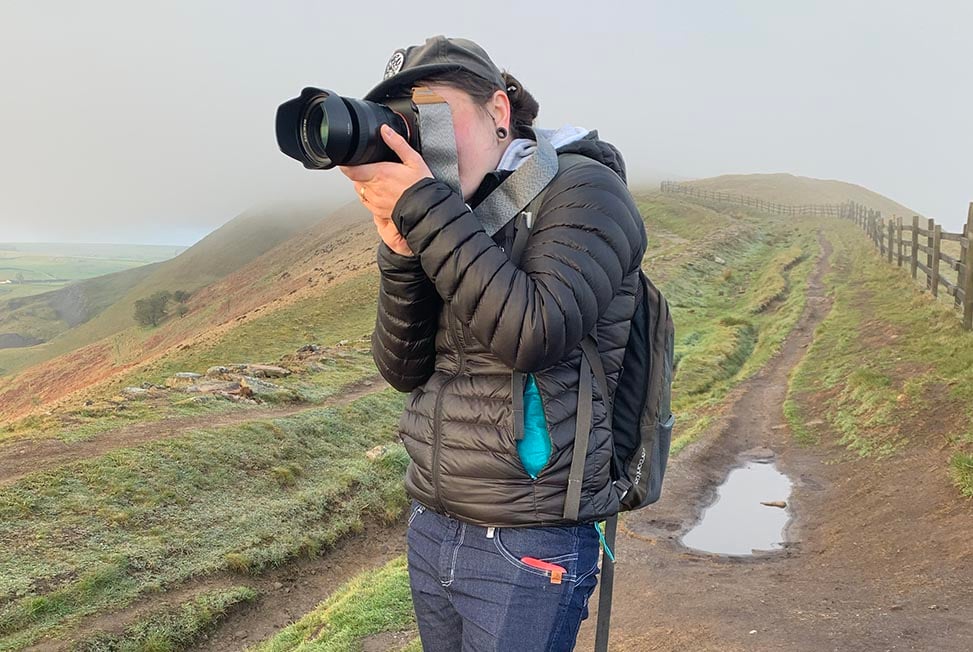
Walking around with a shiny watch, a dazzling necklace, or a brand new camera is like having a spotlight on yourself. These items shout “look at how awesome and rich I am!” For thieves, it’s practically an invitation.
Listen. I understand that some of these things may feel mandatory – maybe you want to show off that new wedding ring on Instagram while visiting Spain. Others may actually be necessary – photojournalists have to use their camera for work, eventually. Just try not to show off things like these irrationally.
Keep your valuables hidden until you absolutely need them. Only have your camera out if you intend to use it. Travel with a group of people so you guys can watch each other’s backs.
On that note, we mentioned blending in earlier. If you don’t see the locals wearing expensive stuff, then you shouldn’t either.
28. Have copies of important documents
One of the absolute worst things that could happen to you while traveling is losing a passport. You’ll be unable to do a lot of things without one, like booking some accommodations or even leaving the country, for that matter. God forbid you’re in a country where crooked police officers ask to see your passport constantly, the absence of which usually leads to a solicited bribe.
Whilst you can receive a replacement passport from your nearest embassy, it pays to have some copies handy . With copies of your passport and other vital documents, you’ll still be able to go about your business. Travel safety tips abound but this is one of the classics.
Carrying a copy of your passport also allows leaving the original safely back in your hotel room. Best to keep it there away from potential thieves.
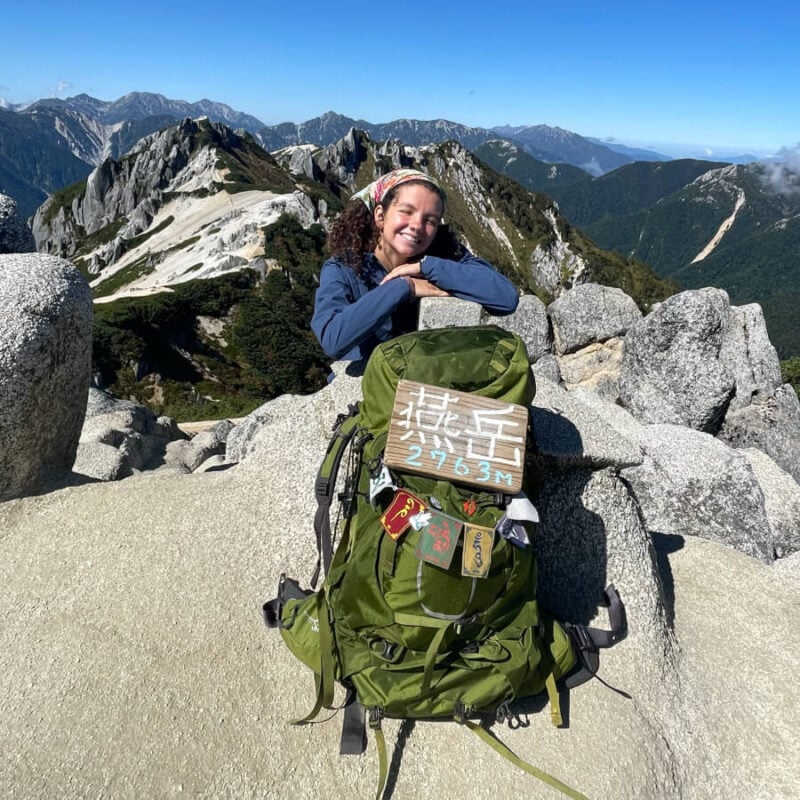
We’ve tested countless backpacks over the years, but there’s one that has always been the best and remains the best buy for adventurers: the broke backpacker-approved Osprey Aether and Ariel series.
Want more deetz on why these packs are so damn perfect? Then read our comprehensive review for the inside scoop!
29. Be confident but not cocky
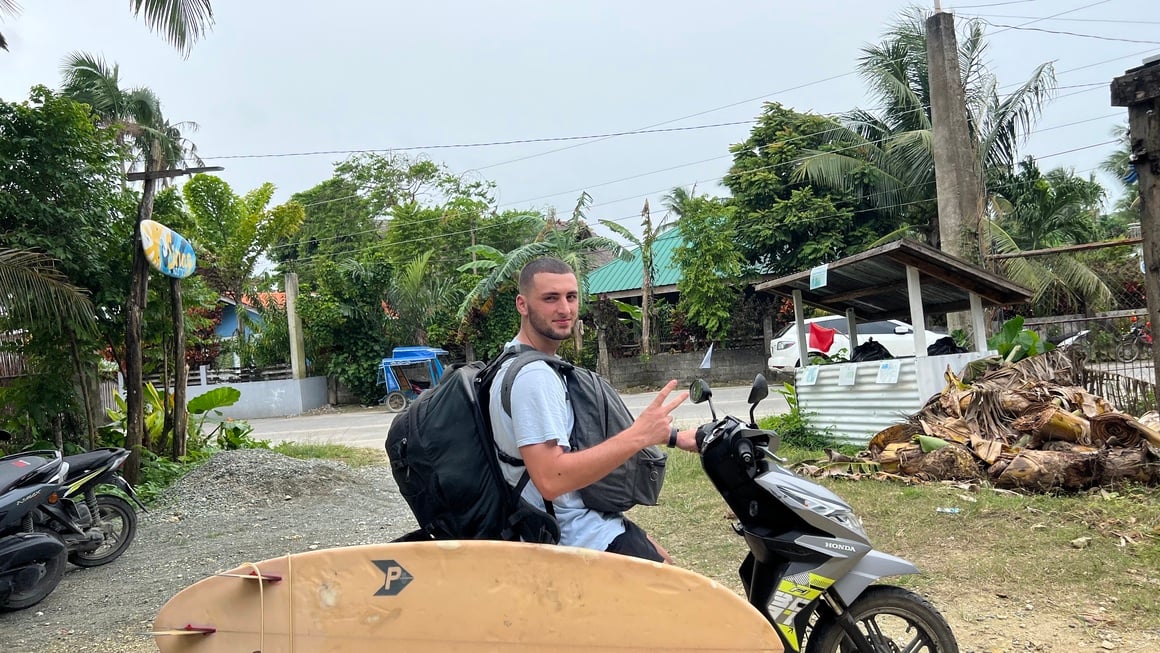
Predators almost always target the meek first; the timid travelers, the shakey tourists, the ones who look lost and helpless. They prey upon weakness and, as opportunists, will take every advantage if it means a payday.
One of the most spouted travel safety tips is to always look confident and like you know what you’re doing. This makes you look more intimidating and less like a potential victim. When it comes to staying safe while traveling alone, looking assured is even more important.
Here’s the thing – just because you act like you own the place doesn’t mean you do. A bloated sense of invulnerability can be just as dangerous as a complete lack thereof.
A friend of mine was walking through Johannesburg, South Africa, in the middle of the day, with his camera. He thought he was being smart, by traveling before dark, and was walking without a care in the world. He was jumped by six guys who eventually made of with his wallet and phone.
In conclusion, don’t be blinded by too much confidence. Remember to be vigilant and smart.
30. Listen to your gut
At the end of the say, no amount of tips for traveling safely can match the power that is your intuition. Humans have been using this for years to sniff out potentially dangerous situations – some people are just more in touch with it than others.
When it comes to staying safe while traveling, alone or with a group, you need to be able to listen to your instincts. If something feels funny, then there’s a good chance it probably is .
So if that street food looks like it’ll make you sick, it’s ok to avoid it. If that guy seems a little too friendly, then he may not have the best intentions. Even if you think you may be overreacting, it’s still better to be safe than sorry.
31. Study the immediate geography
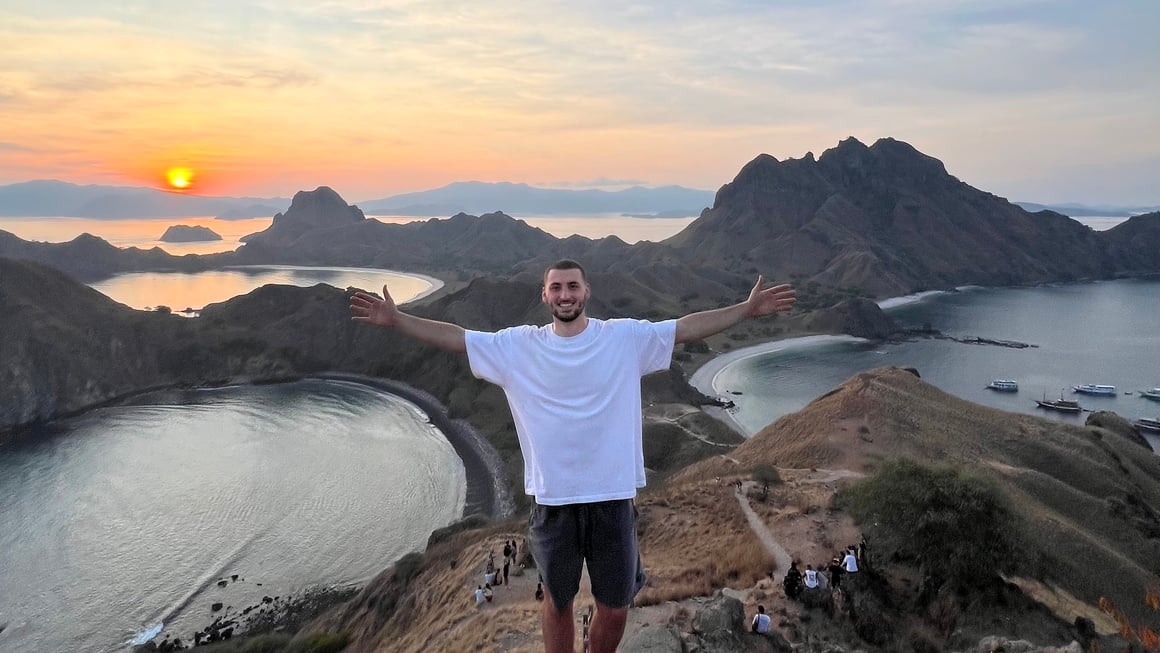
Getting lost sucks, be it on the way back to your hostel or in the woods somewhere. If you’re in a really precarious situation, like the wilderness or a dodgy part of town, things could go south quick.
To avoid getting lost, study your immediate surroundings . Become familiar with nearby landmarks, like a tower, a mountain, or a museum, and use them as reference points. Know possible routes and where the nearest public transport lines are.
Knowing where you’re going also makes you look more confident and like a local. You’ll glide right past any thieves as they’ll be looking for people who look more helpless.
For people who frequently move around for work, this is a really useful business travel safety tip. Work trips tend to be short, which means you never really know any given area well. Take the time to actually study your surroundings and you’ll be more secure.
32. Talk to people
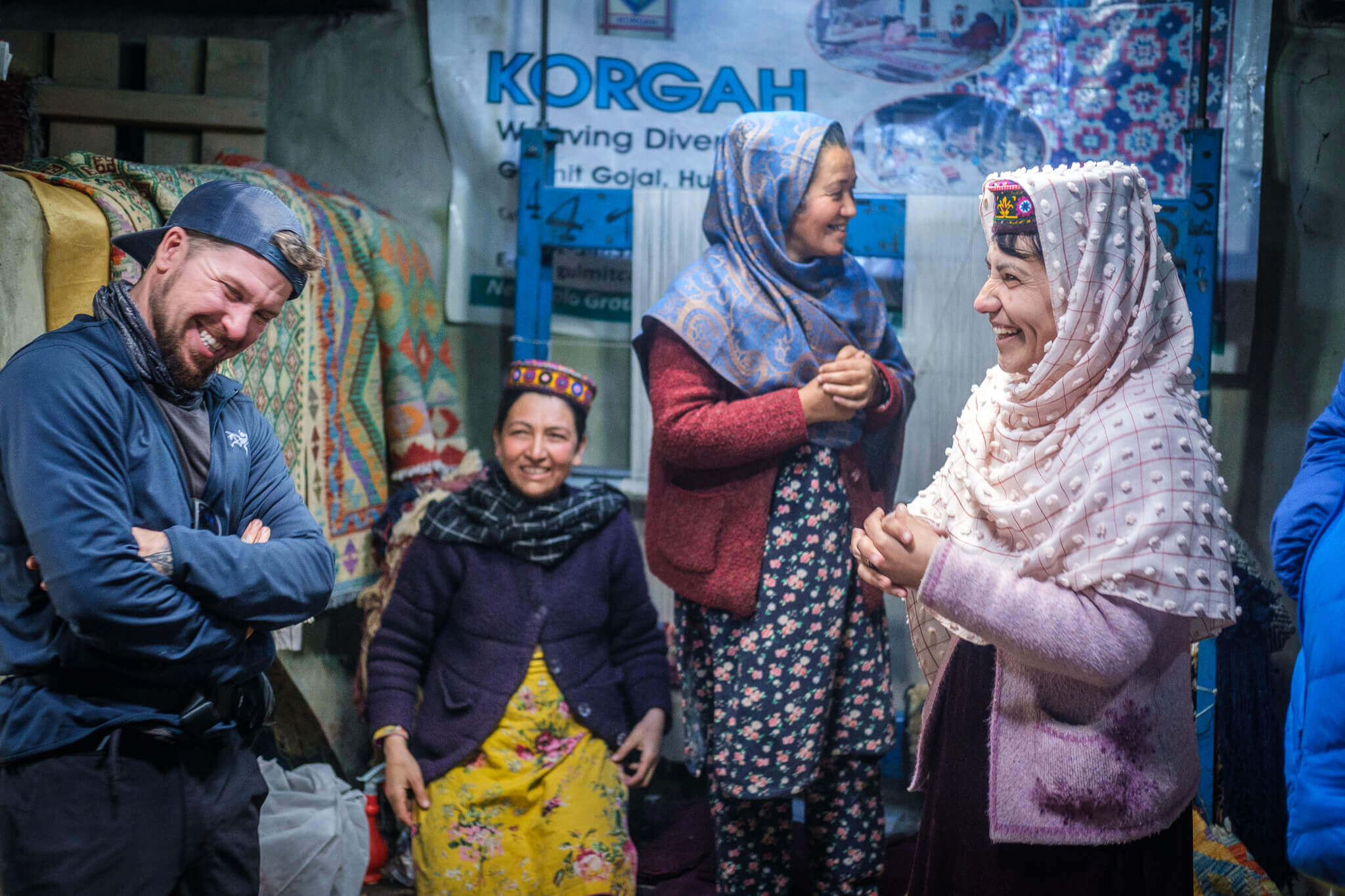
We can only learn so much by surfing the web. If we’re being honest, pulling information directly from the internet may actually be painting an exaggerated picture of certain countries. (Wait, fake news ? )
When it comes to getting a real feeling for a place, sometimes you just need to go there and ask. Talking to actual people of a country is sometimes the best way of really knowing if somewhere is safe or not.
Case and point – Pakistan. Most Western media outlets paint this country as a hellhole that only harbors terrorist groups. If you were to ask anyone who’s actually been to Pakistan though, you’d probably be surprised to hear that it’s actually a very safe country.
In these situations, it also pays to know a bit of the local lingo. People will be much more receptive to if actually try to communicate with them using their language. Even if it’s super broken, they will still appreciate you and open up more easily.
33. Know the local emergency number
We all learned how to call the police or ambulance as a child. It was 911 if you grew up in the USA/ Canada, 999 in the UK, or 000 in Australia.
As you’ve probably already gathered, those are all different numbers. Yes, every country has its own emergency number . So if you’re caught in a sticky situation in Belize , dialing 911 isn’t going to help you much.
When you enter a new country, learn the local emergency contact number . Dial the number and actually check to see if your phone can call it. You may need to use it in the future.
34. Know before you go
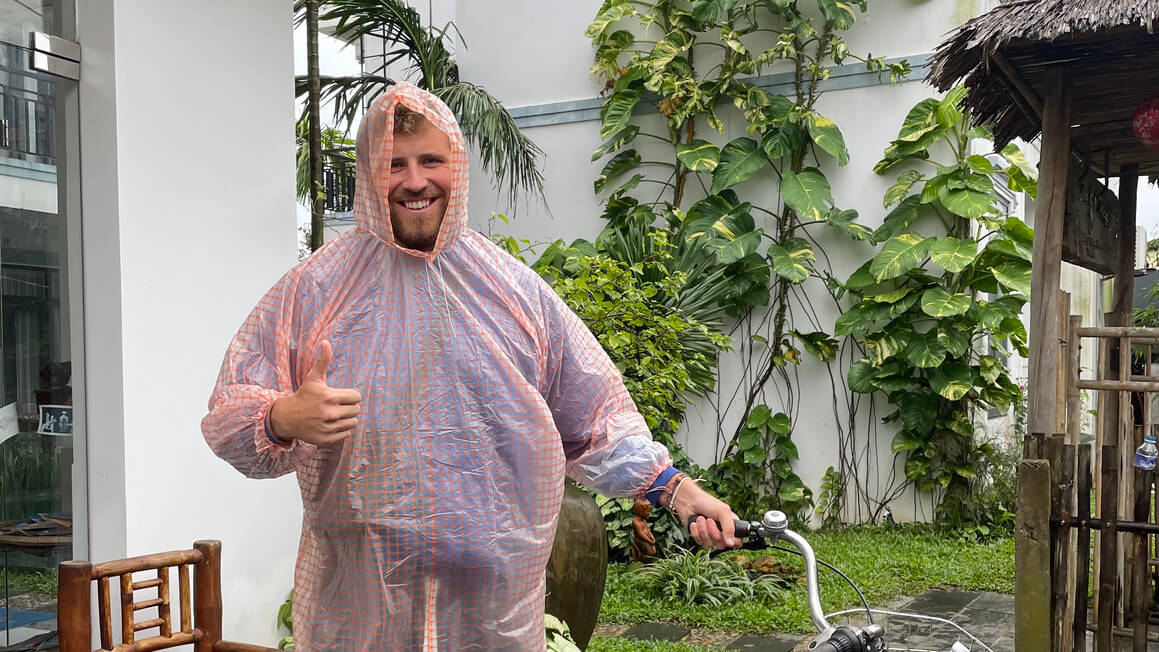
Knowledge is power.
Planning a trip is exciting and it’s well worth throwing a quick bit of research into any specific risks you might encounter in the region you are traveling to. Don’t be a fool in thinking no research is a good idea. There are lots of safety travel tips that you’ll only discover on your own.
I guess it’s cool to rock up somewhere new and be constantly amazed by new shit because you haven’t done any research and don’t know what to expect. The thing is though, arriving in a new country totally naïve or oblivious to the culture, religion, language, and customs is just plain risky.
Before setting off on your adventure, hop on your country’s foreign office page and check out the travel safety tips for whatever country you’re off to. Every country has different safety concerns.
In South America , for example, a lot of robberies happen on buses. In Thailand, on the other hand, one of the bigger problems is corrupt police planting drugs on backpackers.
Knowing the scams and dangers before you arrive in the country will make you more confident to decline an offer that sounds too good to be true.
35. Be mindful of your health

Not all of us are as young we used to be. Hell, there was a time when I could drink all day and eat as much fatty food as I wanted without fear of repercussions.
As we once-spry backpackers become older though, we need to be more mindful of our health. This means exercising more often, being conscious of what we eat, and not overdoing it at the bars.
There are some issues that every traveler, regardless of their age, should be aware of as well. A big one is disease . Some countries suffer from some major ones, like yellow fever in Peru, HIV in South Africa, and malaria in India. Two-stepping with any of these could lead to a major derailment in your plans and life.
Before you do hit the road, be sure to check in with a travel nurse to find out if you need any vaccinations . It’s also worth familiarising yourself with some of the most common travel illnesses faced by backpackers.
36. Buy some god-damn insurance
I’ve had to claim on my insurance a few times – once for $17,000 worth of medical bills – and every time it has been a lifesaver. My number one safety tip is, do not travel without insurance.
One of the best travel insurance providers is SafetyWing Insurance. These guys act like international health care providers and offer a subscription service that can cover the time you’re abroad.
Month to month payments, no lock-in contracts, and no itineraries required: that’s the exact kind of insurance digital nomads and long-term traveller types need. Cover yo’ pretty little self while you live the DREAM!

SafetyWing is cheap, easy, and admin-free: just sign up lickety-split so you can get back to work! Click the button below to learn more about SafetyWing’s setup or read our insider review for the full tasty scoop.
From bloody wounds to horrific hangovers, a first aid kit should be in every traveler’s packing list. Investing in a decent first aid kit is well worth doing and when you get your first blister hiking, you’ll be thankful you packed a first aid kit.
If you’re not wandering into the wilderness it’s likely you’ll get by on a basic traveler’s first aid kit, or what I like to call my ultimate first aid kit. Not sure what to put in your ULTIMATE first aid kit?
Never fear amigos I’ve put together a list, for what to pack in your ultimate first aid kit!

First Aid Essentials
- Tape – for blisters
- Band-aids – for minor cuts
- Steristrips – to close up open wounds
- Gauze Dressing Pads – endlessly useful
- Gauze roll bandage – for broken arms
- Rehydration sachets – for heat stroke and dehydration
- Painkillers – Ibuprofen is best for reducing swelling
- Imodium – for the cursed traveler’s diarrhea
- Antiseptic cleaning wipes – get clean
- Antiseptic gel – keep clean
- Mosquito repellent – aim for 40% DEET
- Antibiotics – I carry Amoxicillin
- Scissors, needle, and thread – always helpful
My advice for traveling safely – buy a travel first aid kit that comes with pretty much everything you need. You just need to pimp it out with the pills, mosquito repellent, and rehydration sachets .
Besides a first aid kit, the smartest thing you can pack to keep yourself safe traveling is a head torch . I’ve been carrying my head torch for years now and it’s saved my life on more than one occasion. Being lost in the dark is not fun and phone batteries die when you’re in the mountains.
I recommend a good quality LED Headlamp . If you pay less than $15 expect poor battery and it to break fast. Spend a bit of cash (around $20) and you can find one that is tough, bright and last’s forever.
Travel safety can be broken down into two areas – protecting yourself and protecting your gear. Let me run you through some of my best travel safety tips for keeping yourself, and your stuff, safe.
How to Protect Yourself
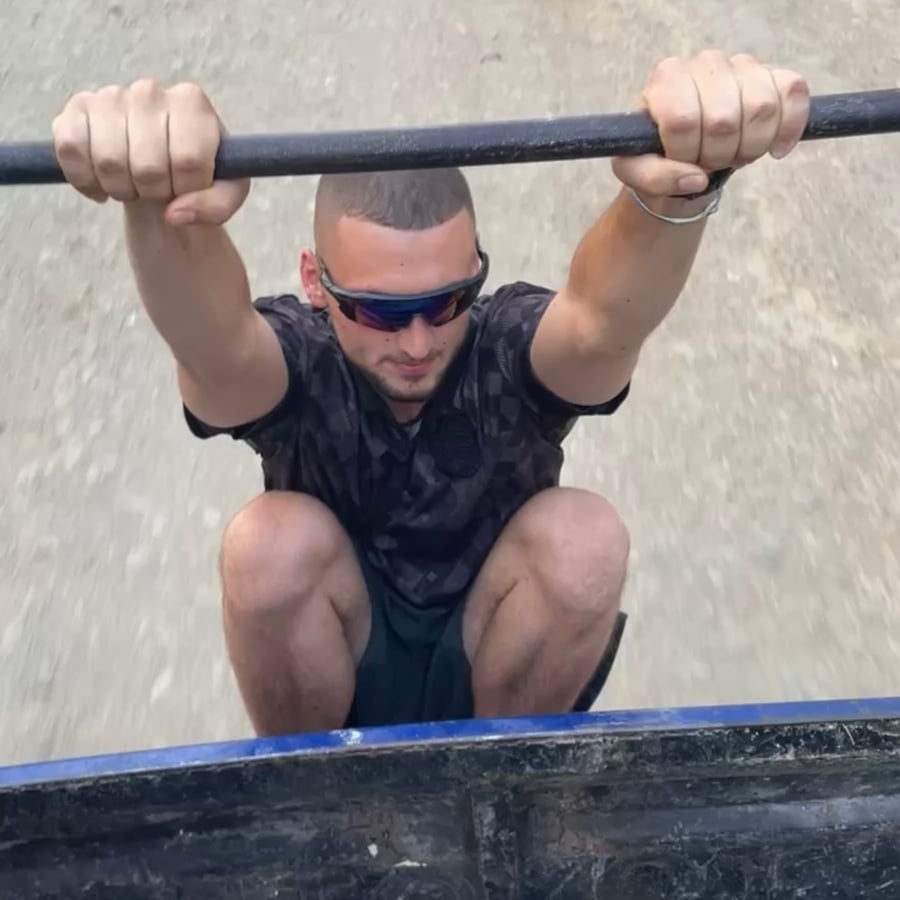
Use your common sense:
Keeping yourself safe while traveling is largely using your common sense. When you’re liquored up with a bunch of new mates it is so easy to be convinced to do something stupid – like climbing scaffolding, smoking outside a police station or swimming in a fast-moving river in the dark.
I’ve found myself in all of those situations whilst traveling and on those occasions, I’ve known that it is a bad idea. If you know it’s a bad idea, don’t do it – screw the peer pressure and just walk away.
Self Defence:
If you get attacked by someone fight back, hard. Your life could depend on it. Once you have them down, run somewhere public and get the heck out of dodge. If you’re touched inappropriately or feel threatened in public, make a scene and draw attention.
Someone will always come to help or stand up for you. This is commonplace in many cultures such as India and the Middle East. If you have to fight, go for the throat and eyes.
The best way to minimize the risk while traveling is to plan. If you’re hiking in the hills for the day take your head-torch – if it gets dark you will need it. If you get lost hiking; stop, sit and wait. Someone will find you or cross your path eventually.
Decided to head out partying? Arrange a place and a time to meet your friends if you get lost. If you are taking drugs or getting drunk, write the address of your hostel on your hand or, even better, take a business card from the hostel front desk.
Trust me, there is nothing fun about wandering around late at night (or early in the morning) looking for your hostel when you have no idea where it is or what it’s even called…
How to Protect Your Stuff
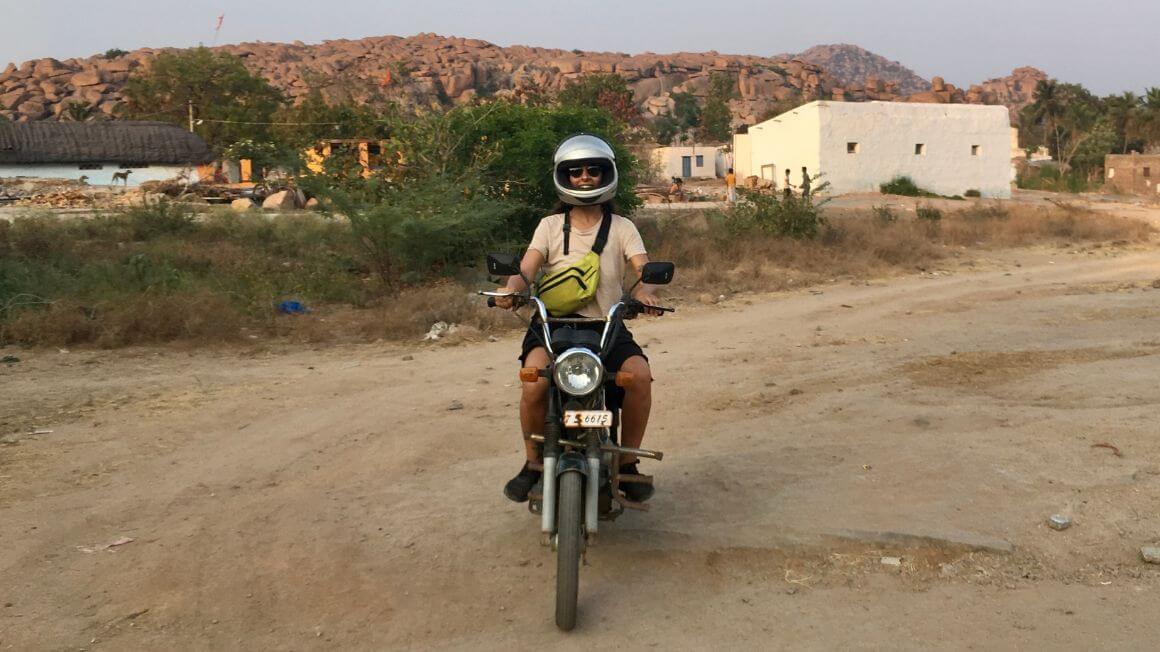
Pack smart:
Packing is one of those things you’re gonna get good at when you start traveling. It doesn’t mean that is easy to figure out what you should bring and what you shouldn’t. I mean, you probably don’t need your birth certificate and that family treasured ring passed down to you- those should probably stay at home.
Do not take anything you cannot afford to lose. If you are mugged, you should not have anything on you that is worth ‘fighting to the death’ for.
Protecting valuables:
If you’re bringing valuables with you (cameras, phones, laptops etc) keep these on you while in transit as much as possible. Don’t leave your laptop bag to ‘save your seat’ while you run to the toilet on your overnight train – this might be fine nine times out of ten but eventually, your stuff will get stolen.
If you are heading on a trip where you might be taking to the ocean or rivers, I recommend getting hold of a dry-bag . Keep your electronics in this at all times whilst you are on the water.
Prepare for the worst, ensure your stuff:
A lot of backpackers these days take laptops, cameras, and other valuables on their travels. My biggest piece of travel safety advice for you guys is to properly insure your stuff. If you do get robbed, it is crucial that you get a police report – this will make your insurance claim quick and painless rather than a massive pain in the ass. Make sure your travel insurance covers for your gadgets.
Still have some questions? No problem! We’ve listed and answered the most commonly asked questions below. Here’s what people usually want to know:
What is the best travel tip?
Prepare your trip! Spontaneity is great, but if you’re in a foreign country it’s essential to plan your trip ahead to stay safe.
How do I keep my belongings safe on my travels?
Investing in a moneybelt will keep your emergency cash safe, but for everything that you’ll leave behind, make sure to bring a good padlock to keep your stuff safe from thieves while you’re out exploring.
How do females stay safe during travel?
Female solo travel comes with extra dangers. Make sure to listen to your gut, keep your friends and family informed about your plans, and don’t walk around at night by yourself.
What is a safety tip that most travellers forget about?
Carrying a first-aid kit with you! You might not think you’ll need it on the road, or there will always be someone near to help you, but playing it safe is better than being sorry.
And so there you have it, amigos! Hopefully, my travel safety tips will arm you with the info you need to stay safe while traveling.
Backpacking around the world is an incredible experience and you will have the trip of a lifetime. Don’t jeopardize it with foolish decisions – get yourself back from your adventures in one piece, take necessary precautions to keep yourself safe, and remember you have people who love you waiting for you back home.
The world is a constantly changing place and some of our advice for traveling safely may be more or less necessary at a given moment. If we missed some valuable bits, please share your own tips for traveling safely! We’d love to hear how you travel and what you’ve learned from your experiences.
Otherwise…peace, love, and happy traveling guys!
Disclaimer: Safety conditions change all over the world on a daily basis. We do our best to advise but this info may already be out of date. Do your own research. Enjoy your travels!
Made it this far? You get 15% OFF to book a place to stay ! Offer valid exclusively for Broke Backpackers 😉

Elina Mattila
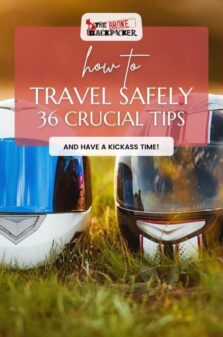
Share or save this post

28 Comments
Great tips for safe travels! Wearing a helmet is a no-brainer for motorbike adventures, and the personal story about the importance of helmets in Thailand really drives the point home. The reminder about the dangers of mixing intoxicants and water is crucial, especially when it comes to swimming. The advice on securing belongings, from using front pockets to investing in a quality backpack with hidden compartments, is practical and thoughtful. And hiding cash in creative ways adds an extra layer of security. Overall, these tips provide a comprehensive guide to staying safe on the road. Safe travels, everyone!
“Learn before you go” is literally the best advice! So many people just wanted to go “insert name of the country” without knowing ANYTHING about it.
Those are beneficial suggestions In this regard! Although you may stand out as a foreigner in certain nations, I Agree; it is preferable to seem like a savvy ex-pat or abroad worker rather than a lost tourist.
Hi, my self mridul. I am from India. I had that Auto that you have pictured. Believe me, the safety was ZERO but it was fun to ride in my village.
Sounds like a wild ride, Mridul.
Regarding bad water when I hike I carry a filled prescription labeled of Flagel to treat giardia. Just get it filled prior to travel and gave it available if needed anytime.
I’m from South Africa and it’s my first time travelling to Europe. Pretty handy tips you got there. Thanks a lot!
You’re welcome! Hope you enjoy Europe!
nice job, thanks a lot 🙂
Thanks for visiting!
Great read! Thank you for sharing this, very helpful and informative! 🙂
Hello! New to the travel community and hopefully soon to be starting my own blog while I backpack the world full time. I am curious, is there any way to pay for travel insurance month by month? All of the upfront all at once cost is a bit large for me.
Safety Wings offers month-to-month payment but the insurance is a bit limited compared to others. It mostly covers medical expenses.
Safety Wings offers month-to-month payment plans!
These are detailed tips and they are very helpful. Perhaps some are often taken for granted. We do not know what the future holds and I agree that we must invest in insurance.
So great to hear stories like this. Hope more anxious travellers can be inspired by your experience!
Something to think about.. if you’re ever forced to fight for your life and you do come out on the winning side it might behoove you to get the hell out of town and not give the local cops the whole story..I had a few times when I had to use my hunting knife and didn’t stick around to see if my attacker was ok.. Once you reach that point your attacker’s problems are the least of your problems.. To be perfectly honest I don’t know if one of my attackers lived to attack anyone else or not and I don’t particularly care anymore. That was over 30 years ago and I am never ever, under any circumstances going back to do any sort of follow up to check on his well being.. Sometimes it’s just better to let sleeping dogs lie.. This happened when I too was drunk out of my mind, but I certainly remember why I had to defend myself. If I hadn’t done what I did when I did it I probably wouldn’t be around to tell anyone about it.. I’ve never been back to the town and have gone 1000 miles out of my way to avoid said town just on the off chance that it was an unsolved mystery and a still open case. I’m not quite prepared to be made to account for that day. 😉
Marty just killed a guy.
Great tips from an experienced backpacker! First aid kit, insurance, and common sense will definitely help if not save you! 🙂 Thanks, Will.
First aid kit is very important, but be sure that your medicine in other country are legal. One time I had problems in U.S. customs with my first aid kit. Will, thanks for interesting and usefull article!
Amazing post – very thorough! When I’m in the US, I generally carry a knife for self defense purposes (years of Filipino martial arts training makes me feel naked without it). Would you ever carry something like that abroad, though? I’m in Thailand now, and don’t carry anything for fear of having serious legal trouble…
I always have a leatherman multitool on me and that has a pretty good knife 🙂
Got it. Seems innocuous, too. Checking local laws would be a pain in the butt.
I went to my first hike unprepared. Thankfully nothing serious happened. Thanks for posting the things I should put in my first aid kit on my next hike! Cheers!
And consult a doctor to get vaccinated before the trip. You can go here for more information : https://wwwnc.cdc.gov/travel/
Nice tips Will and I agree about blending in. In some countries, you will stand out – but it’s far better to look like a clued up expat or overseas worker than a clueless tourist that got lost.
Thanks Barry! Totally agree that standing out is usually not a good idea!
All good tips! Especially the one about knowing your way out of a building – I’ve needed to use that before :/
Leave a Reply Cancel reply
Your email address will not be published. Required fields are marked *
Save my name, email, and website in this browser for the next time I comment.
Notify me of followup comments via e-mail.
12 Travel Safety Tips for Travelers in 2023
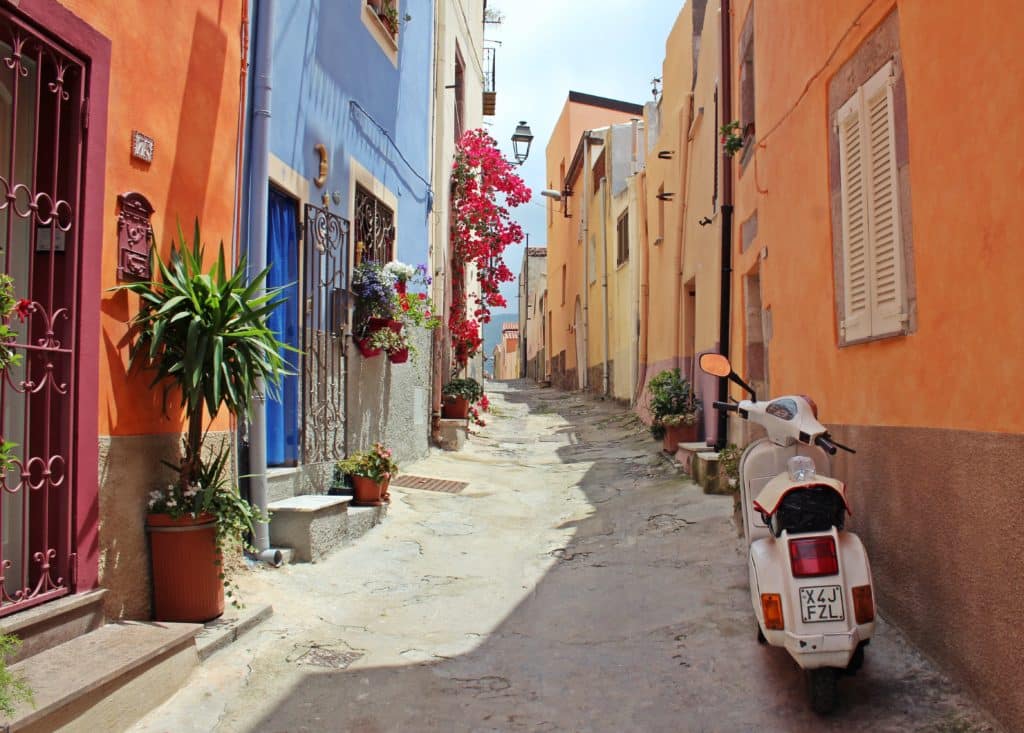
No matter where you’re headed on your next vacation, keeping these travel safety tips in mind will help ensure you have a safe trip.
For frequent travelers, you know that travel also comes with risks. If you’ve traveled often enough, you’ve had something stolen, lost something, or gotten lost.
While sometimes these things are out of our control, there are may ways we can prepare ourselves to minimize the chances these things will happen to us. A little planning ahead is all you need.
Here are 12 travel safety tips to help you prepare for your next trip and keep both you and your valuables safe.
Table of Contents
Travel Safety Tips for Travelers
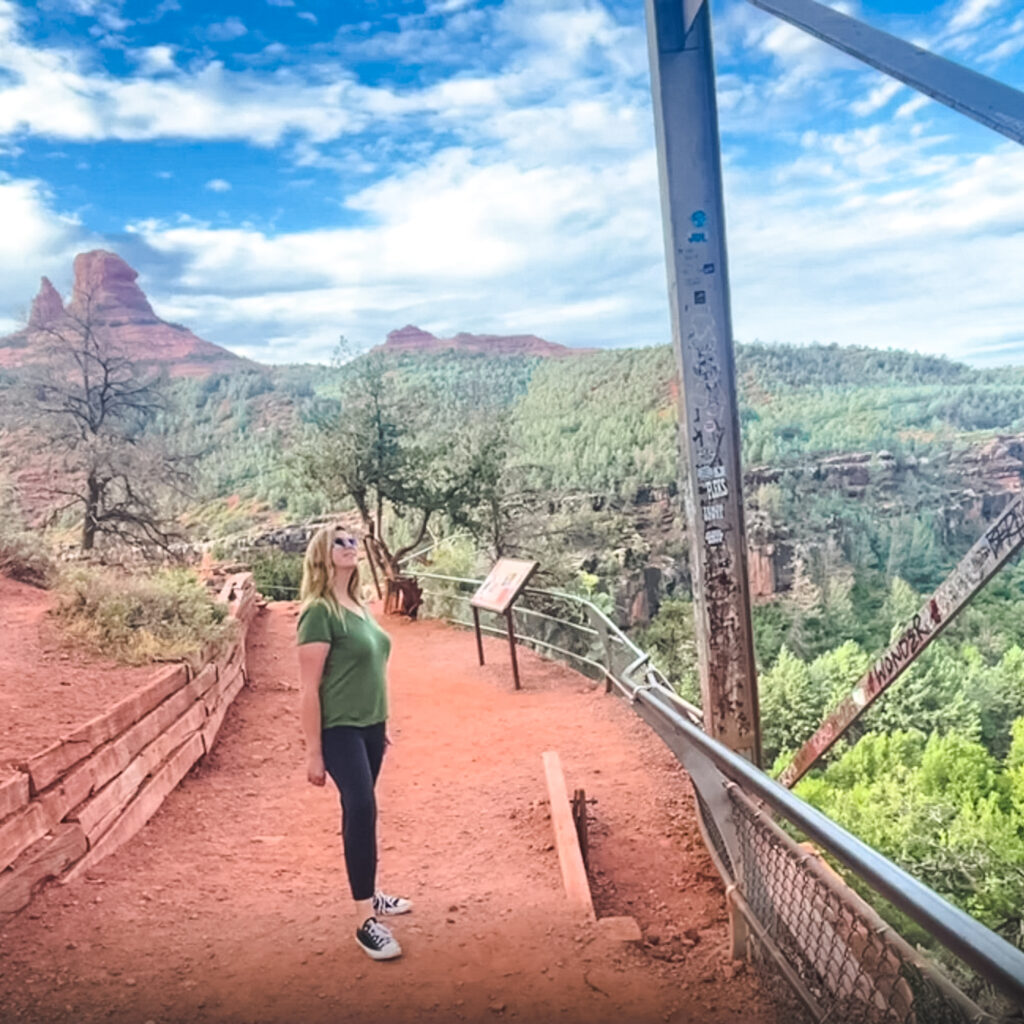
In this post I’m sharing my best travel safety tips for travelers to help you plan a safe and fun vacation.
While we can’t always prevent mishaps or accidents, being prepared for the unexpected is never a bad idea.
1. Research your destination in advance
This is one of the most important travel safety tips, and it’s why I mention it first.
When you begin making arrangements to visit a new destination, make sure to read about the general safety concerns in the area.
Become familiar with where your hotel is in relation to the places you will visit. Spend time looking into transportation options and figure out how you will get around from place to place.
I also recommend doing a little reading about travel scams that are common at your destination and how to avoid them.
2. Make a copy of your passport and take it with you
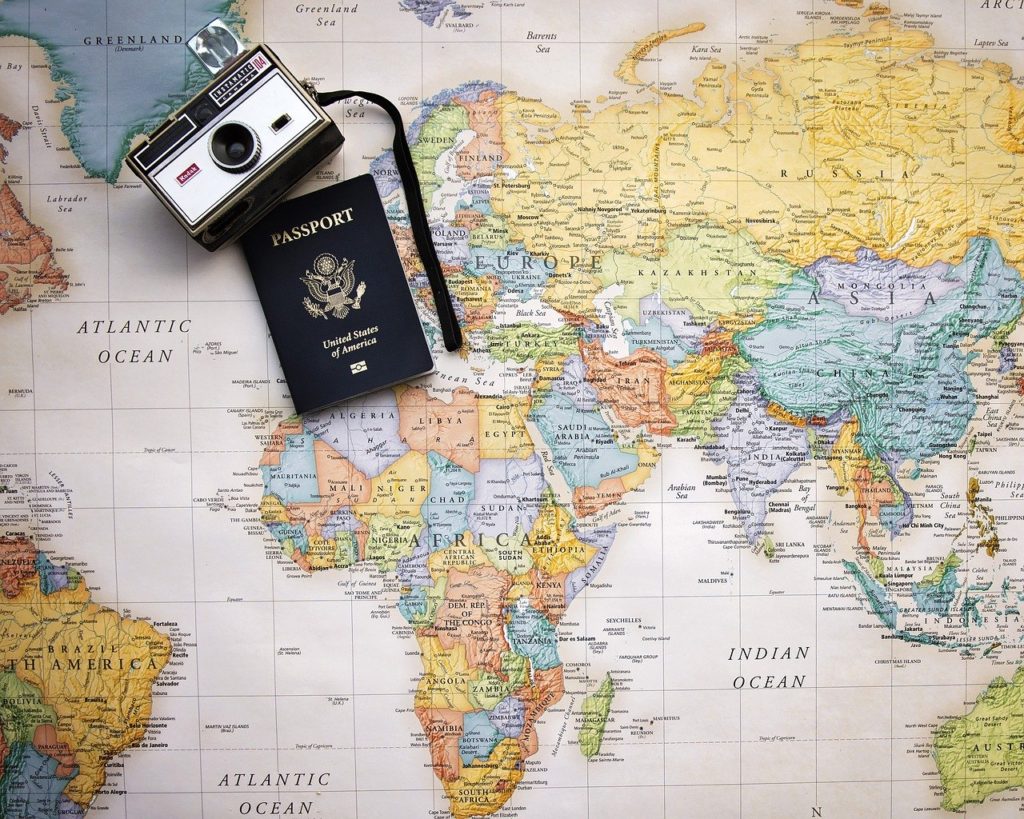
Traveling abroad can be an exciting adventure, but an important travel safety tip often overlooked is to always have a copy of your passport with you when you travel.
Whether it’s in digital or paper form, bring an extra copy along just in case the unexpected happens and you lose or passport and you find yourself needing proof of identity.
Whether you’re taking a day trip or jetting off to a distant paradise, it’s best to be prepared for unexpected scenarios. With a copy of your passport in hand, you never have to worry about misplacing your identifying documents and can easily access them at moment’s notice.
Even if travel goes as smooth as possible, it’s always better to be over-prepared than under-prepared. So before packing for your next trip, don’t forget to pack a photocopy of your passport.
3. Try to blend in
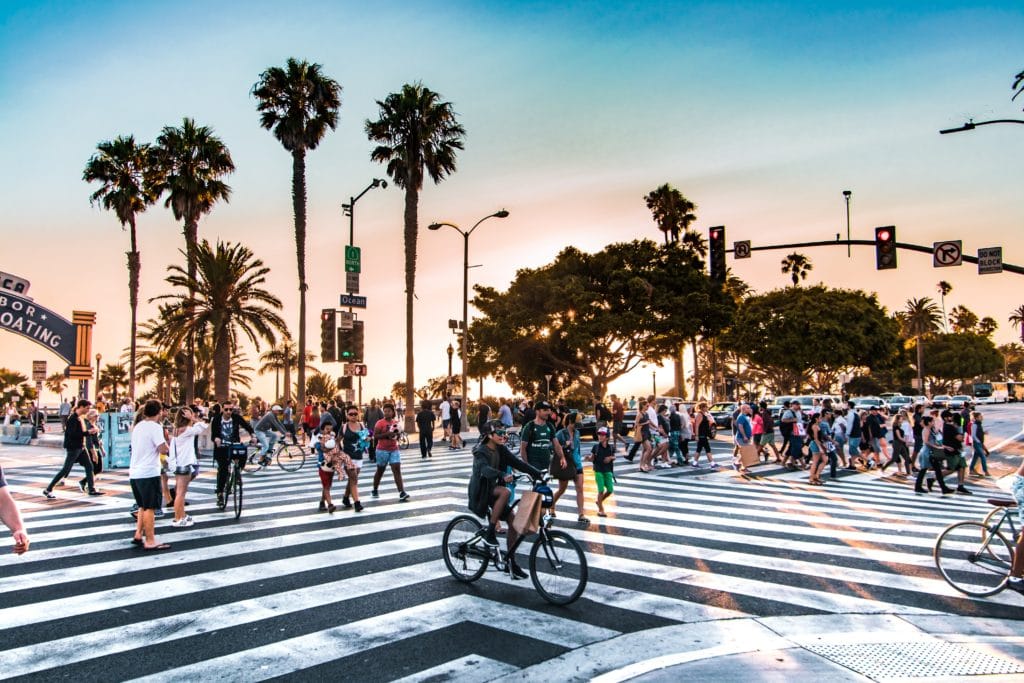
If you want to avoid becoming the victim of a theft or robbery, you’ll want to put a little effort into blending in with the locals.
Don’t wear flashy clothes and jewelry if you plan to visit areas with a high level of poverty, don’t dress in revealing clothing if you’re visiting a conservative country, and please don’t wear clothing with American flags on it, ever.
Nothing says “I’m a tourist” like a USA t-shirt. Do as the locals do, and you should be just fine.
4. Tell someone where you’re going

Always make sure a friend or family member knows where you’re headed before you travel.
It’s important to have someone who knows you’ll be away and can follow up during your trip to make sure you’re safe or offer assistance when needed.
5. Trust your instincts

As with most things in life, always trust your instincts, especially when you’re traveling.
Whether it’s avoiding a certain spot or taking an alternate route – honor your intuition when you travel, and see what amazing adventures await.
6. Act like you know where you’re going
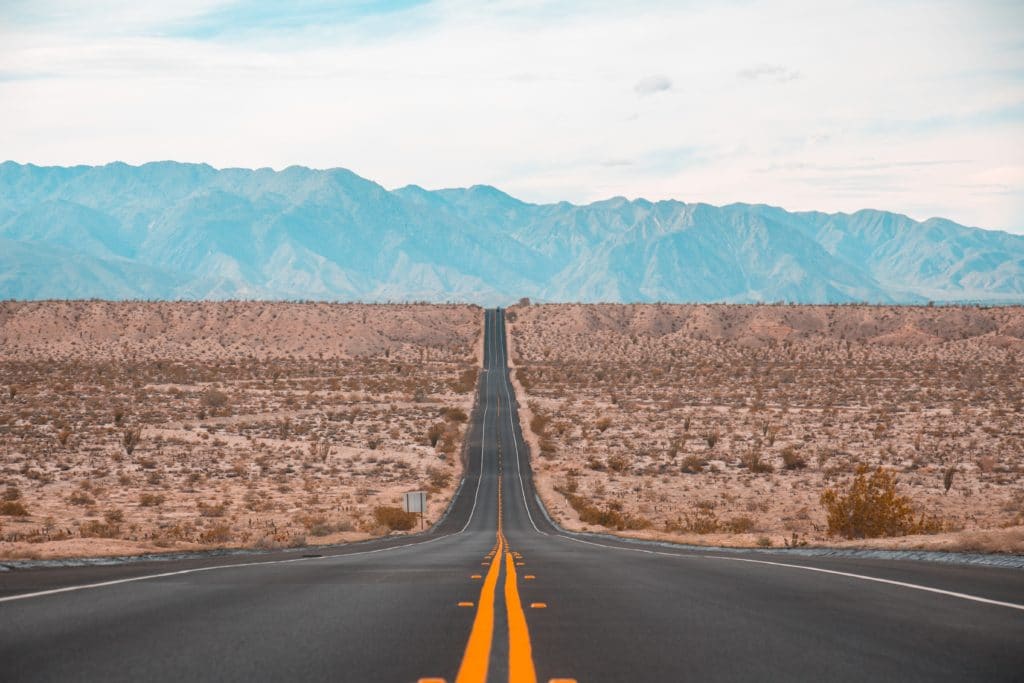
No matter where you’re going, or what time of day, do not act like you have no idea where you are. It’s your body language that gives this away, so don’t look so confused.
If you act lost, you’re inviting someone to help you. While many times this may be a friendly local, but it can also draw the attention of those looking to take advantage of you.
If you really need directions, walk into a local business and ask someone who works there.
7. Use caution with alcohol
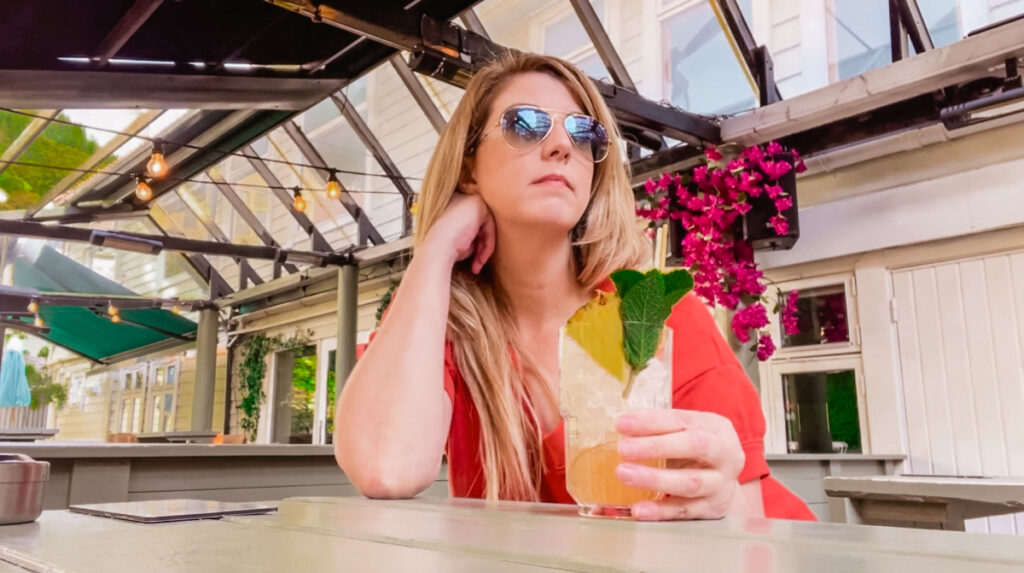
When you travel, it’s important to always be aware of your surroundings to ensure your safety. That being said, it’s especially important to be mindful when you’re drinking alcohol in a new city in unfamiliar places.
It can be very easy (and tempting) to let loose and celebrate being in a new place, however drinking excessively when traveling can put you at risk for becoming disoriented or making poor choices.
Help keep yourself safe during travel by keeping an eye on your alcohol consumption and never leaving your drinks unattended.
8. Don’t flash your money
When you get ready to go out for the day, try to prepare to carry only the minimum amount of cash on you.
Leave any extra cash and valuables in a safe place back in your room. If it’s necessary to carry a large amount of cash on you, spread it out to carry it in different places.
I typically keep some in my wallet, some in my backpack, and give some to my travel partner to hold.
When you retrieve your cash to make a purchase, don’t flash it around in crowded places, try to be discreet.
9. Buy travel insurance before your trip
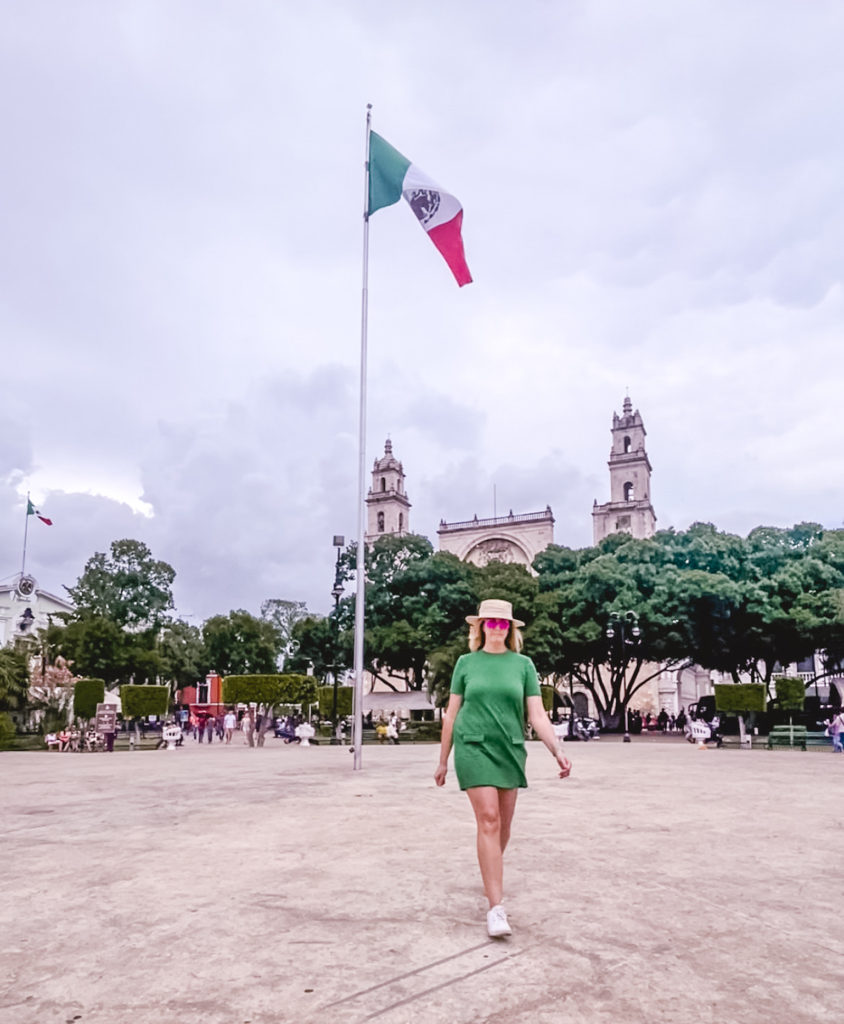
Traveling is an essential part of life, and travel insurance has become an important travel safety tip.
Not only can travel insurance help you on a financial level, should the worst happen and your travel plans have to be cancelled or delayed, it can also give you greater peace of mind while abroad.
Whether it’s lost baggage, medical emergencies, or travel delays, having travel insurance means that you’ll be secure knowing that you won’t have to bear the brunt of any unexpected costs.
So make sure you check out the different travel insurance packages available before booking your next holiday, it could save you from a world of stress.
10. Know how to call for help if necessary
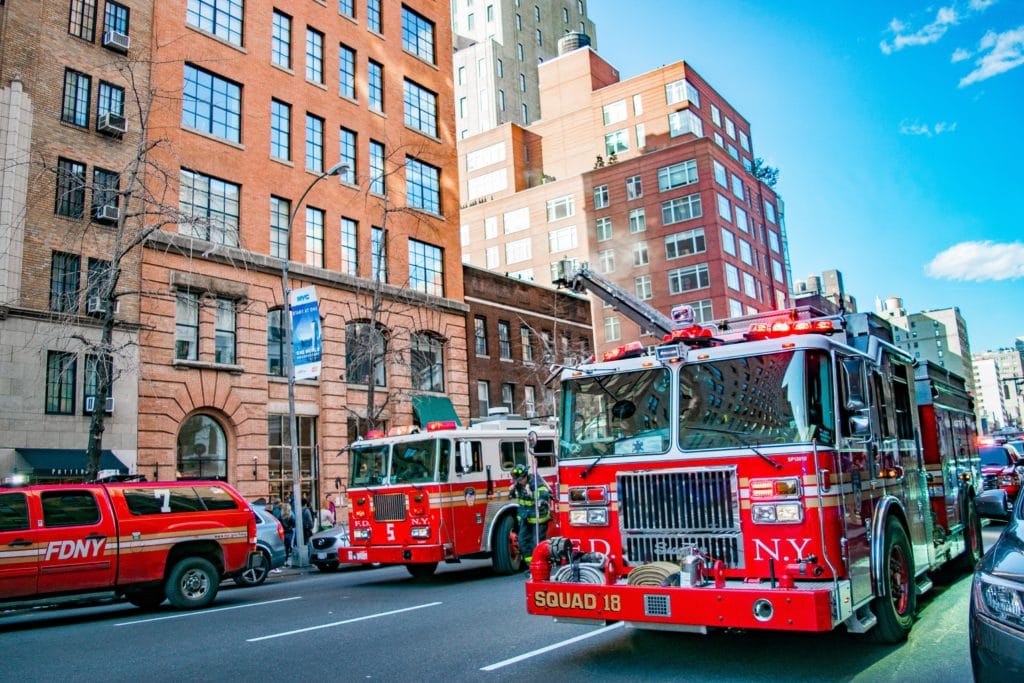
This travel safety tip is often overlooked, but it’s an important one.
Whenever you’re traveling to a new place, become familiar with the emergency response system in your destination.
Make sure you know if emergency services like police and fire are available, and how to contact them.
If you’re visiting a region with minimal services or no emergency response system, identify the nearest government building and U.S. Embassy.
Be sure to write down the address and phone numbers as well. You should also identify where the nearest hospital is, especially if you’re accident-prone or have health issues.
11. Avoid protests and political events
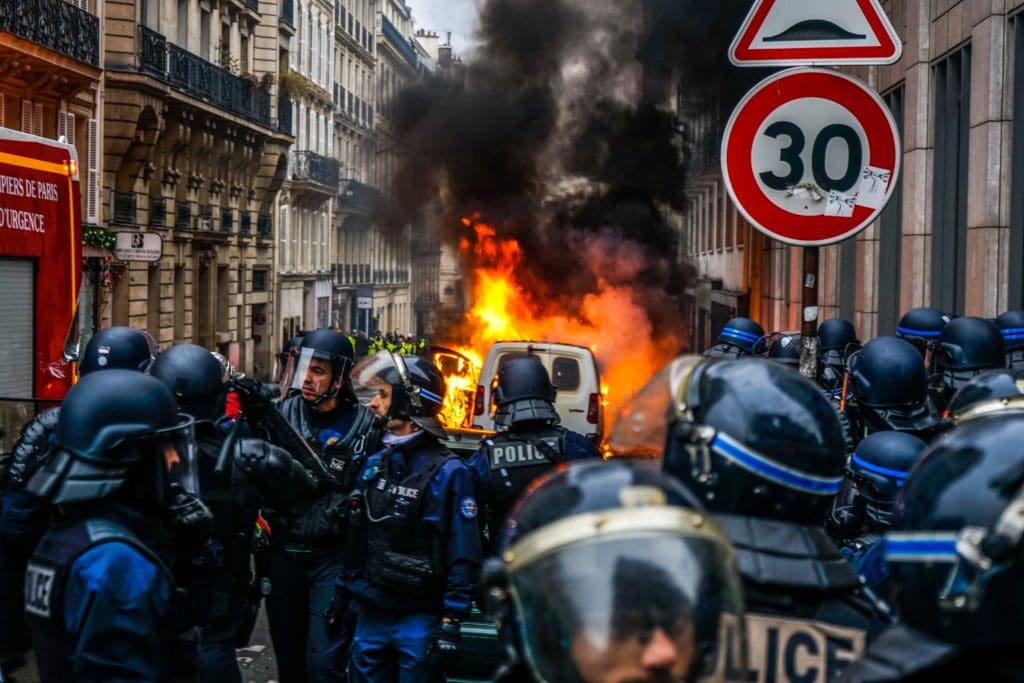
Before you depart for your next destination, be sure to read up on the local news at least a few days before you leave.
This is the easiest way to get a sense of what the political climate is like. When there is political tension in an area you plan to visit, figure out if it’s still safe to go there.
If you encounter a political event or protest unexpectedly when traveling, do your best to avoid the area.
When tensions are high, these events can become dangerous and violent without notice. If you are traveling to attend a political protest or event, use caution, and common sense.
Try to stay near the outer areas of the protest, and identify streets and sidewalks that you can use to get away from the area quickly if necessary.
12. Carry your bag in front of you

Whenever you’re entering a train station or other crowded space, move your purse or backpack to the front of your body.
Train stations and crowded touristy areas are perfect for thieves looking for an easy target.
If your backpack or purse is behind you, it’s contents are much easier to steal. Keep your bag zipped at all times, and secured to your body.
If you’re planning a trip to Europe, be sure to also check out my travel tips for Europe before your visit.
I hope you’ve enjoyed these 12 travel safety tips and that I’ve inspired you to plan your next trip abroad. As always, thanks for reading.
Related Posts
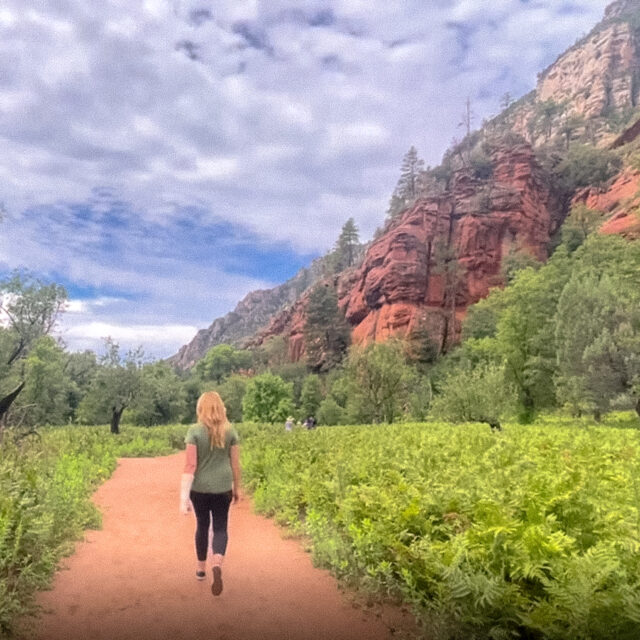
Flagstaff to Sedona Road Trip Itinerary
The drive from Flagstaff to Sedona is one of the most beautiful drives in the…

Scottsdale to Sedona Day Trip Itinerary
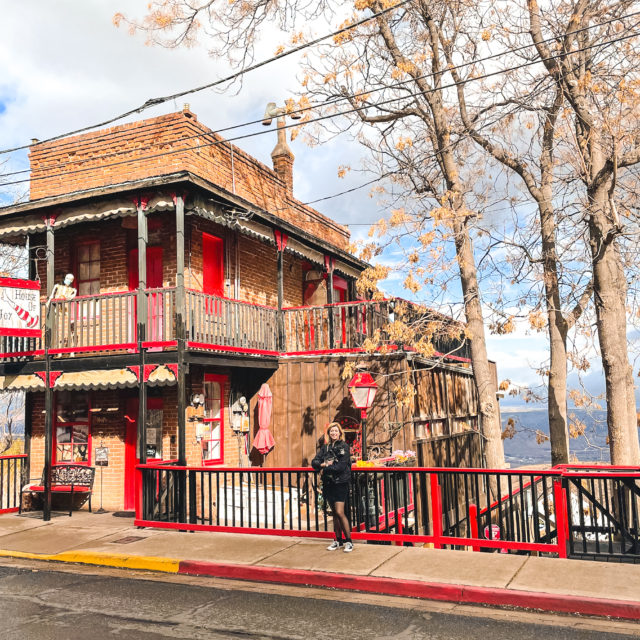
10 Best Things to Do in Jerome Arizona
The best things to do in Jerome can all be enjoyed in one day or…

I help busy people find creative ways to travel more.
This site uses Akismet to reduce spam. Learn how your comment data is processed .

Key travel tips you need to know — whether you’re a first-time or frequent traveler

Editor's Note
Travel demand is on fire.
The Transportation Security Administration expects to screen a record number of passengers this summer. According to the TSA, seven of the 10 busiest days for screening passengers occurred in the past month alone.
As millions of travelers take trips by plane , cruise ship or car , we've gathered some essential travel tips on how best to book and enjoy your journeys.
Whether you're an occasional road-tripper or a frequent globe-trotter, these TPG-backed top travel tips can help you avoid unnecessary headaches when you spend time away from home.
How to find travel deals
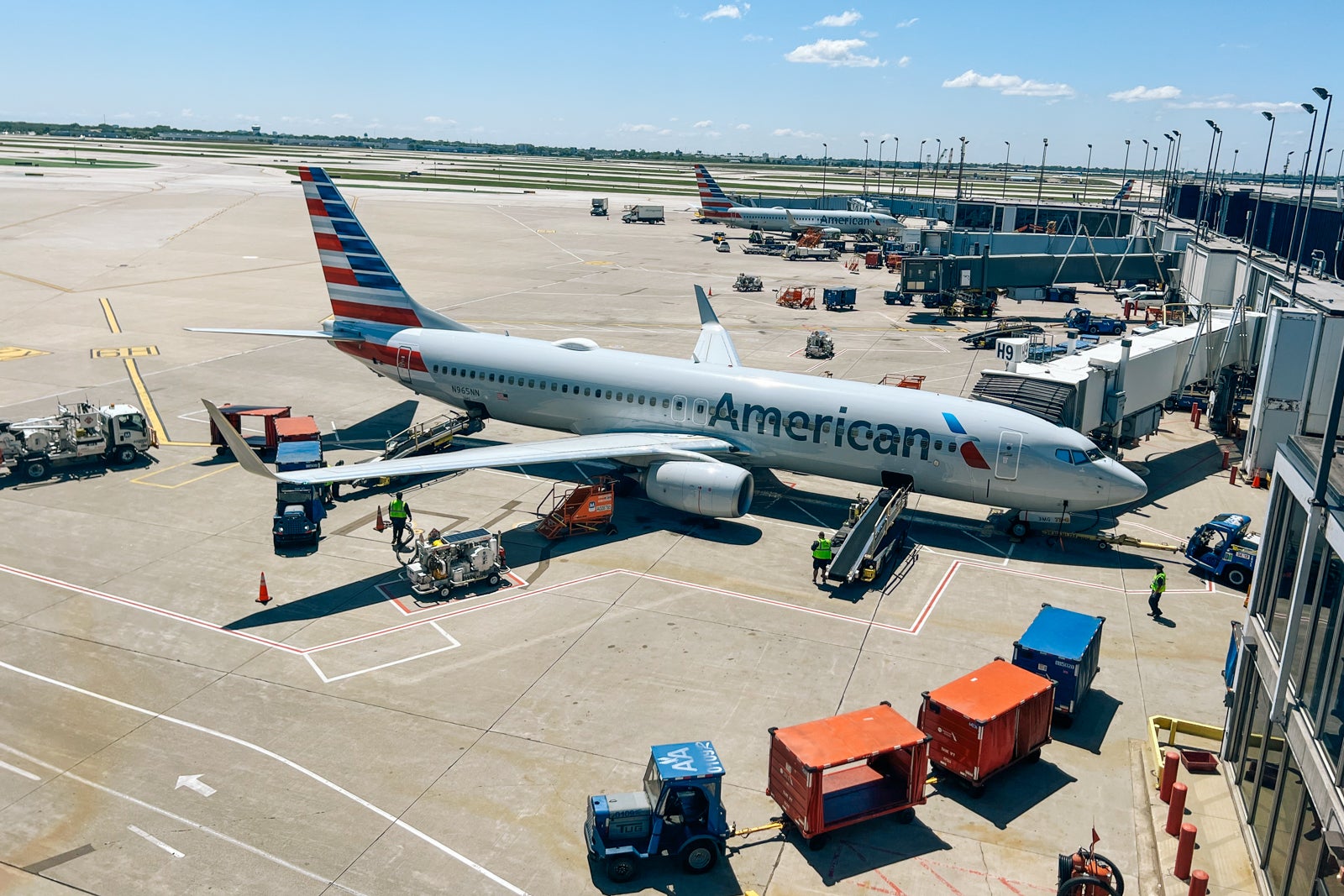
Flexibility is key when it comes to finding cheap airfare any time of year. Changing your arrival or departure date by a single day can save you hundreds of dollars on airfare. If you don't mind altering your family's plans slightly, consider booking travel directly on major holidays like the Fourth of July, Thanksgiving and Christmas for cheaper prices and thinner airport crowds.
One of TPG's favorite tools for finding deals is Google Flights . You can use the search field to find the cheapest (or best) flights. Google will also give you a historical view of past price ranges, and it will even send you email alerts if fares jump or drop on specific routes you've selected.
It also has some fun tools for finding a cheap destination. By clicking the "Explore" button on the sidebar and entering your departure airport, Google Flights will give you a map or list of the most wallet-friendly destinations.
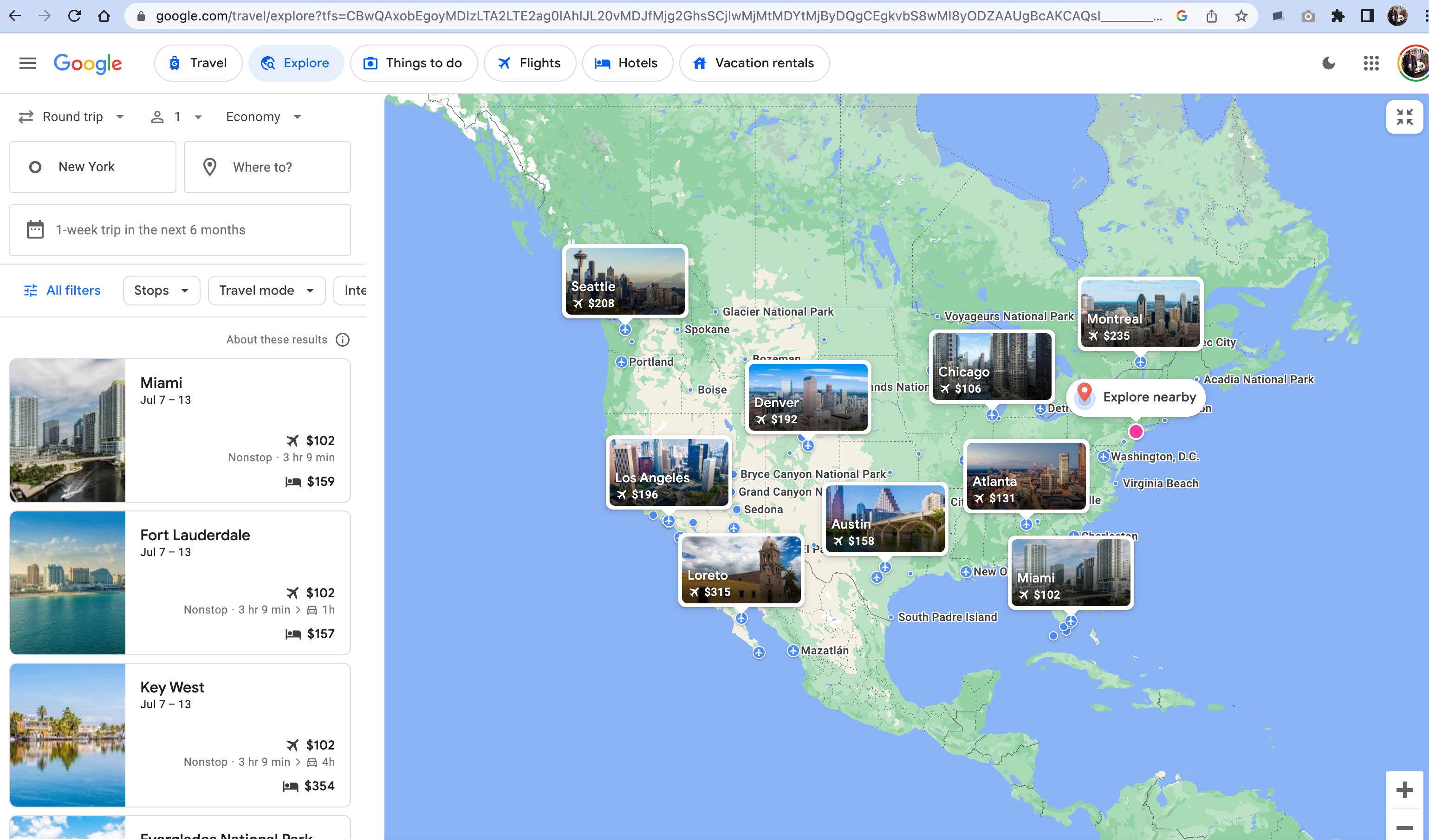
However, Google isn't the only place to find deals: TPG publishes regular deal alerts. You can sign up for alerts on X and subscribe to our daily newsletter for the latest deals news.
Don't sleep on mileage awards, either. If you've been hoarding miles since the beginning of the pandemic, it's time to spend them. Cash prices are high, so it can be a good time to burn those miles.
No matter how much you think you know about redeeming miles for flights , there are always new tips and tricks for turning those earnings into dream trips. Turn to TPG for guidance on sweet spots for redemptions. Sites like ExpertFlyer (owned by TPG's parent company, Red Ventures) supply additional redemption ideas or even business-class upgrade inventory.
You may even want to consult a travel agent to get access to special deals that aren't available anywhere else. Travel agents can sometimes get extra perks at hotels or even cheaper business-class airfare to your dream destination.
Be your own best advocate
Because there are still air traffic controller shortages and there's little room for error in the system these days, travelers have to be their own best advocates.
There are ways to get ahead of any possible travel nightmares.
First, be smart when booking. Try to find a nonstop flight rather than one with connections, even if it costs a little more. You'll eliminate the risk of missing connections and lessen the chance of an airline misplacing your luggage during a transfer.
You could also take one of the first flights of the day, as those are least likely to face afternoon thunderstorms and most likely to depart on time. We've even compiled five reasons to book the first flight of the day with all the data.
Related: Your flight is canceled or delayed — here's what you should do next
Download your airline's mobile app to keep track of potential flight delays in real time. The airline app is a secret weapon in case things go wrong. Not only will you know when boarding starts, but you'll also learn of any delays first. Some airlines even allow you to rebook yourself in the app.
If your flight is canceled, you'll want to beat everyone else on your flight who is also looking to get rebooked.
We recommend heading to the customer service desk (or lounge desk if you have access). If there's a delay, you could also get on the phone with the airline or contact them via social media . Sometimes, an airline's representative on X will help you faster than a phone or in-person agent can. You have to use every tool at your disposal when things go south.
Many airlines now have live chat capabilities to help navigate delays and cancellations.
I always have an alternate plan (or two) in the back of my mind in case a flight gets canceled or delayed. I also look to see what other airlines are flying the route I'm booked in case something goes awry. This way, I'll know what to ask for if I need to be rebooked.
Also, save all the receipts for the expenses you incur during delays or cancellations. You'll want excellent documentation in case of meltdowns like the one Southwest Airlines passengers experienced during the 2022 holiday season .
If you're stuck at an airport for an extended period, seek out your airport's secret quiet spaces for a brief escape from the travel chaos.
Get Global Entry and/or TSA PreCheck
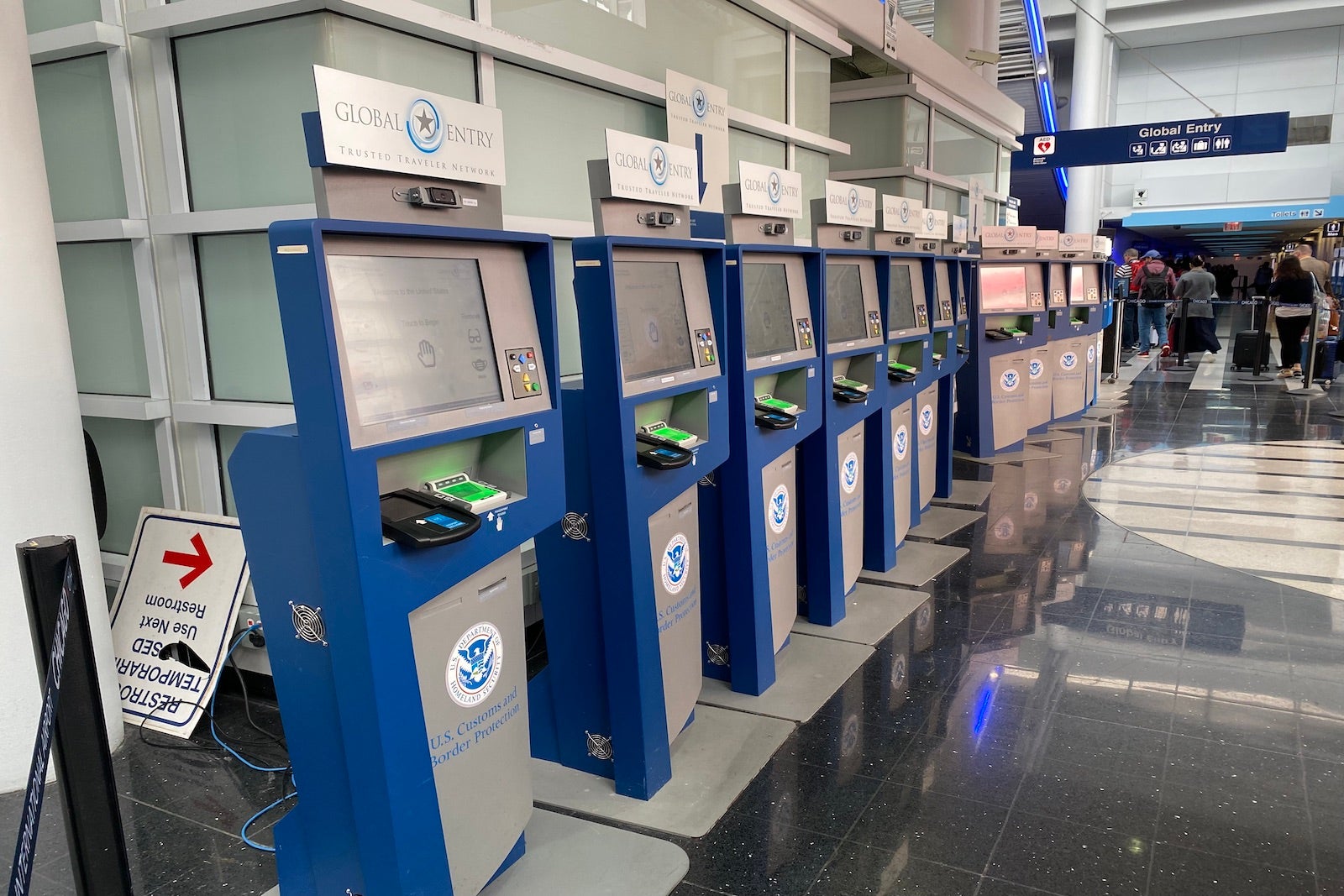
One of our favorite ways to speed through the airport and avoid those summertime megalines is via Trusted Traveler programs like TSA PreCheck and Global Entry .
Essentially, the government prescreens you for security, saving you a bit of time during your travels. You'll need to apply ahead of time and pay a fee. The great news is that many credit cards will give you a statement credit for these fees. TSA PreCheck is a $78 application fee for five years, and Global Entry is $100.
Related: Ways to get Global Entry, TSA PreCheck and/or Clear for free
TSA PreCheck allows you to speed through airport security without removing your shoes, laptops or liquids. With Global Entry , you can breeze through customs when you return from an international trip.
If you have the time, it makes sense to go for Global Entry rather than simply TSA PreCheck . Global Entry requires an interview with Customs and Border Patrol ahead of time, but once you're approved, TSA PreCheck will be included.
One other hack to mention is Mobile Passport . You don't even need to be preapproved for the service, and it can speed you through customs at some airports.
Related: Here's what you need to know about Mobile Passport
Get Clear for the ultimate security trifecta
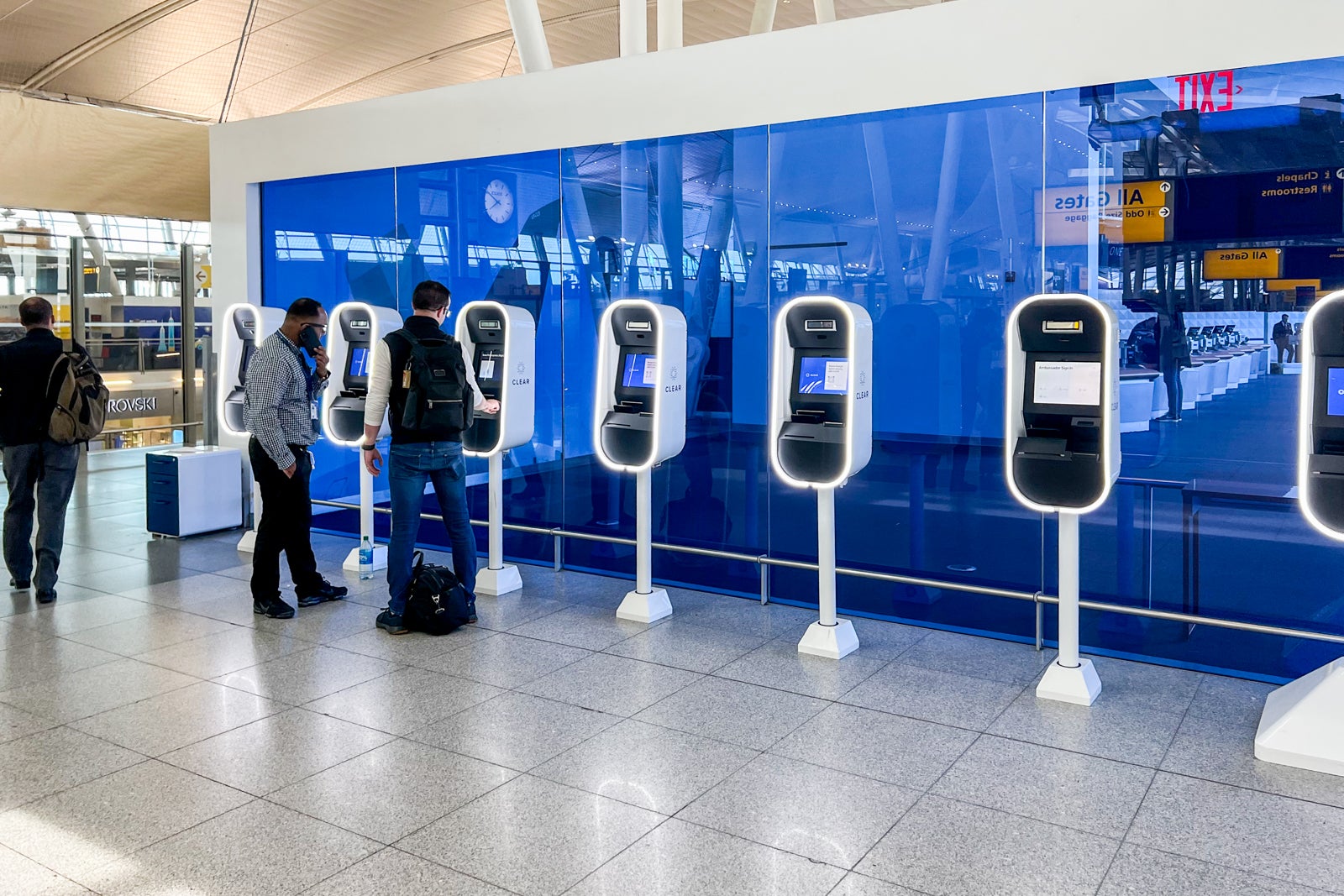
The other security tool we recommend you have in your travel toolbelt is Clear .
Related: Why you should get TSA PreCheck and Clear
The expedited security program allows you to bypass long security lines by using a separate lane at many airports. You'll approach a kiosk that confirms your identity via an iris scan or fingerprint. A Clear employee will then escort you to the front of the security screening line.
A Clear membership combined with TSA PreCheck will enable you to go to even shorter lines at some airports with designated Clear/PreCheck lines. Clear isn't perfect at all airports where it's very popular and there are now long lines (cough, Atlanta). However, it will still lead to shorter lines overall.
Related: Guide to using the Amex Platinum Clear benefit
Make copies of your important documents
Make digital and hard copies of all your important travel-related documents. Start by photographing your driver's license, your state ID and/or your passport.
You should have copies of your IDs in your phone's library in case you get separated from the actual document. Sometimes, it also helps in a pinch if you are asked for ID but didn't bring the hard copy. For example, I was recently asked for my ID to enter One Vanderbilt to have dinner at the new American Express Centurion Lounge in New York. The receptionist would have accepted a photograph of the ID if I didn't have the physical document.
TPG also recommends having an actual photocopy in a separate place. TPG editor Kristy Tolley said she stores a hard copy in a separate place from where she keeps her passport in case she loses a bag. "I also leave a copy of it at home if I'm traveling alone," she said.
Check expiration dates
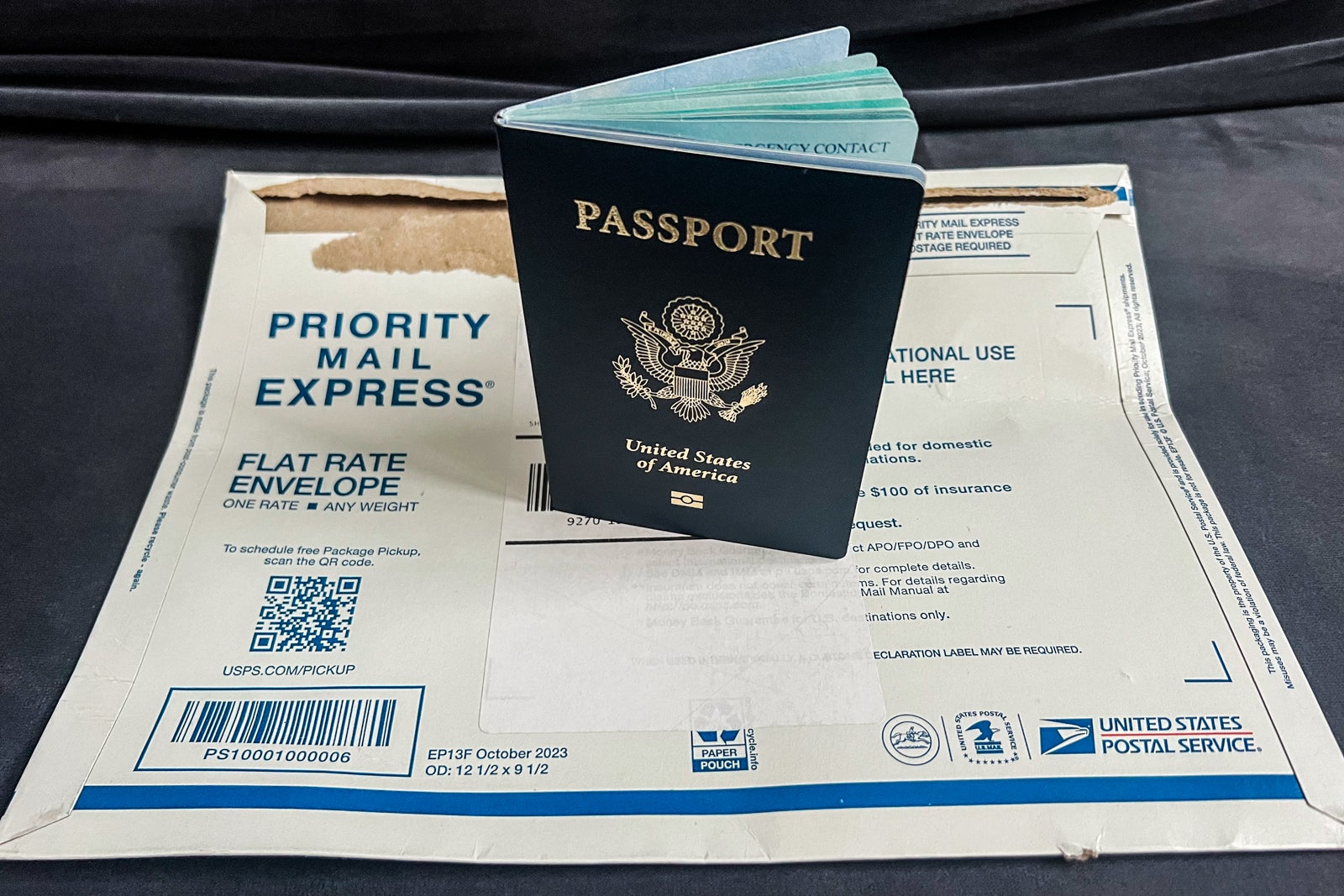
If you aren't 100% certain of the expiration date of your passport and other travel documents, go check them now. Renewing passports takes time, and some countries require six months of future passport validity to allow entry. Remember that child passports expire every five years, which can sneak up on you.
Related: How and when to renew your passport
Double-checking the expiration dates for driver's licenses and state IDs is also a good idea. Remember that TSA checks the expiration dates on your documents when they screen you for security. Don't forget to check the expiration dates for your Trusted Traveler programs like Global Entry, Clear and TSA PreCheck, too. It can take a while to get a Global Entry interview appointment if you need one to renew.
No one wants to get to the front of the security line only to realize that the PreCheck mark is gone from their boarding pass.
Finally, check the entry requirements if you are traveling internationally. Some countries require visas that you must acquire before arrival.
Consider travel protection
When booking your travel, try to use a credit card that offers some built-in travel protection . Many credit cards, including TPG favorites like The Platinum Card® from American Express , offer this when you use those cards to purchase your airfare and similar travel.
Related: Best credit cards for trip delays and cancellations
If the coverage offered by your credit card isn't enough, you might also want to purchase travel insurance . These policies can sometimes go beyond trip cancellations to cover things like medical evacuations. Warning: Carefully read the fine print on any extra policy to ensure it covers the situations that matter the most to you.
Those who frequently travel abroad may want to consider purchasing an annual travel insurance policy instead of buying one on a trip-by-trip basis. Some TPG staffers purchase annual policies because of the cost savings for multiple trips. Some will find having an annual policy is easier than juggling separate policies or various credit card coverage terms and conditions.
Tips for your luggage
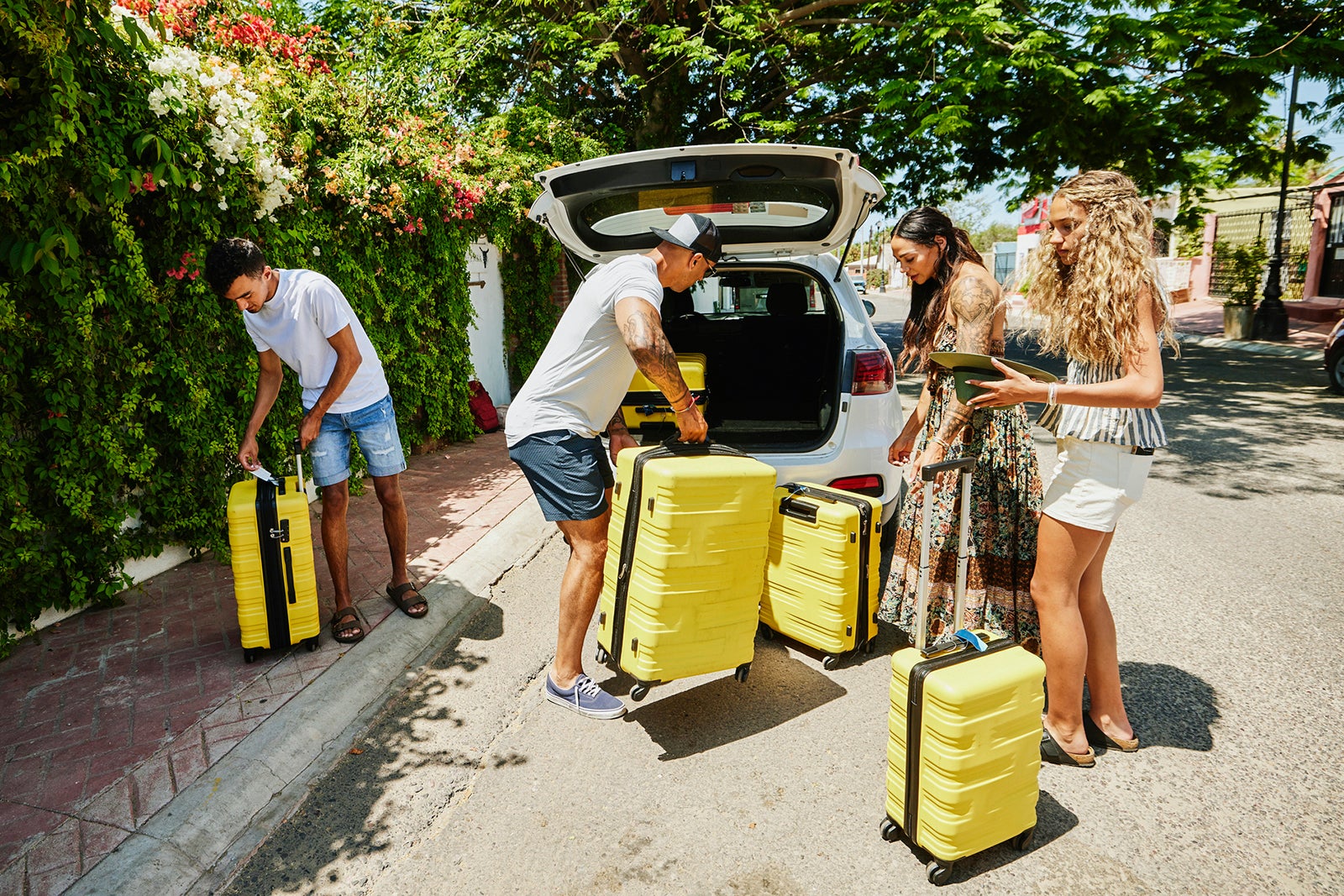
TPG has a ton of tips when it comes to luggage.
First and foremost, try to be on Team Carry-On whenever possible. If you don't check baggage, you are much less likely to become separated from it. Many of us at TPG refuse to check luggage except under extreme circumstances.
Of course, other folks with families or those embarking on long journeys may still want to check bags. If that's the case for you, you can still do many things to lessen the chance you get separated from your stuff. For example, make sure your luggage is in good working order, your contact information is attached and the bag is within the weight limits. You should get to the airport early (but not too early) to check your luggage and confirm it is tagged to the right destination or connection.
Related: Tips to keep the airline from losing your luggage
After recent baggage delays and luggage disasters , we strongly suggest you put Apple AirTags (or the Android equivalent ) into your luggage to track your items if they go missing .
If you check a bag, keep extra medicine or medical supplies in your carry-on bag in case your luggage goes missing or gets delayed. "As a diabetic, I keep a tiny emergency kit in my backpack with enough supplies to keep me going in an emergency," TPG writer Tanner Saunders said.
Former TPG credit card writer Ryan Smith also offered words of advice regarding luggage. "The last items you pack in your carry-on will be most accessible, so use this for your passport, ID, ticket, headphones or whatever else you need during the trip," he said. By making sure those items you'll use most are easiest to reach, you'll save yourself the hassle of having to dig around (or partially unpack) your bag to grab what you need.
Finally, be sure to get compensated if your bags are late or lost. Many airlines will give you points or even cash for delayed bags, and the government has rules on compensation if your bags are lost.
Staying safe on your journeys
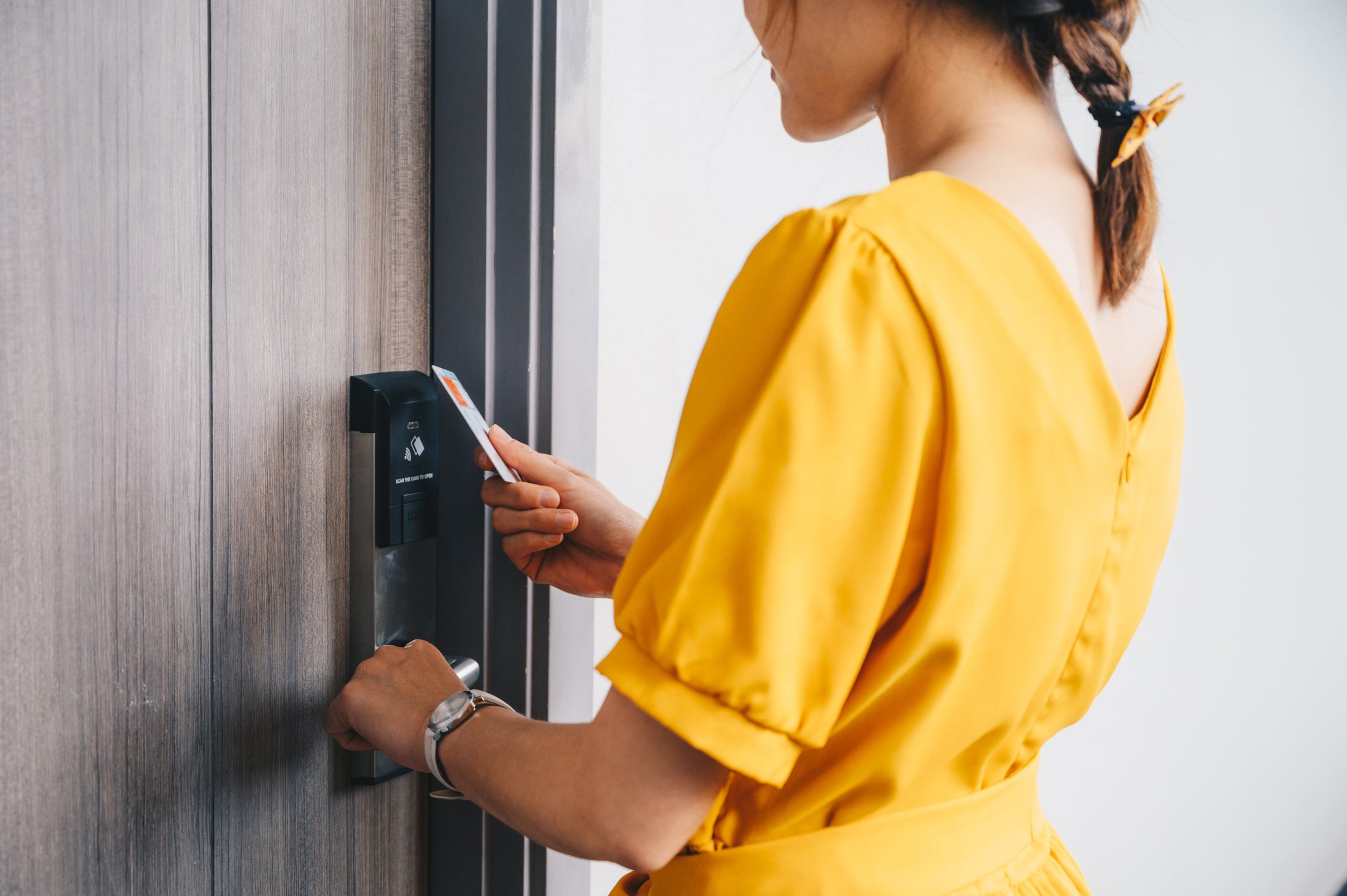
From potentially getting robbed while on the road to experiencing bad weather or natural disasters while traveling, many scenarios could arise when you're away from home.
To mitigate those risks, pay attention to U.S. Department of State warnings about the destination you plan to visit. Also, check local sources for the latest news from that country or region for additional context. Although the State Department tends to err on the side of caution with its warnings, it's still best to be aware of what you may face during your trip.
Also, know the local number in case of emergencies. In many places, including Mexico and much of Europe, dialing 9-1-1 on your cellphone will connect you to emergency services like in the U.S. However, you should know the local emergency numbers of whichever country you visit.
Let people at home know your itinerary and stay in touch with them throughout your trip. If something goes amiss, at least someone will know where you're supposed to be or the last place you visited.
If you're arriving at night, contact your hotel or home-share host to ask about the best way to get there and the safest ways to travel at night in that area.
Also, be strategic about how you check into a hotel. Some solo travelers request two keycards to imply someone else is on the trip. Giving thought to the hotel room's security swing bar can also make sense; some travelers place a hand towel over it to make it harder to dislodge from the outside.
Some final tips
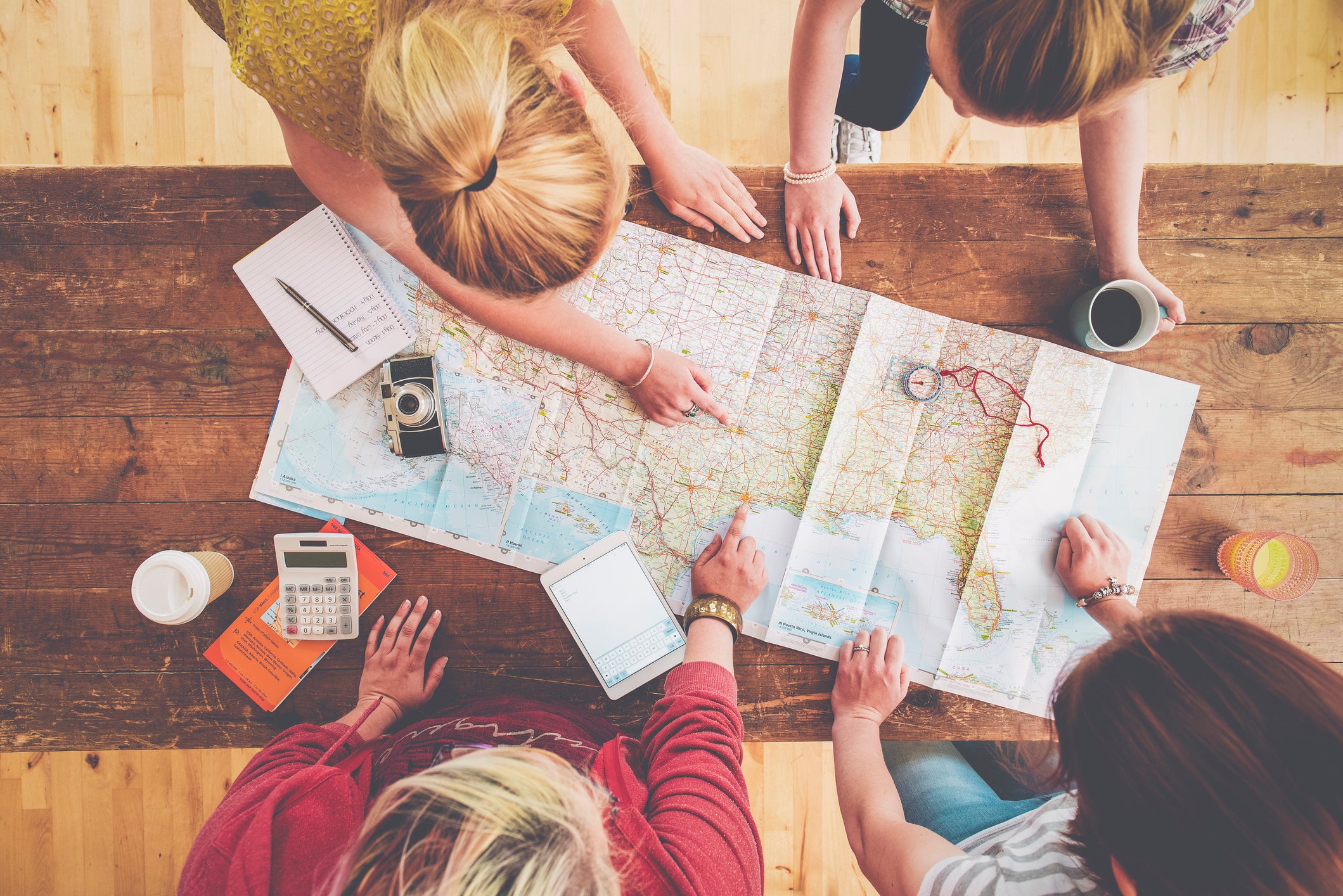
- For cruisers, TPG principal cruise writer Gene Sloan suggests arriving in port at least a day in advance (if not several days ahead of time). This will eliminate the risk of missing your ship's departure time and help you acclimate to the local time zone.
- When taking road trips to out-of-the-way destinations, go old school and bring paper maps or download offline maps from Google. Using a paper map or an offline version means you always have a way to navigate around your chosen destination, even if you lose cellular service.
- You should reserve airport parking ahead of time during peak travel times. Some airport parking areas fill up fast around holidays, so reserving your spot ahead of time will save you from wasting time looking for a space when you need to catch a flight. You can also sometimes save by booking online in advance, too.
Bottom line
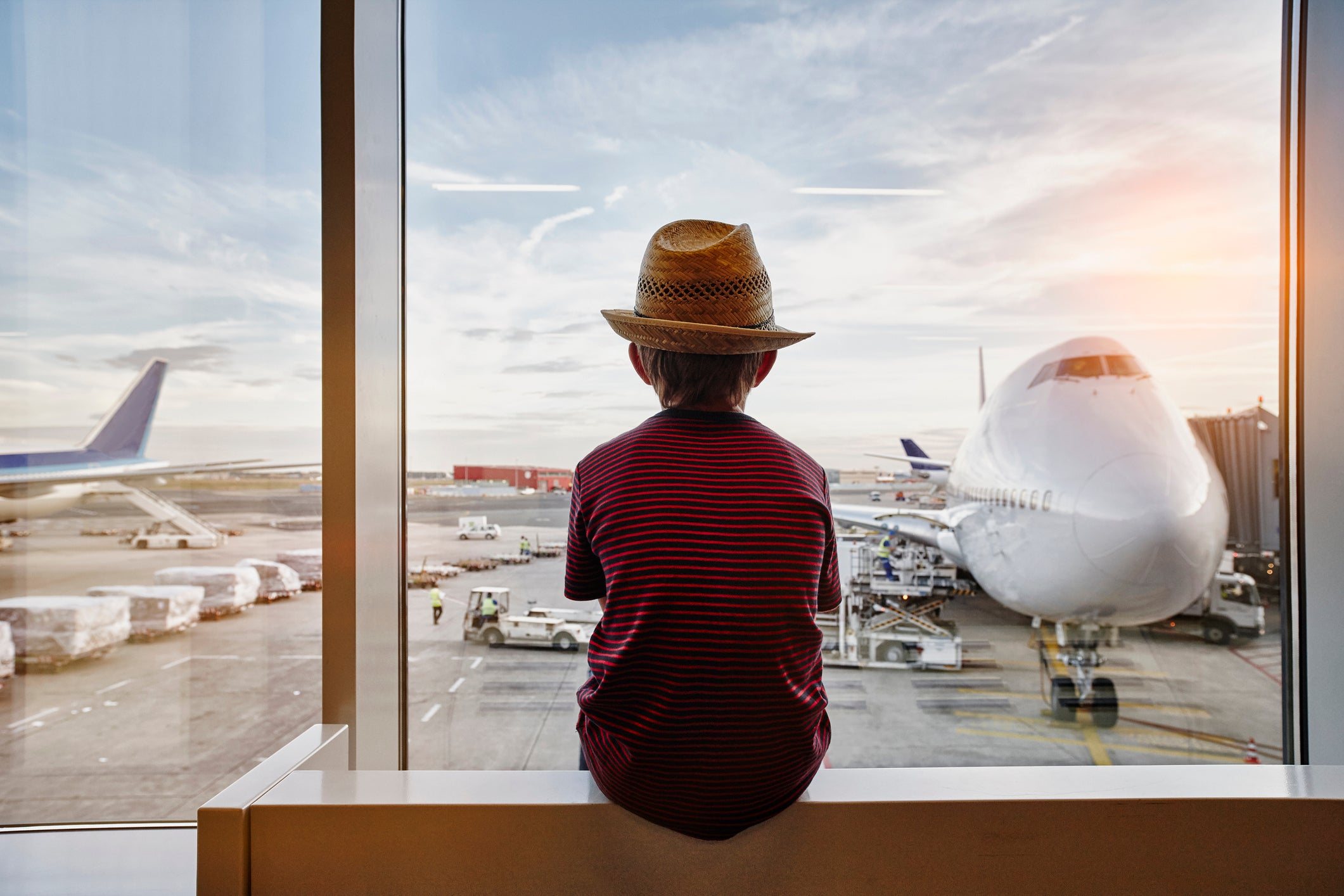
Whether you're fresh to the world of traveling or a seasoned expert, you can always learn new tips to maximize your time away from home. The more research and preparation you do before your trip, the better your experience will be — especially if things go wrong, as they sometimes do.
Some of our favorite tools are deal alerts, Google Flights , sign-up bonuses and credit card rewards . Learn those tools and use them for better travel every time.
Remember that these days, when things go wrong, you have to be your own best advocate. For more travel tips and tricks, read the stories below.
Related reading:
- Your flight is delayed or canceled: Here's what to do next
- The best travel credit cards
- 6 real-life strategies you can use when your flight is canceled or delayed
- 8 of the best credit cards for general travel purchases
- Here's how to get through airport security faster

An official website of the United States government
Here’s how you know
Official websites use .gov A .gov website belongs to an official government organization in the United States.
Secure .gov websites use HTTPS A lock ( Lock A locked padlock ) or https:// means you’ve safely connected to the .gov website. Share sensitive information only on official, secure websites.
Travel Tips 2024
1. Pack smart and start with an empty bag. If you start packing with an empty bag, you are less likely to bring prohibited items to the checkpoint. Not sure what’s prohibited? Visit our “ What Can I Bring?” webpage.
Know the 3-1-1 liquids rule. Remember, if you can spill it, spray it, spread it, pump it or pour it, then it is a liquid and must be packed in your checked bag. Pack liquids, gels and aerosols larger than 3.4 ounces in a checked bag to avoid having the carry-on bag pulled aside, opened by a Transportation Security Officer (TSO), and then potentially having to voluntarily abandon the item because it is over 3.4 ounces. If you are traveling with an infant, most items in your diaper bag are exempt from TSA’s 3-1-1 rule. Breast milk, powdered formula, baby food, bottles and sippy cups are all allowed to fly in the passenger cabin of the aircraft. This also goes for liquid and cream medications. Please separate these items from your bag and place them into a different bin for X-ray screening. If your item alarms, additional screening may be required.
2. Arrive early. Travelers are taking to the skies in record numbers, so plan to arrive at least two hours prior to your flight’s scheduled boarding time to allow enough time to park, navigate to the terminal, check luggage with the airline if needed and go through security screening before arriving at your gate. Arrive at least three hours before international flights.
3. Bring an acceptable ID. Before heading to the airport, make sure you have acceptable identification and make it a REAL ID since you must have a REALID -compliant ID to fly by May 7, 2025. Visit the TSA website to learn which IDs are accepted by TSA at the entrance to the security checkpoint. Identity verification is a critical step of the screening process.
4. Do you carry a firearm? Prepare, pack and declare . If you plan to travel with a firearm, you must properly pack the firearm in a hard-sided, locked case in your checked luggage and declare it with the airline while checking in at the airline ticket counter. Bringing a firearm in your carry-on bag to a TSA checkpoint, even accidentally, is expensive and will cause delays for you and others, even if you have a concealed carry permit or live in a constitutional carry jurisdiction. If you bring a firearm to the security checkpoint on your person or in carry-on bag, TSA will contact law enforcement, who may arrest or cite the passenger, depending on state law. TSA may impose a civil penalty up to almost $15,000 for the first offense, and those who bring a firearm to a security checkpoint will lose TSA PreCheck® eligibility for five years. Second violations will result in permanent disqualification from the program and additional civil penalties. When traveling, be sure to comply with the laws concerning possession of firearms as they vary by local, state and international laws.
5. Be aware of new checkpoint screening technology. TSA uses a variety of methods and technologies to enhance security effectiveness, efficiency and the passenger experience. Screening protocols vary from airport to airport, depending on available technology and the current threat environment. Some airports use the second generation of Credential Authentication Technology ( CAT ), called CAT-2 units. This technology confirms the authenticity of a passenger’s identification credentials with their acceptable photo identification (ID) along with their flight details and pre-screening status, but with an added camera feature. The facial recognition technology TSA uses helps ensure the person standing at the checkpoint is the same person pictured on their ID. Photos are not stored or saved after a positive ID match has been made, except in a limited testing environment for evaluation of the effectiveness of the technology.
Passenger participation is voluntary. If a passenger chooses not to have their photo taken, they may have their identity checked manually without penalty or losing their place in line. Passengers who do not want their photo taken should alert the TSO, who will verify their ID using the CAT machine only. For more information on how TSA is using facial recognition technology, see TSA’s Privacy Impact Assessments , Fact Sheet and biometrics technology webpages.
Several airports have installed Computed Tomography (CT) units. This technology significantly improves scanning and threat detection capabilities for carry-on bags. CT units give TSOs the ability to review a 3D image of passengers’ bags and reduce the need to physically search the contents of the bag. In airports with these CT units in place, you do not need to remove your 3-1-1 liquids or laptops, but you must place every carry-on item, including bags, into a bin for screening. TSA reminds you that you may only bring at maximum one carry-on bag and one personal item through security screening
6. Travel with ease with TSA PreCheck. Join more than 20 million members benefiting from the TSA PreCheck Trusted Traveler program . TSA PreCheck passengers are low-risk travelers who do not need to remove shoes, belts, 3-1-1 liquids, food, laptops and light jackets at the security checkpoint. Wait time standards for TSA PreCheck lanes are under 10 minutes, whereas standard screening lanes are 30 minutes and under. Visit www.tsa.gov/precheck for more information on enrolling with one of TSA’s three enrollment providers. TSA PreCheck members are reminded to make sure their Known Traveler Number (KTN) is in their airline reservation, so it appears on their boarding pass.
7. Call ahead to request passenger support. If you or a family member require additional assistance through security screening, you may request a TSA Passenger Support Specialist (PSS). A PSS is a TSO who has received specialized training, including how to effectively assist and communicate with individuals with disabilities, medical conditions or those who need general additional screening assistance. Individuals should request passenger assistance at least 72 hours in advance by contacting our TSA Cares passenger support line at (855) 787-2227. TSA Cares live assistance is available weekdays, 8 a.m. to 11 p.m. ET, or weekends and holidays from 9 a.m. to 8 p.m. ET. An automated service is available 24/7.
8. Text or @AskTSA before heading to the airport. You can get real-time assistance by texting questions to 275-872 (“AskTSA”) or through @AskTSA on X or Facebook Messenger . An automated virtual assistant is available 24/7. You may also reach the TSA Contact Center at 866-289-9673. Visit our Contact Us page for more information.
9. Listen to and respect frontline employees. Pack an extra dose of patience, especially during these high travel volumes, and show gratitude to all those who are working to get everyone to their destinations safely including TSA and airport personnel, gate agents and flight attendants. Please follow instructions from the TSOs when going through security screening. Violence and unruly behavior in the transportation systems are not acceptable and result in significant delays at traveler checkpoints. TSOs, along with all frontline airport and airline employees and local law enforcement, are working together to ensure safe and secure travel. Assaulting a TSA employee is a federal offense and will result in penalties and/or arrest.
10. Remain aware. Be aware of your surroundings and report suspicious activities. Remember: If You See Something, Say Something™.
- Skip to primary navigation
- Skip to main content
- Skip to primary sidebar
- Skip to footer

- Best Global Medical Insurance Companies
- Student Insurance
- Overseas Health Insurance
- Insurance for American Expats Abroad
- Canadian Expats – Insurance and Overseas Health
- Health Insurance for UK Citizens Living Abroad
- Expat Insurance for Japanese Abroad
- Expat Insurance for Germans Living Abroad
- Travel Health Insurance
- Trip Cancellation Insurance
- Annual Travel Insurance
- Visitors Insurance
- Top 10 Travel Insurance Companies
- Best Travel Insurance for Seniors
- Evacuation Insurance Plans
- International Life Insurance for US Citizens Living Abroad
- The Importance of a Life Insurance Review for Expats
- Corporate and Employee Groups
- Group Global Medical Insurance
- Group Travel Insurance
- Group Life Insurance
- Foreign General Liability for Organizations
- Missionary Groups
- School & Student Groups
- Volunteer Programs and Non-Profits
- Bupa Global Health Insurance
- Cigna Close Care
- Cigna Global Health Insurance
- Cigna Healthguard
- Xplorer Health Insurance Plan
- Navigator Health Insurance Plan
- Voyager Travel Medical Plan
- Trekker Annual Multi-Trip Travel Insurance
- Global Medical Insurance Plan
- Patriot Travel Insurance
- Global Prima Medical Insurance
- Student Health Advantage
- Patriot Exchange – Insurance for Students
- SimpleCare Health Plan
- WorldCare Health Plan
- Seven Corners Travel Insurance
- Trawick Safe Travels USA
- SafeTreker Travel Insurance Plan
- Unisure International Insurance
- William Russell Life Insurance
- William Russell Health Insurance
- Atlas Travel Insurance
- StudentSecure Insurance
- Compare Global Health Insurance Plans
- Compare Travel Insurance Plans
- Health Insurance in the USA
- Health Insurance in Mexico
- Health Insurance in Canada
- Health Insurance in Argentina
- Health Insurance in Colombia for Foreigners
- Health Insurance in Chile
- UK Health Insurance Plans for Foreigners
- Health Insurance in Germany
- French Health Insurance
- Italian Health Insurance
- Health Insurance in Sweden for Foreigners
- Portuguese Health Insurance
- Health Insurance in Spain for Foreigners
- Health Insurance in China
- Health Insurance in Japan
- Health Insurance in Dubai
- Health Insurance in India
- Thailand Health Insurance
- Malaysian Health Insurance for Foreigners
- Health Insurance in Singapore for Foreigners
- Australian Health Insurance for Foreigners
- Health Insurance in New Zealand
- South Africa Health Insurance for Foreigners
- USA Travel Insurance
- Australia Travel Insurance
- Mexico Travel Insurance
- News, Global Health Advice, and Travel Tips
- Insurance Articles
- Travel Advice and Tips
- Best Hospitals in the United States
- Best International Hospitals in the UK
- Best Hospitals in Mexico
Or call for a quote: 877-758-4881 +44 (20) 35450909
International Citizens Insurance
Medical, Life and Travel Plans!
U.S. 877-758-4881 - Intl. +44 (20) 35450909
12 Top Safety Tips for International Travel
Safety advice for international trips.
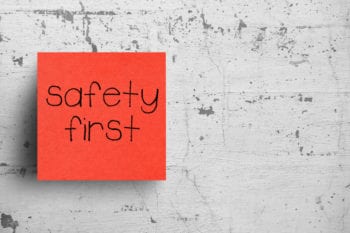
Few things are more exciting than traveling internationally. When going abroad, you experience all the beautiful cultures that make up our world. Many people are wary of international travel, fearing that it is dangerous. For the most part, traveling throughout the world is very safe. This being said, there are safety precautions that every traveler should employ to ensure that their trip remains a joyous one. Here are 12 top safety tips for international travel .
- Get a Checkup and the Appropriate Vaccines: Always have a physical before your trip to ensure that you are healthy enough to travel abroad, and make sure that you understand the health concerns of the country you are planning to visit. Numerous worldwide travel destinations require vaccinations before your arrival, so make sure that you know the immunizations you need and that you are immunized before your trip.
- Make Electronic Copies of Your Documents: You’ll be carrying the necessary documentation with you when traveling abroad. Create an electronic backup of your immunization record, itinerary, medical insurance card, passport, plane tickets, travel insurance , and visas before you leave. Email the file to yourself and keep it in your inbox so you can access the information from your smartphone should the paperwork be lost or damaged.
- Don’t Carry Everything Together: It might be tempting to keep your cash, credit cards, identification, and traveler’s checks in your wallet, but don’t do it. Keep any money, credit cards, IDs, and checks you won’t be using locked in your hotel room safe. Separate the monetary and identifying items you must carry on you and carry them in different spots on your person. This safety tip prevents you from losing everything should somebody steal your wallet.
- Don’t Carry Things in Your Back Pocket: Speaking of theft, pickpocketing is common in specific areas around the world, and yes, pickpockets have been known to target tourists. Do not keep anything in your back pocket, including your wallet, a small purse, your hotel room keys… anything! Doing so opens you up to becoming an easy target for the swift hand of a pickpocket.
Before you go , invest in International Insurance:
- Trip Cancellation Plans | Free Quote / Apply
- Travel Medical Insurance | Free Quote / Apply
- International Health Insurance | Free Quote / Apply
Related: Read Travel Insurance Reviews before buying
Ways to Stay Safe When Traveling Abroad
- Keep Items to Your Front: Another thing you might be tempted to do is hang your purse on the back of your chair on a sidewalk or set your bags down at your feet. This isn’t a good idea, either, because your attention will be attracted to the new sights around you. Keep your bags in your lap or at the front of your feet under the table, with the straps wrapped around your leg.
- Look Back When Leaving: The previous tip often helps prevent leaving things behind; after all, if you have your purse strap wrapped around your leg, you’ll trip over it if you don’t remove it. People do, however, leave personal items behind all the time when they’re ready to move on to their next destination. Look back at where you were sitting as you’re leaving to make sure you didn’t forget your purse, shopping bags, or anything else of importance.
- Leave the “Bling” at Home: It might be tempting to wear your favorite jewelry throughout your trip or take pictures with that new, costly camera, but in the interest of your safety, don’t. If you tour your international destination dressed to the nines and wearing expensive jewelry, you are announcing to potential thieves that you are a worthy mugging target. Keep it simple and appropriate for the place you are visiting, and hide your camera in a case when you aren’t using it.
- Don’t Talk to Strangers: Of course, you’ll be talking to the people of the land you are visiting – that’s the best part of traveling, meeting new people! Don’t get carried away, however, and begin to trust strangers with your life story or personal information. Think about what you say to your children and stick to your advice. Don’t talk to strangers who don’t look trustworthy, do not accept food or drink from them, and do not go somewhere with them unless they are your licensed tour guide and you’re on your booked tour.
- Don’t Solicit Panhandlers: Many nations have areas that suffer from poverty just as we do here in the U.S. It is crucial not to traverse these areas without the proper guides. It is even more important not to give beggars cash or any of your belongings. Of course, you want to help them out, but if you are genuinely interested in finding ways to aid the poverty-stricken in the land you are visiting, research local charities and donate that way.
- Don’t Try to Be a Hero: The flip side of the previous tip is don’t try to be a hero if you, unfortunately, become the victim of a mugging. Rather than attempt to fight the perpetrator, give your belongings up. Cash, credit cards, identification, and traveler’s checks are not worth injury or death. Give the items up quickly, and once you’re out of danger, proceed to the nearest U.S. Consulate or appropriate authority to report the incident.
- Avoid Using Your Credit Card at Internet Cafes: With the advent of the Internet, criminals have found a new way to commit identity theft. Internet cafes are trendy among travelers. They are a quick and easy way to grab a cup of coffee while emailing the latest details of your adventure to your family and friends. Criminals keep a wary eye and use key logger software on the computers in Internet cafes to obtain your credit card information, so pay for the computer use with cash.
- Be Properly Insured: Many people think they do not need travel insurance , and nothing could be further from the truth. Your health insurance might offer you some international coverage. Still, the chances are good that it doesn’t fully cover potential illness, injury, or even death when you are on foreign soil. Your belongings must also be insured for the simple reason that anything might happen to them. Make sure that you, your fellow travelers, and everything you are taking on the trip is properly insured before leaving. If you are traveling for work, check with HR to see if they have a business travel insurance plan for employees.
Terrorism We have created a couple of relevant articles to help you plan your trip : Terrorism and Travel Abroad and Tips and Advice: When Terror Happens on your International Trip to help you prepare for and stay safe in a terrorist attack.
I sincerely hope this list of travel safety tips doesn’t discourage you from traveling abroad. Instead, I hope this list encourages you. Traveling worldwide is one of the most rewarding experiences; it doesn’t have to be dangerous. If you employ precautionary measures before and during your trip, you will have a wonderful and unforgettable time on your international vacation.
Don’t forget your International Insurance!
- Trip Insurance | Free Quote / Apply
- Travel Health Insurance | Free Quote / Apply
Related: If you travel frequently, consider an Annual Travel Insurance Plan
Also, read the following:
- Visitors Coverage
- Overseas Travel Insurance
- Safety Tips for Women Traveling Abroad
- Safest Airlines – International or Domestic?
- Travel Warnings, Advisories, and Alerts
- Before you Go – Advice from US Dept. of State
Author: Joe Cronin , Founder and President of International Citizens Insurance . Mr. Cronin, a former expat, is an authority in the areas of international travel, and global health, life, and travel insurance, with expertise in advising individuals and groups on benefits for today's global workforce. Follow him on LinkedIn or Twitter .
Get a fast, free, international insurance quote.
Global medical plans, specialty coverage, company info, customer service.

20 Best Travel safety tips: How to stay safe while traveling
Looking for ways to stay safe while traveling? Here are the best international travel safety tips that will guide you.
Have you booked for your long-awaited trip to your bucket list destination? Or just visiting a new city that was recommended by fellow travelers?
With all the excitement that comes with visiting a new place, you might forget to take into consideration the country’s or city’s safety.
Even though you can’t guarantee your safety 100%, there are some safety tips for traveling to follow to make sure you’re at least safe at all times. But before you go for a trip of a lifetime, here are some of the travel safety tips that you should know.
Pro tip about safety while traveling
The world and media have tried to paint a negative picture of safety while traveling. But let’s face it, bad things can happen from anywhere, whether abroad or your home town.
I’ve personally been robbed a lot from my home city than when traveling abroad but you just need to be a little careful and apply the general safety tips anywhere you go.
This post is not about showing you how unsafe the world is when you travel, but to show you that sometimes things go wrong and when they do, its better to know what to do and also be more aware of them so that you don’t fall a victim.
But to make sure you stay safe while traveling, here are some of the travel essentials not to leave behind.
Travel essentials to help you travel safely. – An Anti-theft money belt : To keep your money safe while walking around the city, I recommend buying this anti-theft money belt . – A Pacsafe is a must-have in order to keep your expensive travel items safe within the hotel. – A travel neck Pouch: To keep all your most important documents safe, including your passport, buy this travel neck pouch that you can even wear around your neck. It has different compartments to keep everything safe and organized. Other travel essentials not to leave behind when traveling – A universal travel adapter : Since different countries use different adapters, I’d advise you to buy one universal travel adapter to cater for all regions. You can buy one from here if you don’t have it yet. – A power Bank: One of the things you should never leave behind while traveling is the Powerbank! Phones have now become a great deal of our lives that we need to use them for so many important things. So take a power bank with you so that you don’t run out of battery. This power bank is small, light, and has the capability to charge your phone and other devices multiple times. – Microfibre travel towel: I always opt for this microfibre travel towel because it is super lightweight, easy to wash, and dries easily. – First Aid kit : Regardless of where you’re traveling to, you’ll need to pack a First Aid kit for emergencies that might arise while traveling. Remember it’s always better to be safe than sorry. Just make sure that the one you pack has all the essentials and that it is small and light enough to fit in any kind of suitcase/ backpack. This first aid kit actually fits all the qualities mentioned above plus it is really cheap for what it offers. – Collapsible water bottle: I always prefer carrying a water bottle while traveling so that I can just refill it when I run out of water. It also helps to be a responsible traveler since you won’t have to use tons of disposable plastic bottles which are not great for our environment. Any water bottle can work but I prefer this collapsible one as it doesn’t take a lot of space in my bag.
International travel safety tips you should know as a traveler

1. Stay street smart as you travel.
The major common safety threat in almost all major cities in the world is the street robbery. This ranges from pickpocketing to using cunning methods to take away your belongings without your knowledge.
If you’re traveling through crowded places, it’s better to keep your belongings in a place that is visible to you at all times.
And it’s better to wear your daypack in front instead of the behind to avoid someone picking your stuff without realizing it. You can also wear a money belt that makes it absolutely impossible for anyone to steal your money.
Also, instead of carrying credit cards, carry cash as it’s hard to have any major problems when using cash. Another way to stay safe on the streets is by not carrying expensive items.
Related post: Big mistakes to avoid while traveling
2. Check the political and security conditions of the country you’re visiting.
You don’t want to end up in a war zone because you didn’t research the country’s or city’s stability in terms of security.
However much you were excited about the trip, if there is instability in that area, cancel it immediately; Your security is more important than a day’s adventure.
3. Be aware of the extreme weather conditions of the country you’re visiting.
Staying safe while traveling is not only about wars and political instability in the country you plan to visit, but also the weather conditions.
Some countries experience extreme weather conditions and traveling to such places during those times might be dangerous to your safety.
Always try to follow the weather forecast on AccuWeather or Google weather to find out whether the weather conditions are favorable to you.
For example, for your safety, I wouldn’t advise you to visit areas that are likely to be hit by floods, hurricanes, mudslides, or even earthquakes.
4. Inform your friends and families about your travel plans.
Regardless of whether you’re traveling with someone or solo, it’s important to share your travel plans with a few trusted friends and family members.
It is a smart safety travel tip to ensure that someone is aware of your whereabouts, God forbid if something were to happen to you.
I don’t want to seem like I am scaring you but letting someone know where you are is important- let them know which hotel/hostel you’re staying at plus their contact details so they can easily get in touch with you in cases where they can’t reach you on your personal contacts.
Related post: Mistakes to avoid while hiking
5. Move with copies of your travel documents and identification.
This might seem like a known fact but you’ll be surprised by how many travelers overlook this. Always carry a photocopy of your passport. On top of that, note down the location of your hotel/hostel on a piece of paper in case you were to lose your phone.
On the same note, include details of emergency / next of kin contacts that can easily be contacted in case you’re in trouble.
Again I don’t mean to scare you, but since staying safe while traveling is paramount, it is better to take precautions- better safe than sorry, right?

6. Get travel insurance
For some travelers, travel insurance might seem like a ripoff but the time your $1000 dollars camera gets robbed is when you’ll realize how much important and cheaper travel insurance is.
Having travel insurance doesn’t mean that you’ll be careless with your valuables but it gives you confidence knowing that your items are insured and if anything was to happen, insurance can cover it.
Confused about which travel insurance to opt for, World nomads insurance is highly recommended by many travelers and you can easily apply for it online regardless of where you are at that moment.
Insuring your valuables is not enough, make sure you insure yourself as well by obtaining health insurance. In some countries, it might be hard to access health care as a foreigner if you don’t have health insurance.
So, to avoid all that trouble if you, unfortunately, fall sick or get injured, get yourself health insurance before you travel abroad. Get a quote by filling out the form below.
Related post: Things to do before traveling abroad
7. Be aware of the common travel scams
There are some travel scams that are almost everywhere in the world. Even though they are known worldwide, if you don’t know them individually, you’re likely to get taken advantage of.
Here are some of the common travel scams worldwide that you should look out for.
- A taxi driver using a longer route to charge you more. To avoid this, make sure you know where you’re going or follow the route using maps.
- Beggars on the streets. With this, most people stage kids, the lame or a woman carrying a child so that you feel sympathy and give them money. This is very common in Africa and some parts of Asia .
- A friendly local who knows the best and cheapest shops around town. This will start with a local approaching you especially if you’re near a shopping center. He/she will convince you that he knows the best shops with good quality items and he/she can help you bargain for the local price. But instead, he will end up taking you to his own shop where the items might be of poor quality and extremely expensive. How to avoid this is to be able to read between the lines and try to go shopping on your own and use your bargaining skills instead of relying on other people.
Related post: How to plan a trip from scratch
8. Find out the location of your country’s embassy in the country you’re traveling to. (if there’s one)
One of the best ways to stay safe while traveling is to find out where your home embassy is as they’re likely to care more about your safety in a foreign land.
Knowing their location is not enough, note down their phone numbers to easily contact them should you get in any kind of trouble that might require their assistance.
9. Don’t be big-headed; obey the laws of the country you’re visiting.
I’ve heard of some travelers that got in trouble in a foreign country because they refused to follow the laws of the country.
I am sure you wouldn’t want someone to come to your house and start breaking the rules you set.
It’s kinda the same here, even if you don’t believe in some of the laws in that country, obey them not to get on the wrong side of the law. If you’re an obedient and respectful person, this shouldn’t be hard at all.

10. Register your travel plans with your government.
This might sound irrelevant to you but it is actually a great tip to stay safe while traveling. This can be helpful in case a tragedy occurs in the area you visiting, your government will try to look for you to make sure you’re safe.
Even if you don’t support the government in leadership, this is mostly to your benefit as you’ll have a bigger organ looking out for you.
Also, if you’re an American national, you can register with the Smart Travel Enrollment program which will always update you on all the safety conditions of the destination you’re in and they can easily get in touch with you if there are any disasters arising.
Related post: What to pack for a road trip
11. Trust your instincts.
While traveling, if something doesn’t feel right, just move on. If walking at night in a remote area doesn’t feel right ( which shouldn’t actually) then don’t do it.
Instead of regretting it later on, trust your guard and follow it- the good news is that your guard is always right in most cases.
12. Ask the locals of what they think of their country’s safety.
There is no one that knows that country like the locals. So talk to locals and ask all the necessary questions about security and safety ( of course if they are kind enough to answer). Some of the questions you could ask include;
- Whether they feel safe in their country.
- Cases of insecurity reported in the country
- Whether it’s safe for tourists
- Best way to skip the country’s travel scams
- Whether it’s safe to walk at night
- The safe and unsafe areas ( if any)
- And finally the general travel tips on how to stay safe in that particular area.
Related post: How to plan an epic road trip
13. Be friendly but not over trusting with strangers.
However friendly a stranger might be, don’t be quick to trust them completely. Let’s face it, it’s hard to completely know someone’s intentions in the shortest amount of time.
So, instead of telling them which hotel you’re staying at, choose to tell them a neighboring hotel in the city.
And if someone asks whether it’s your first time visiting that area, say no or go with the “you’re visiting family and friends” line. If that person was planning to make you a target, he might change his mind and move onto the next target.

14. Inform your bank or credit card provider about your travels.
It will be really inconveniencing after taking into account all the tips for traveling safely, only for your bank to freeze your credit/debit cards with the assumption that someone is stealing from you or dealing in credit card fraud.
So, before you travel, make sure you inform your bank about your travels. This is easy as in most cases some online banking services have an option of letting them know that you’ll be traveling so that there are no misunderstandings.
15. Hide emergency cash.
One thing I’ve learned during my travels is to always hide emergency cash. This not only works for international travels but also locally.
Imagine getting mugged and all your money is taken and you’re left with nothing to even take you back to your hotel.
I always advise travelers to keep money in different places- some in your bag, some in your pocket and if you’re a woman, keep some in your bra! Yes, you read it right- in your bra.
Most people laugh when I tell them that but I’ve found it a really great travel safety tip as it’s less likely for anyone to even think that you have money there.
Recently a friend of mine told me that he fell a victim of a pickpocket in Namibia and all his money was taken. He had to walk some good distance at night to even get to his hotel. But if he had some emergency cash hidden somewhere on him, he wouldn’t have walked all that distance at night.
Related post: Airport tips and hacks that will make you a pro traveler
16. Don’t make yourself a target by looking like a tourist.
Most wicked people and scammers target tourists, so if you scream tourist, by all means, you’re likely to be their next target.
Instead of looking scared and lost (however much you might be), try not to show it. Instead, walk up to a place that seems highly established and ask for directions.
17. Don’t flash money and expensive items around.
Even though anyone can be robbed, but travelers that flash money and expensive items around have higher chances of being robbed.
Be the responsible tourist that protects his valuables. Instead of flashing them around, keep them in your Pacsafe at your hotel if the hotel doesn’t provide a safe locker. Don’t own a Pacsafe yet? You can buy one from here .
18. Don’t leave your valuables unattended to
In addition to not flashing expensive valuables, never leave your property unattended to at all times.
If you’re traveling alone and happen to for example go to a swimming pool, instead of leaving your property alone as you swim, you can ask the pool staff to help look over them. This might sound extra to some people, but better safe than sorry.
19. Don’t walk late at night in unsafe neighborhoods.
I am sure you already know this but I will say it again. Most of the crimes happen late in the night since there is barely anyone to save you.
So, instead of risking your life and property walking alone at night, why not stay indoors but if you choose to go out at night, walk in a group or else call for an Uber to take you back to wherever you’re staying.
20. Stay away from dangerous activities

Dangerous activities vary from individual to individual; what I consider dangerous might be absolutely safe for you. If an activity seems unsafe for you, just skip it even if everyone else is doing it.
I know traveling means loosening up, ticking activities off the bucket list , and getting out of your comfort zone, but if something puts your health in danger, forego it.
I know people who are afraid of taking a motorcycle in Uganda because they feel unsafe on it but would easily bungee jump in South Africa on the world’s highest bungee. So it all goes back to what activity you think is safe.
With all that in mind, there are obvious security risks while traveling anywhere but that doesn’t mean we will stop traveling.
I mean you could be exposed to the same kind of risks even when you decide to stay in your city. All you have to do is to be a little careful and more aware of your surroundings.
Now that you know all the travel safety tips, it’s time to book your flight to that destination you’ve been longing to visit. You can also book your hotel stay from here before you go.
Don’t forget to stay safe at all times!!
More posts to help you plan your travels
- Camping tips for beginners
- Big mistakes to avoid while camping
- What to pack for a day hike
- Mistakes to avoid while backpacking
Was this post of the best international travel safety tips helpful? Then please share it with others
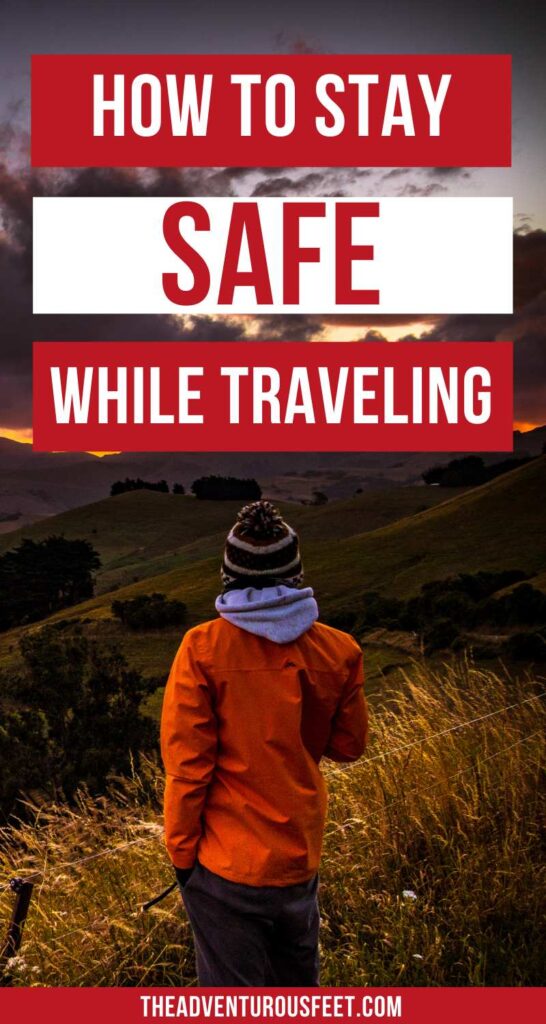
Similar Posts

How to plan a trip: 12 steps to planning a trip like a pro
Looking for ways on how to plan a trip successfully? Here is a step-by-step comprehensive guide that will help you plan your trip like a pro. Before you get your camera ready to capture the most exotic and beautiful destinations, there is a bit of planning that must be done to make sure you even…

15 Carry on essentials for long haul flights
Going for a long flight soon? Make sure to pack these carry on essentials for long haul flights to have an amazing time during your flight. For my very first long-haul flight to Istanbul, I missed carrying so many long haul flight essentials in my carry-on that I only realized how useful they are when it was too…
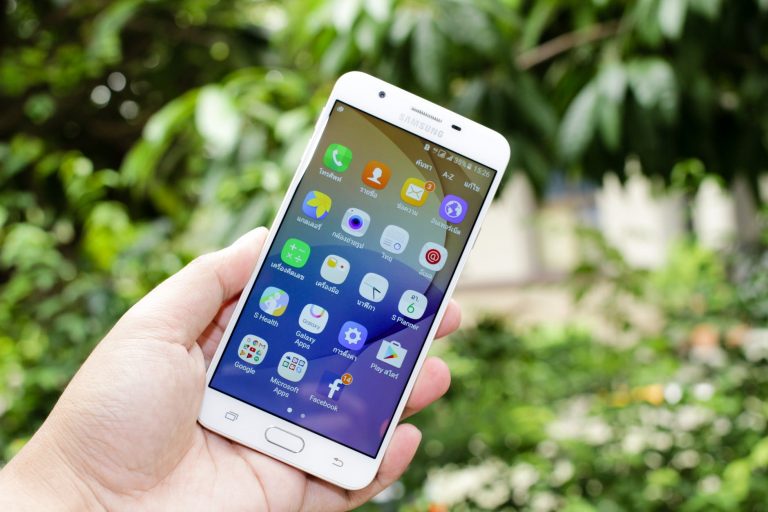
Must have free travel Apps that do not need WiFi
With everything digitalized nowadays, it becomes somewhat hard to travel without the internet. Whether you’re travelling to a remote area, or you just don’t want to sacrifice an arm or leg for the roaming charges on the internet, you still need to be connected to the world. But how is one supposed to have an…

2019 Amazon black Friday deals for travelers
It’s that time of the year again where we run like crazy to stores to get the greatest bargains we can land our hands on! With percentages dropping as low as 40 sometimes 50 off, its the busiest weekend in the shopping world! From the craze, the hype, the queues to being randomly pushed away…

15 Cute Summer Travel Dresses That Will Make You Look Like a Fashionista
Planning to on a summer trip but not sure what to wear? Here are the best summer travel dresses that will make you look like a fashion guru Summer is upon us and I couldn’t be happier! After a long gloomy winter and an unpredictable spring where we had more rain than sunshine, I couldn’t…

15 Romantic Staycation Ideas for Couples Who Love to Travel
Looking for romantic staycation ideas for couples to treat your loved one to? Here are the best staycation ideas that will bring you and your loved one even closer than before. Who doesn’t love taking trips to the most romantic places in the world with their loved ones and create beautiful memories? I know I…
Thank you for the tips. Blessing to you, Gail
Traveling is an exhilarating experience, but it’s important to prioritize safety. Your travel safety tips post provides valuable insights for globetrotters like myself. From researching destinations and securing travel insurance to staying vigilant and aware of local customs, these tips are indispensable for a worry-free journey. I particularly appreciate your emphasis on maintaining copies of important documents and staying connected with loved ones during travels.
Thanks for this, Esther! Really helpful tips to cover when travelling! Things everyone should think about whilst planning their travels.
Leave a Reply Cancel reply
Your email address will not be published. Required fields are marked *
Quick Links
Get in touch.

Unlock the Latest Knowledge that Can You Help You Achieve More in Life with More Confidence
Print and Digital Options Available
7 Travel Tips and Tricks for Navigating Obstacles on Your Next Journey

When a global IT outage grounded airlines worldwide in July, the faces of distress splashed across the news served as a sobering reminder of many people’s worst travel nightmares. Passengers recounted tales of sleeping in airports for two days and of canceled flight alternatives, and shared their frustration regarding a whirlwind of obstacles to overcome. Travel setbacks are nothing new, but with larger scale events like this one, alongside record-breaking weather patterns like Hurricane Beryl, it’s more important than ever for travelers to be prepared for travel hiccups and the way travel may look moving forward.
I often call airports my second home since I travel monthly on assignment as a travel journalist. I’m no stranger to delays, hotel rooms that aren’t ready and even being stranded. Over the years, I’ve learned how to best prepare for things I can control—and to take a deep breath (and order a glass of wine) over things I can’t control.
Whether you’re preparing for upcoming travel or overcoming a recent bad travel bout, read on for key travel tips and how to handle any travel obstacle that comes your way.
You forgot to pack something
Sometimes a travel hiccup starts long before you arrive at the airport. Leaving something at home, from critical medicine to your favorite face moisturizer, can create immense travel anxiety. One way to prevent this mishap is to set reminders on your phone or, my go-to, a good old-fashioned handwritten reminder list. If you prefer a tech version, Todoist is a popular app that populates to-do lists with due dates to help you easily stay on top of what to purchase and what to remember to pack ahead of a trip. PackPoint , another app option, helps you create a list of what to pack based on the length of your journey, even factoring in what the weather will be like at your destination. If you still end up forgetting your medication, your doctor may be able to call in your prescription to a local pharmacy where you’re vacationing.
Your flight was canceled
Delayed or canceled flights top the list of many people’s worst travel nightmares. The first thing to do ahead of any change in transportation plans is to know your rights. Per a new U.S. Department of Transportation policy announced this year, every airline passenger can receive a cash refund when flights are canceled or significantly delayed and the passenger chooses not to travel. This applies to weather-related cancellations and maintenance issues too.
You should also check to see if your credit card offers travel insurance , which can help cover expenses like unplanned hotel stays and meals. Learn more about 10 credit cards that provide different travel protections here . And, although often difficult, try to remain calm and proactive. Many airlines will try to rebook you on the next available flight. To prevent any weather-related delays or cancellations, check ahead of time to see if there are any storms in the area you’re traveling to. Airlines will often post any pending issues on their travel alerts page on their website so you can rebook your flight or replan ahead of time.
Your flight is uncomfortable
It happens to the best of us: a cramped seat on a flight, sometimes near the bathroom, sometimes near a noisy neighbor. A freezing cold cabin or one that’s too hot—the list goes on. Flying is not the most comfortable experience, but planning ahead can help assuage some of the pain of it all. My must-have items for any flight include a small travel blanket for flights that are too cold, an amazing blackout eye mask from Ostrichpillow for when it’s time to sleep and compression socks from Comrad to keep my circulation intact. I’ve also found that every once in a while, a friendly chat with an airline desk agent might be enough to upgrade your seat—particularly on flights that aren’t too crowded.
You’re charged a luggage fee
It pays to learn luggage weight limits. There’s nothing that can derail your mood quite like unexpected costs. Be sure to check ahead of time about any airline fees for baggage, particularly on international flights. Oftentimes, carry-on luggage and weight measurements are different in Europe, for example, so check ahead so you aren’t blindsided by additional fees at the airport. A great way to optimize packing and room in your luggage is with packing cubes. My favorite is this compression set from Calpak .
You’re shocked by currency exchange rates at your destination
Prevent even more travel stress by checking currency exchange rates at your destination before you travel. Check with your bank to see what ATM fees you might incur while abroad. Some banks even have enrollment programs that waive those fees. Pending your final destination, you may also be able to exchange money ahead of time at a bank—and it’s always good to have some cash on hand.
You experience a medical emergency
Life happens, and though no one wants to deal with an injury, sickness or trip to the hospital, it’s best to be prepared in the event that an emergency does arise. If you are staying at a hotel in your final destination that has a concierge service, consider emailing them ahead of time to find out the nearest pharmacy and hospital. It’s also important to remember that 911 is not the emergency number worldwide. Do your research on the local emergency numbers and embassy at your destination.
Your hotel room isn’t ready
Oh, to travel for 16 hours only to arrive and your hotel room isn’t ready. This is a particular kind of pain that I’ve known all too well. If you are arriving at your location before check-in time, a good travel tip is to send an email to request an early check-in. If that’s not possible, ask for suggestions of nearby cafes or relaxing environments until the room is ready. If you run into a dilemma where you suddenly find yourself without a room or need to find a last-minute option due to a hotel’s error, inquire on whether they can book you at a sister hotel or suggest a hotel within your price range. Hotel Tonight is also a great website that shares rooms available up to the minute, sometimes with discounted prices.
Photo by sumroeng chinnapan/ Courtesy of Shutterstock.com
5473 Blair Road, Suite 100 PMB 30053 Dallas, TX 75231
Copyright © 2024 SUCCESS Magazine. All rights reserved.

- Latest Headlines
- Destinations
- Holiday Types
- Expert Reviews
- Mail Travel
- Celebrity Travel

Flight attendant shares chilling travel safety tips - but people have spotted a major flaw
- READ MORE: Here's why passengers should NEVER hit on crew they fancy
By Noa Halff For Dailymail.Com
Published: 11:00 EDT, 24 August 2024 | Updated: 11:15 EDT, 24 August 2024
View comments
A flight attendant has revealed the chilling hotel safety tips she swears by - but viewers have pointed out some major flaws.
A flight attendant named Ally Case has sparked debate with her hotel safety check tips, shared as part of her '14 Days of Travel Tips' TikTok series in July.
Case captioned one video: 'Hotel safety check tips from a flight attendant. I do this every trip, for work and leisure.'
Her routine began by propping the door open with a suitcase while checking the room for any hidden intruders.
'When I first get to my room, I use my suitcase to prop the door open so I know I'm not locked in the room with a murderer while I'm doing my checks,' Case explained.

One flight attendant named Ally Case has sparked debate with her hotel safety check tips, shared as part of her '14 days of travel tips' series in July

Her routine begins by propping the door open with a suitcase while checking the room
I'm a flight attendant and here's why passengers should NEVER hit on crew they fancy while flying (though there is one window of opportunity... )

She then scanned the entire space, including cabinets, curtains and under the bed.
'I first do a scan of the room and then I check the cabinets to make sure there are no people hiding in them,' she says.
'I go over to the curtains and I tap tap tap on both sides to make sure there are no people hiding behind the curtains as well.'
Case continued: 'Of course, you have to check under the bed, no one hiding under there. And then, I go over to the bathroom - we're all clear and safe in here.'
After completing her checks, she removed the suitcase from the door before locking and deadbolting it.
While some praised her caution, others called her neurotic and pointed out flaws in her system.

She then scans the entire space, including cabinets, curtains, and under the bed

After completing her checks, she removes the suitcase from the door, then locks and deadbolts it
One viewer was quick to point out a potential danger of her process.
'What about someone walking in while the door is propped open?' the user commented.
Others shared their own chilling experiences, with one saying: 'This happens... A guy was hiding in my mom's room in Mexico... She saw the curtain move, and ran from the room. The guy was kicked out from the hotel.'
Some found her checks excessive, with one user joking: 'I am more worried about bedbugs than murderers hiding in my room.'
In another tip video, Case advised flipping luggage tags backward to protect personal information.
'I cannot tell you how many people I see on a daily basis with their information displayed for anyone to see - their name, their phone number, their home address,' she explained.
'What you can do instead is fill out the information card and flip it backwards,' Case suggested.
'That way when you're on the plane, on the train, you're not just giving your information to everyone but if your bag is actually lost someone can flip this over and get your information.'

In another tip video, Case advised flipping luggage tags backward to protect personal information

A former baggage service employee disagreed. 'As a former baggage service employee, we will not flip it. We will assume that it's empty. Just include your email and not phone or address'
@allycase1 One of my top travel safety tips 🙌 I don’t even like strangers to know my name — no chance am I going to have my phone number and home address on display!! #travelsafety #safetraveling #traveltips #safetytips ♬ original sound - Ally Case
'You can also write "flip over" or something like that as well,' she continued.
However, one former baggage service employee disagreed.
'As a former baggage service employee, we will not flip it. We will assume that it's empty. Just include your email and not phone or address.'
Other viewers suggested alternative solutions, such as using a work address and office phone number or setting up a dedicated email address for luggage tags.
'I put my work address and office phone on it. I assume that if my bag is lost and there's no readily available info, they'll think I forgot to fill it out and not flip it over,' one user commented.

Case's final tip was to use an AirTag in checked luggage for tracking in case it get's lost

In response one user commented, 'I suck at changing the battery, seems so simple but I feel like I'm not doing something right'
'I also don't put my home address on that tag. I've set up a dedicated email address instead,' another wrote.
Case's final tip was to use an AirTag in checked luggage for tracking in case it get's lost.
'If your bag gets lost, you can track it right from your phone,' she explained.
In response one user commented: 'I suck at changing the battery, seems so simple but I feel like I'm not doing something right.'
Although many called her out for being overly thorough, Case's concerns aren't entirely unfounded.

Christy Bautista, 31, of Harrisonburg, Virginia, was stabbed around 30 times by career criminal George Sydnor Jr., 43, in April 2023 after he broke into her hotel at 6:45pm

Bautista had checked into the Ivy City Hotel just an hour before and had parked her car directly in front of room 116, where she was staying
Hotel crimes appear to be on the rise, with a 2023 report showing a terrifying crime wave of rapists allegedly targeting women in hotel rooms at well-known chains across the US.
A woman was stabbed to death in a Washington, DC, hotel room last year by an armed robber who was out on bond and was caught trying to smoke a cigarette covered in blood.
Christy Bautista, 31, of Harrisonburg, Virginia, was stabbed around 30 times by career criminal George Sydnor Jr., 43, after he broke into her hotel at 6:45 in the evening last April. She was there to attend a concert.
In 2022, a woman was raped at a Holiday Inn Express & Suites in Gonzales, Texas, after a man was able to enter her room after convincing hotel staff to give him a key card.
A lawyer representing the victim told The New York Post: 'The woman was asleep and she woke up to the man crouched at the foot of her bed with his pants undone and a condom out.'
Share or comment on this article: Flight attendant shares chilling travel safety tips - but people have spotted a major flaw
- Add comment
TOP STORIES IN TRAVEL

- Follow DailyMail
- Subscribe Daily Mail
- Follow @dailymail
- Follow MailOnline
- Follow Daily Mail
LATEST TRAVEL NEWS

- Tourists warned as Goa taxi protest turns violent
- Parliament to debate cost of term-time holidays
- New Brazil yoga retreats for World Cup widows
- Outer Hebrides boasts stunning airport approach
- Lewis Hamilton to star in Top Gear festival
- Thailand set to lose £1.6bn in tourism revenue
- 14% of Brits abroad refuse to speak local dialect
- Egypt bombing: New FCO advice to UK tourists
- India to cut red tape and issue visas on arrival
- Qatar Airways' new all-business class flights
- Rise in British travellers visiting Germany
- Brits rate cuisine as essential part of holiday
- London to Glasgow train to host comedy gig
- British sounds in £2.5m tourism advert
- Two-fifths of parents would risk term-time trip

- Back to top
Published by Associated Newspapers Ltd
Part of the Daily Mail, The Mail on Sunday & Metro Media Group
Enter your email below to receive occasional updates in your inbox.
- < Back to email setting
8 Tailgating Safety Tips for Your Pre-Game Fun
One of the best parts about fall is the pre-game tailgate party where you can celebrate and cheer on your favorite sports team. It’s a long-standing tradition that keeps growing in popularity. Following these safety tips can help keep your celebration fun and safe.
Tailgate accessories for the perfect party
Having the right set up and accessories on hand makes tailgating easy on the host and comfortable and enjoyable for the guests. Be sure you’re planning for a shelter with chairs, grilling accessories, and any paper and/or plastic items as you’re getting ready to celebrate the big game.
- Start your tailgate plan with the setup. Bring a portable tent or canopy, fold-out camping chairs and a folding table to hold all the food.
- Will you be grilling? If so, you’ll need a small, transportable grill and accessories such as tongs, a spatula and a meat thermometer.
- Stock up on paper or plastic plates, napkins, cups and utensils. Don’t forget serving spoons if you’re planning to serve salads, dips, etc. You’ll get bonus points for using items with team colors or logos!
- Consider a collapsible, portable trash can. This keeps a trash bag secure so it won’t blow away on windy days. [1]
Best tailgate recipes and food
The best part of the tailgate is the food, right? Some guests may want to eat a full meal while others will graze, so it’s great to have both options available. Consider a combination of sweet and savory, dips and finger foods along with heartier fare such as sandwiches, burgers or wraps. Also be sure to provide some vegetarian options.
- Buffalo chicken dip is always a hit at tailgates. Most recipes are easy to make, and you can serve them with tortilla chips, pretzels and celery sticks.
- Slider sandwiches are becoming popular and can be prepped ahead of time. Options are endless and can include turkey and cheese, shredded barbecue chicken or even hummus and veggies.
- Themed food boards are a great way to serve up tasty options while cheering on the team. Consider a classic charcuterie board, a veggie and dip board, a breakfast board or a dessert board.
- An easy way to please guests who have a sweet tooth is by serving a tray of assorted cookies. Start with sugar cookies decorated with the team colors, then include a classic chocolate chip variety, and finish with a cookie recipe that’s special to your family and friends. [2]
Tailgating safety tips
Tailgating can be fun, but it’s important to stay safe during the party. Be sure to adhere to food safety guidelines, stay hydrated and avoid too much time in the sun. Read on for 8 key tips for tailgating safety.
1. Drive slowly.
When you drive into the stadium, be alert to the other tailgate parties that may be set up very close to the driving lanes. It’s important to drive cautiously and slowly when finding a spot to park. Watch out for kids, adults or pets running into the road. As you leave, be on the lookout for trash, debris or glass so you can avoid driving over these items and possibly damaging your tires or vehicle.
2. Don’t drink and drive.
It’s important to limit the amount of alcohol you consume at a tailgate party to prevent alcohol poisoning. Because alcohol can impair driving, assign someone to be the designated driver to ensure that guests get home safely if they’ve been drinking. Keep in mind that even a small amount of alcohol can be deadly. In 2022, 2,377 people died in car accidents in which the driver was impaired with a blood alcohol concentration (BAC) of less than .08 g/dL. [3] [5]
3. Avoid cross-contamination.
Avoid food cross-contamination by bringing several sets of utensils. Use a separate spatula or tongs for cooking raw meat, then use a clean set of utensils for serving the cooked food. This helps reduce the chance of foodborne illness by preventing the transfer of bacteria from raw meats to other foods. In addition, if your guests have food allergies, use a third set of serving utensils to avoid possible health issues. [4]
4. Wash your hands.
Whether you’re the cook or a guest, make sure you clean your hands multiple times during the day. If there is a restroom on-site, wash your hands with soap and water for at least 20 seconds. If there isn’t a bathroom nearby, use hand sanitizer. It reduces the risk of cross-contamination and helps protect everyone from many viruses and bacteria. [4]
5. Throw away spoiled food.
Food safety is key, especially when you’re hosting a party outdoors in warm weather. Perishable foods have a short shelf life before bacteria that could cause food poisoning begins to grow. Keep foods below 40 degrees Fahrenheit by putting them in a cooler with ice. Throw away foods that have been sitting out for longer than 2 hours. [4]
6. Stay hydrated.
Tailgating is usually an all-day event. When you’re outside having fun, you may forget how important it is to stay hydrated. The best way to avoid dehydration is to drink water throughout the day. Bring a refillable bottle with you and have extra bottled waters on hand for guests. Know the dehydration symptoms to watch out for, including increased thirst, lightheadedness, muscle cramps and nausea. Head to the ER immediately if anyone in your group has these symptoms. [5]
7. Avoid sun poisoning.
If the weather is hot, sun poisoning can happen quickly, but if you prepare ahead of time, you and your guests can stay safe. Always bring sunscreen to an outdoor event and reapply every 2 hours or less. Be sure to stay hydrated. Try to find a shady spot and wear protective clothing such as a hat and sunglasses. Symptoms of sun poisoning include skin that’s red or blistered, chills, nausea or dizziness. [5]
8. Follow grilling safety practices.
Safe grilling practices and food prep are paramount at an outdoor tailgate. Grilling accidents and fires can happen, so it’s crucial to be prepared. Always pack a fire extinguisher; even if it’s never needed, it’s good to have just in case. Bring a meat thermometer to make sure the raw meat is cooked to the correct temperature. Chicken needs to be cooked to 165 degrees Fahrenheit. 145 degrees Fahrenheit cooks meat to medium rare. Always separate raw food from cooked food — during the prep process, during serving and when you’re packing up leftovers. [4] [5]
Safety items to bring to a tailgate party
Here’s a quick list of safety items to always have on hand at a tailgate:
- Carry a first aid kit with band-aids, ointment, etc., to manage cuts and burns.
- Don’t forget the ice and coolers to help keep food at the right temperature and keep beverages chilled.
- Water is key to staying hydrated. Bring bottled water to share and have refillable containers on hand.
- Protect yourself from splatters and burns while grilling by wearing an apron and using heat-resistant gloves.
- Cleanup is a breeze with antibacterial cleaning wipes, and they will sanitize the area, too. [5]
Enjoy game day safety
Tailgating can be a fun way to spend time with family and friends. As you’re planning the day, be sure to take some extra time to plan for safety. It will make the event that much more enjoyable.
[1] “18 Tailgating Essentials to Score for Football Season,” Maria Conti, hgtv.com/lifestyle/entertaining/tailgating-essentials (Accessed May 2024).
[2] “51 Tasty Tailgate Recipes to Make for Game Day,” Jenna Sims, southernliving.com/food/entertaining/tailgate-party-recipe-ideas (Accessed May 2024).
[3] “Drunk Driving,” nhtsa.gov/risky-driving/drunk-driving , National Highway Traffic Safety Administration (Accessed May 2024).
[4] “10 Tips for a Safe and Healthy Tailgating Party,” Franciscan Health, franciscanhealth.org/community/blog/10-tips-for-a-safe-and-healthy-tailgating-party (Accessed May 2024).
[5] “Tailgating Safety Tips,” CompleteCare, visitcompletecare.com/blog/tailgating-safety-tips (Accessed May 2024).
Disclaimer:
The information included is designed for informational purposes only. It is not legal, tax, financial or any other sort of advice, nor is it a substitute for such advice. The information may not apply to your specific situation. We have tried to make sure the information is accurate, but it could be outdated or even inaccurate in parts. It is the reader’s responsibility to comply with any applicable local, state or federal regulations. Nationwide Mutual Insurance Company, its affiliates and their employees make no warranties about the information nor guarantee of results, and they assume no liability in connection with the information provided. Nationwide, the Nationwide N and Eagle and Nationwide is on your side are services marks of Nationwide Mutual Insurance Company. © 2024 Nationwide
- Family & Life
- tailgate safety
- tailgate safety tips
- tailgate safety topics
Related articles
What to do after you get married.
If you’re a just-married bride or groom, you may assume the planning is over. But there are lots of logistics to help you make a smooth transition to married life....
Protect Yourself from These 12 Common Job Scams
Learn how to protect yourself from different types of job scams. Find out how to know whether a job alert is a scam and how to report job scams.
Deck vs. Patio: Which Is Right for You?
Want an outdoor space to entertain friends and family when the nicer weather comes? Before starting construction, you may want to consider whether a deck or patio is best for...
The Do’s and Don’ts of Taking Pets on the Road
Home » For Customers » Pet Shipping » The Do’s and Don’ts of Taking Pets on the Road
Your Pet's Journey Matters!
- Fast and easy
- Only pay when you book
The data is in: More and more Americans are hitting the road for long stretches as the country puts the COVID-19 pandemic in the rearview mirror. What’s more, these travelers often have a four-legged family member along for the ride.
Road trips are more popular than ever. For the 2023 Fourth of July weekend, AAA estimated that 43.2 million Americans were driving to their vacation destinations , a new record for travelers hitting the road during the holiday. Around 100 million people intended to drive more than 250 miles from home over the summer in 2023, according to The Vacationer’s yearly summer travel survey.
At the same time, Americans are foregoing leaving their pets at home. This may be in part because families simply have more fur babies than any time over the past few years. According to the American Pet Products Association, 66% of American households have a pet in 2023, an increase from 56% since 1988. That’s a lot of new animals to figure out how to transport: Delta Airlines estimates that half a million nonservice animal pets ride on board annually.
For those with travel ambitions and pet responsibilities, CitizenShipper outlined a list of five do’s and don’ts for traveling on the road with your pet, compiled from animal medical caretakers and travel authorities like VCA Animal Hospitals, Animal Hospital of Howard, and AAA. These tips apply to cats and dogs specifically.
Pets have many of the same considerations as you do to stay comfortable, so plan ahead for when they’re hungry or thirsty, need sleep and bathroom breaks, and time to stretch their legs. Some recommendations are probably similar to precautions one would take with a toddler: Don’t let them sit in the front seat and plan for them to get restless and antsy, for example. In general, owners should always plan to pack their animal’s vaccination certifications, medications, regular food, identification, and some cleanup supplies, at minimum.
Read on to learn the biggest do’s and don’ts when it comes to making memories on the road with your favorite four-legged family members.
DON’T SETTLE ON SAFETY
Ensure your pet’s safety on the road with the leading pet transportation services in the United States.
Do Plan Out Food and Meal Times Ahead of Time
While we might enjoy snacking on the road, our pets can’t. Animals are susceptible to car sickness, so it’s not advisable to feed them in a moving car. Plan for them to eat four to six hours before leaving, not right before departing. An empty stomach can help alleviate nausea and vomiting.
Make sure the food you bring is properly stored and placed in a cool, dry place so it doesn’t go bad on the road. This can mean bringing a small cooler to preserve canned wet food that’s been opened and Tupperware for dry food. It can also be a good idea to bring a few snacks along in case your pet needs calming down (more on that later).
Water, however, is not only acceptable but important to provide plentifully. Some water in different parts of the country have different minerals that can upset an animal’s already sensitive stomach, so it may be wise to bring water from home.
Do Be Overcautious When It Comes to Safety
Long road trips can present hazards that aren’t a worry at home. Even if they’re usually well-behaved, pets can be anxious in a new place, causing them to run away in search of home. Cats may hide if they’re stressed; dogs could jump out of a window that’s rolled down too far. They may become anxious with unfamiliar surroundings and scents, so make sure that you keep a close eye so they don’t dart away or accidentally get lost when they become confused or panicked.
To prepare for these risks, always put a collar with identification on your pet while traveling, even if they don’t need one at home. Engage your car’s child locks and don’t let your pet in the front or passenger seat.
THE BEST CAT TRANSPORTERS
Get matched with caring, reliable and background-vetted pet transporters next time you need cat transport .
Don’t Stress Out Your Pet
Traveling can be extremely anxiety-inducing for animals; there are different stimuli to take in and get used to every time you stop somewhere new. A comfort object, such as a beloved toy or stuffed animal, can help soothe them along the way. You could also make a safe space in a corner of the car with blankets or a bed from home — anything familiar can make all the difference. You may even want to consider a pheromone collar or anti-anxiety medication if your pet particularly struggles with new environments.
Before attempting a long road trip, first take them on smaller trips to acclimate your pet to traveling by car. It may also help to play calming music along the drive, but don’t blast your favorite tunes or podcasts too loudly, it might distress your four-legged friend further.
Don’t Wait to Take Bathroom Breaks
Don’t leave your pet suffering in silence — it’s best to pre-plan and time bathroom breaks to make sure there are no accidents. Take your pet to the bathroom just before departing in the car to set them up for success from the start.
Puppies need to use the bathroom at least once an hour; for mature dogs, this is more like every four hours. It all depends on your knowledge of your pet; after all, no one knows them better than you. If you have a feline, make sure you have a full and fresh litter box in the car. Packing a top-entry one is essential to avoid a spill when you hit a pothole.
ONLY THE BEST FOR MAN’S BEST FRIEND
Find the #1 dog transport service and get only the best pet transporters when you’re on the road.
Do Give Your Pets Enough Time to Stretch Their Legs
Animals are antsy and usually can’t go too long in a cramped car. For dogs, plan to stop every two to three hours to let them run around in a safe park area (though some experts advise every hour, while others say every four).
At the same time, make sure not to overdo it; stopping too many times means an overload of new smells, sights, and environments, which can quickly become stressful for your pet. When you do stop, never leave pets unattended. Temperatures inside cars exceed outside weather and can potentially cause heatstroke. Beloved pets can also be stolen if your parked car only has your furry friend to stand guard.
Before hitting the road again, take your dog on a short walk or play with your cat. Tiring them out can help minimize their restlessness.
Andrea Vale is a freelance writer and filmmaker, focusing on biodiversity and conservation. She has reported for National Geographic, USA Today, Oceana, The Oxford Scientist, The Oxford Climate Review, and many other publications on topics including wetlands along the India-Pakistan border, community-based salmon conservation in the U.S, and seabirds in the Pacific.
Previously, she worked as a Human Story Specialist at the National Geographic Society, and producer on the Oxford University Anthroposea Expedition. She has a B.A. in English and creative writing from the University of Notre Dame and a Masters of Sciences in Biodiversity, Conservation and Management from the University of Oxford.
Popular Pet Transport Destinations
New york, ny.
2,789 Shipments
Los Angeles, CA
2,381 Shipments
Houston, TX
1,827 Shipments
Las Vegas, NV
1,652 Shipments
Phoenix, AZ
1,533 Shipments
Chicago, IL
1,447 Shipments
San Diego, CA
1,425 Shipments
1,356 Shipments
Seattle, WA
1,318 Shipments
1,150 Shipments
San Antonio, TX
1,099 Shipments
Orlando, FL
1,085 Shipments
Related articles
How do i transport my pups during the new covid-19 restricti..., pet transportation: animal safety tips for summer 2024, still think flying with your pet is your best option the co....
- Pets and Animals
- – All Cities
- Dog Transport
- – All Dog Breeds
- PCS Pet Relocation
- – All Bases
- Cat Transport
- – All Cat Breeds
- Cost To Ship – All Cities
- Cars & Vehicles Shipping
- Boat Transport
- Motorcycle Shipping
- Household Items
- Furniture Shipping
- Apartment Moves
- Heavy Equipment
- Pallet Shipping
- Large Items
- Puppy Transport
- Breeder Login
- Breeder Resources
- Become an Animal Transporter
- Get Paid to Drive
- Become a Motorcycle Transporter
- Driver Resources
- How it Works
- Help Center and Support
- Refund Policy
- Partner With Us
- Join Our Referral Program
- Terms & Conditions
- Privacy Policy
- Frequently Asked Questions

IMAGES
COMMENTS
Learn how to stay safe while traveling abroad with these practical and comprehensive tips on planning, packing, scams, insurance, health, and more. Whether you travel solo or with others, this guide covers everything you need to know to protect yourself and your things as you explore the world.
Learn how to avoid scams, thefts, and other dangers while traveling the world. This web page offers practical advice on researching local scams, locking up valuables, getting travel insurance, and more.
Learn 15 easy ways to stay safe from scams, theft, and other common safety concerns while traveling. Everyone should know these simple travel safety tips th...
TSA's Top Travel Tips. TSA partnered with Stars and Stripes News for special military guide. The special guide for service members and their families includes travel tips, such as how to prepare, pack and declare a firearm, checkpoint dos and don'ts, and an inside look at some of TSA's programs and employees, with a special military emphasis.
Travel is exciting, but the distractions that come with exploring a new place can increase risk. Follow these tips to learn how to stay safe while traveling.
Travel always involves a bit of uncertainty. And there will always be location-specific warnings to observe depending on where you're going. The good news is there are several proven precautions you can take ahead of time and while traveling to stay safe and navigate any unexpected catastrophes when away from home.
Learn from a travel blogger's experience and mistakes to avoid common scams and theft while traveling abroad. Find out how to research, plan, and prepare for your trip with these practical and useful tips.
Is solo travel safe? Yes, if you know how. Here are 50+ updated solo travel safety tips for planning and enjoying a great trip alone.
Preparation is essential; once you have safety plans and backup plans, you'll have fewer worries to entertain. Continue reading to discover our top travel safety tips for travelers and some of our favorite gadgets to ensure safety while traveling abroad.
The best travel safety tips you'll want to know before you go! Find out how to keep your money safe, avoid common travel scams, and blend in like a local
A list of essential safety tips for travel. Includes advice from travelers with more than 20 years of travel experience worldwide.
Learn how to register with your embassy, check travel warnings, get insurance, and more to stay safe on your next trip. TravelFreak provides practical and updated tips for various destinations and situations.
Former drug war correspondent Joe Furey shares his tips on places to avoid, and camping spots he still recommends. How to stay safe and travel the world with confidence. Crime, scams, health, customs, weather, local laws and how to stay out of trouble.
46 Travel Safety Tips for Your Next Trip You're off on an adventure! It's exciting, it's fun, but also kinda scary. Here's our top travel safety tips to make sure everything smoothly.
25 Travel Safety Tips. Traveling is all about freedom and exploration. For both of these ideas to be expressed fully, you need to throw caution to the wind and let the road take you where it wants to go. But if you allow yourself to experience your journey carelessly, you can easily fall victim to scams, dangers, and misunderstandings.
Here are my 10 safety tips to ensure everything goes smoothly when you travel: Table of Contents. 1. Learn about common scams. 2. Buy travel insurance. 3. Know what your insurance will and will not do. 4.
Ten years of travel safety tips to keep you safe on your backpacking adventures! Learn everything you need to avoid death and keep...
7 safety tips for travelers. Follow these seven travel safety tips to keep yourself and your valuables safe during your next trip.
It's important you understand the realities of travel and know some basic travel safety tips to help you stay aware. That way you can be prepared in the unlikely event that they happen to you. These travel safety tips should help you both identify travel problems and allow you to avoid them, or at least lessen their impact.
This guide to travel tips for beginners and experts has advice from TPG on deals, cruising, packing, safety and holiday travel.
Travel Tips 2024. 1. Pack smart and start with an empty bag. ... TSOs, along with all frontline airport and airline employees and local law enforcement, are working together to ensure safe and secure travel. Assaulting a TSA employee is a federal offense and will result in penalties and/or arrest. ... Footer Top. About Contact Media Travel
Traveling is one of the greatest adventures. It's good to be cautious and do your research on travel safety. Here are 17 tips to travel safe.
Here are 12 top safety tips for international travel. Get a Checkup and the Appropriate Vaccines: Always have a physical before your trip to ensure that you are healthy enough to travel abroad, and make sure that you understand the health concerns of the country you are planning to visit. Numerous worldwide travel destinations require ...
Looking for ways to stay safe while traveling? Here are the best international travel safety tips that will help you stay safe at all times.
7 Travel Tips and Tricks for Navigating Obstacles on Your Next Journey. BY Kristin Braswell. ... Delayed or canceled flights top the list of many people's worst travel nightmares. The first ...
A flight attendant named Ally Case has sparked debate with her hotel safety check tips, shared as part of her '14 Days of Travel Tips' TikTok series in July. Case captioned one video: 'Hotel ...
Tailgating safety tips. Tailgating can be fun, but it's important to stay safe during the party. Be sure to adhere to food safety guidelines, stay hydrated and avoid too much time in the sun. Read on for 8 key tips for tailgating safety. 1. Drive slowly.
1. The top Ho Chi Minh City travel tips to know 1.1. Packing. When preparing for your trip to Ho Chi Minh City, packing smart can make your travel experience more comfortable.Light clothes are essential due to the city's hot and humid climate.
For those with travel ambitions and pet responsibilities, CitizenShipper outlined a list of five do's and don'ts for traveling on the road with your pet, compiled from animal medical caretakers and travel authorities like VCA Animal Hospitals, Animal Hospital of Howard, and AAA. These tips apply to cats and dogs specifically.